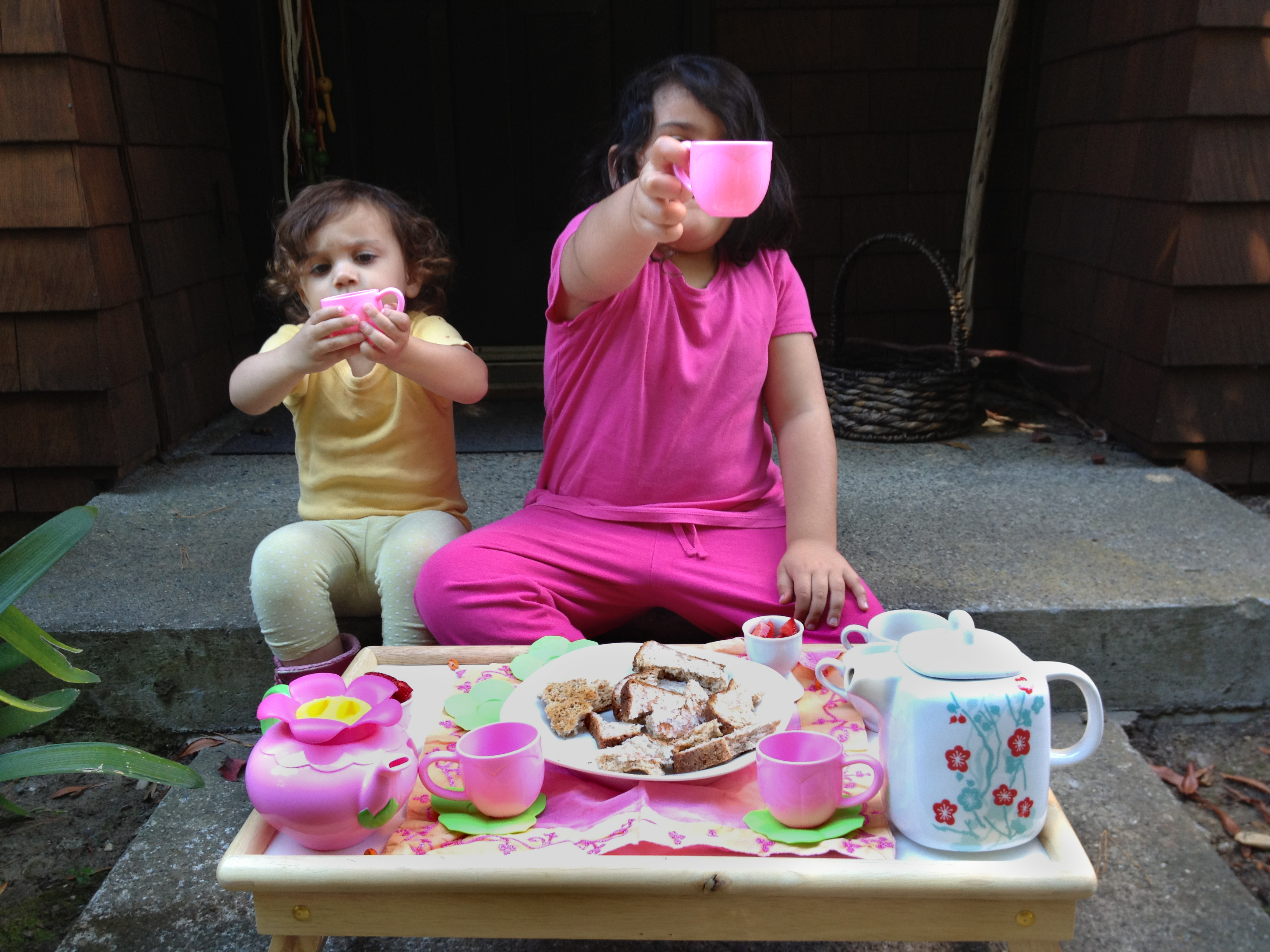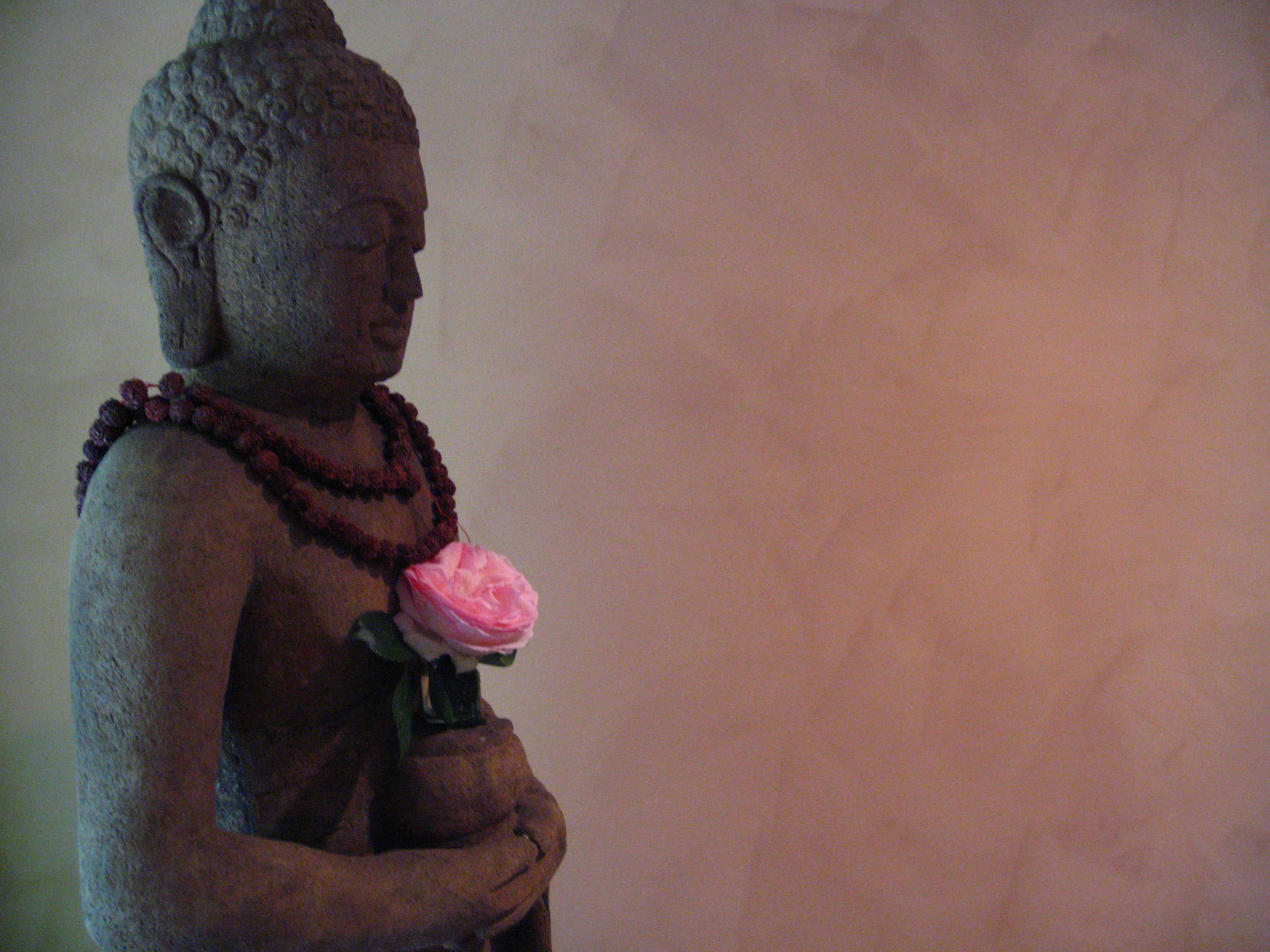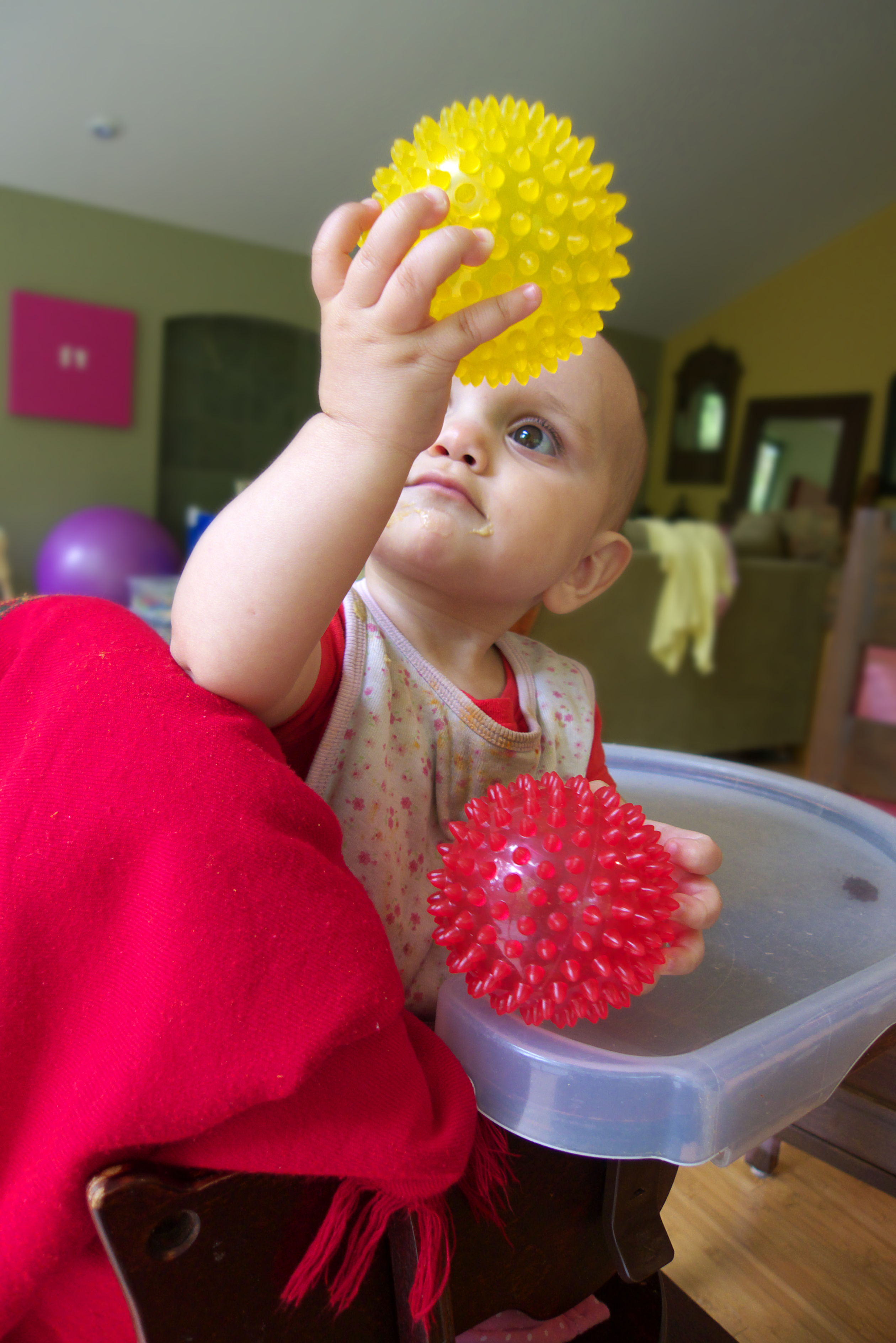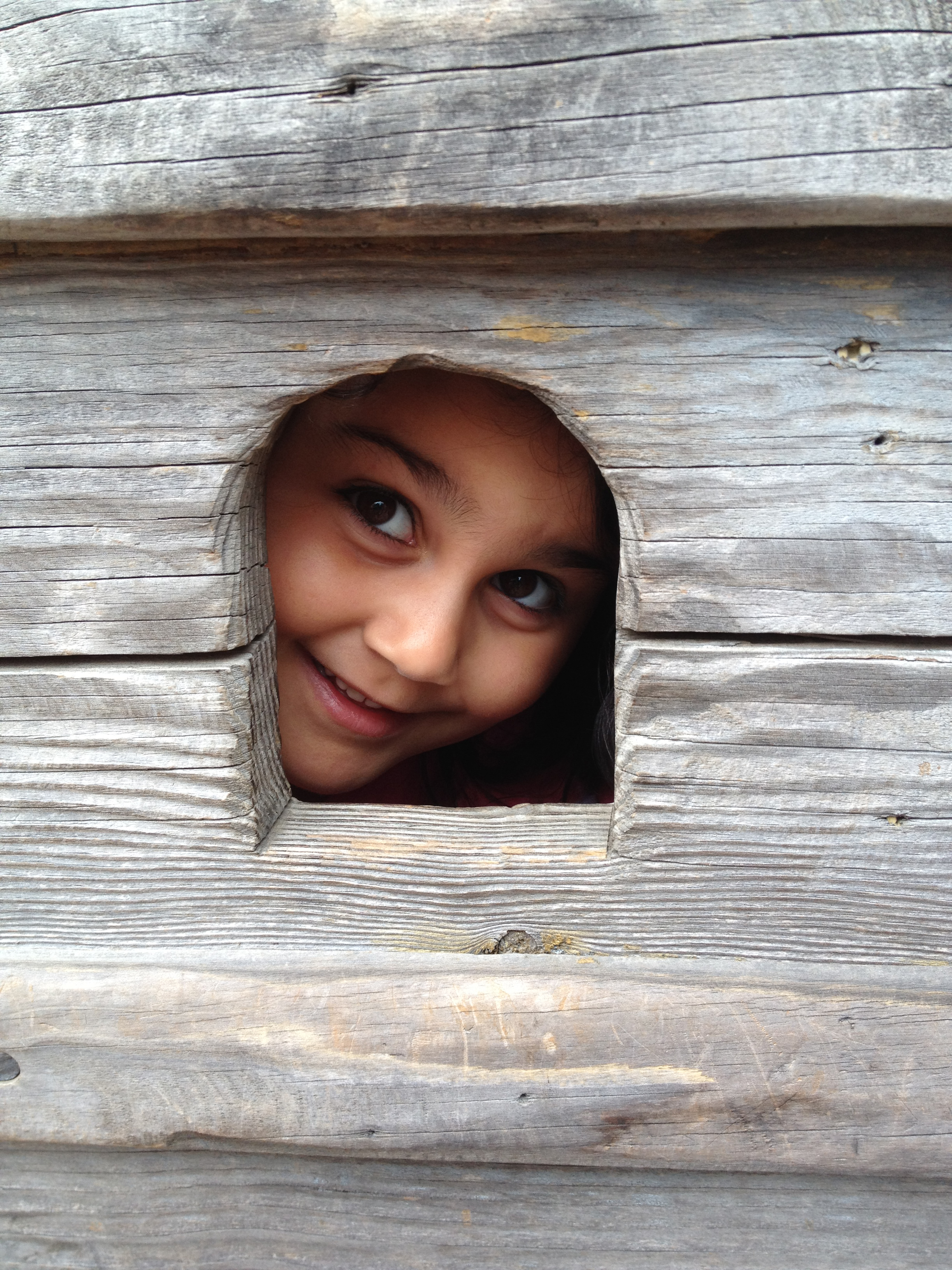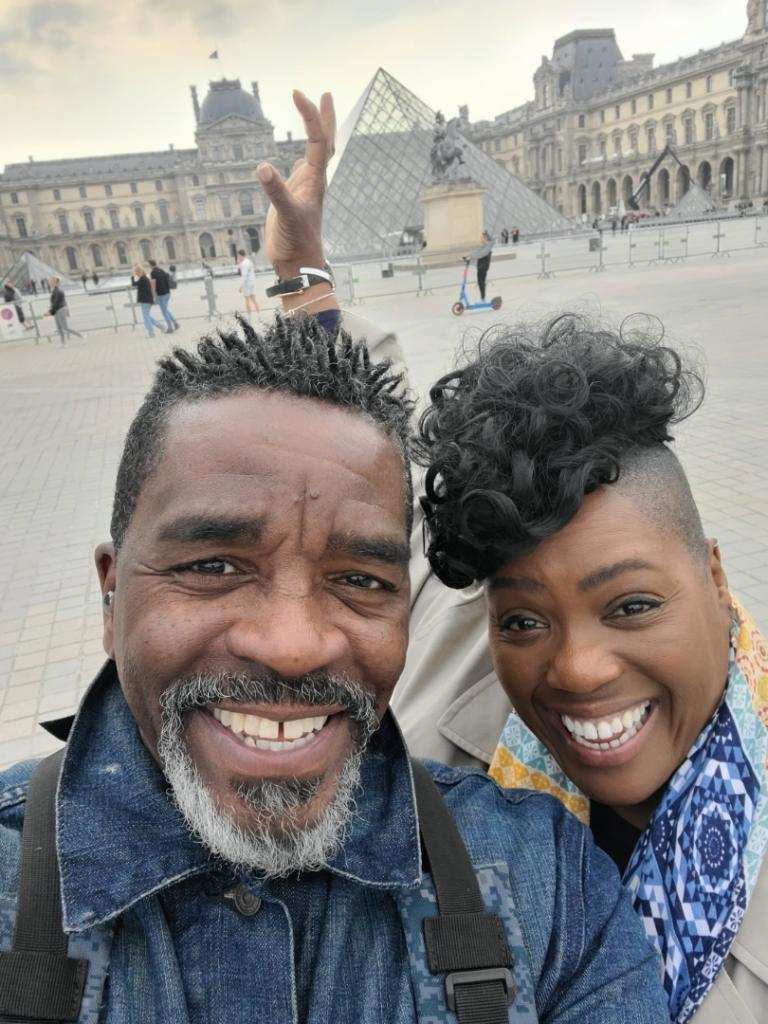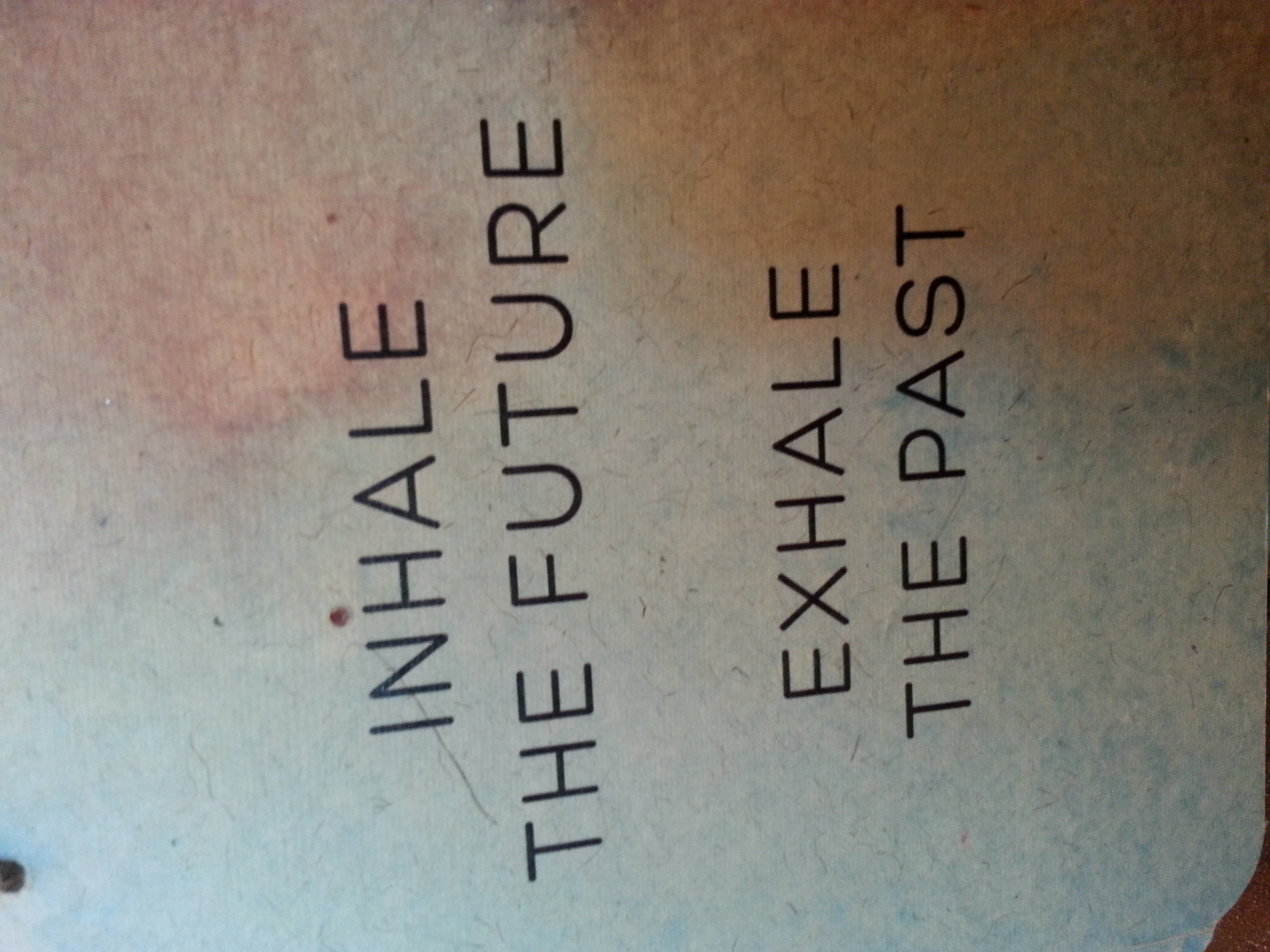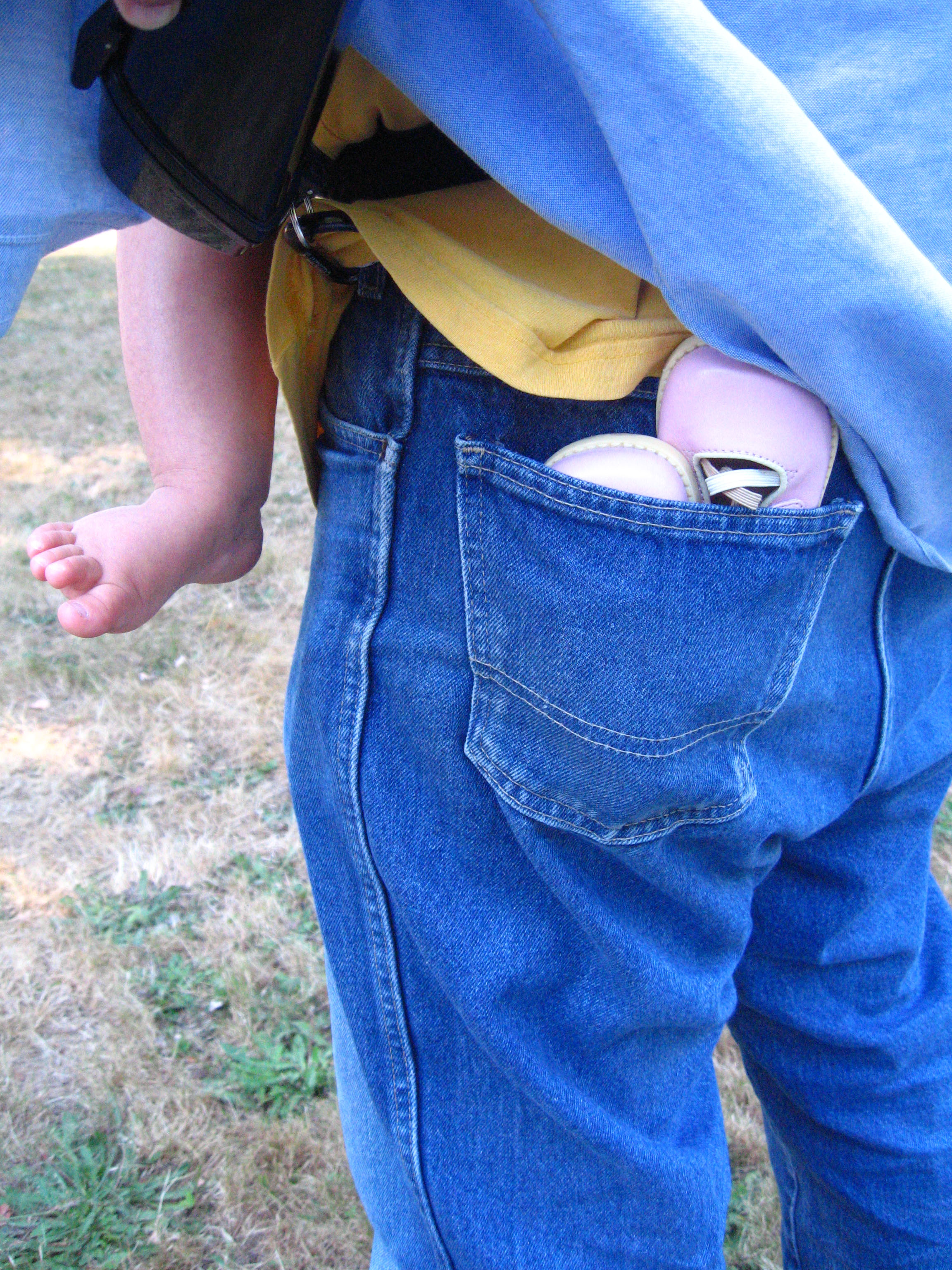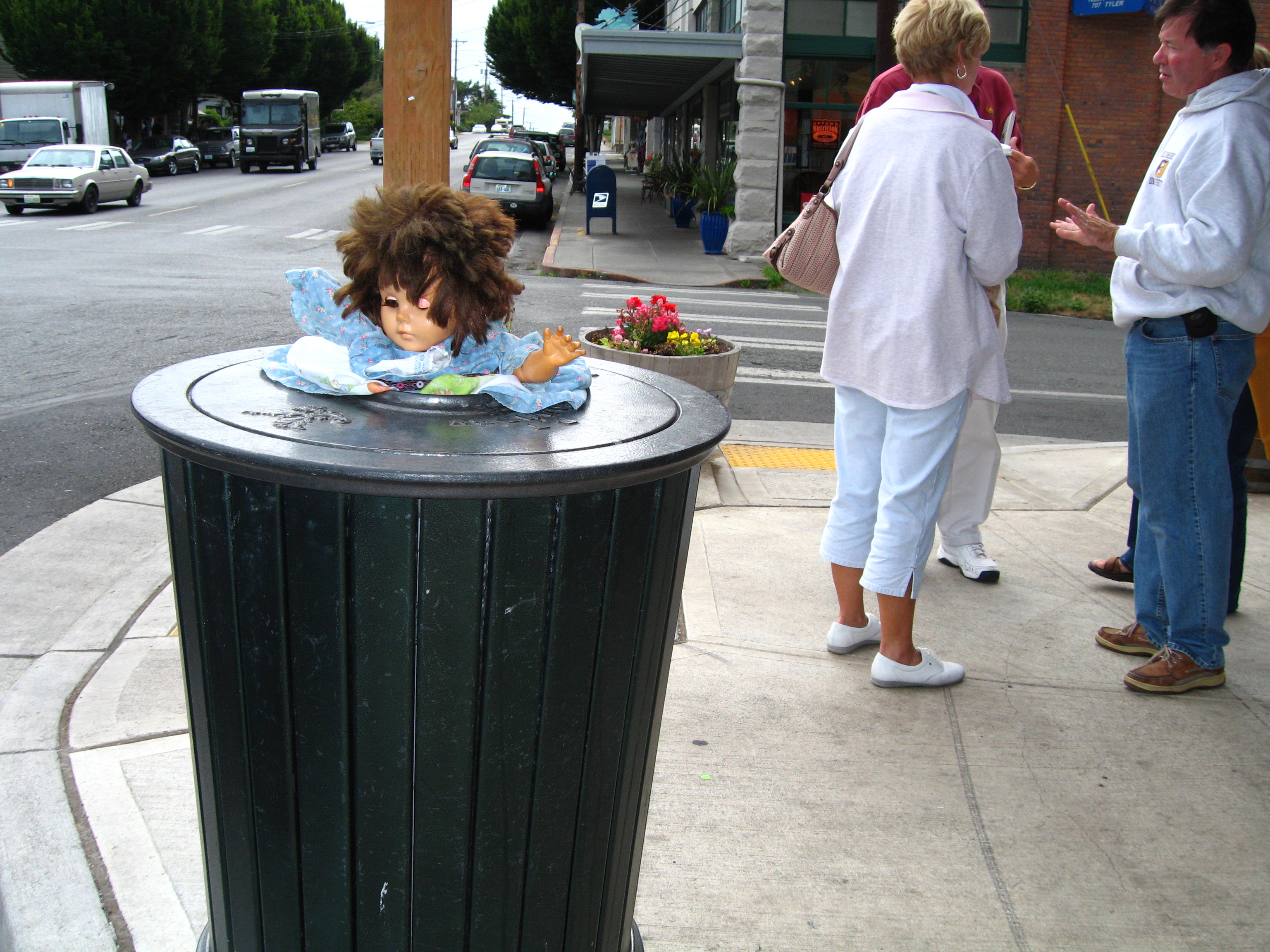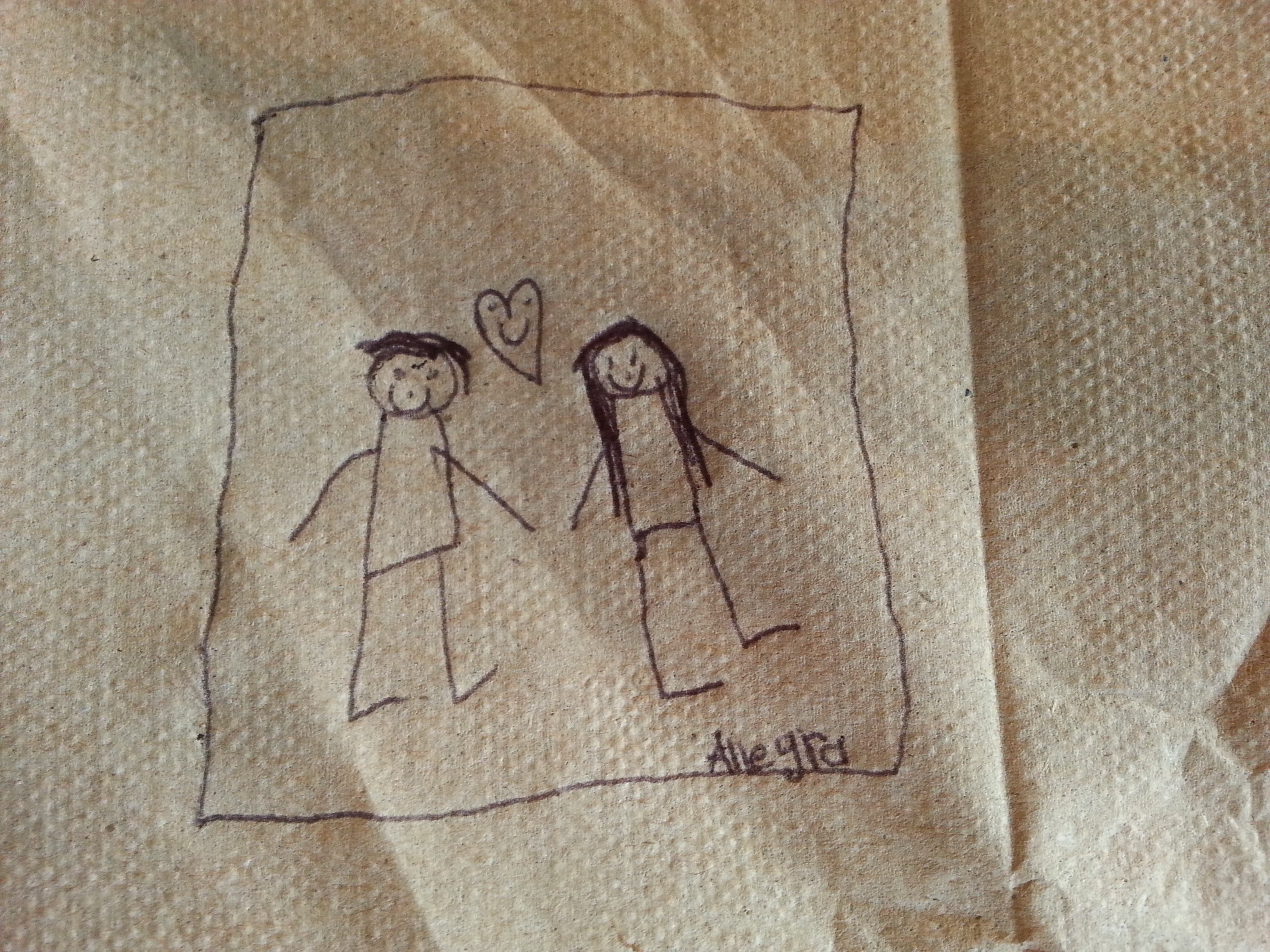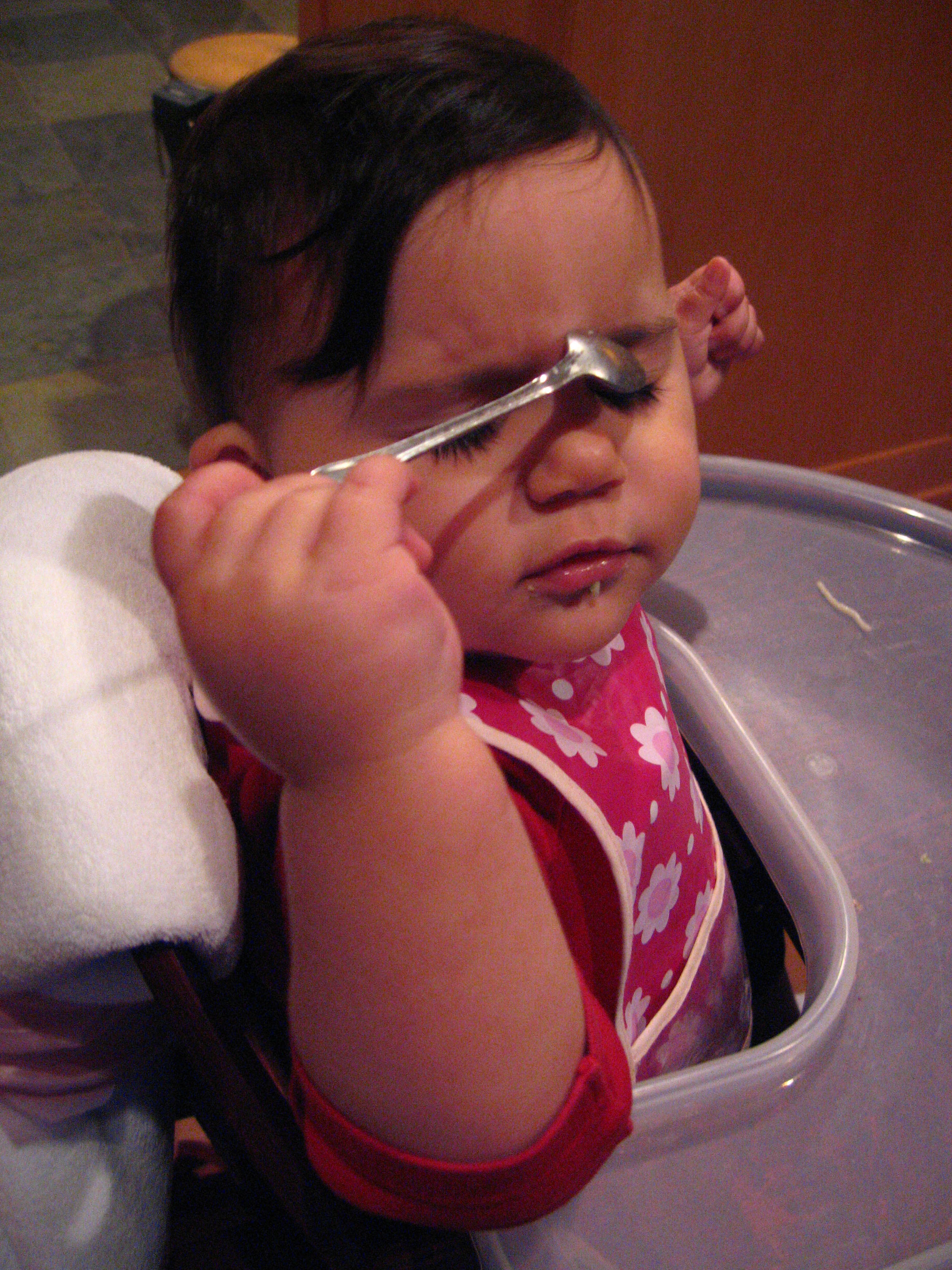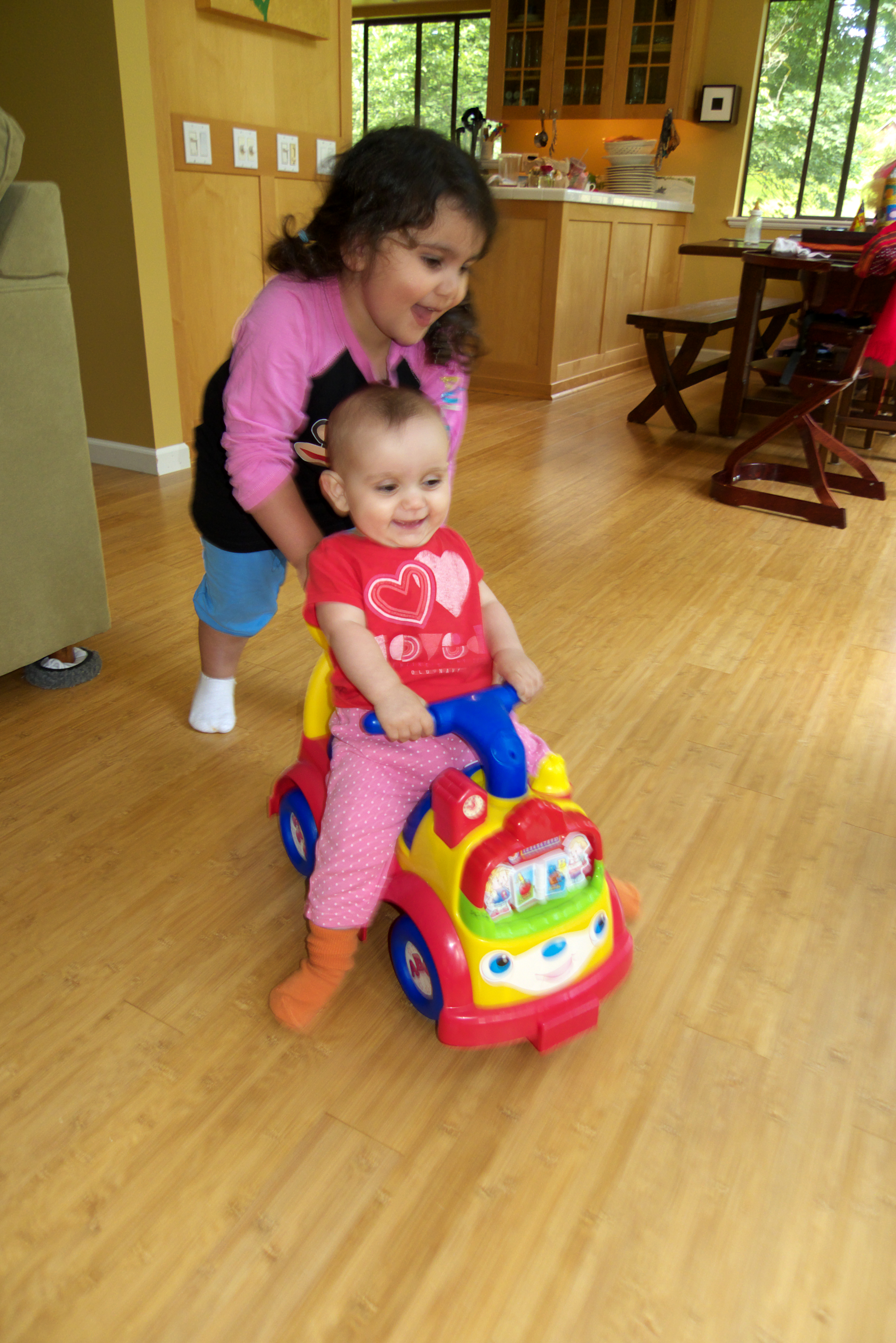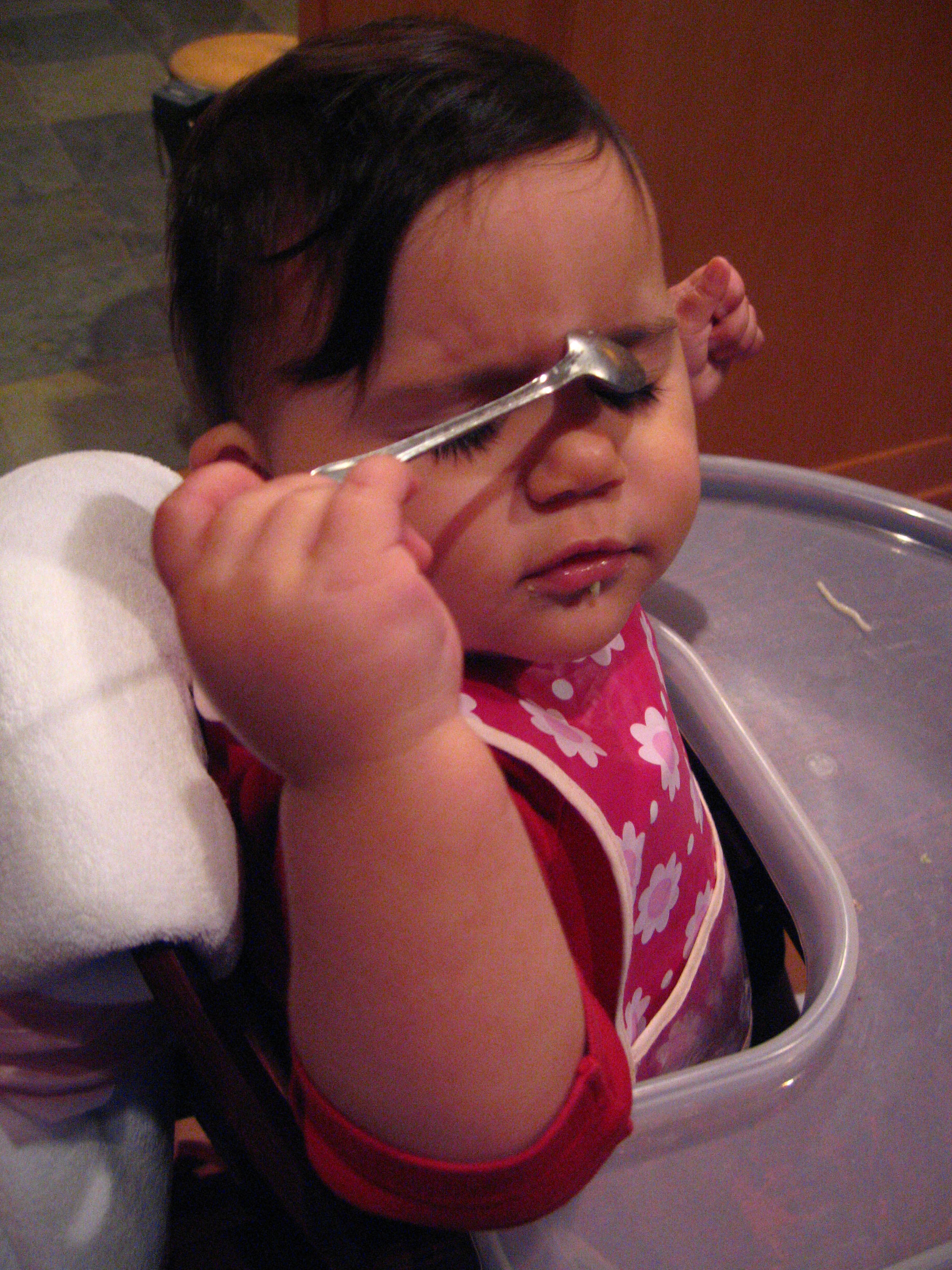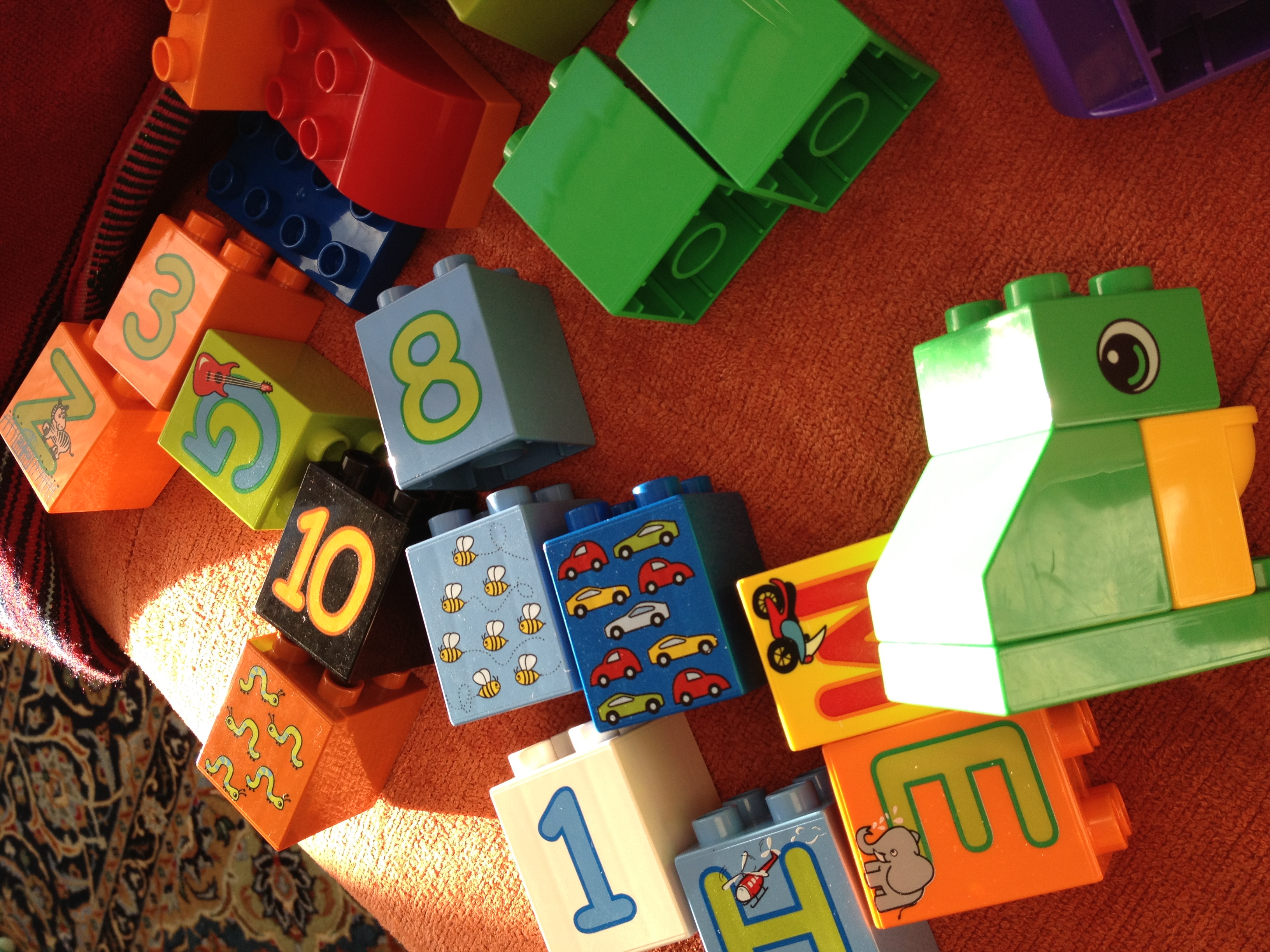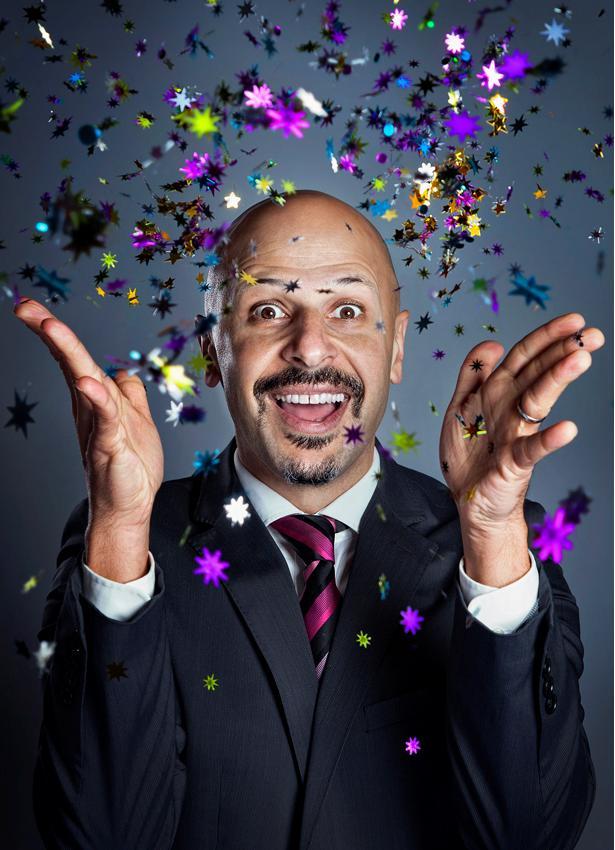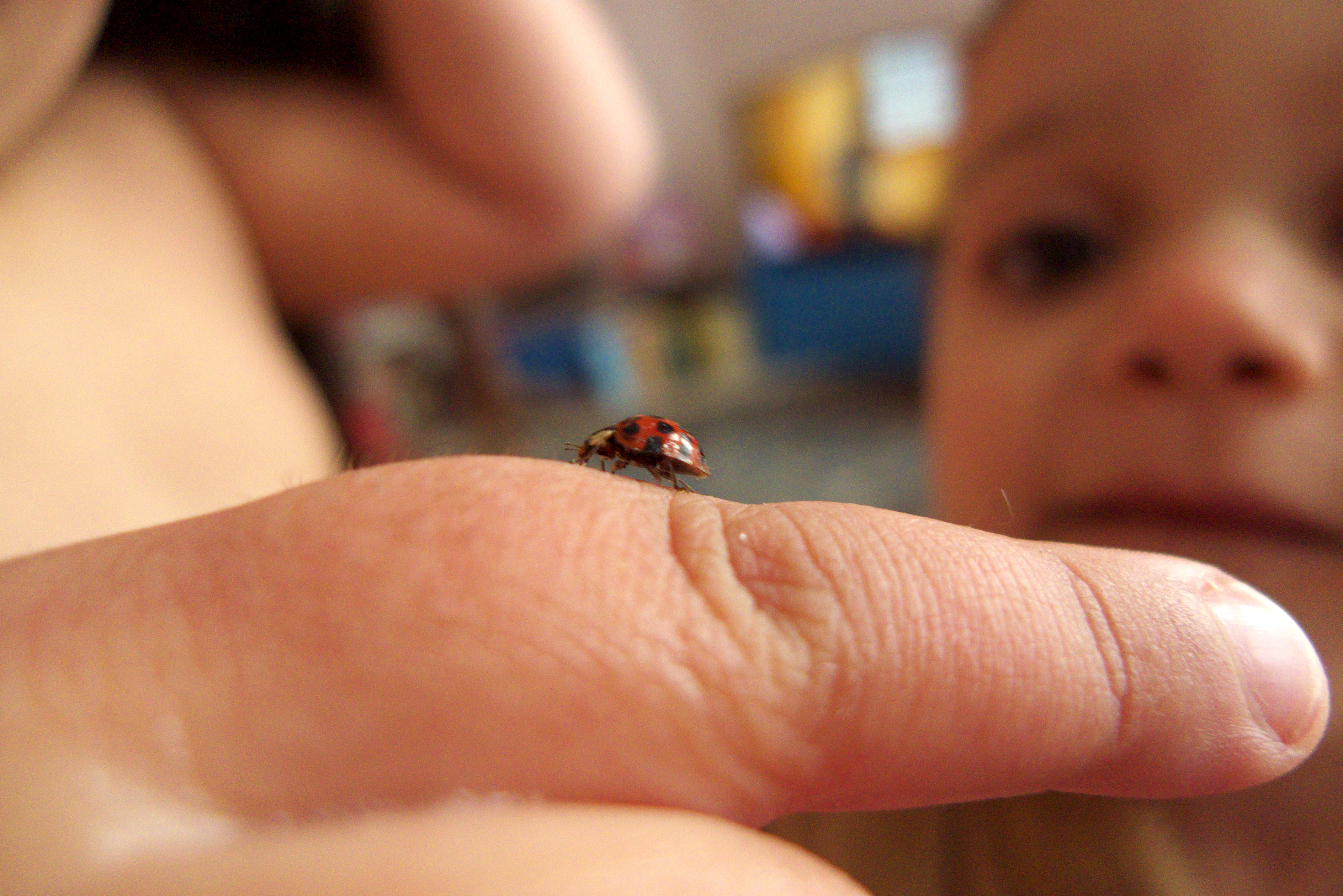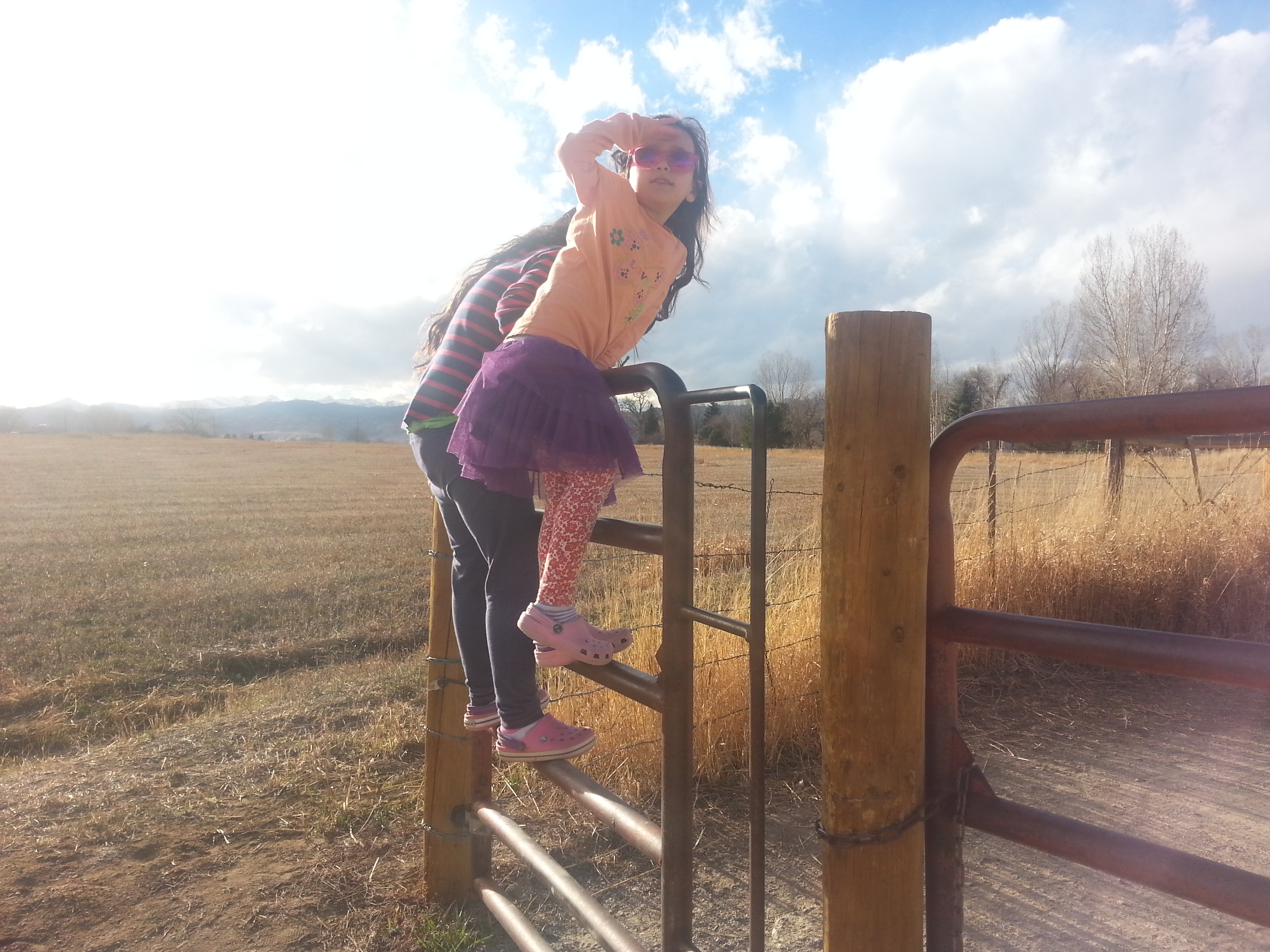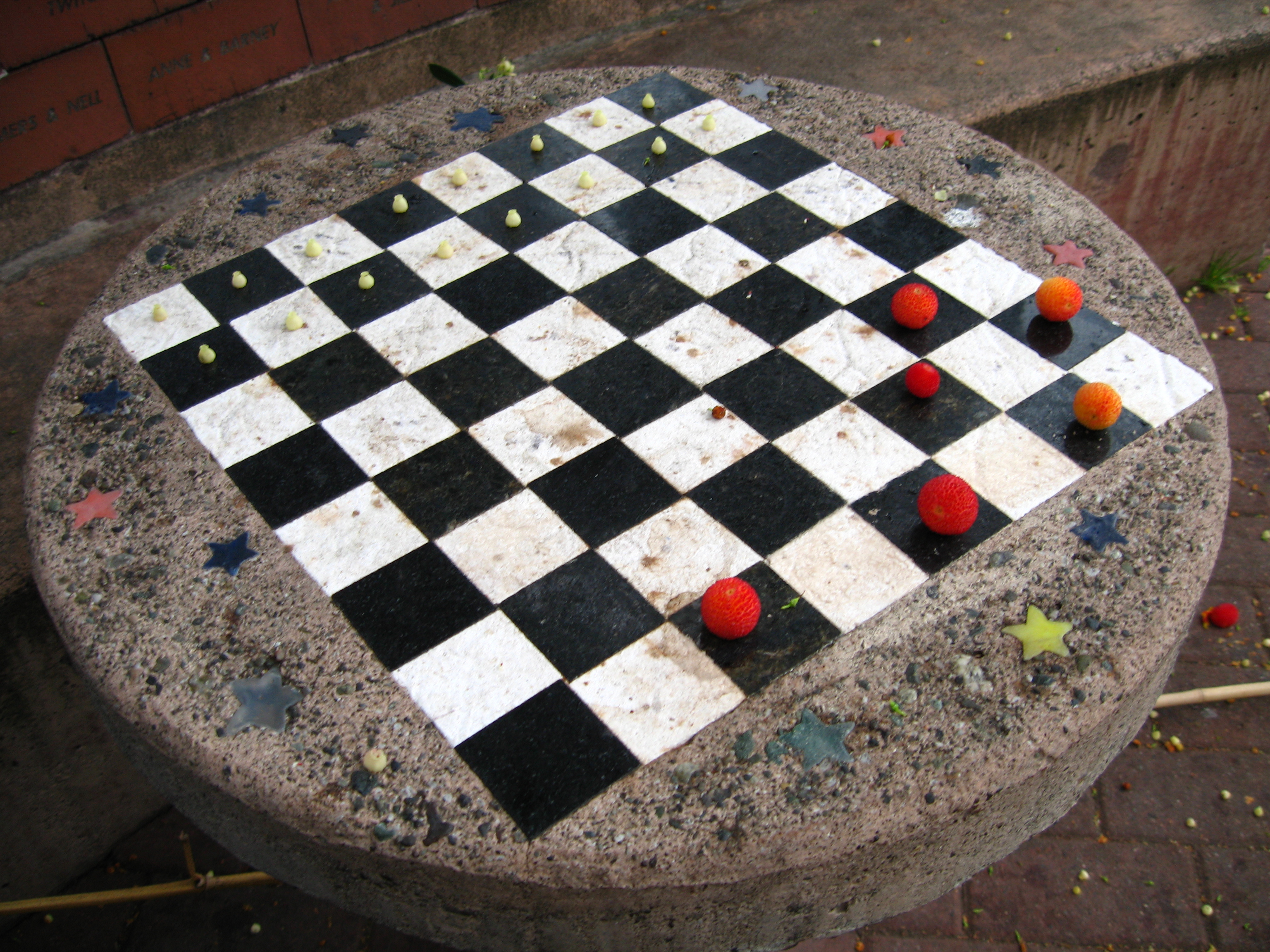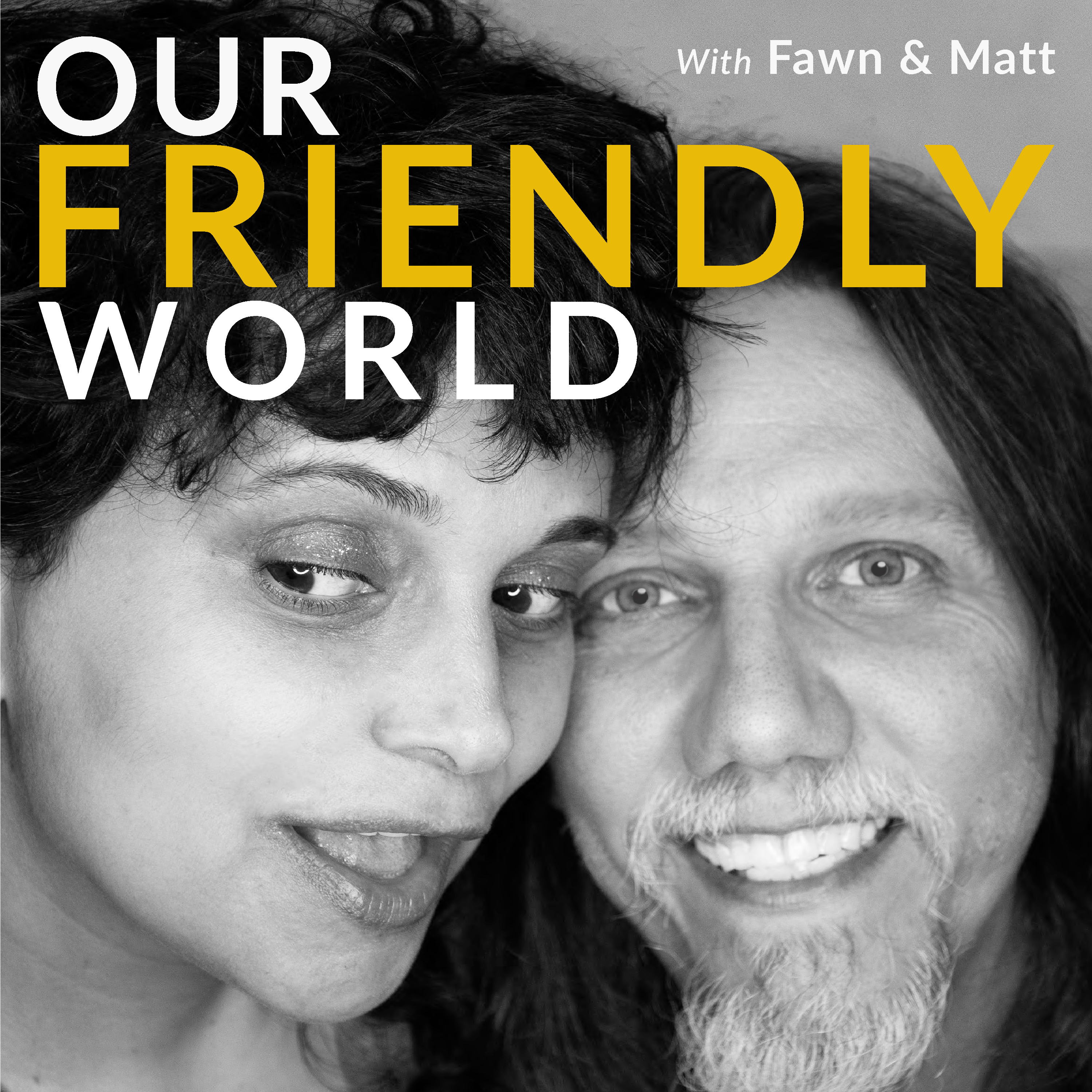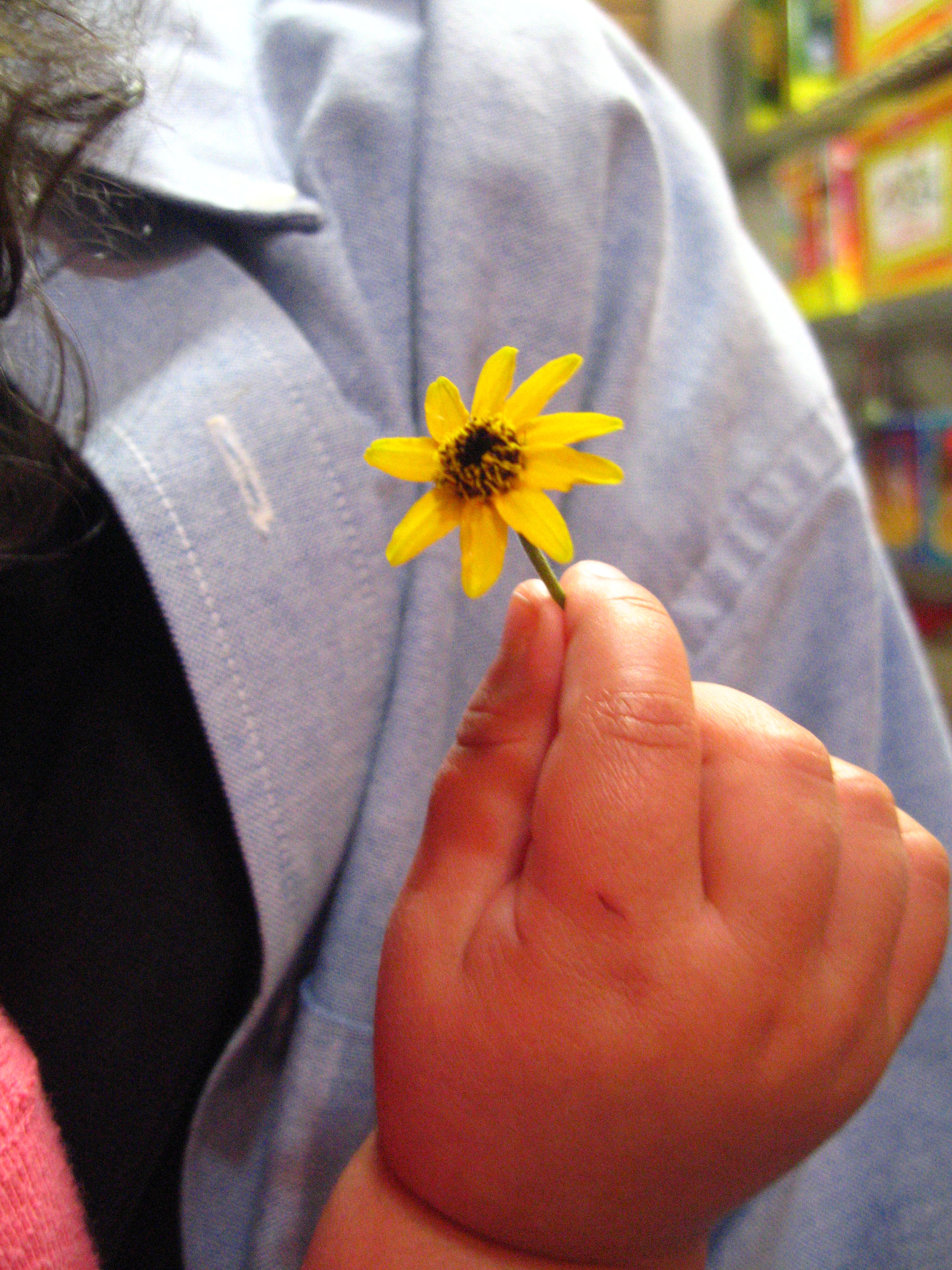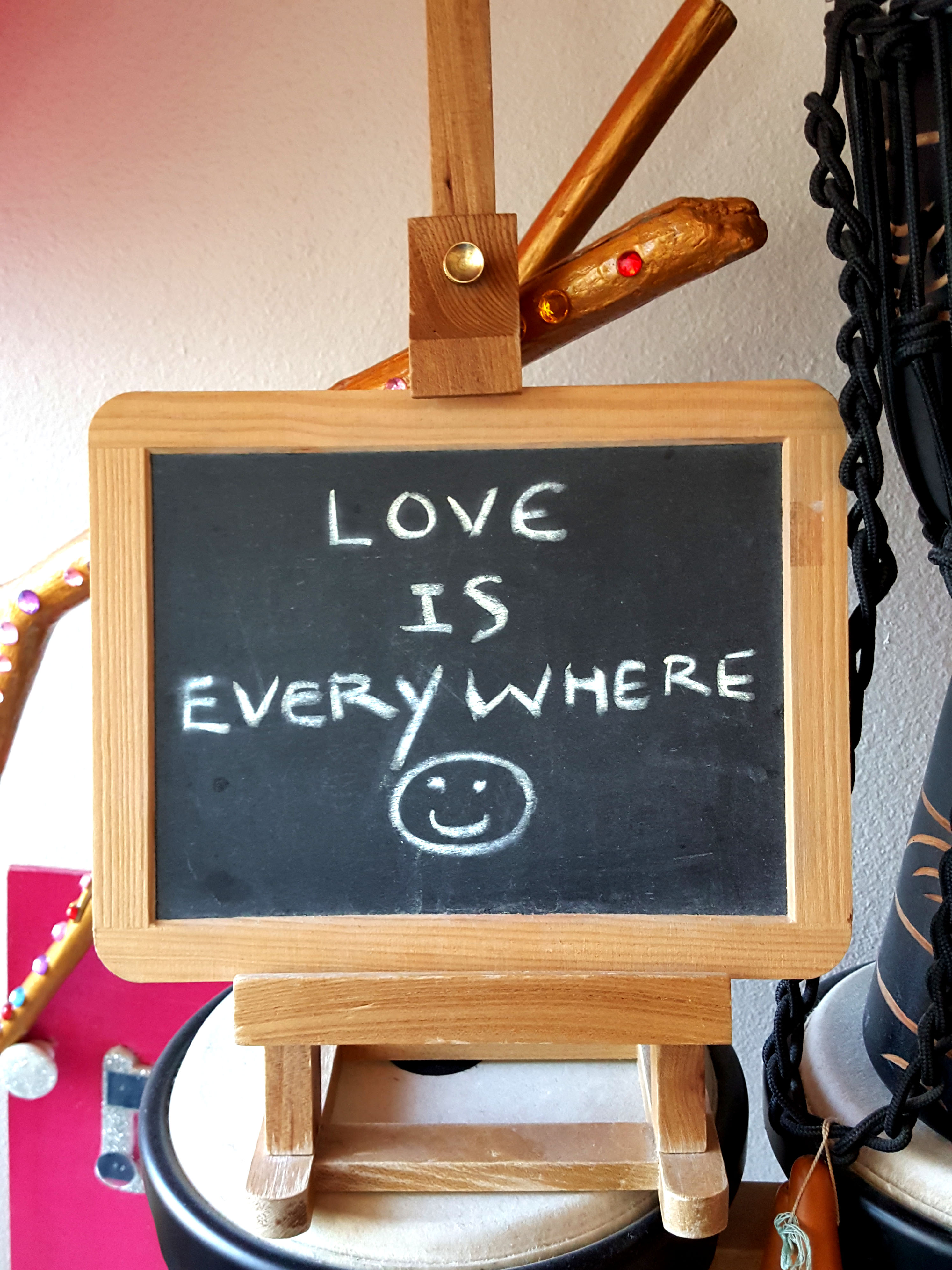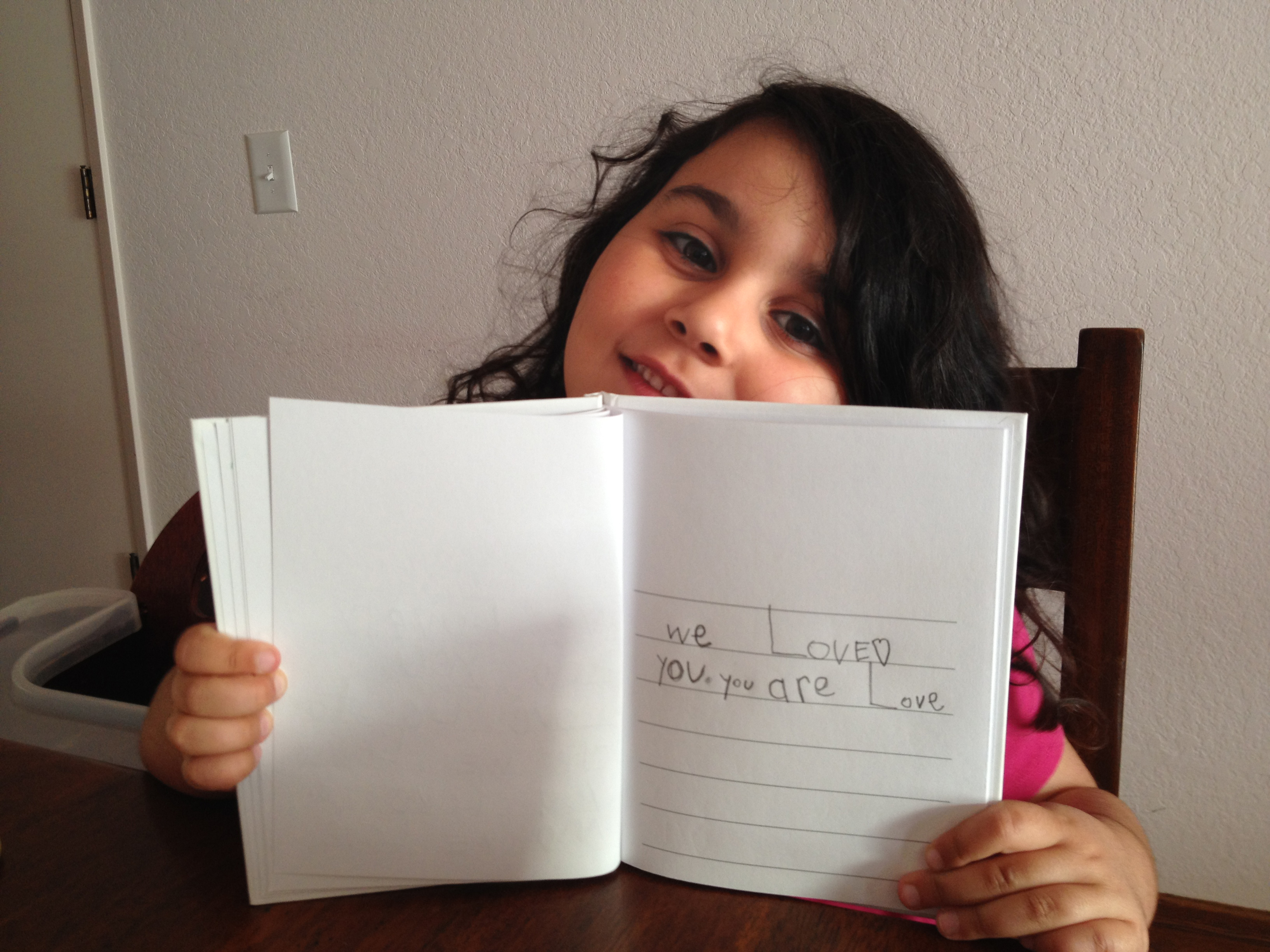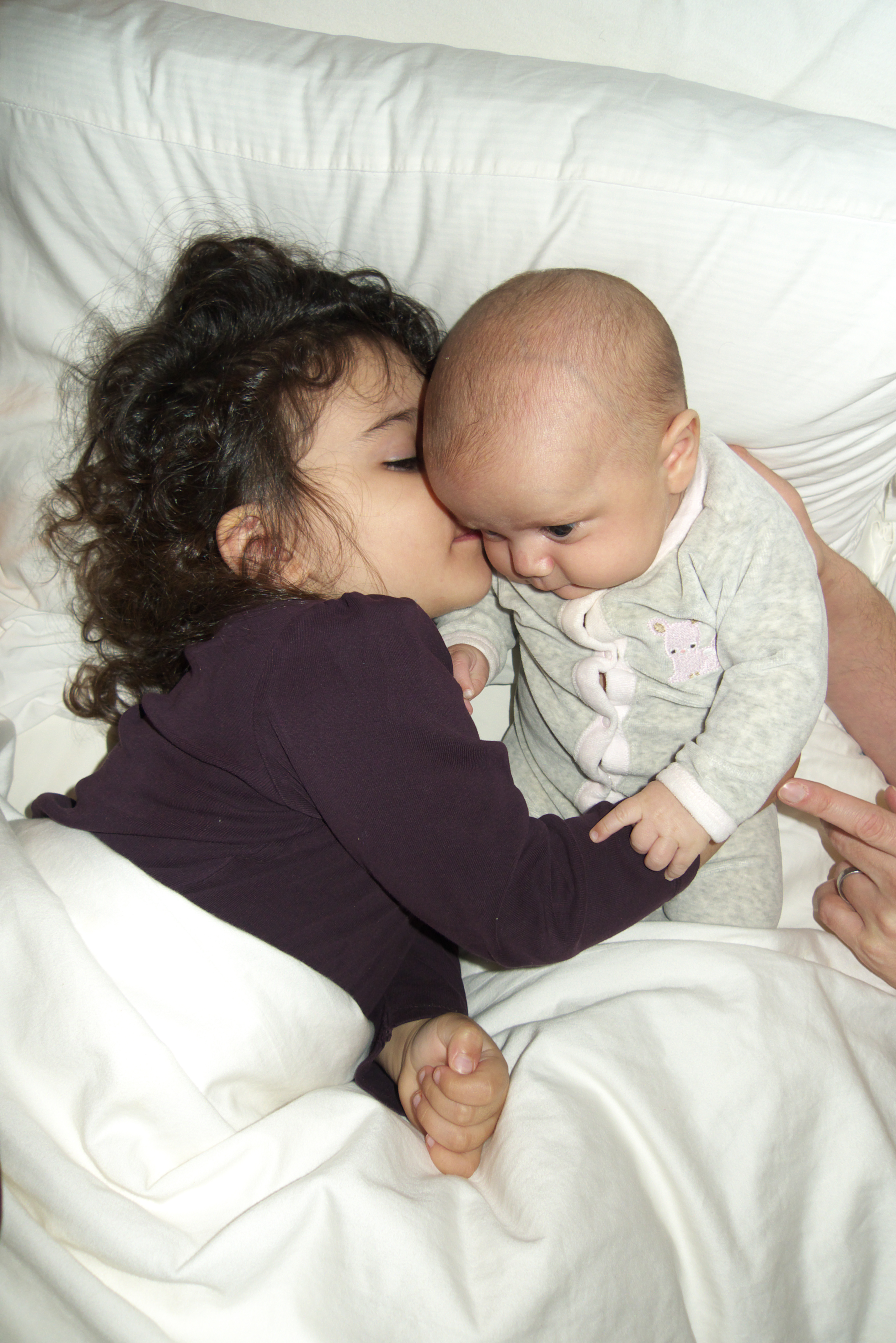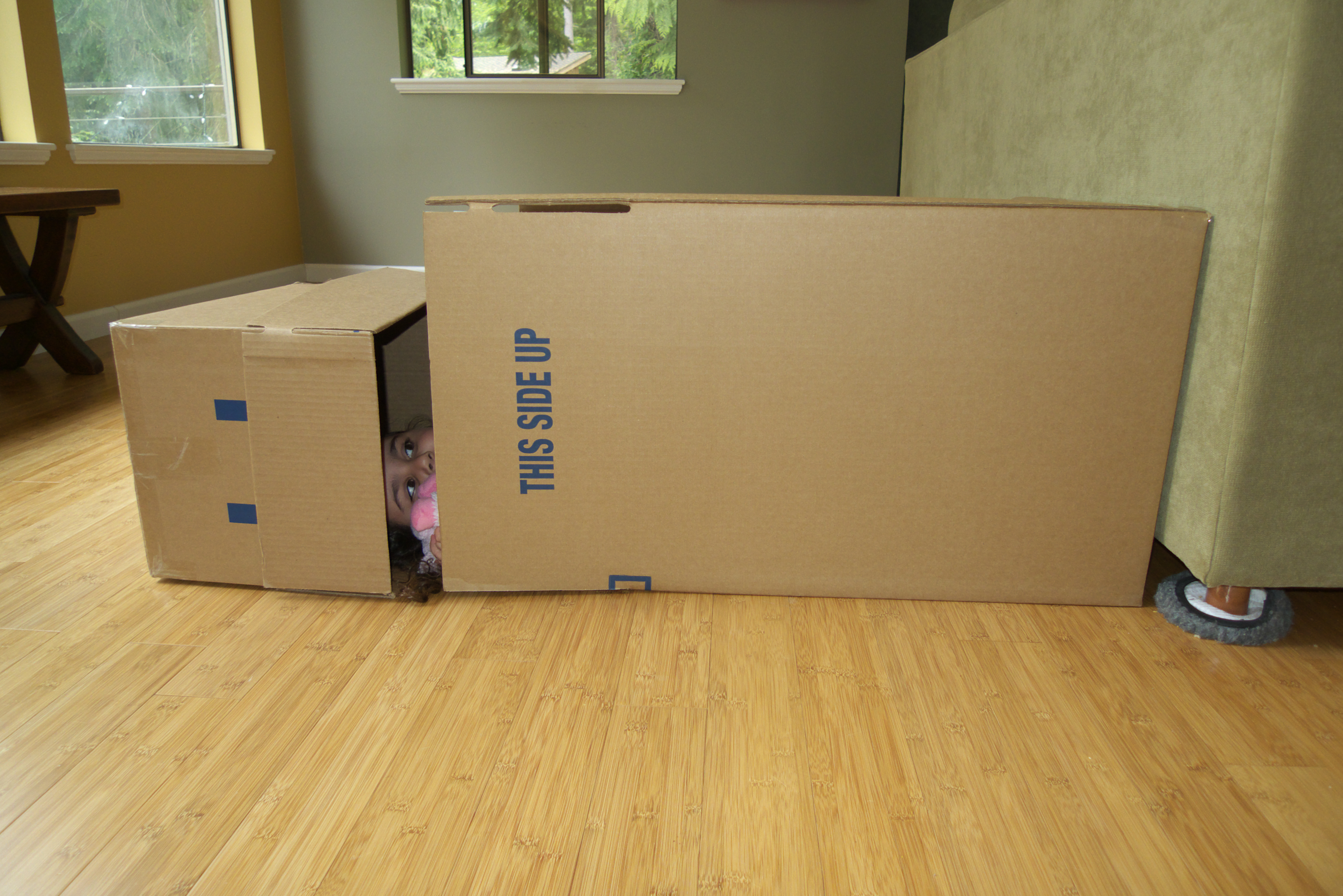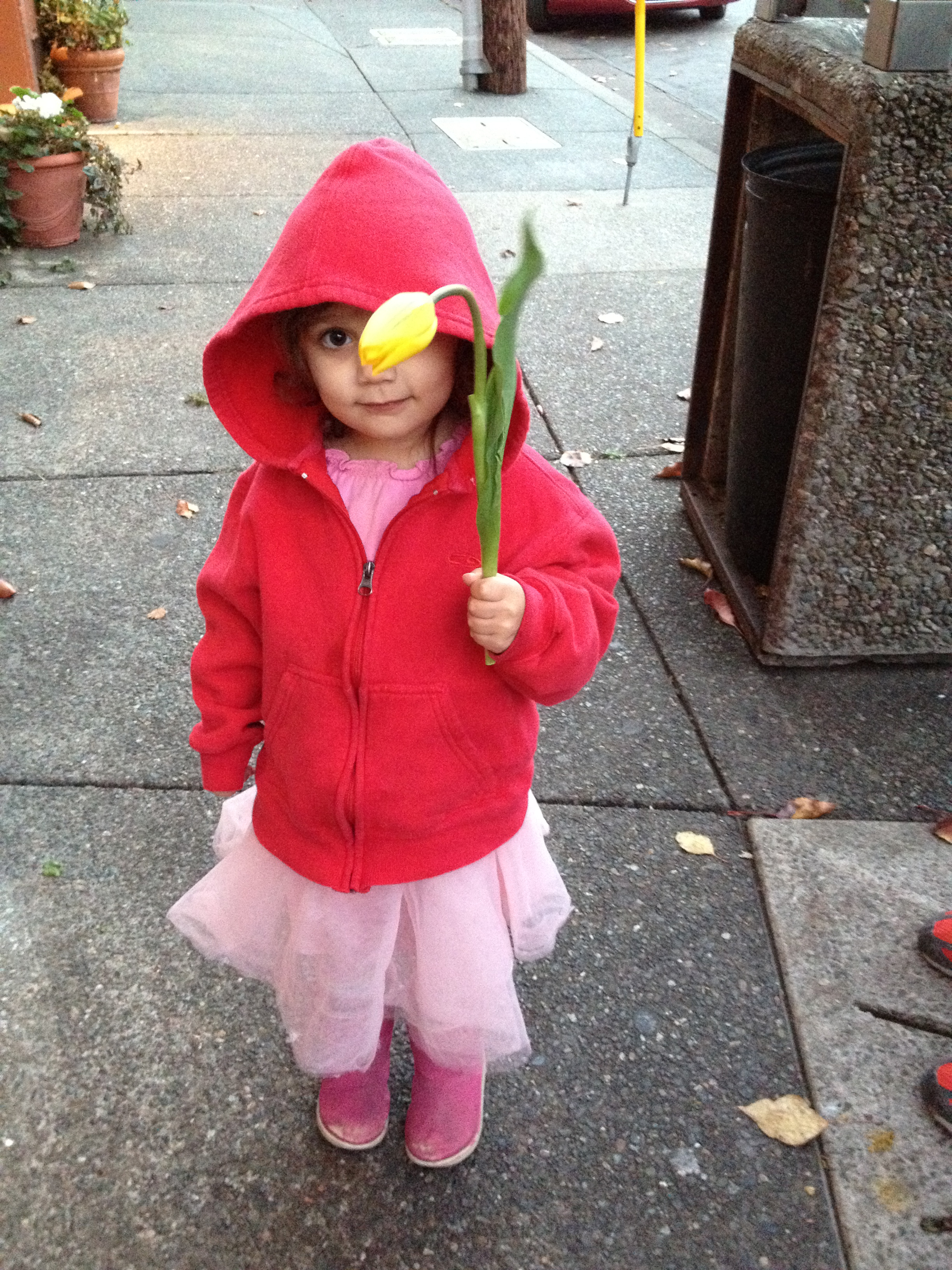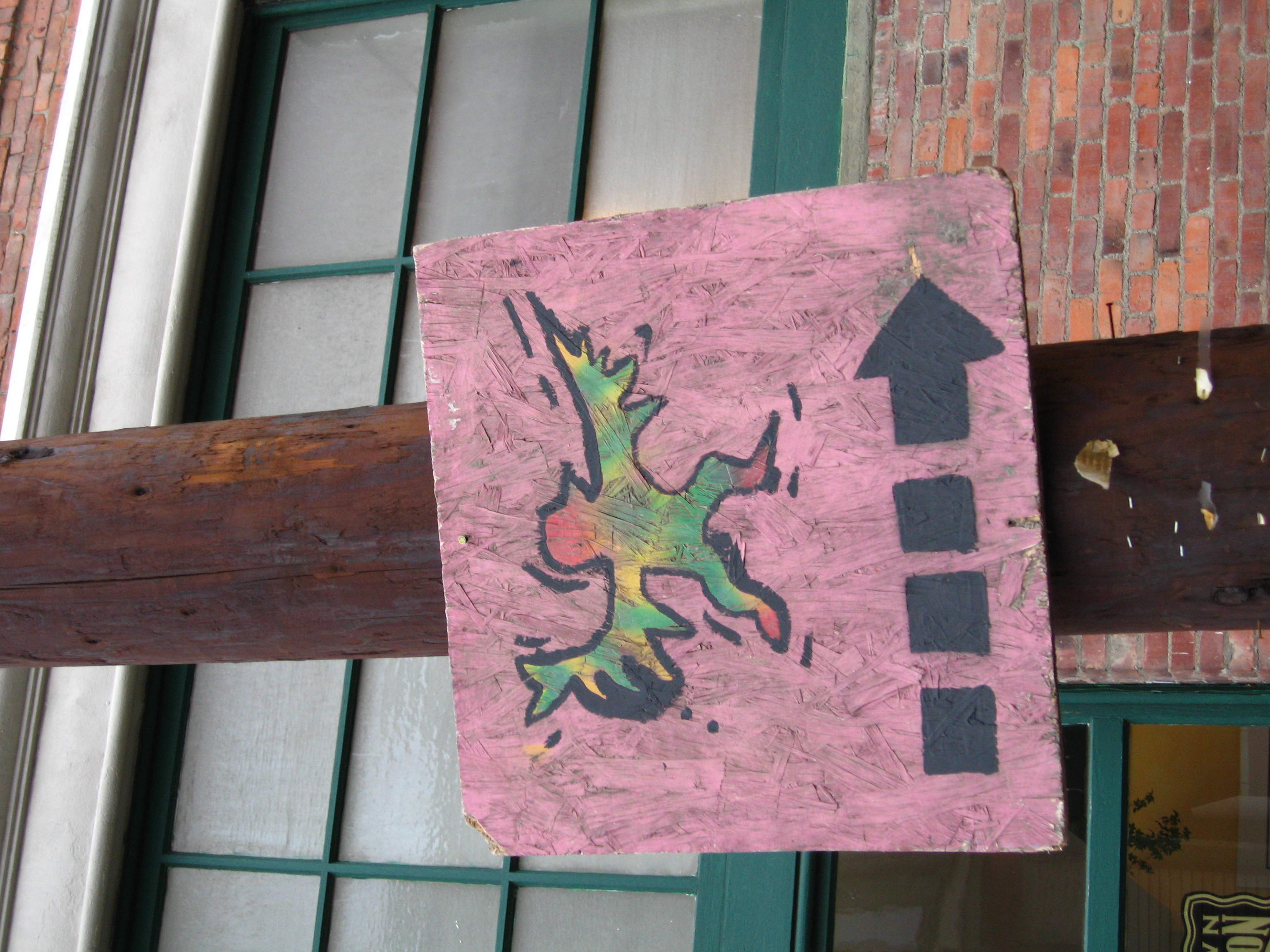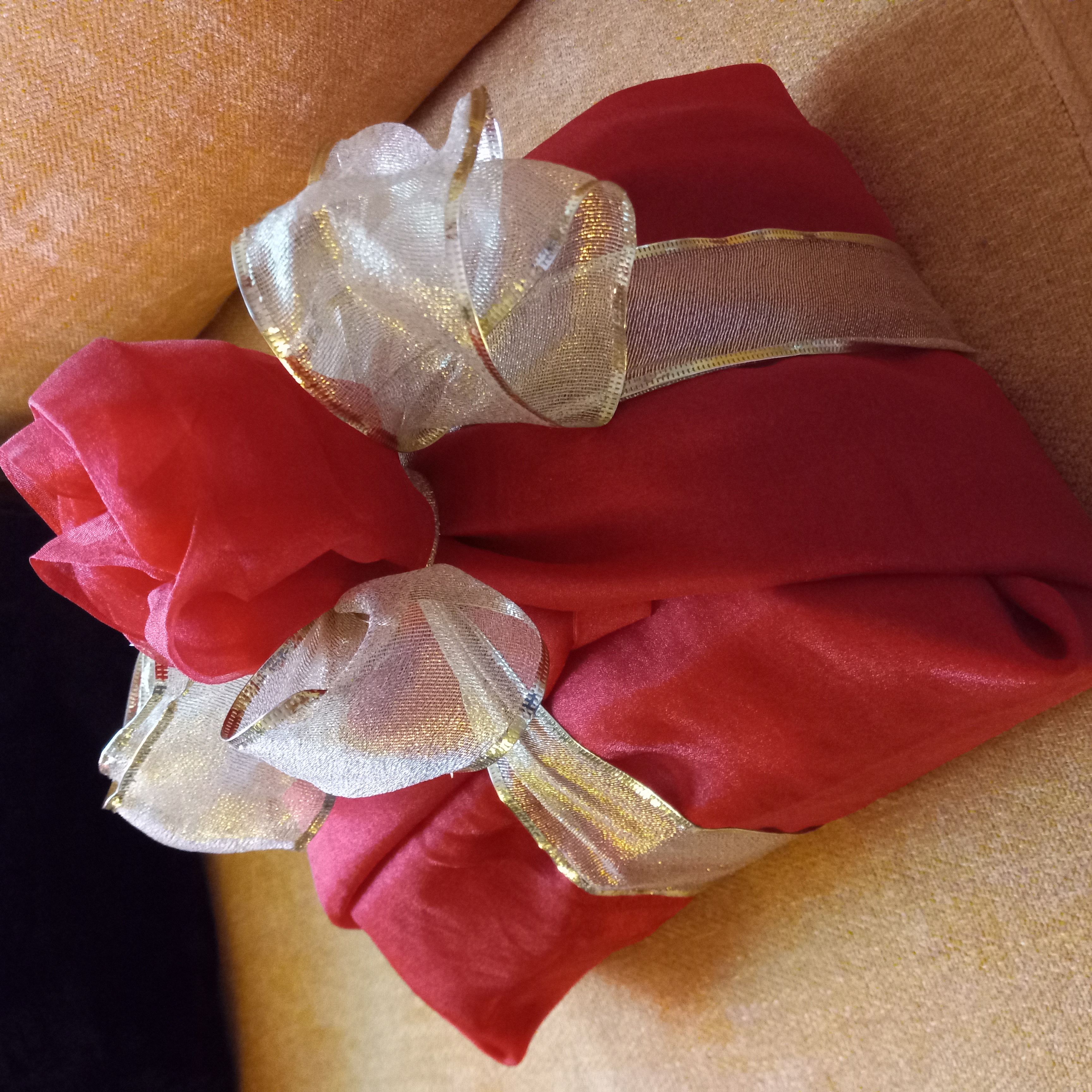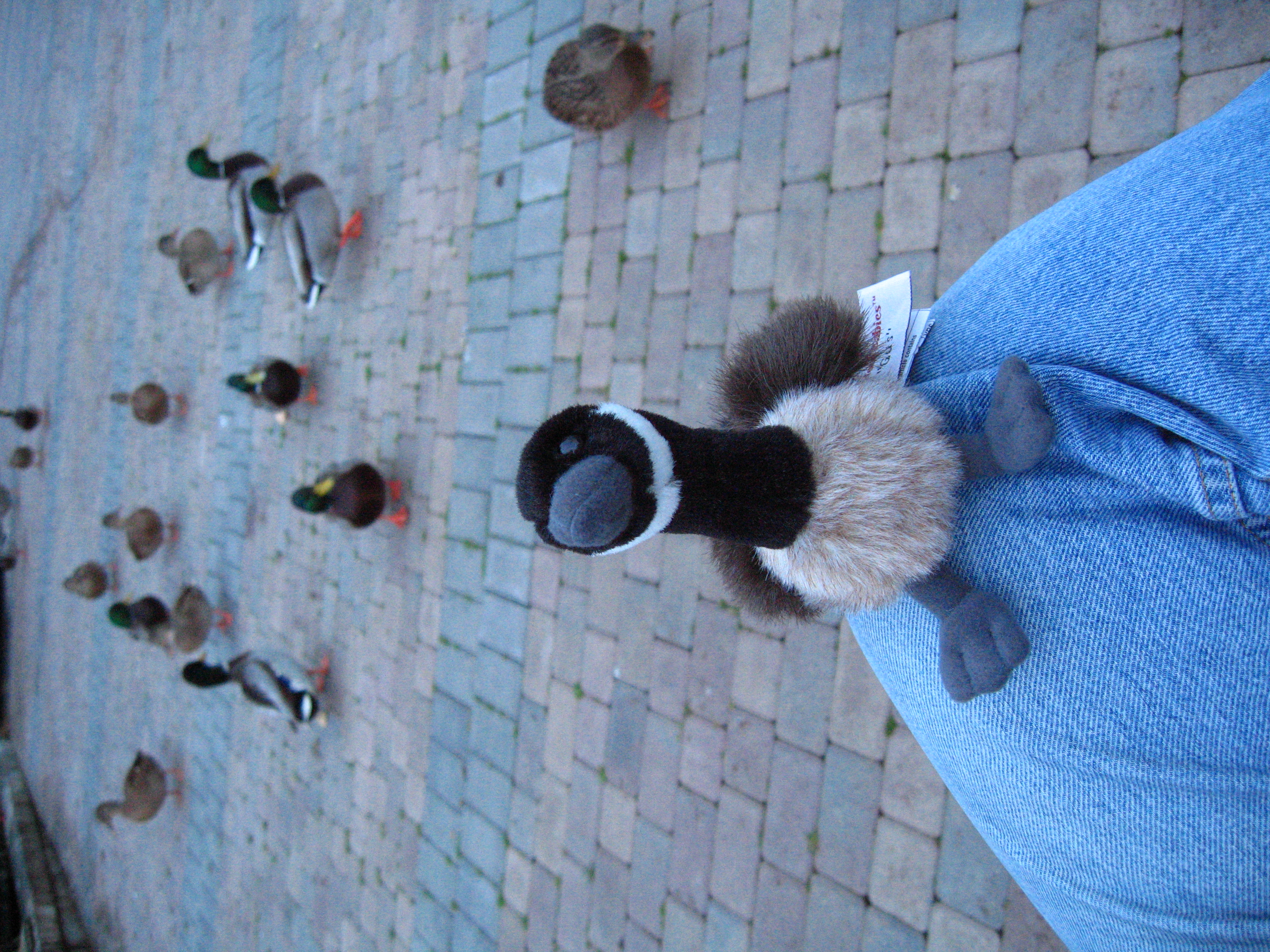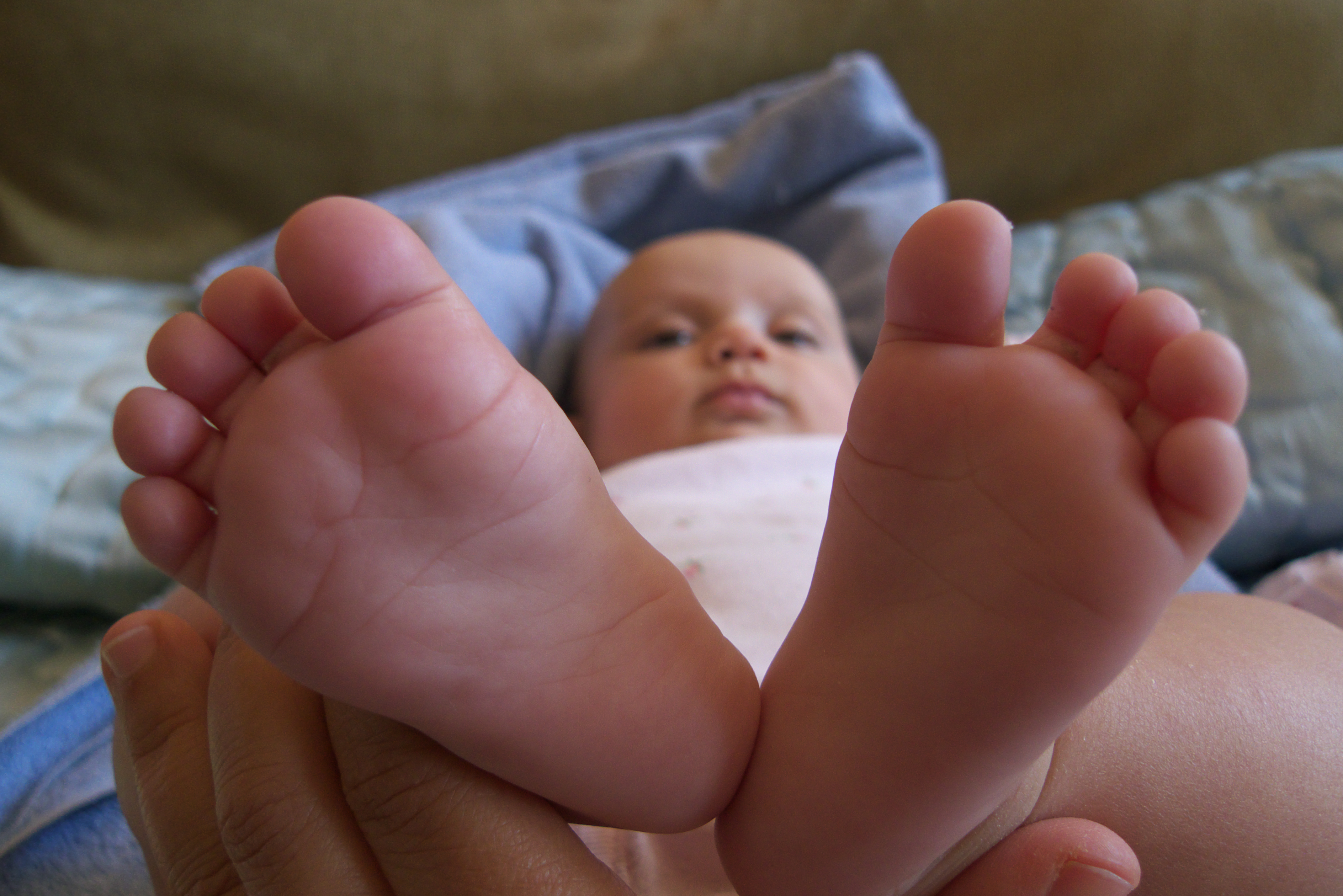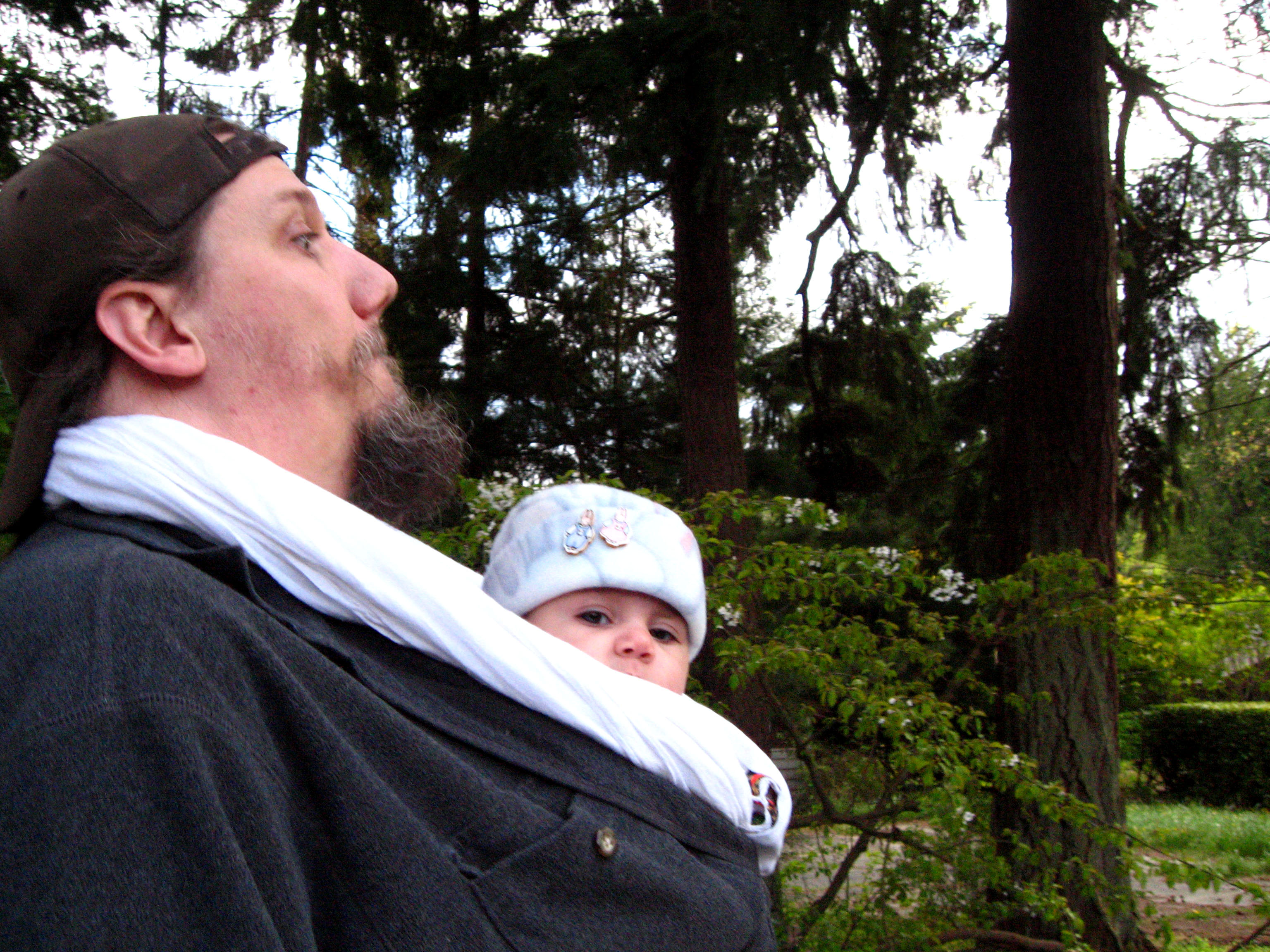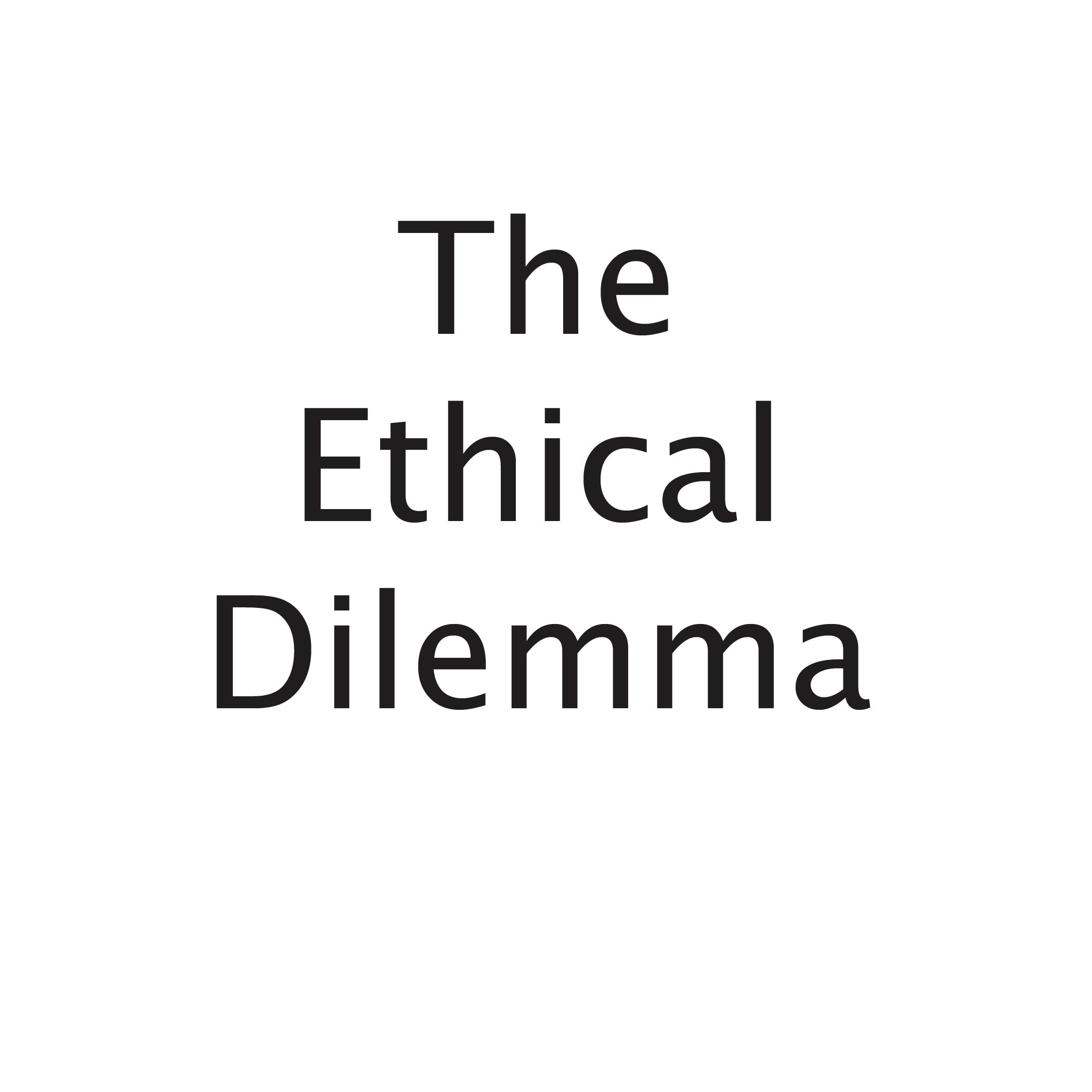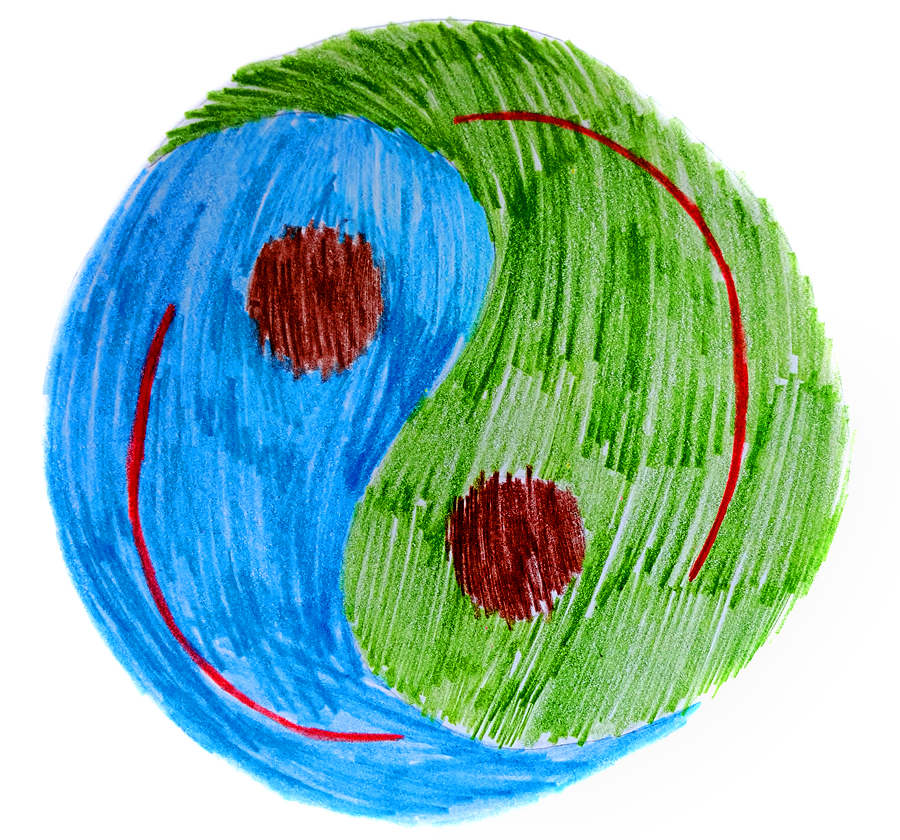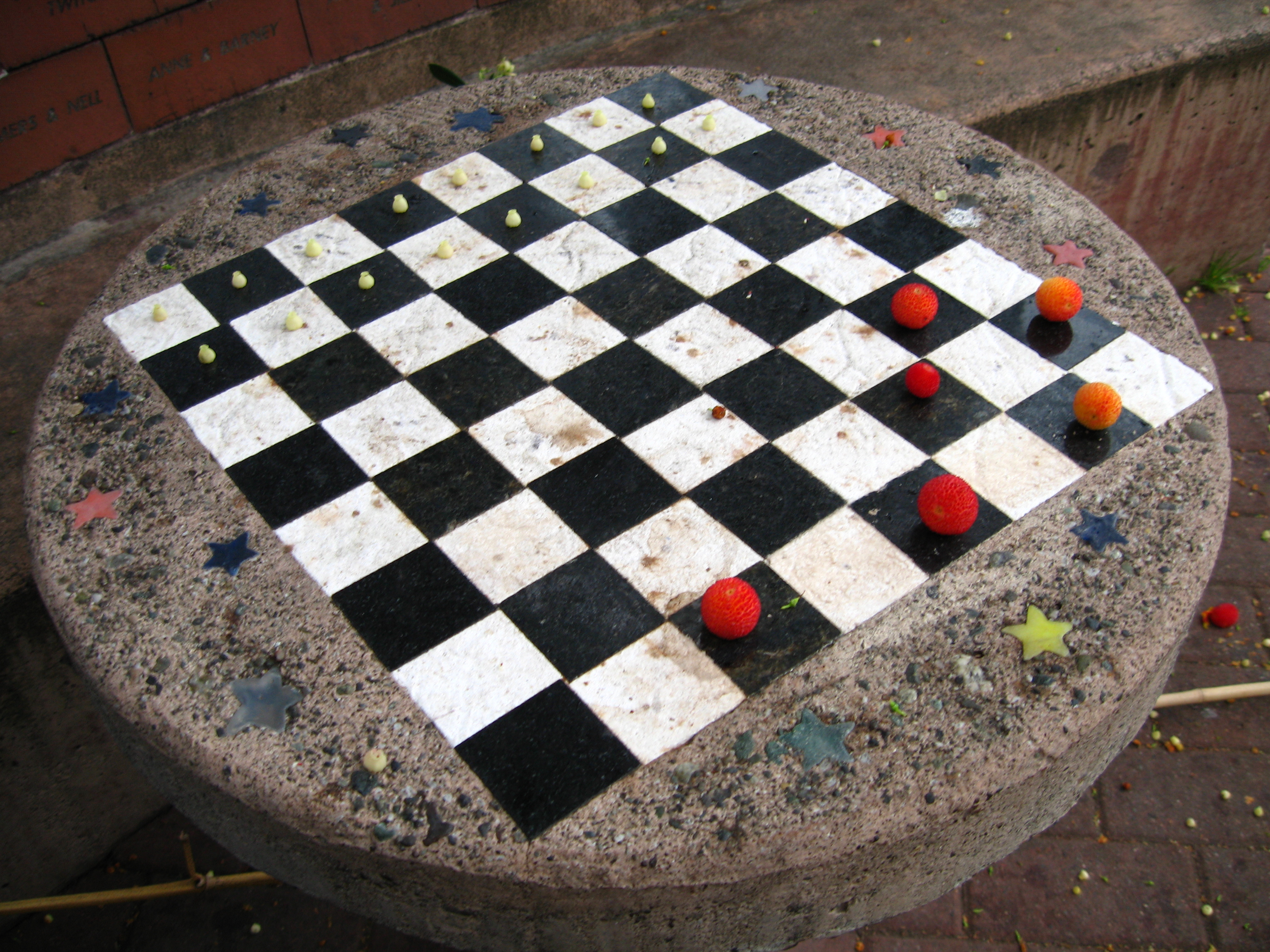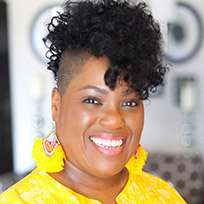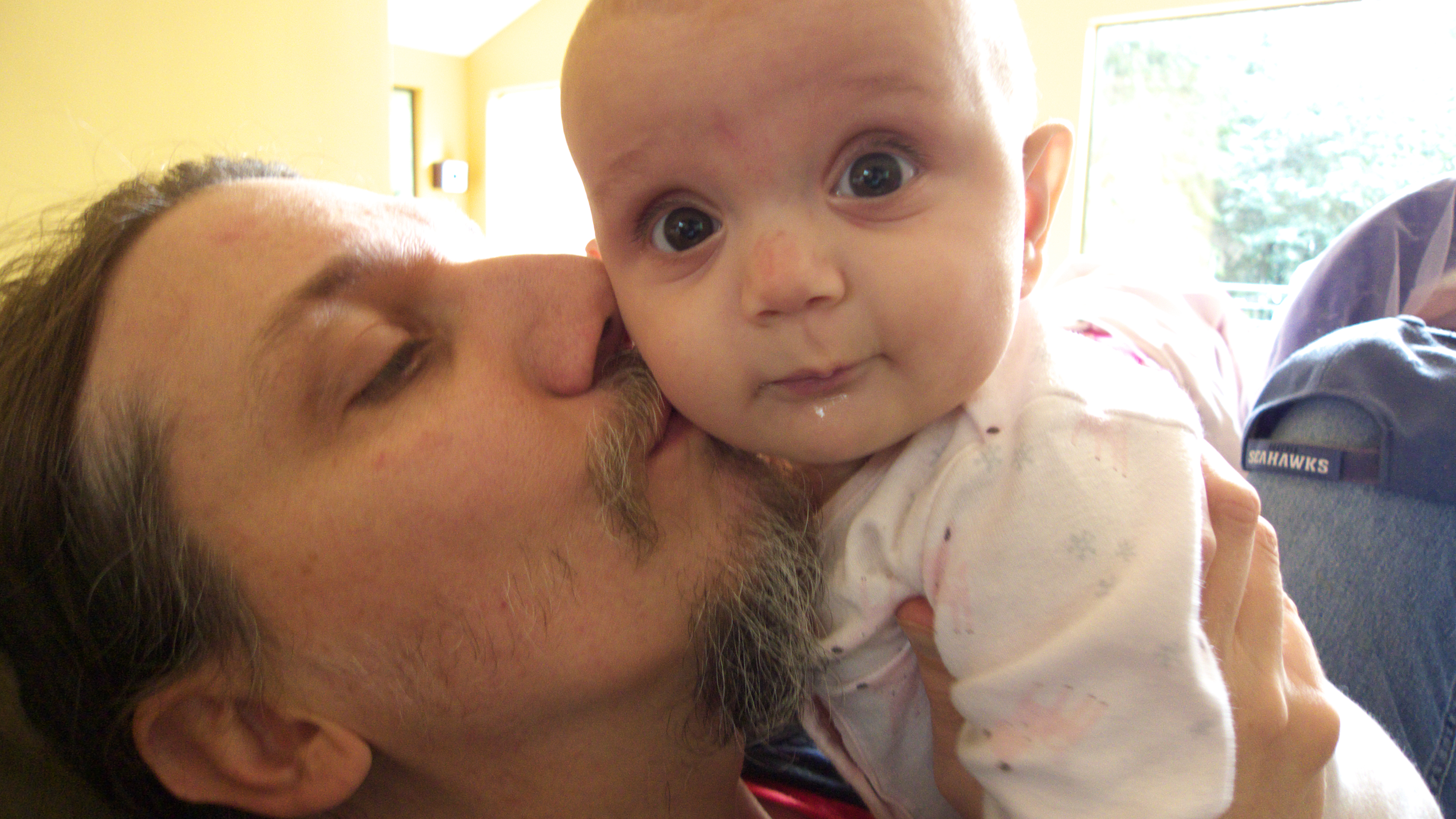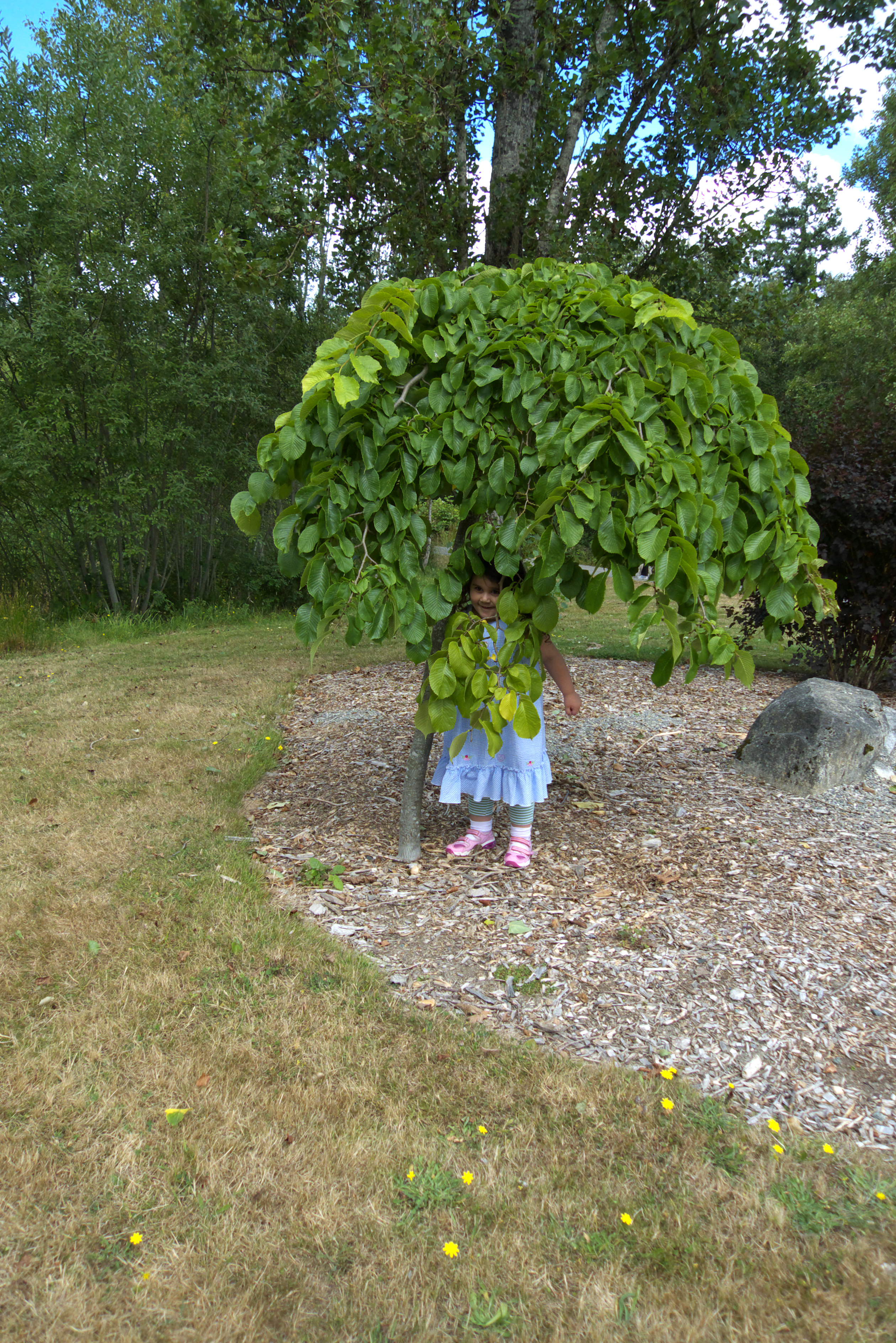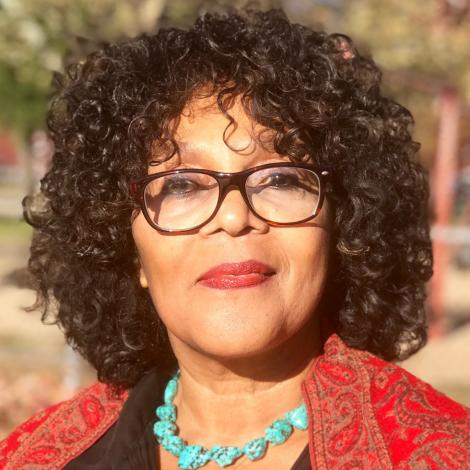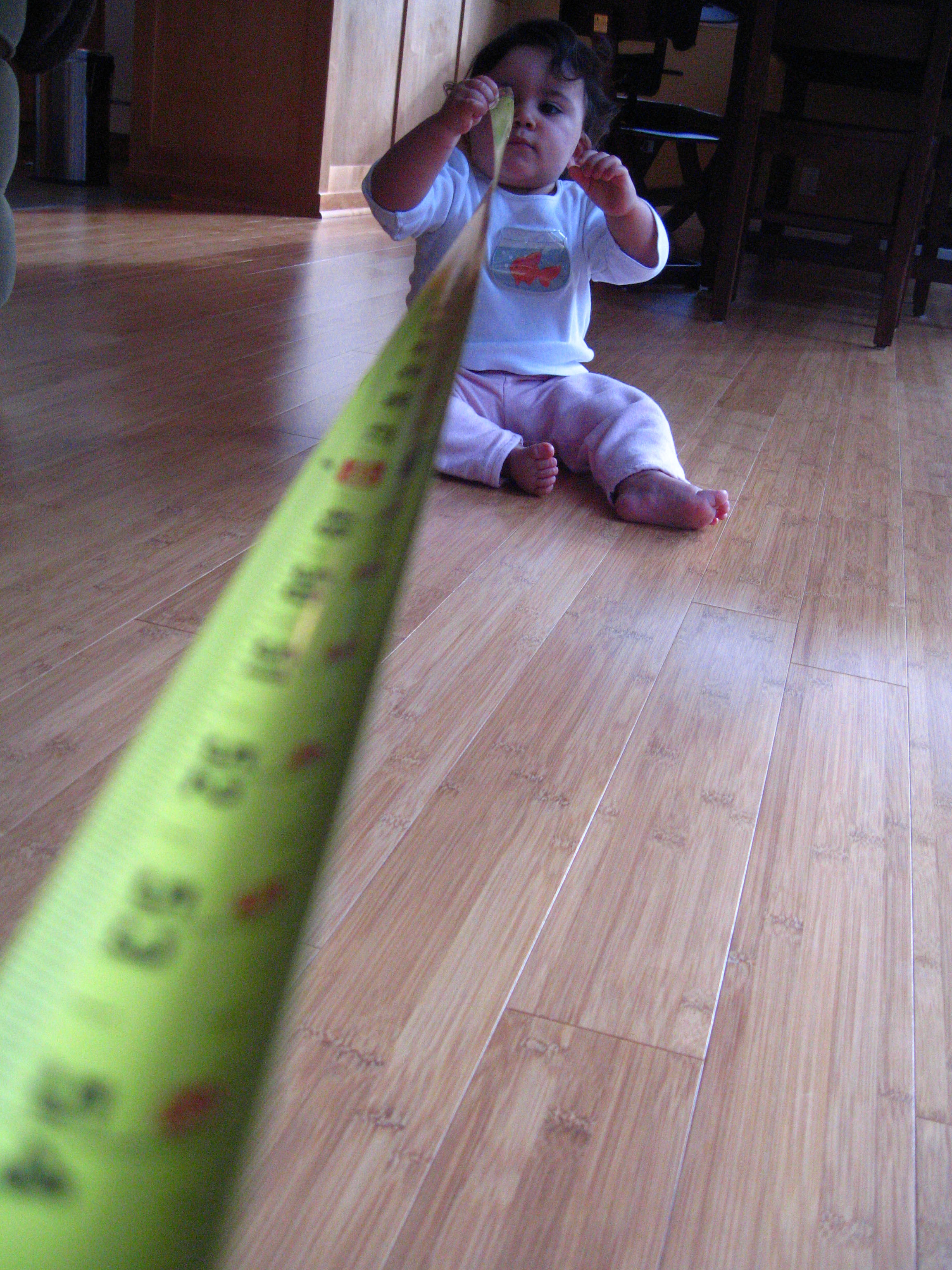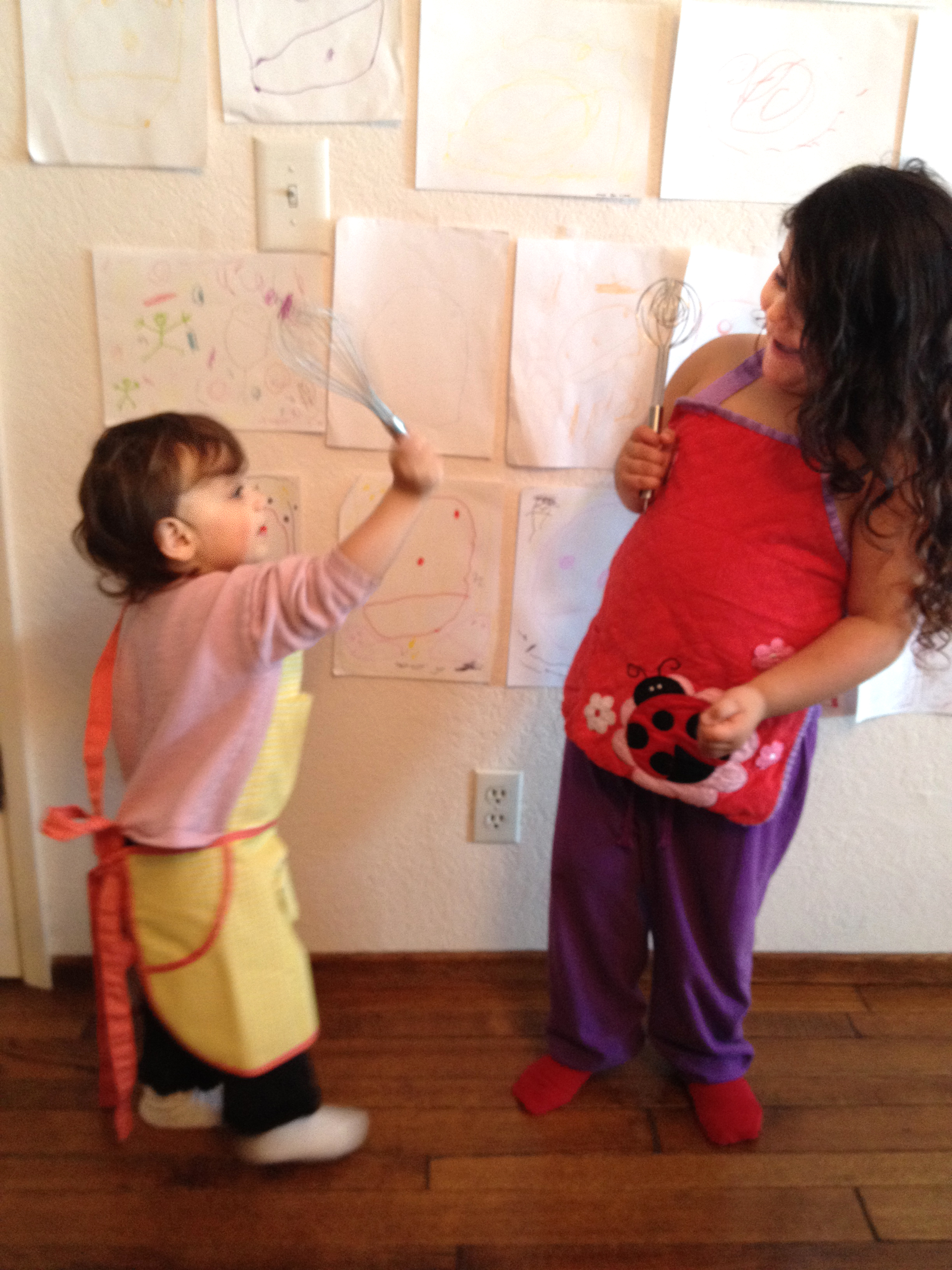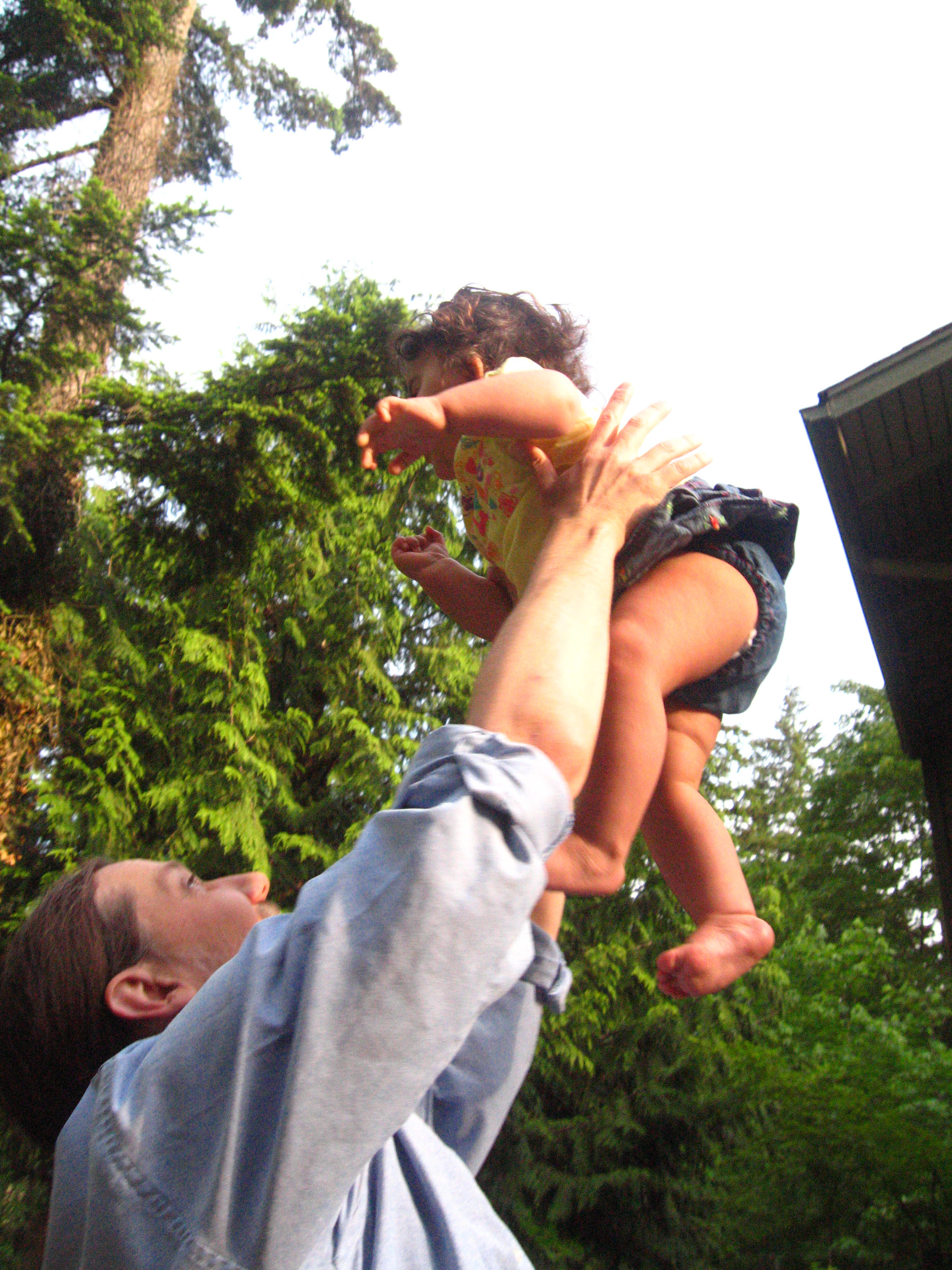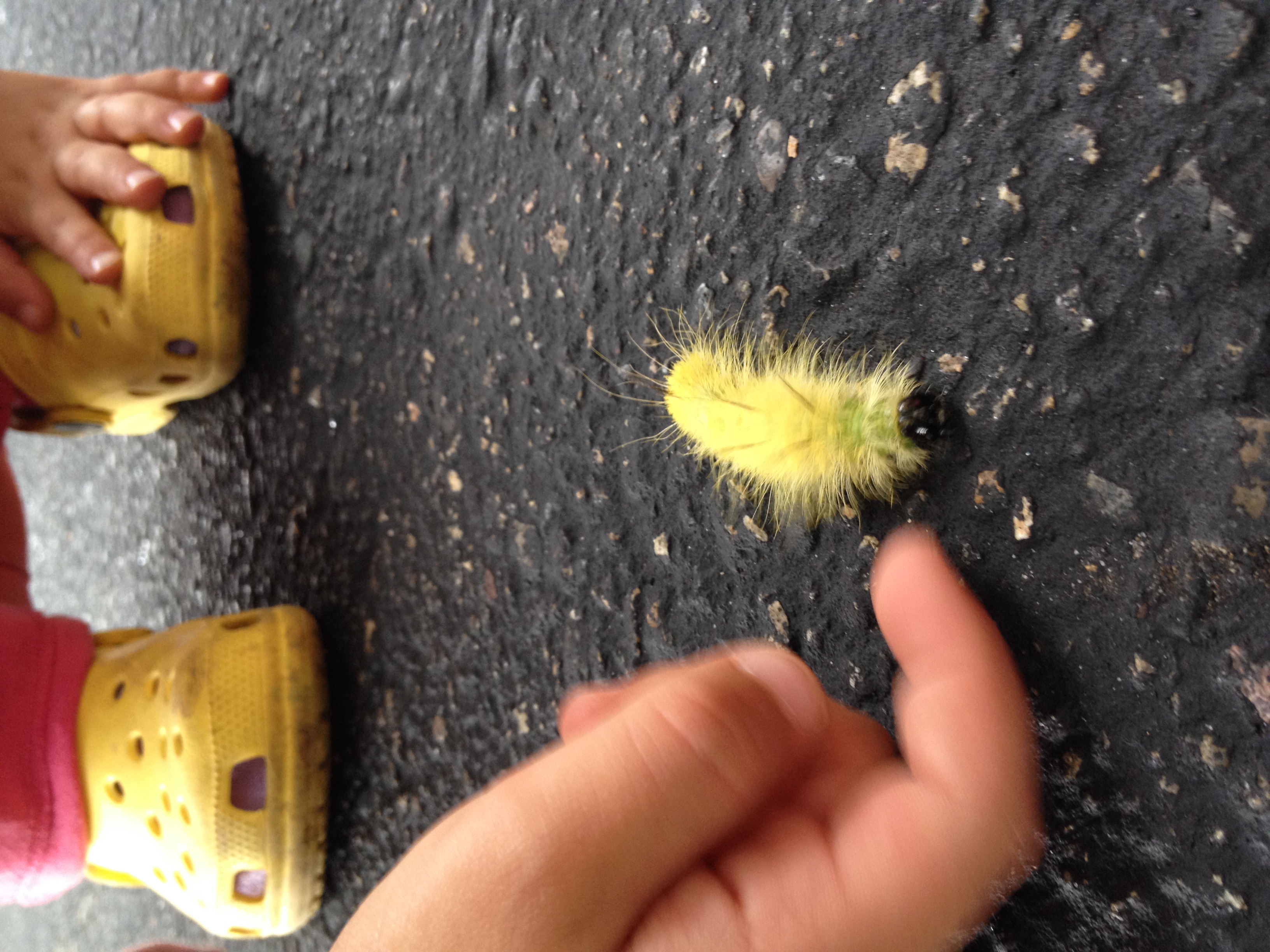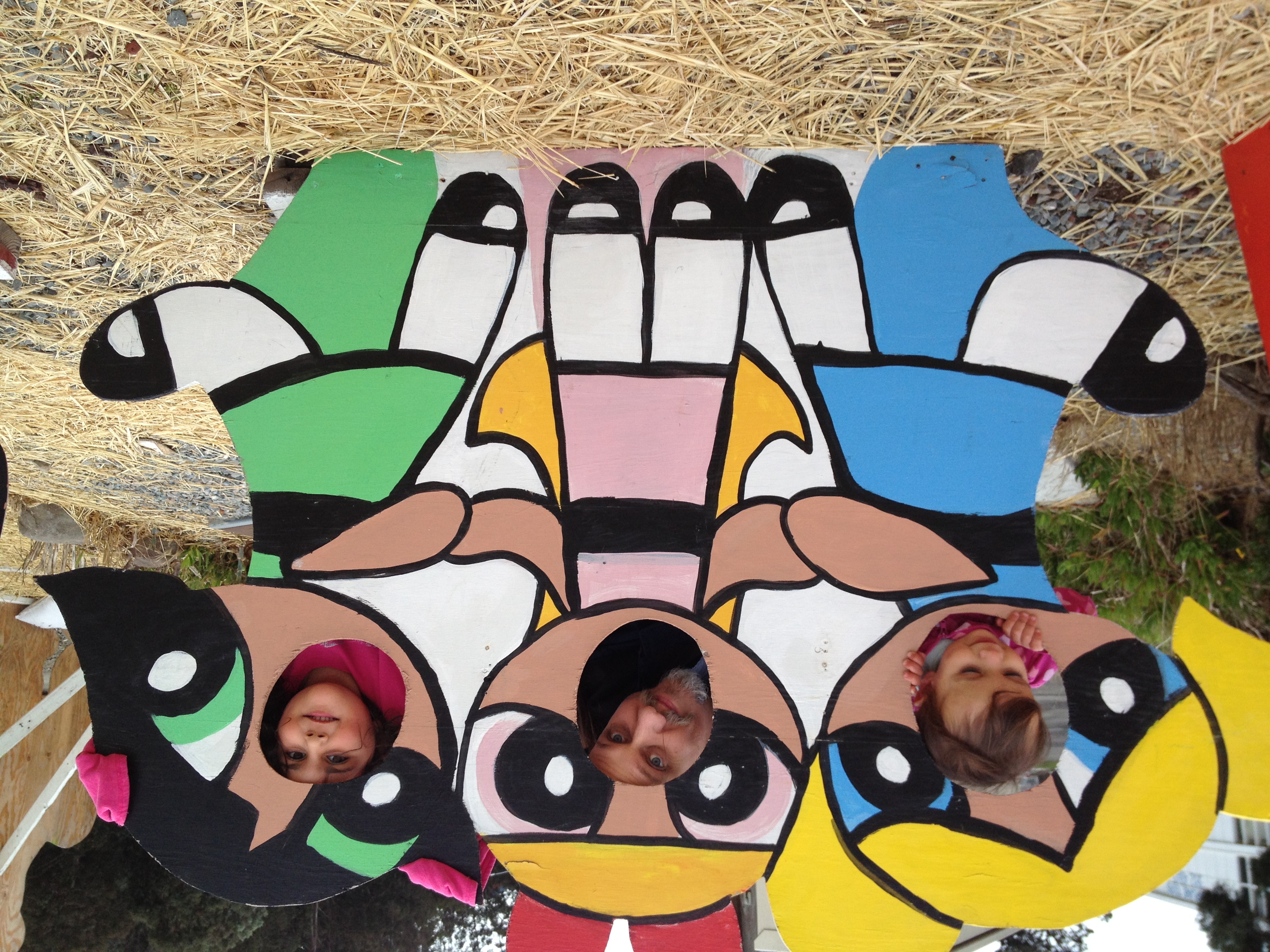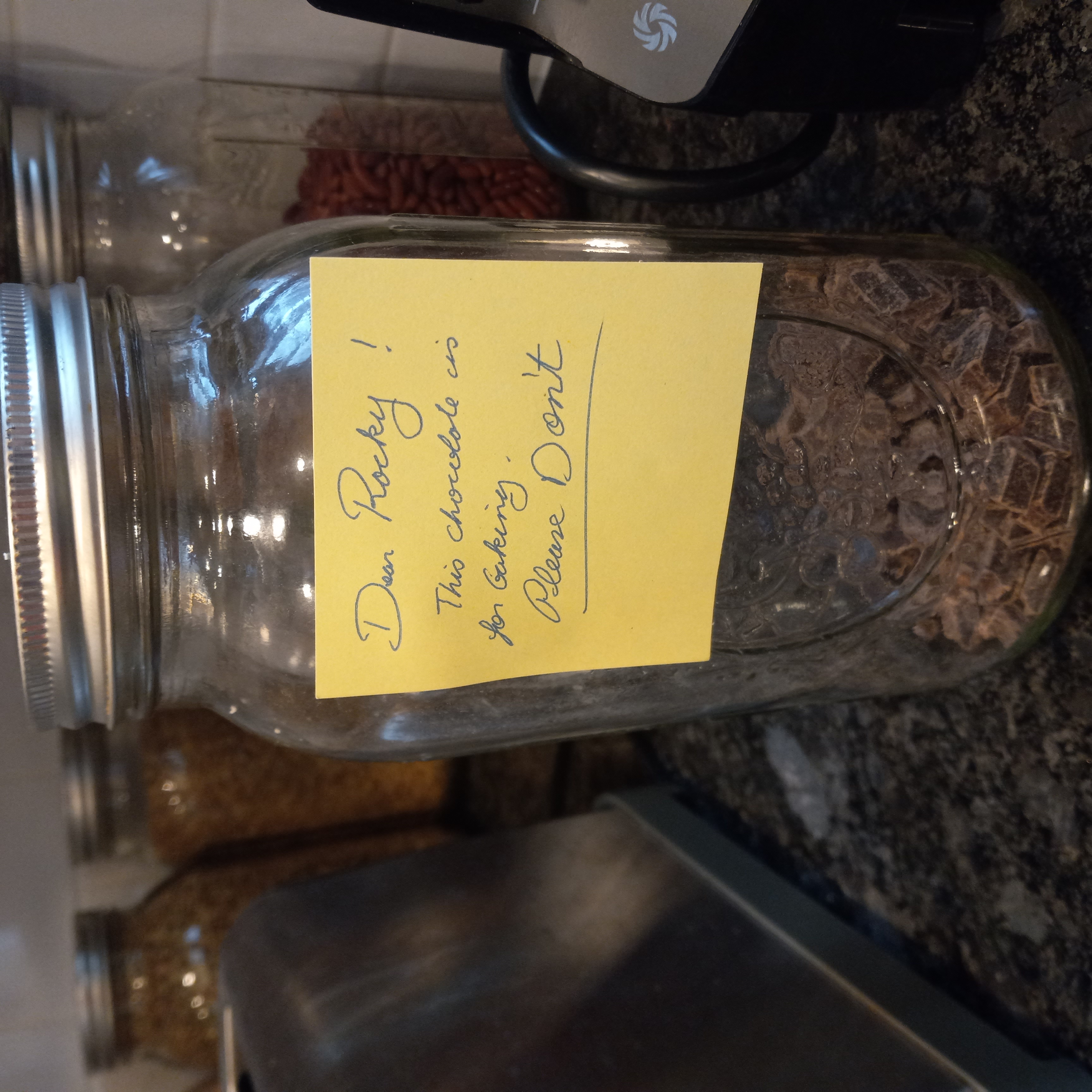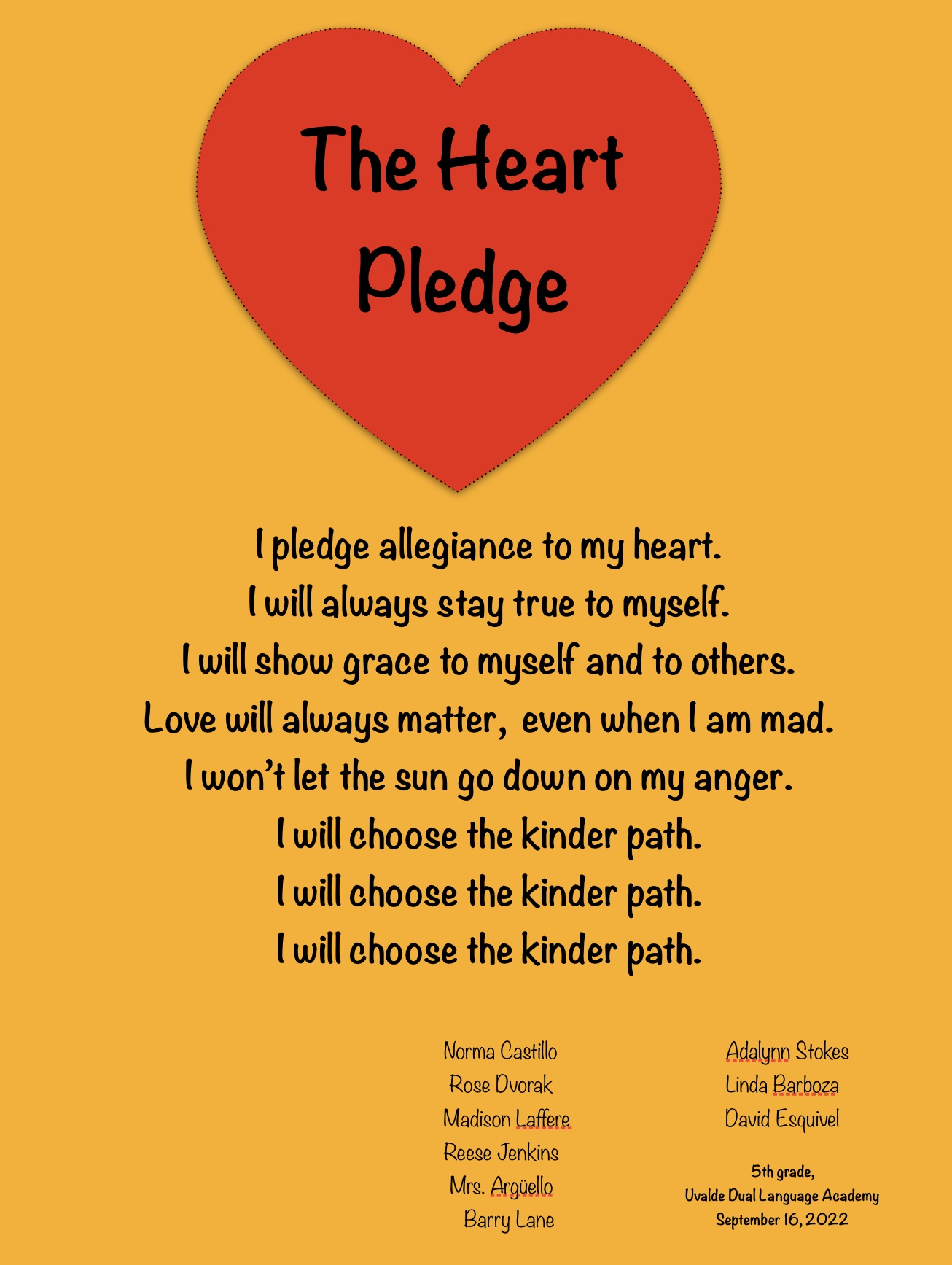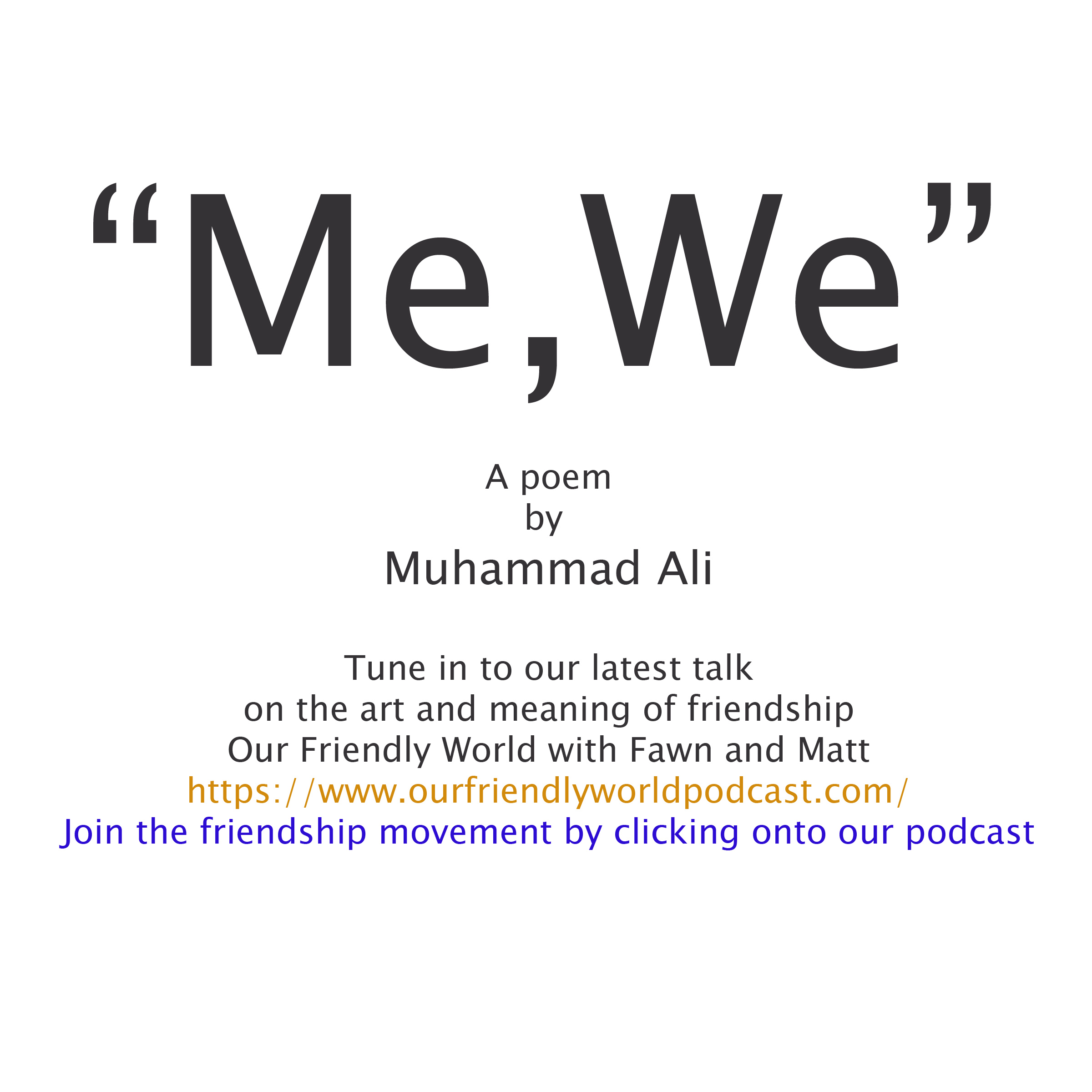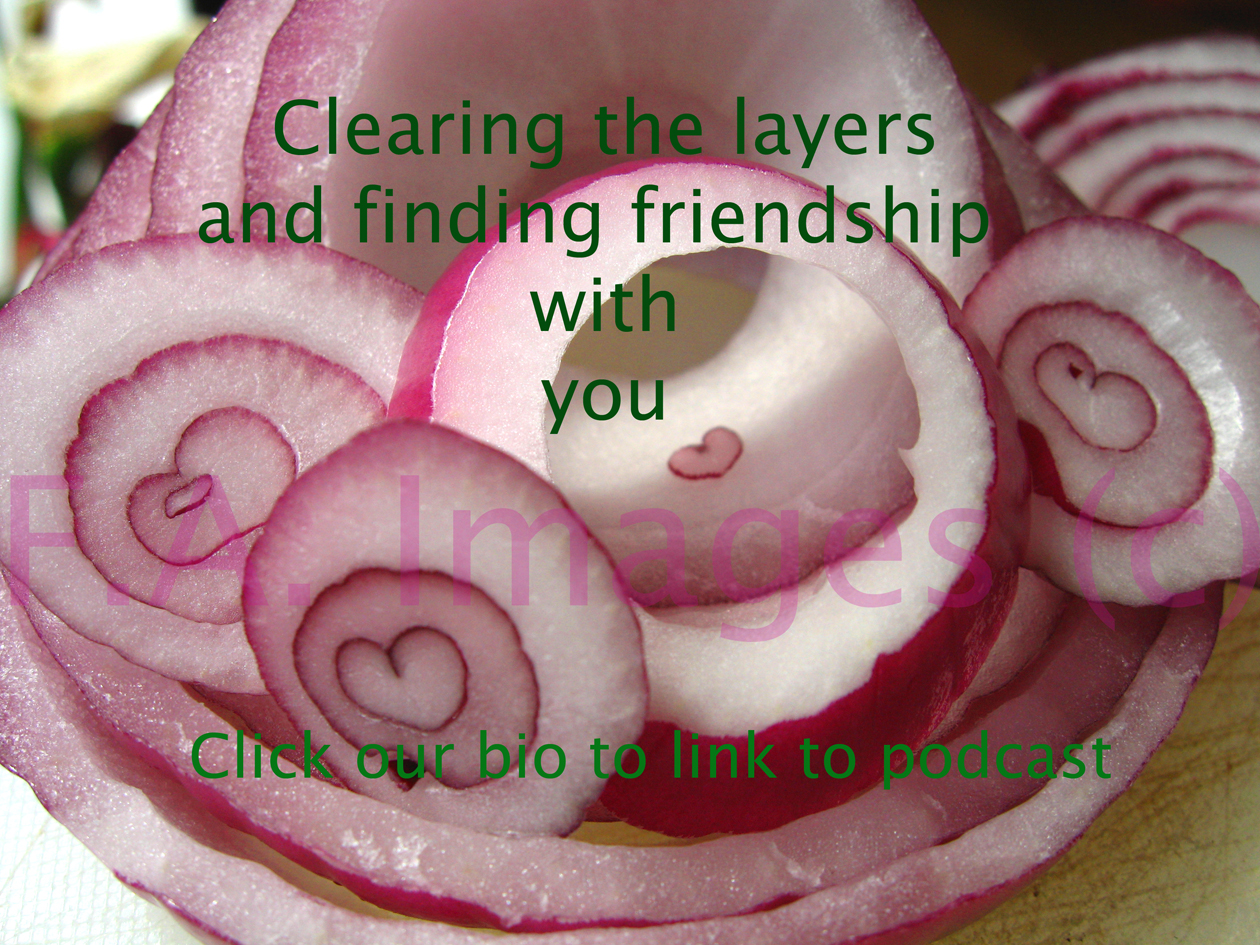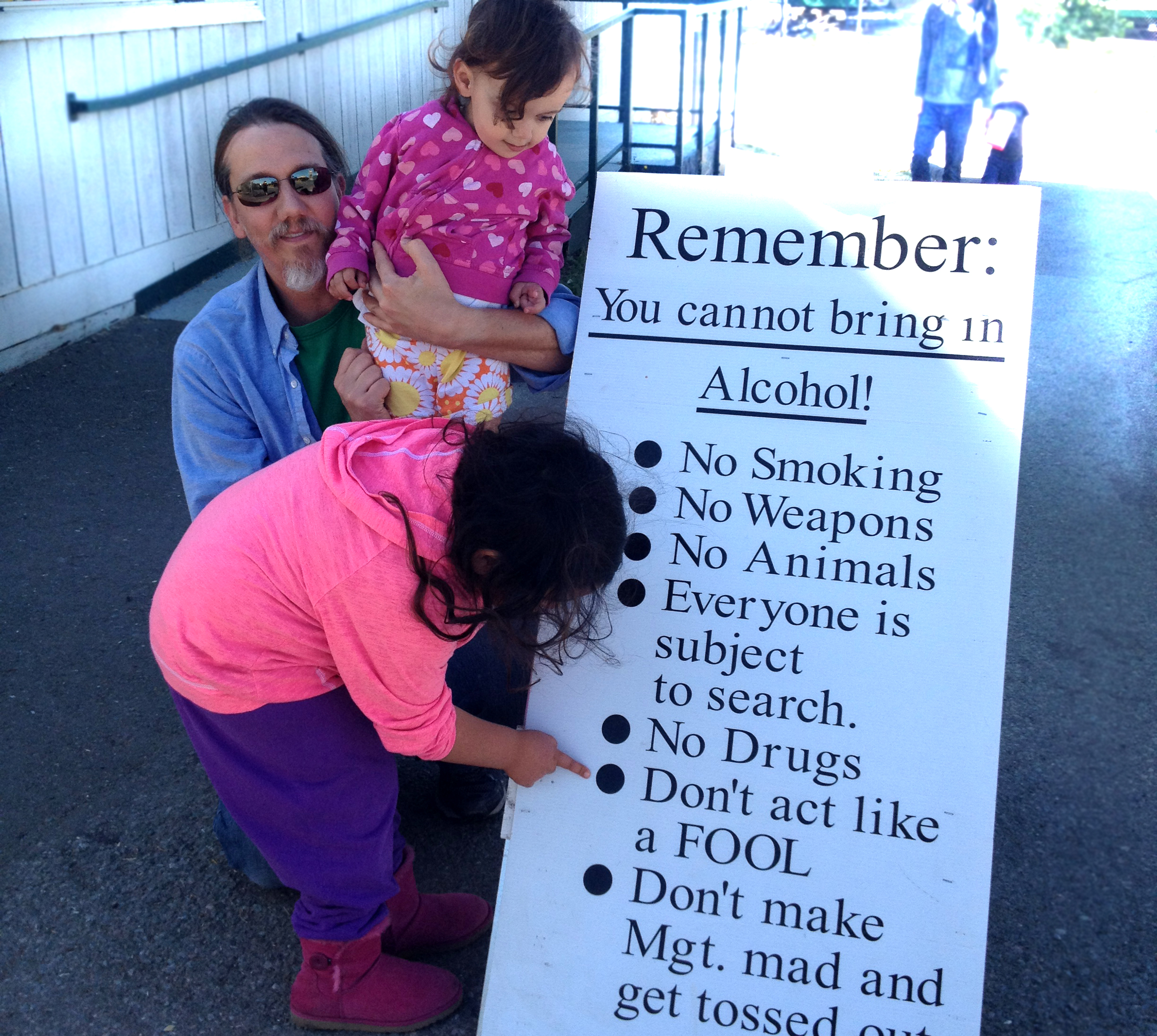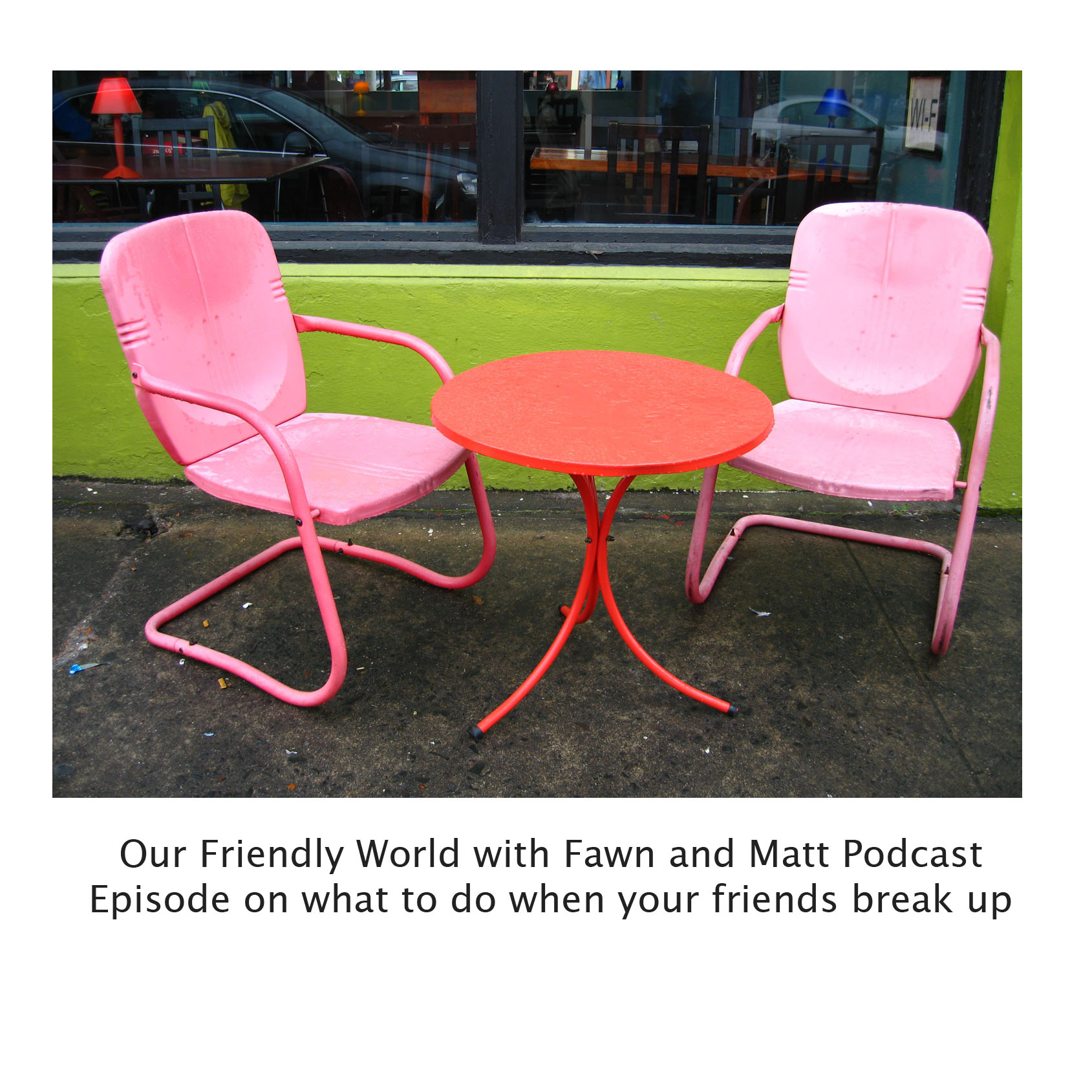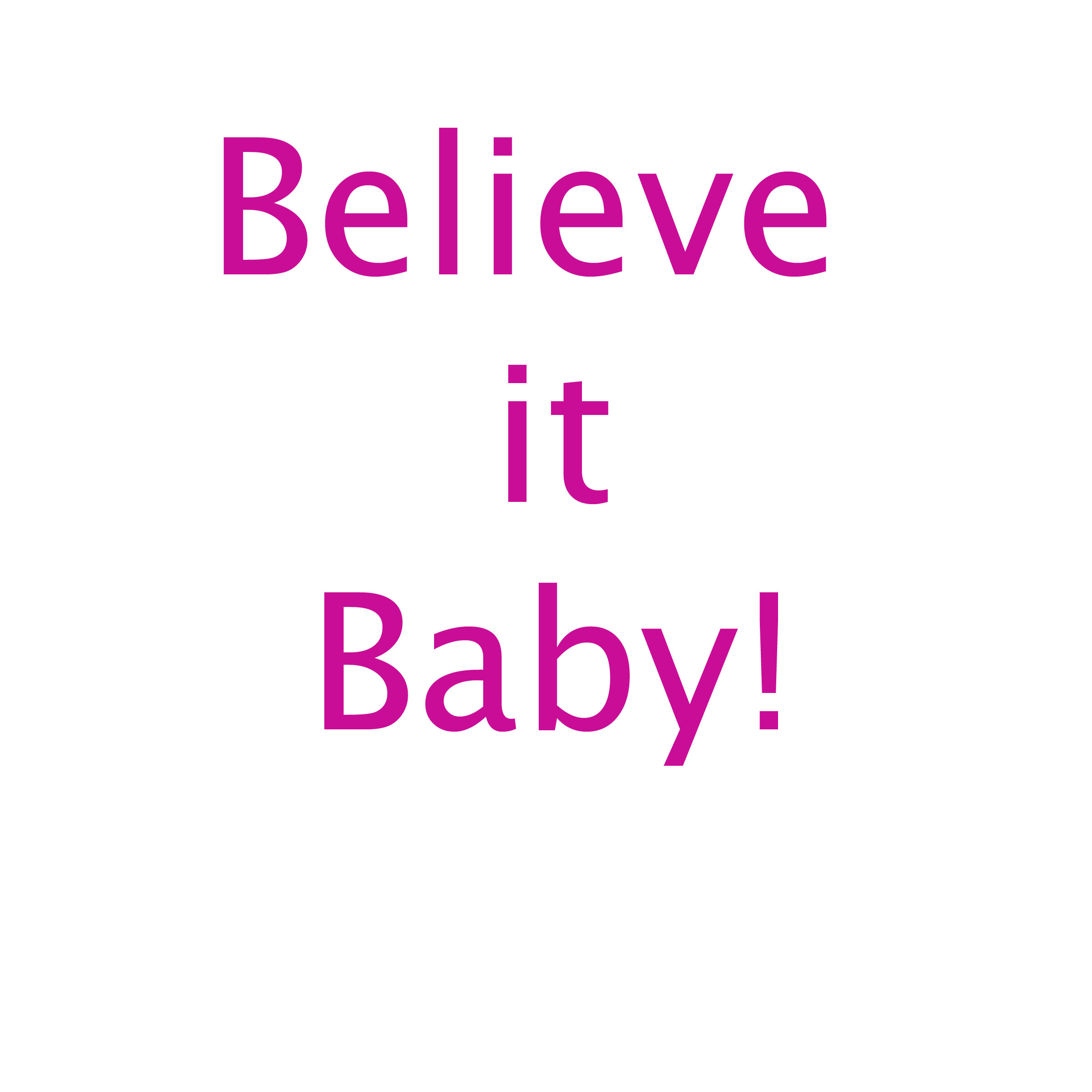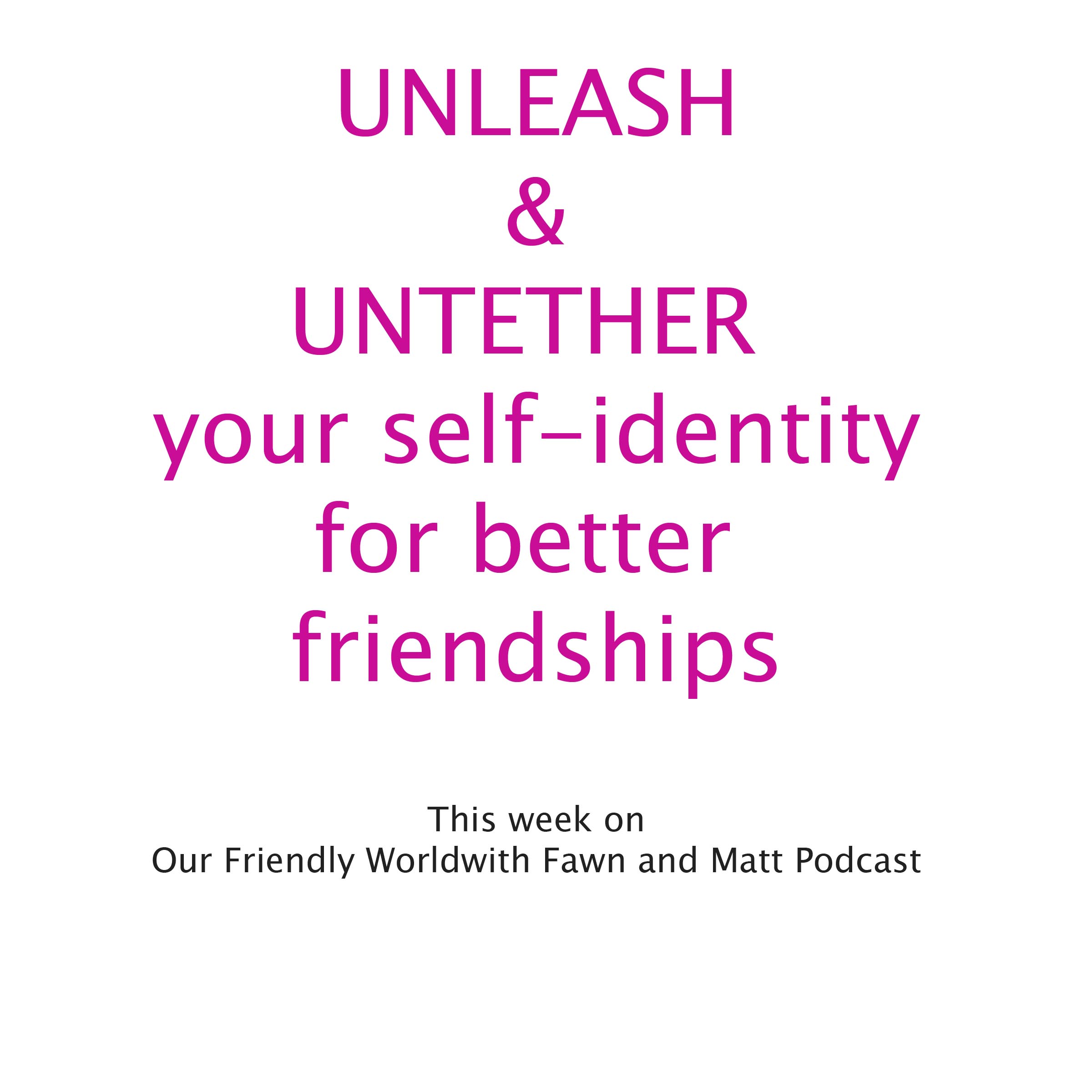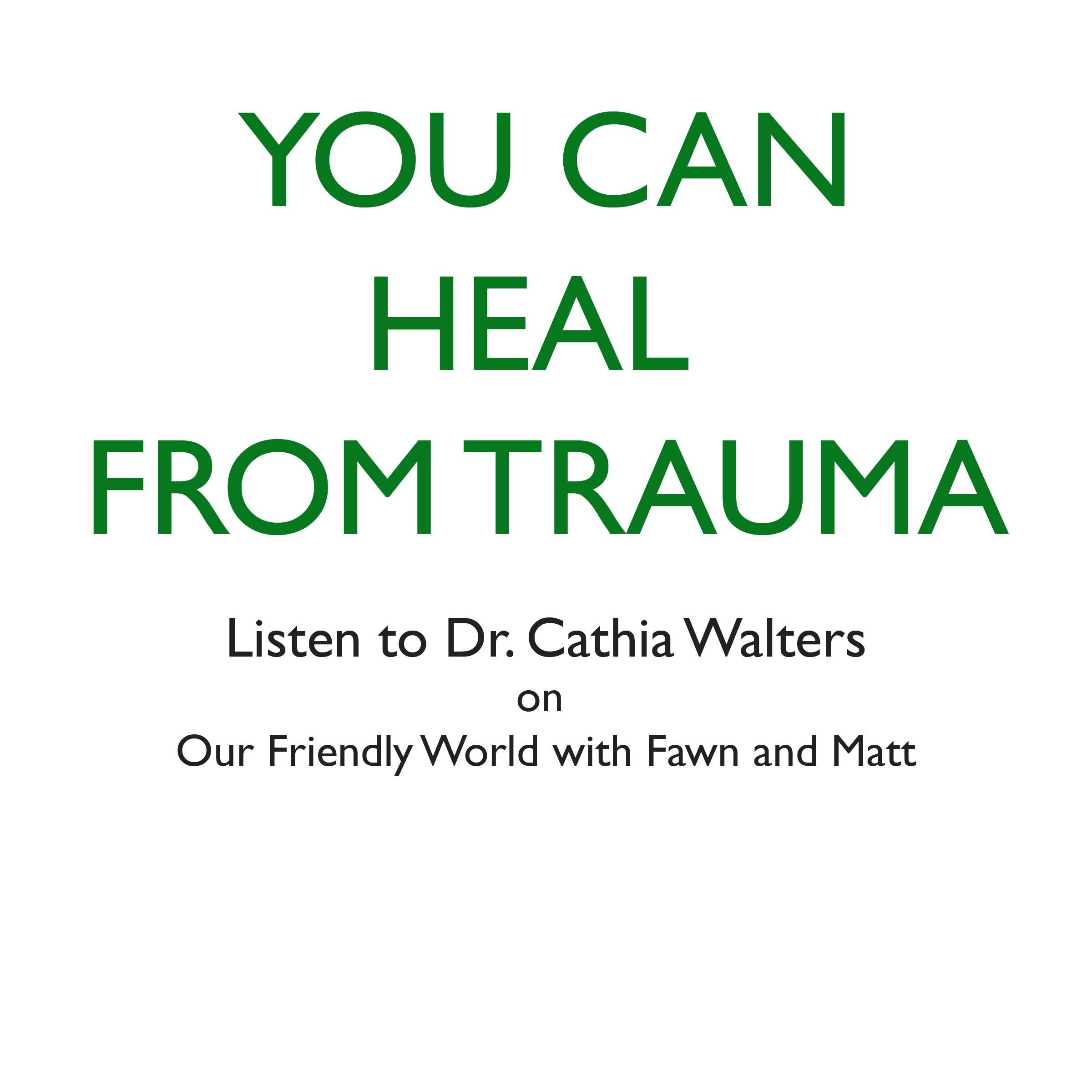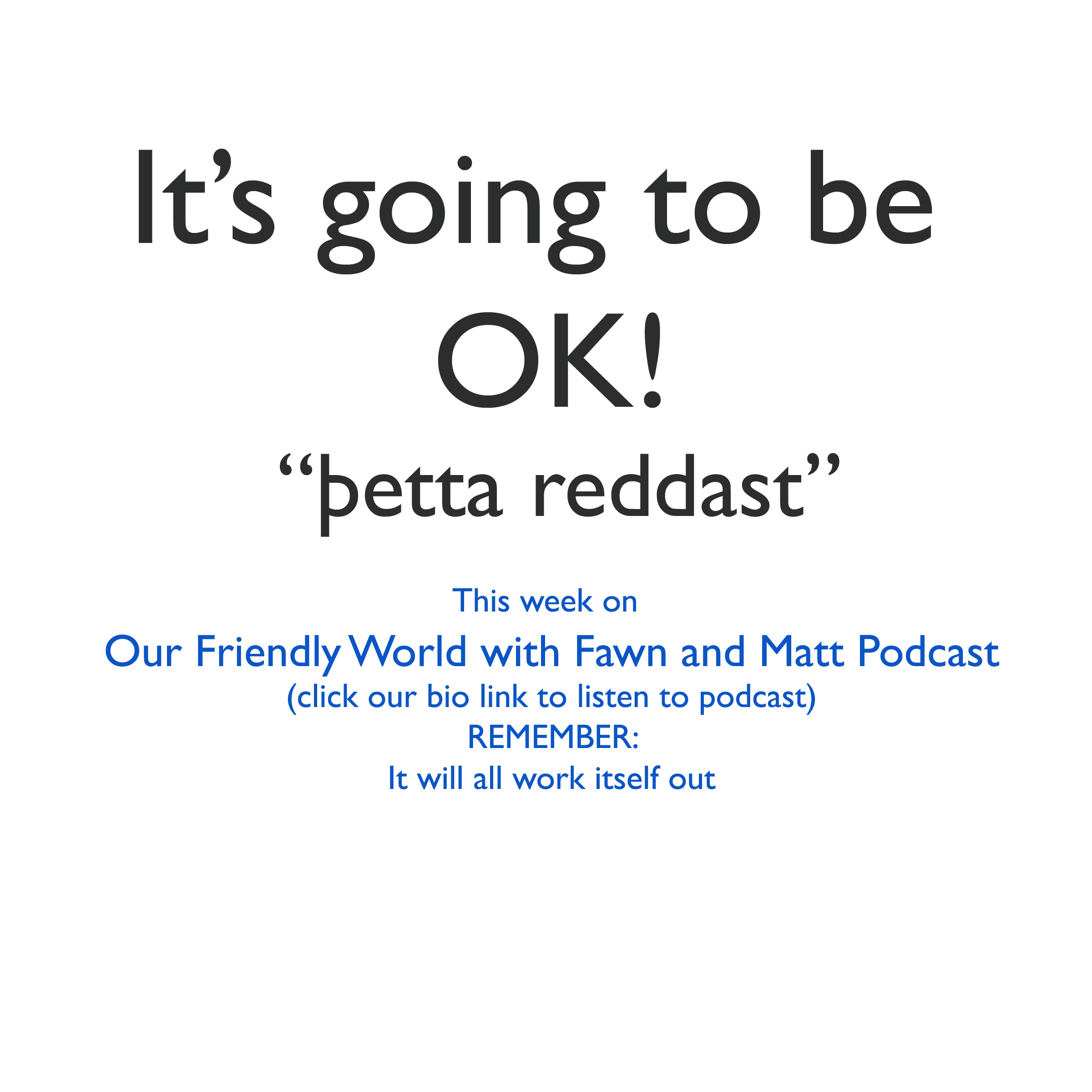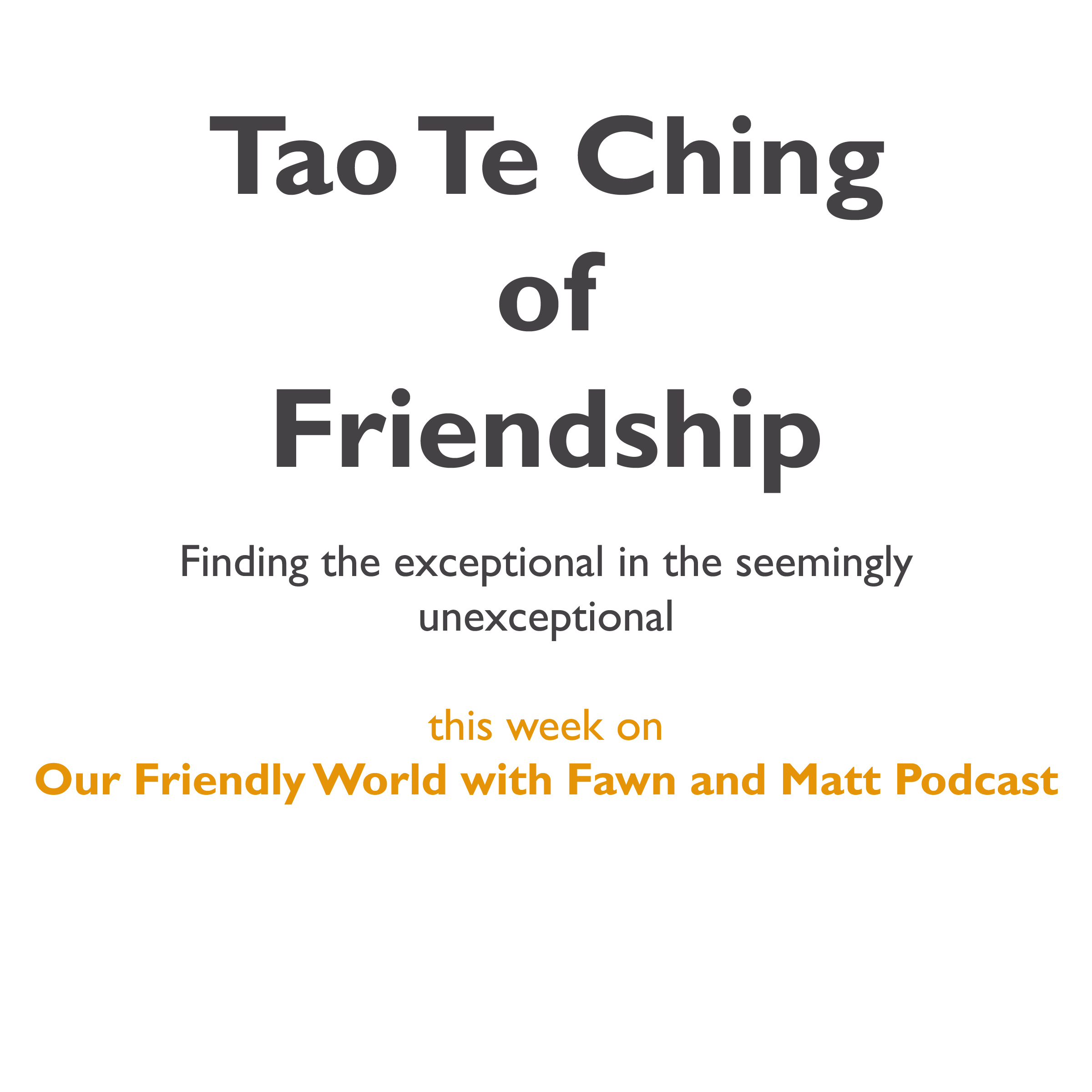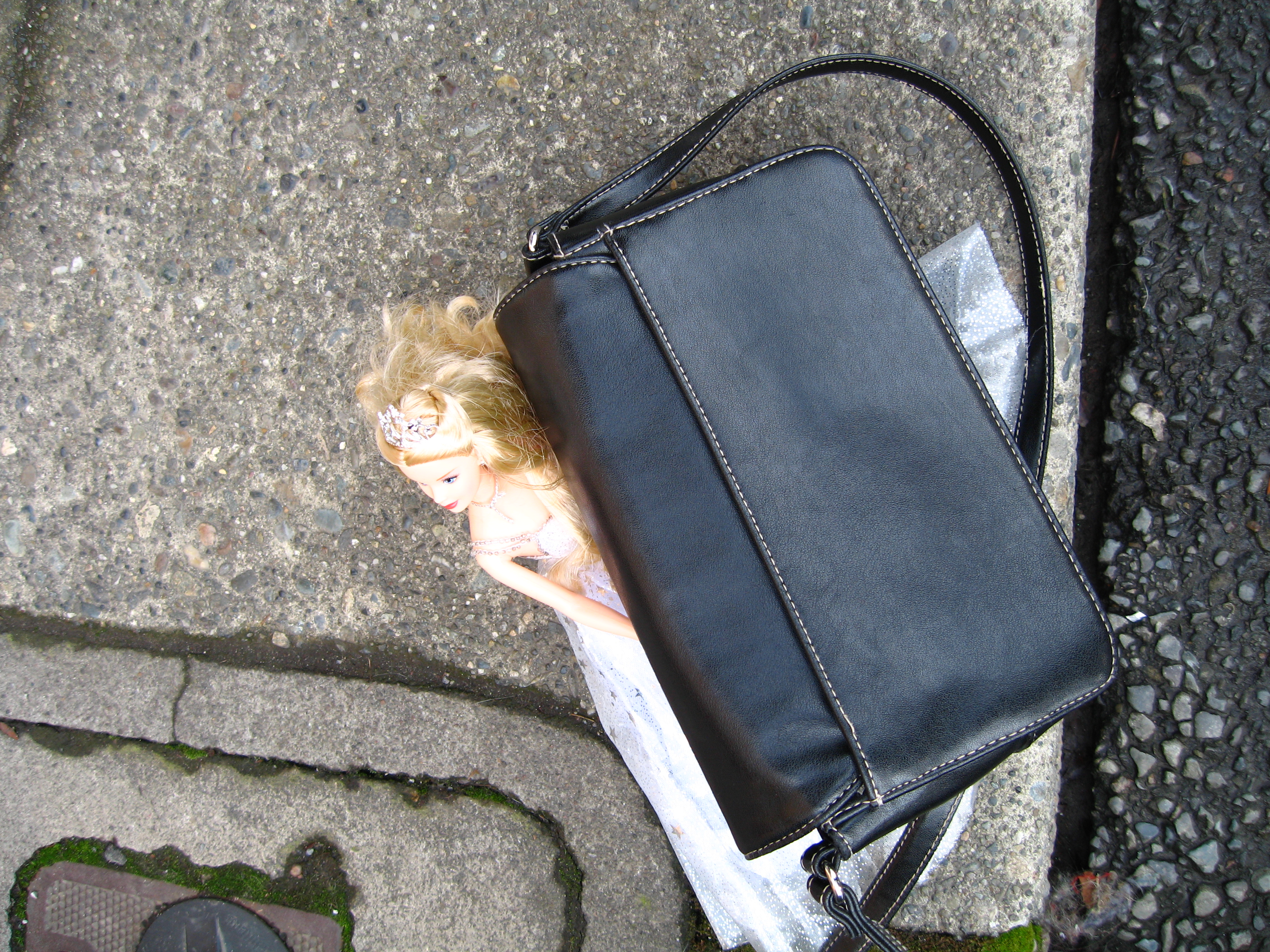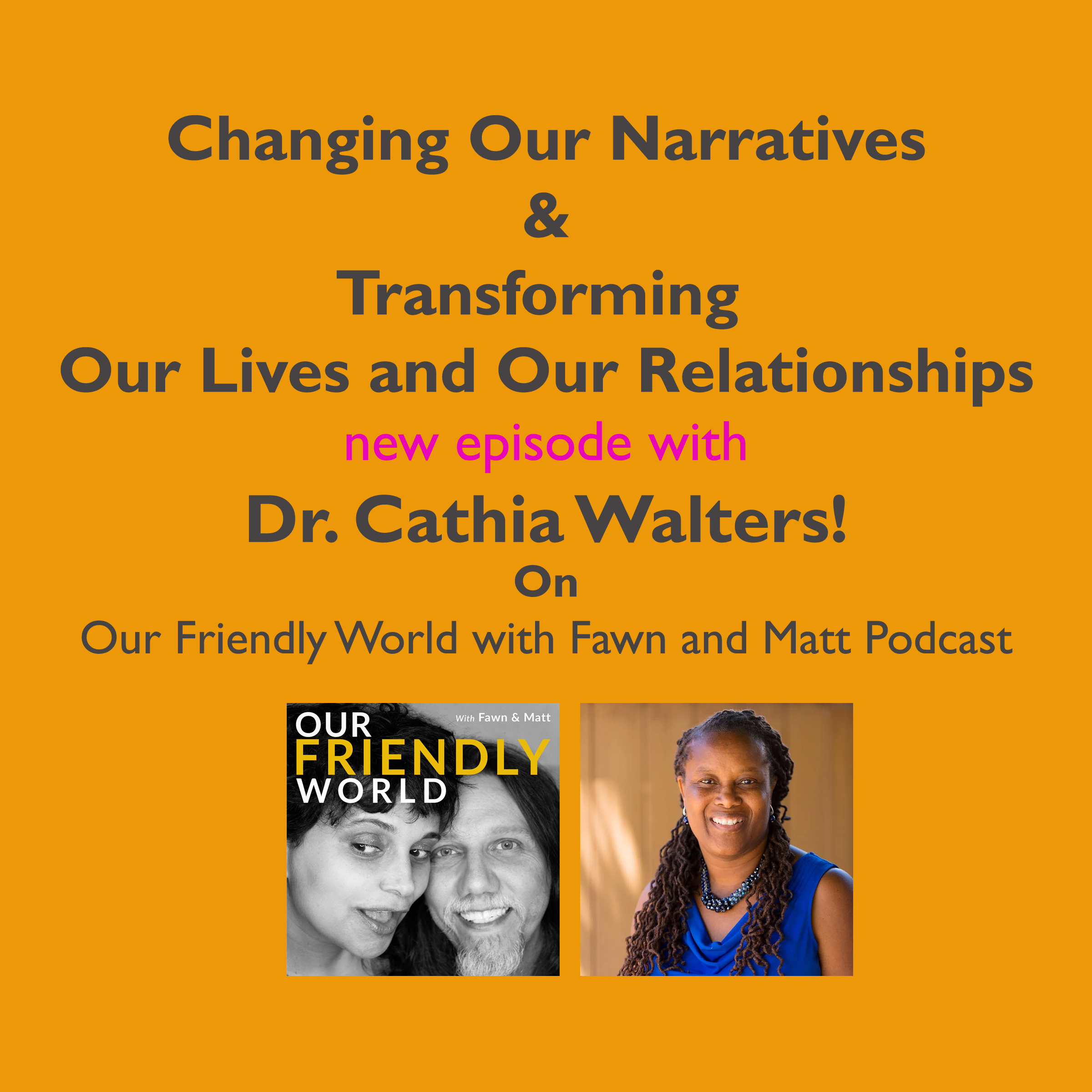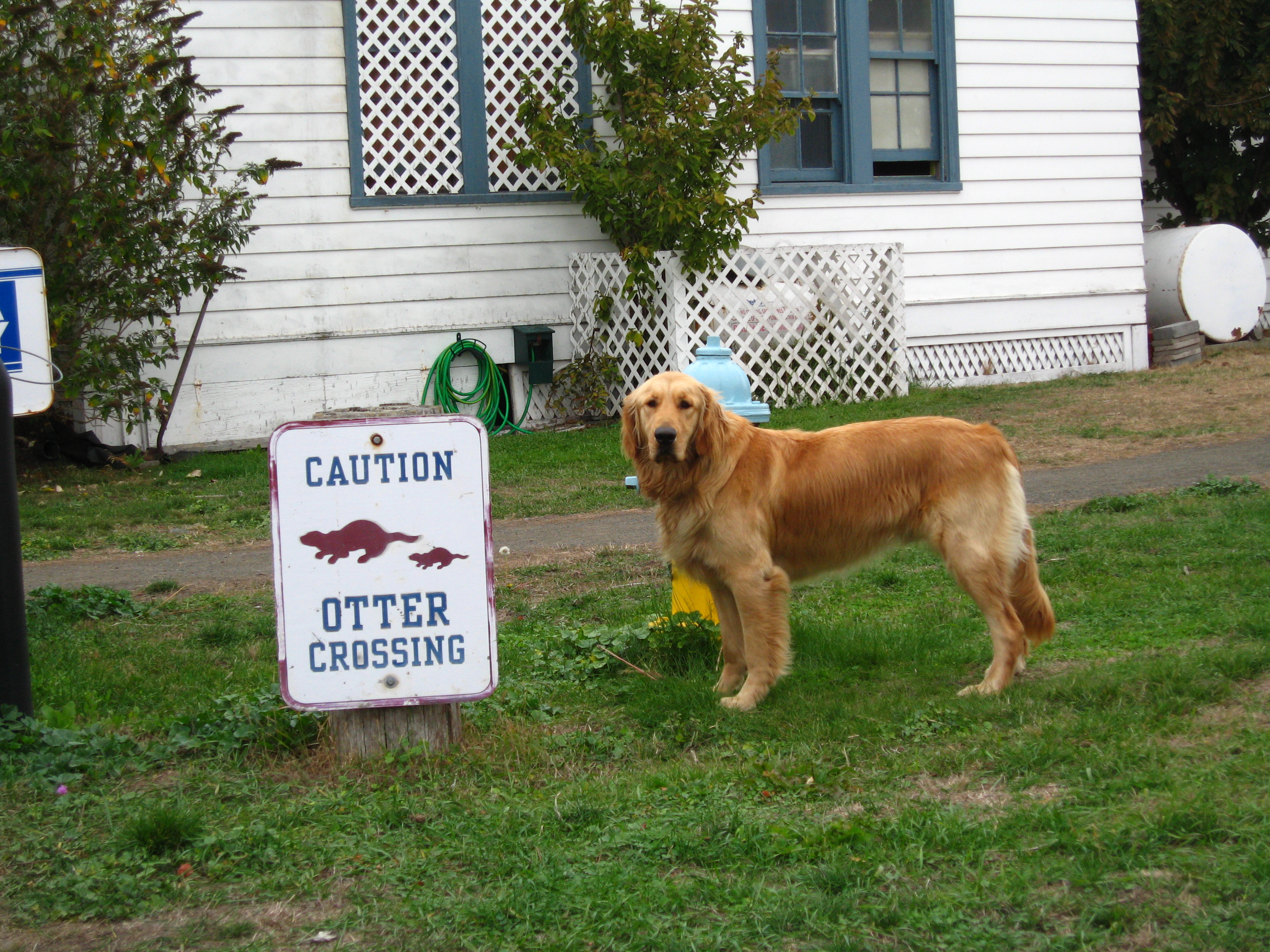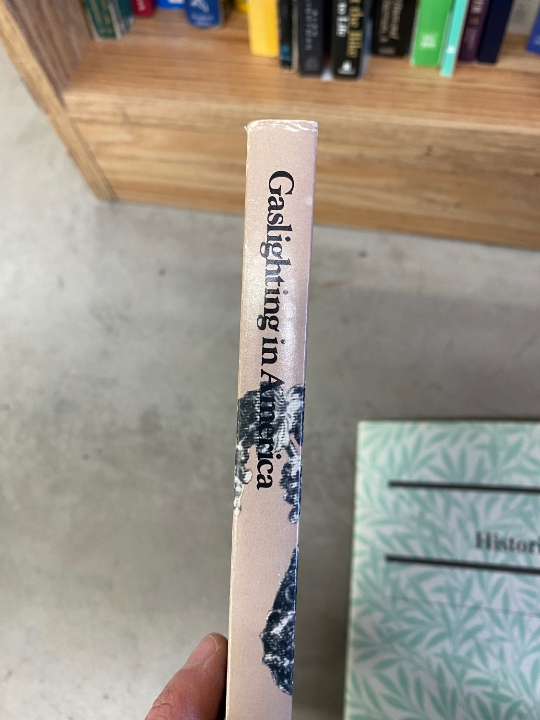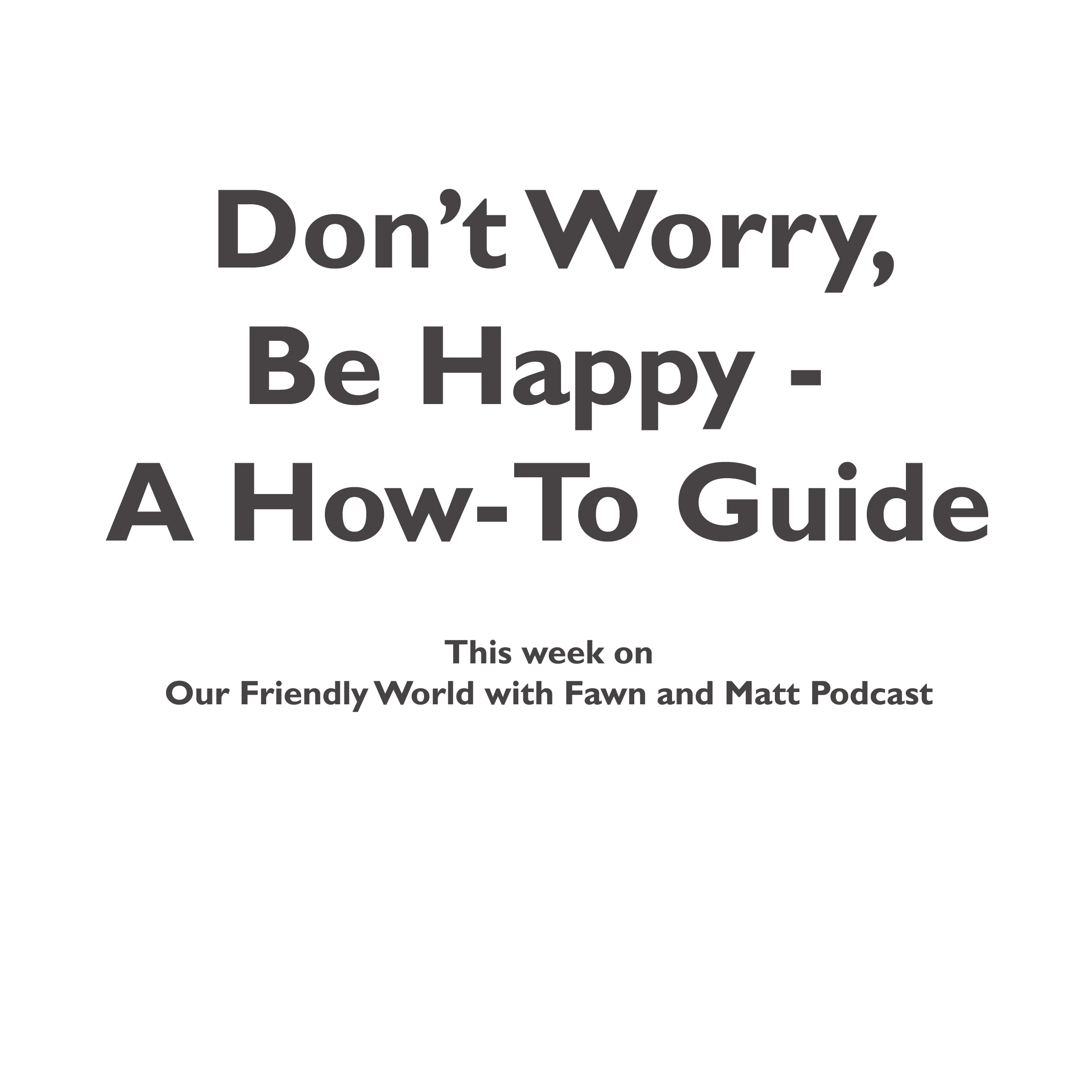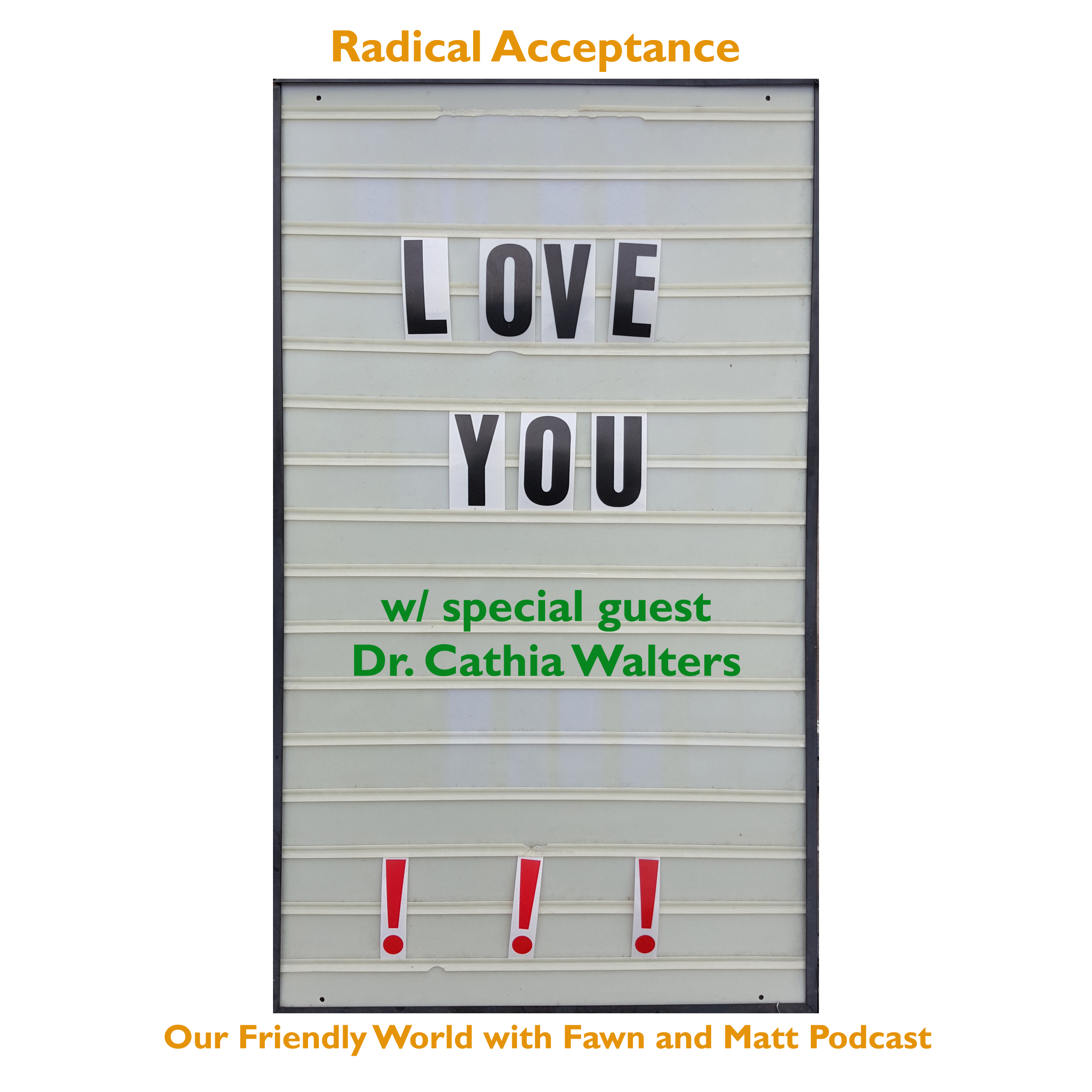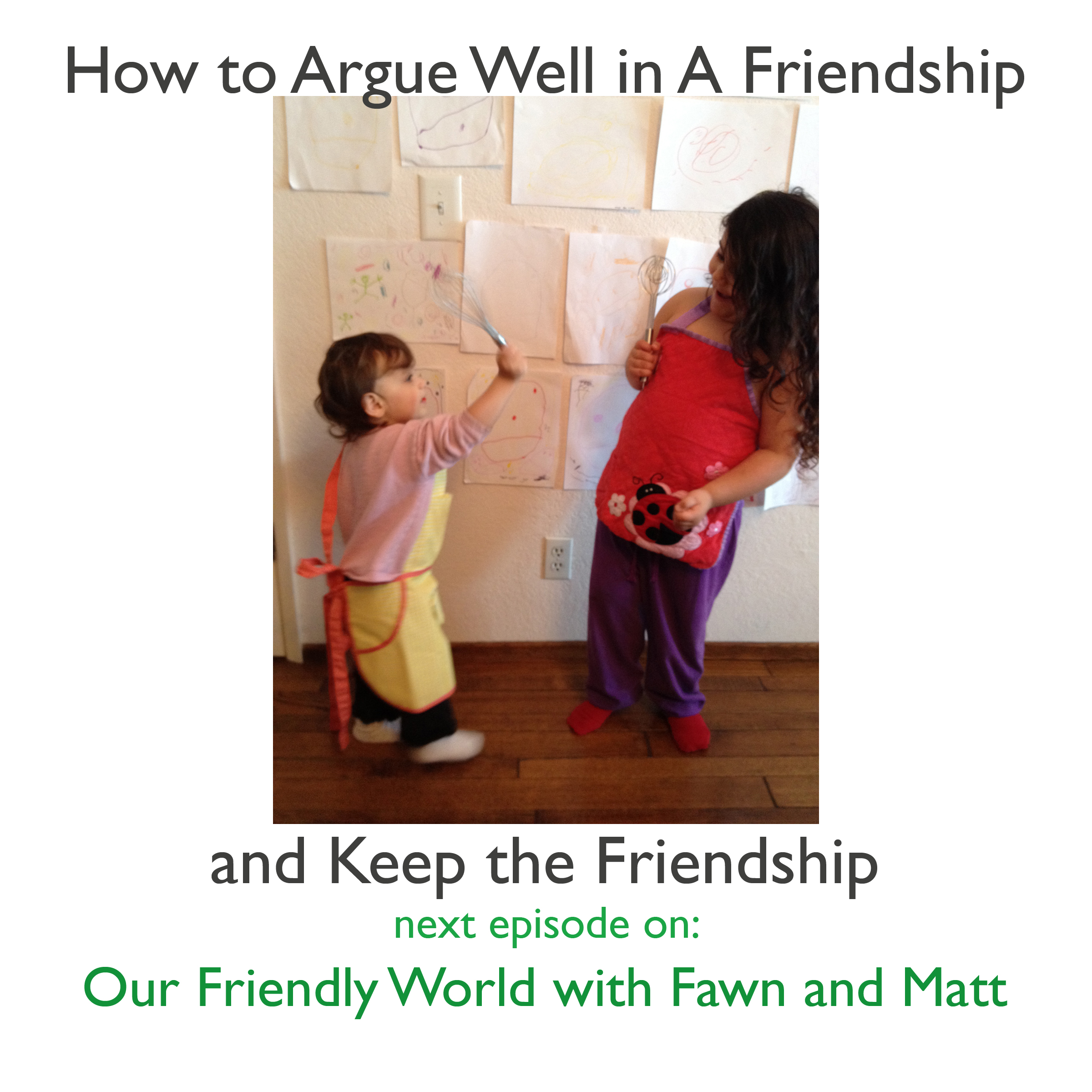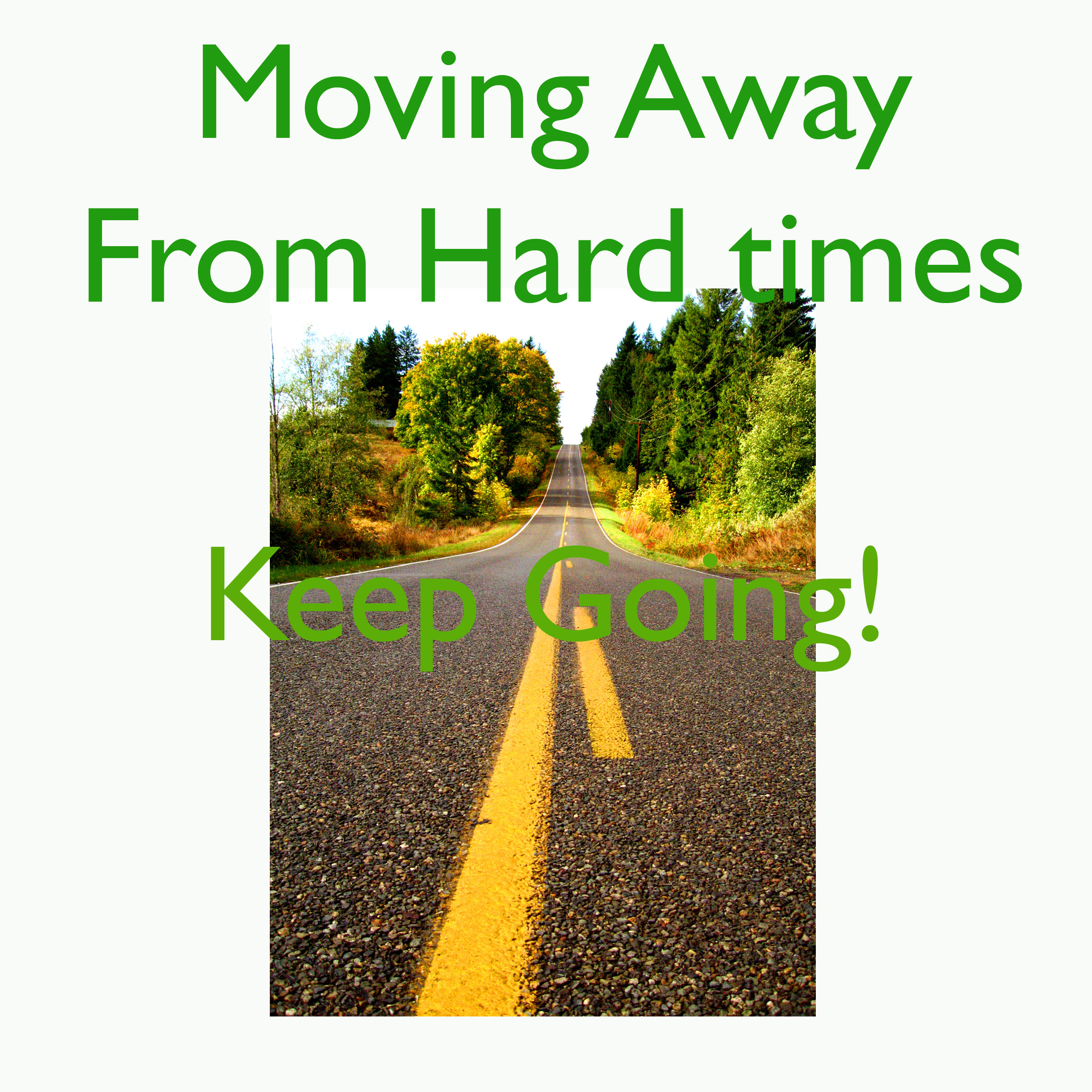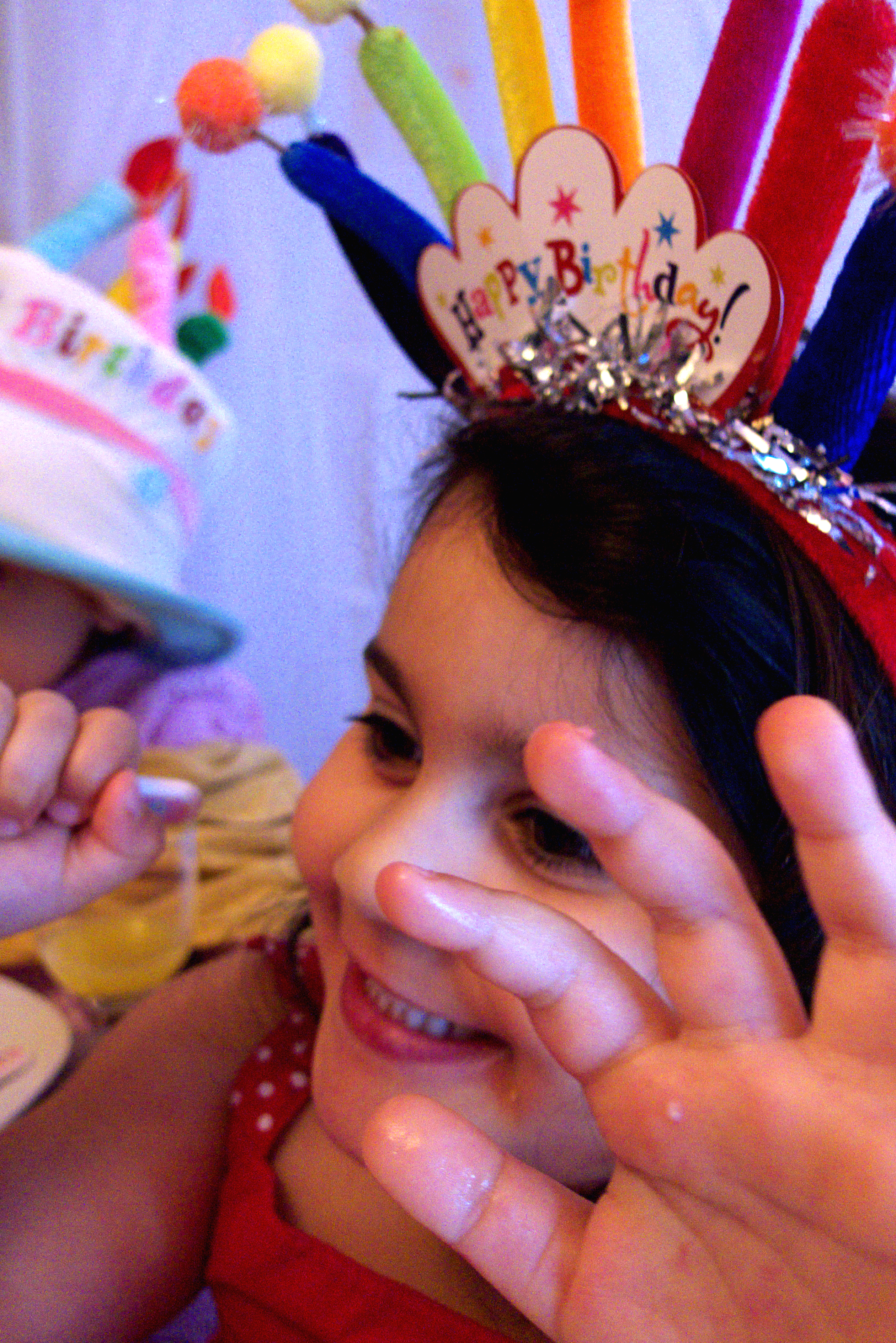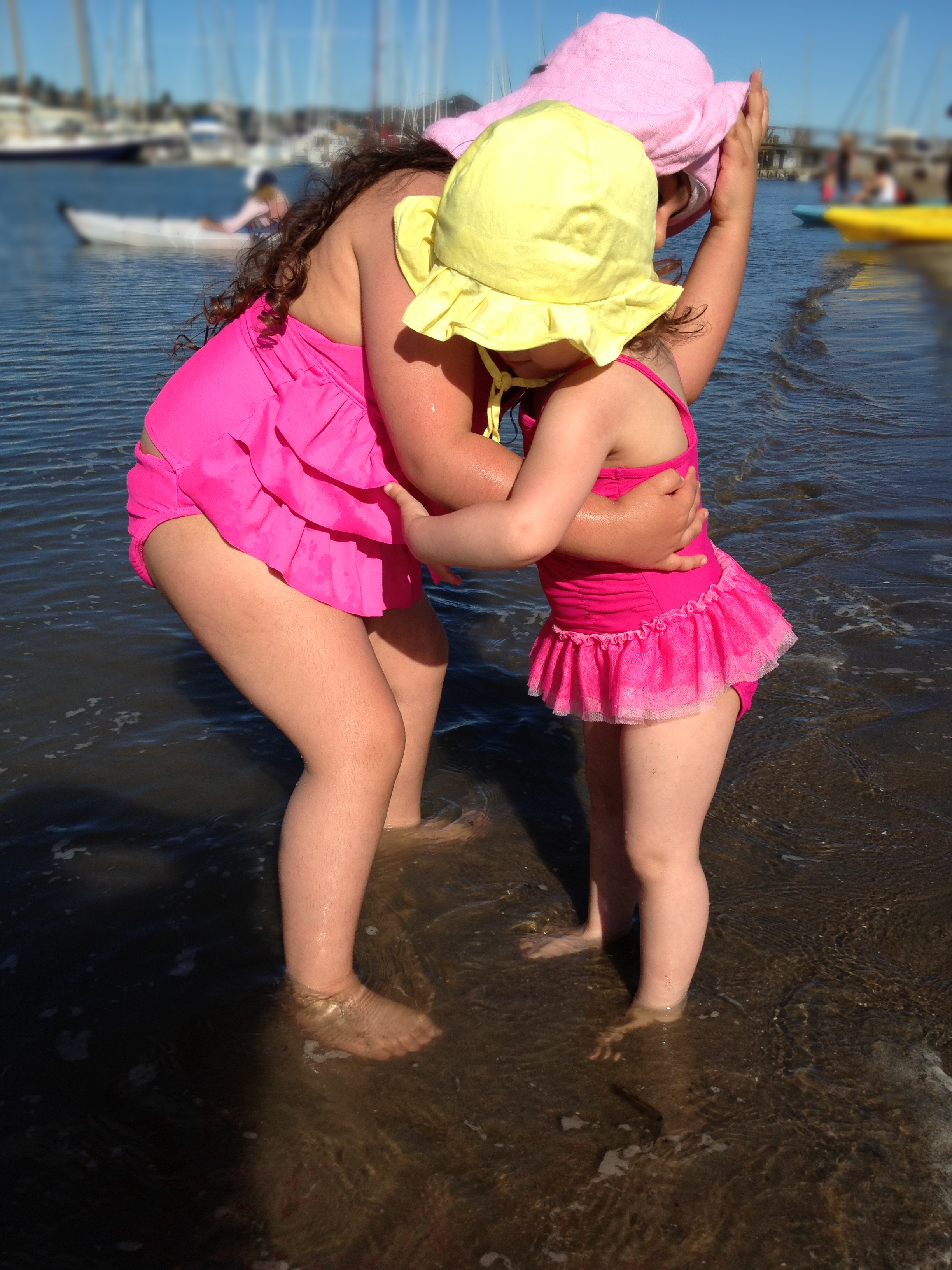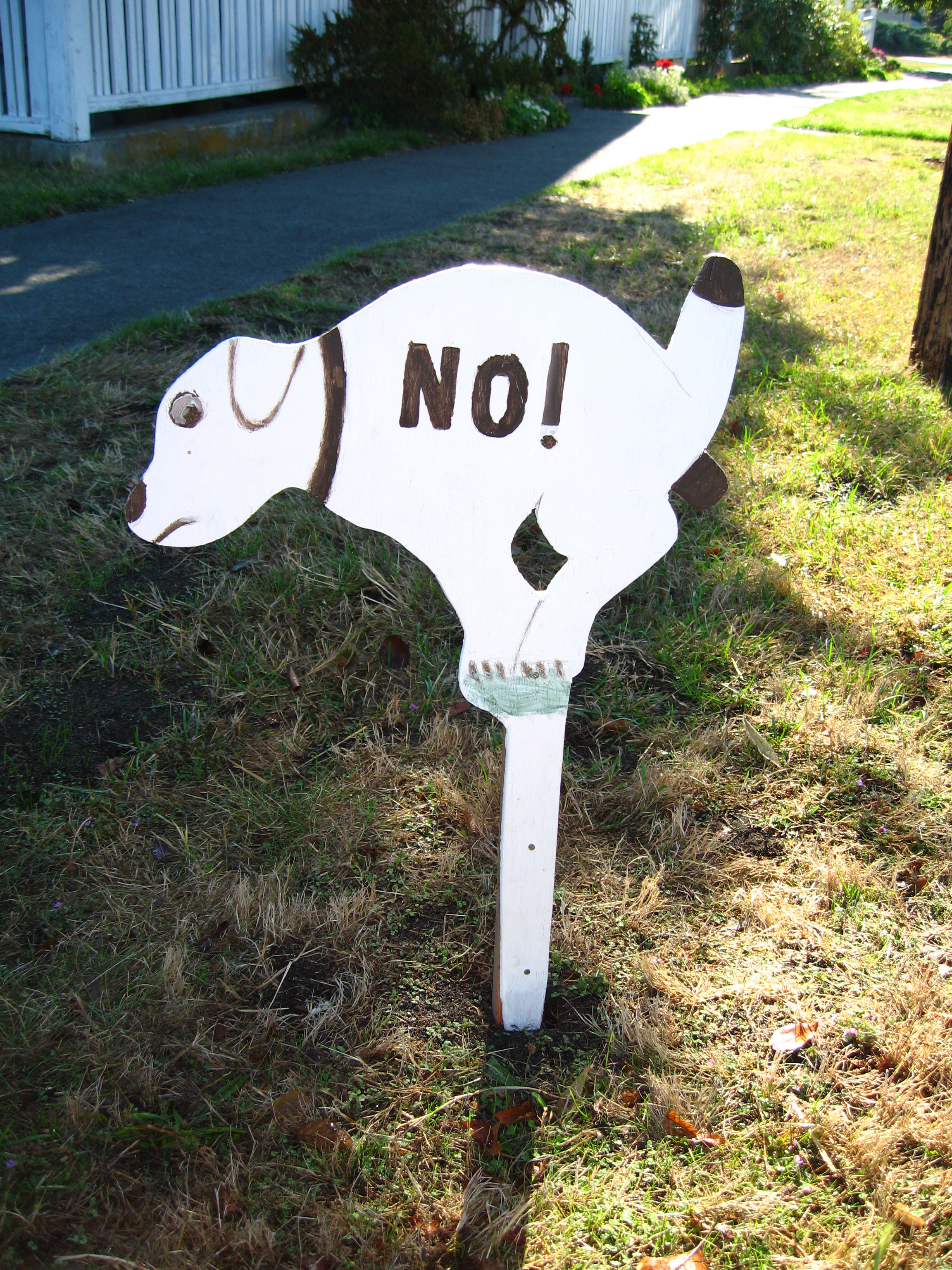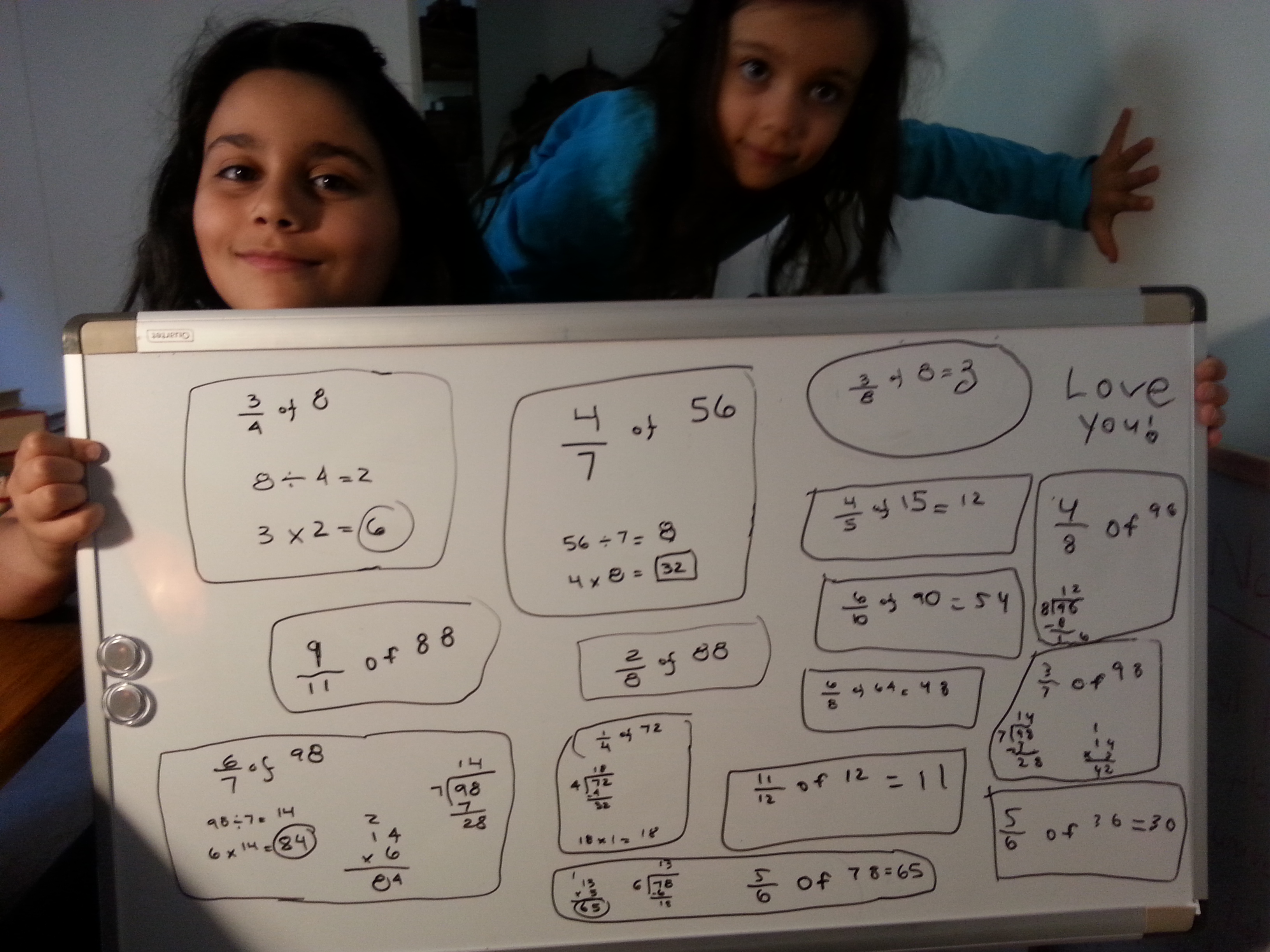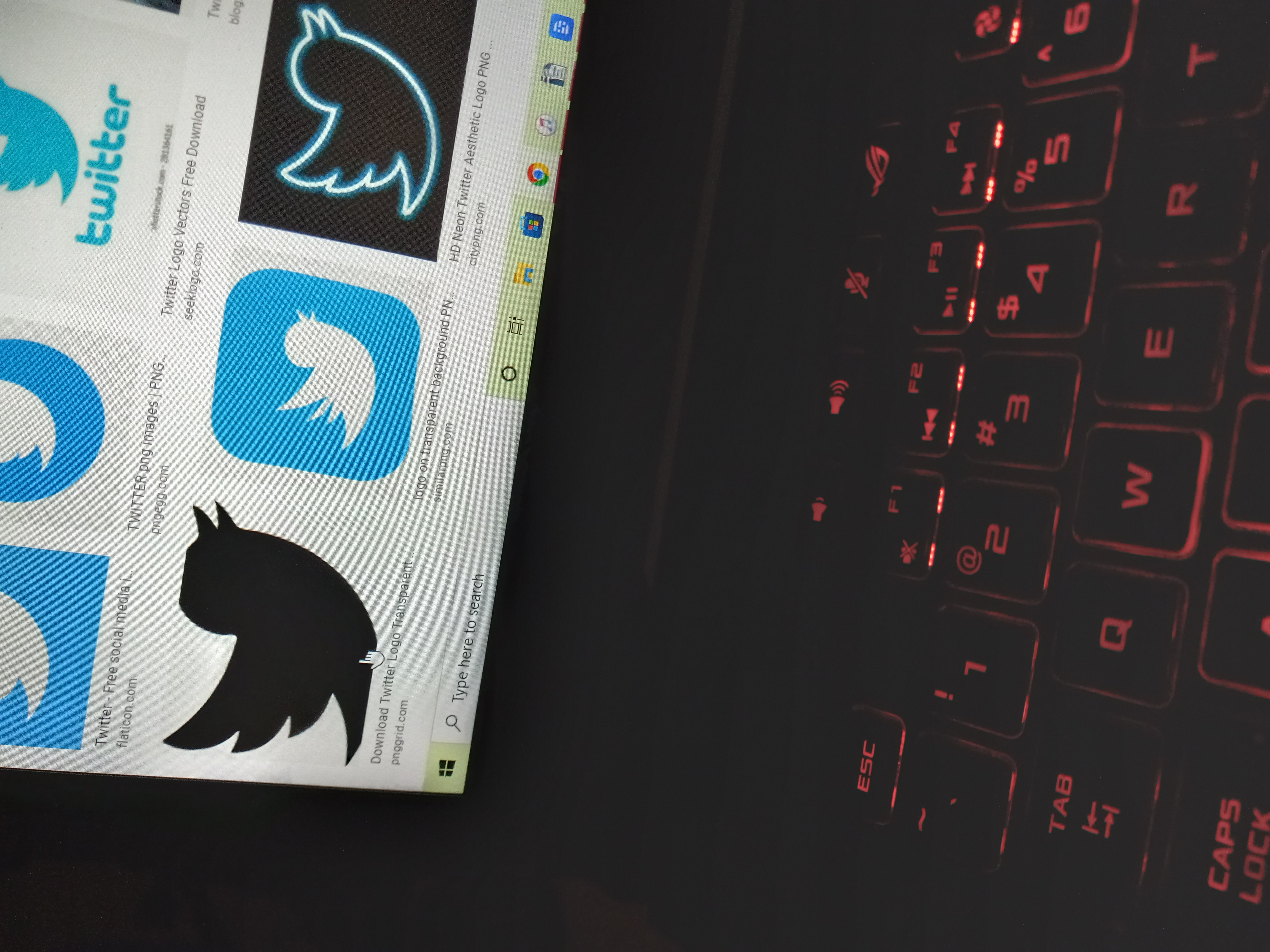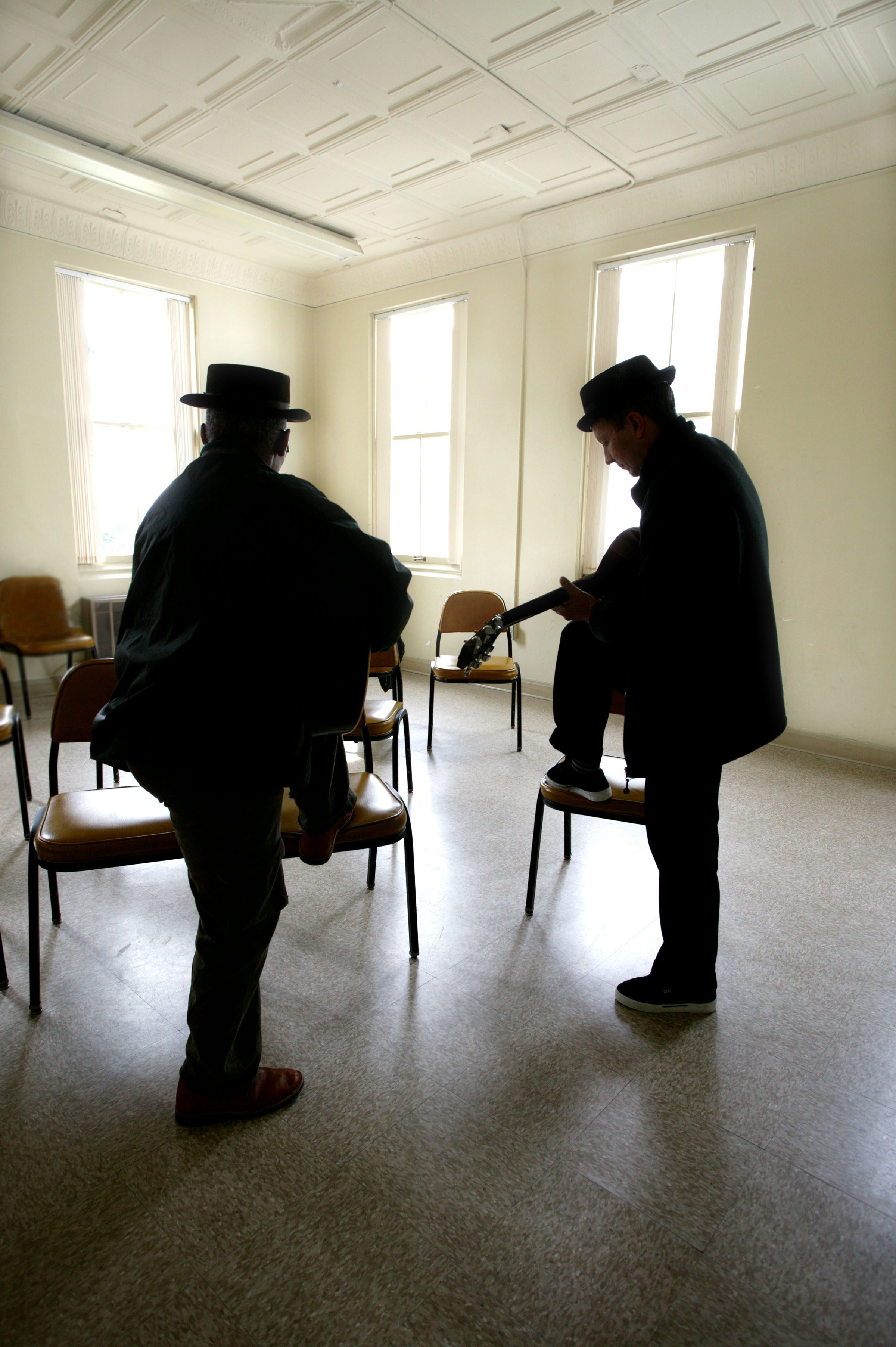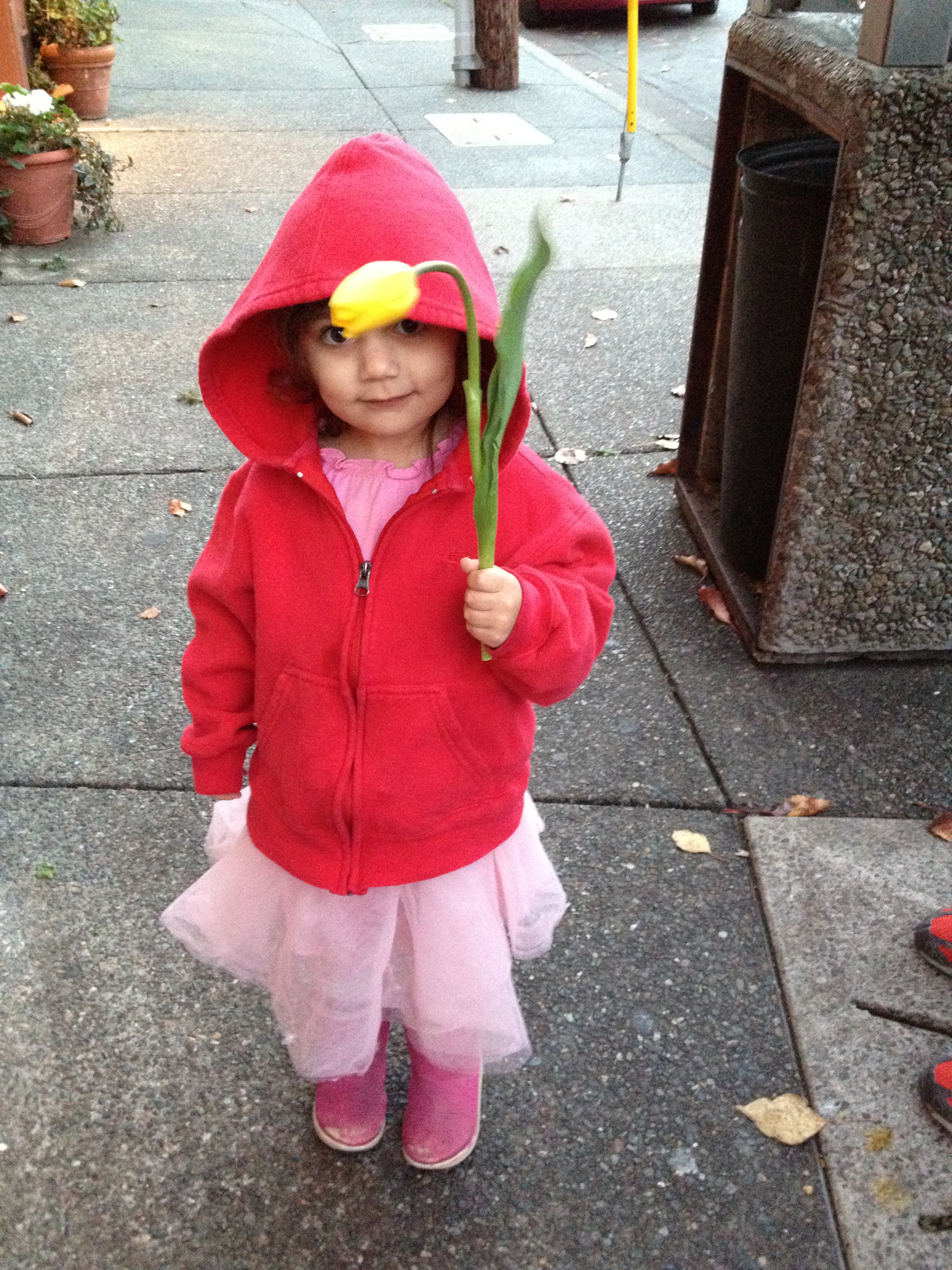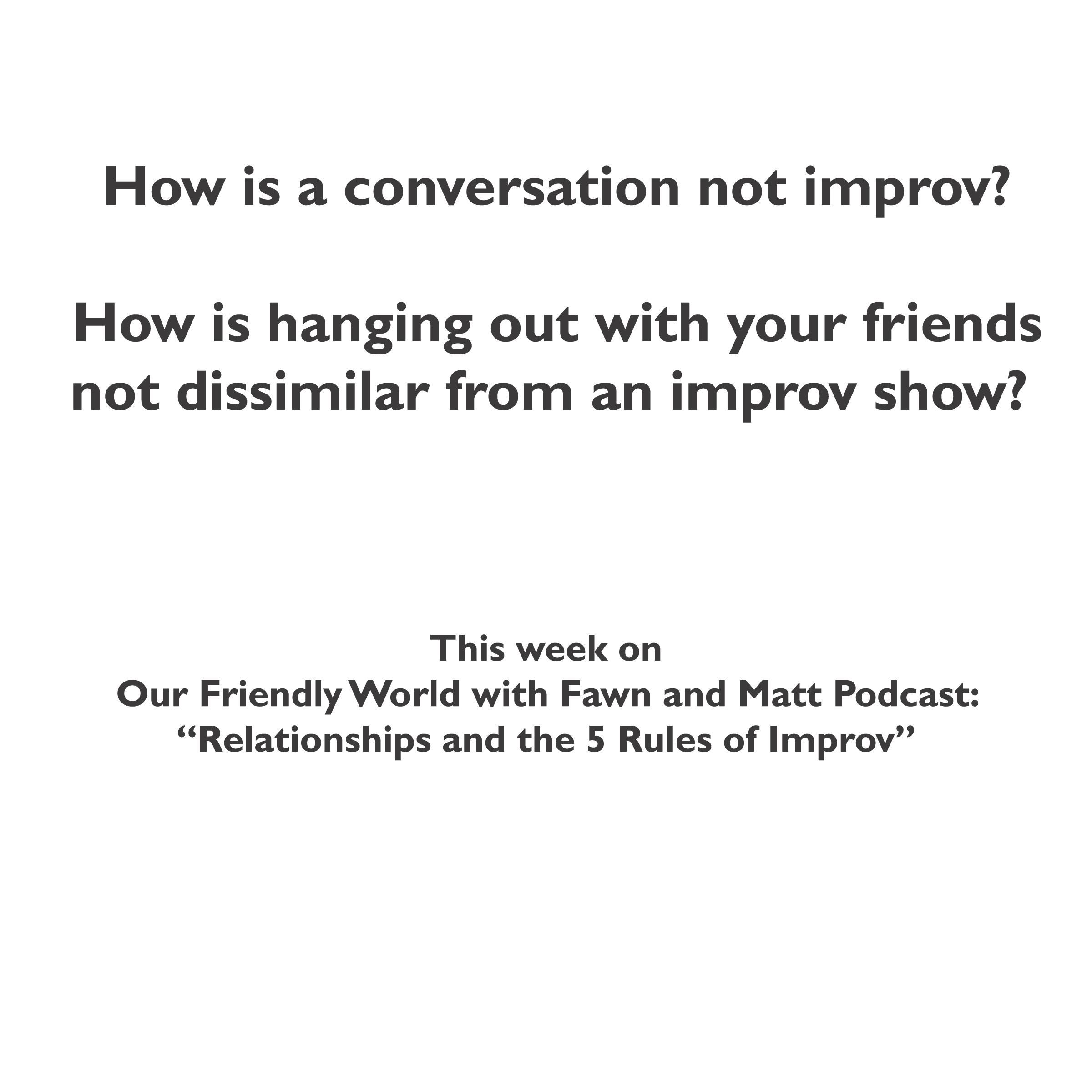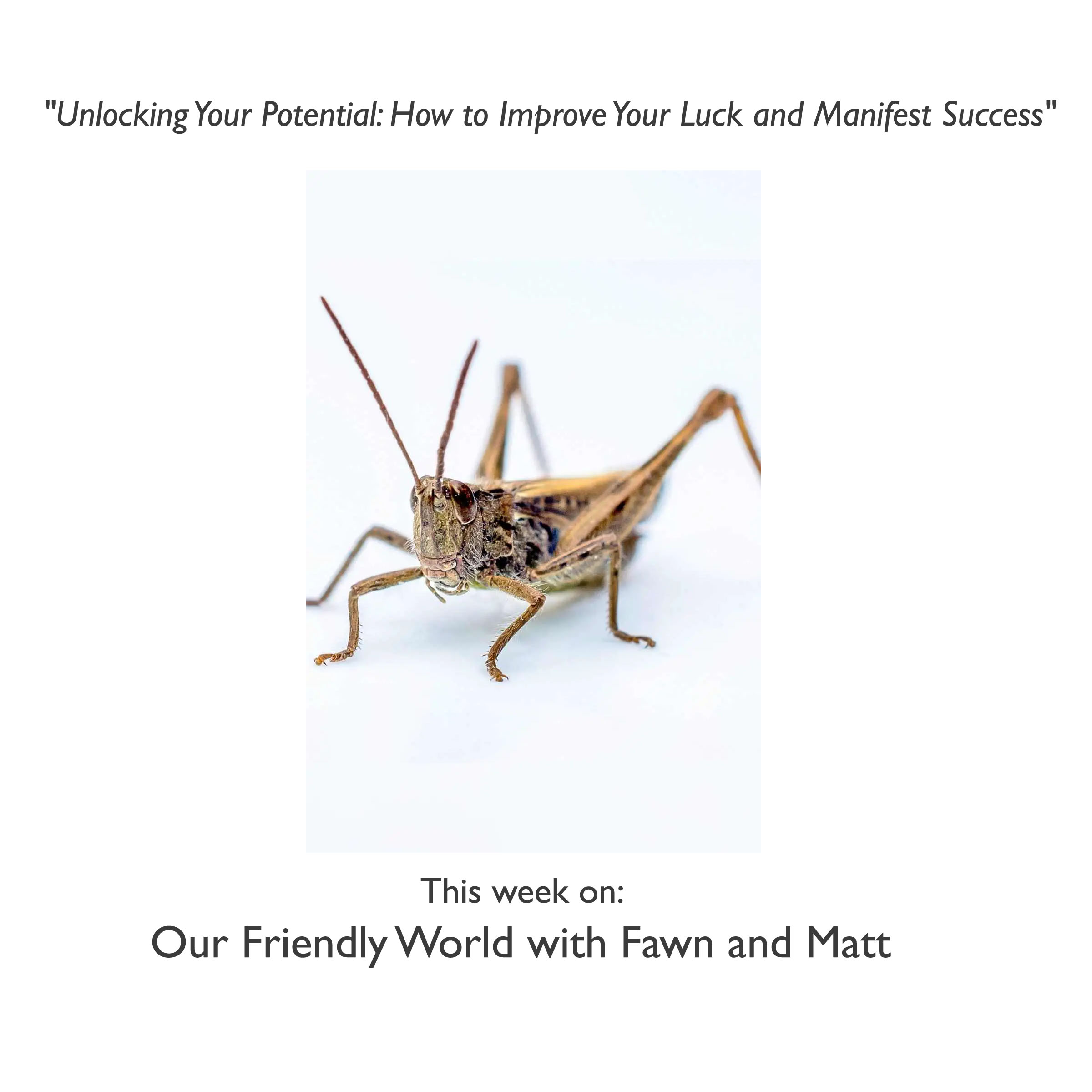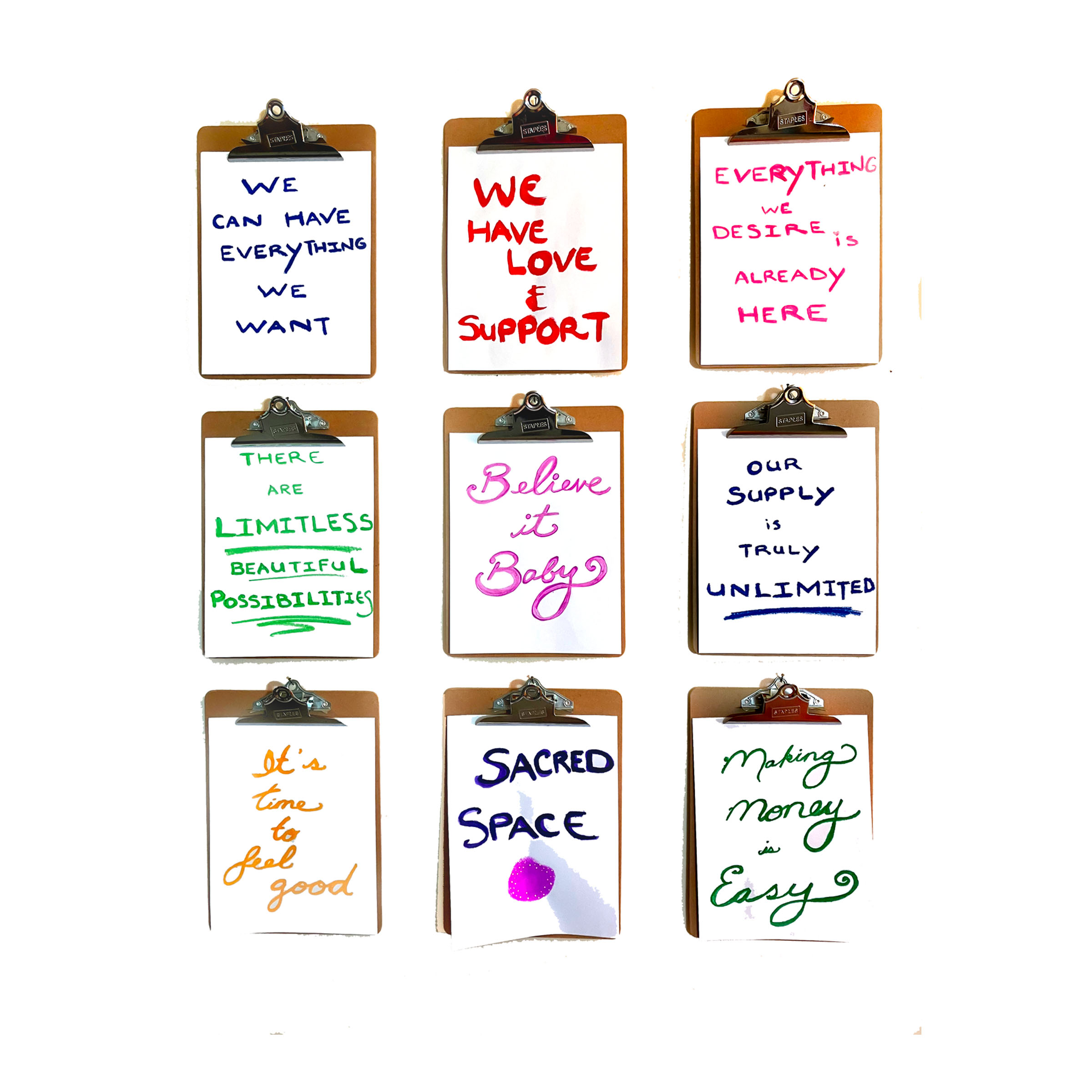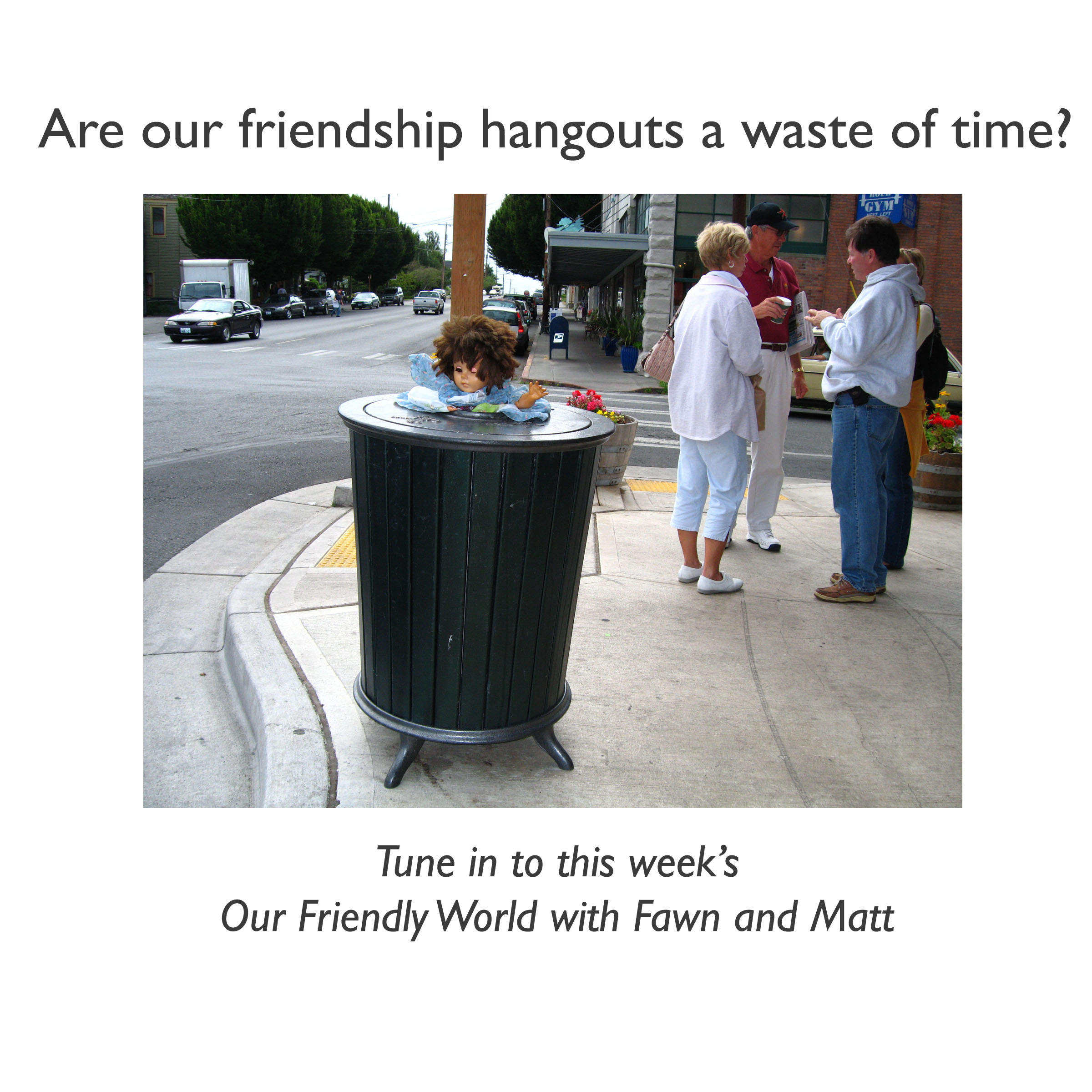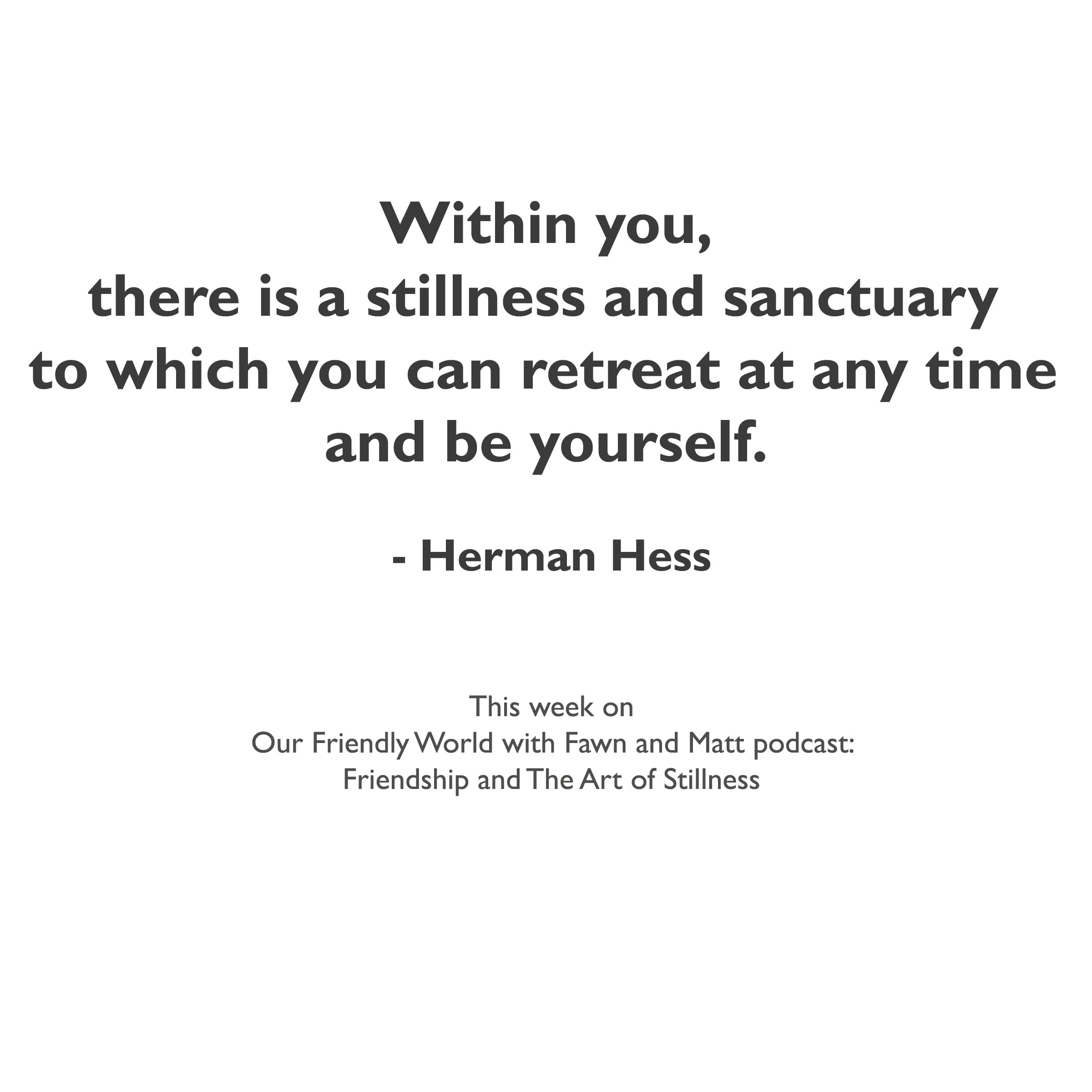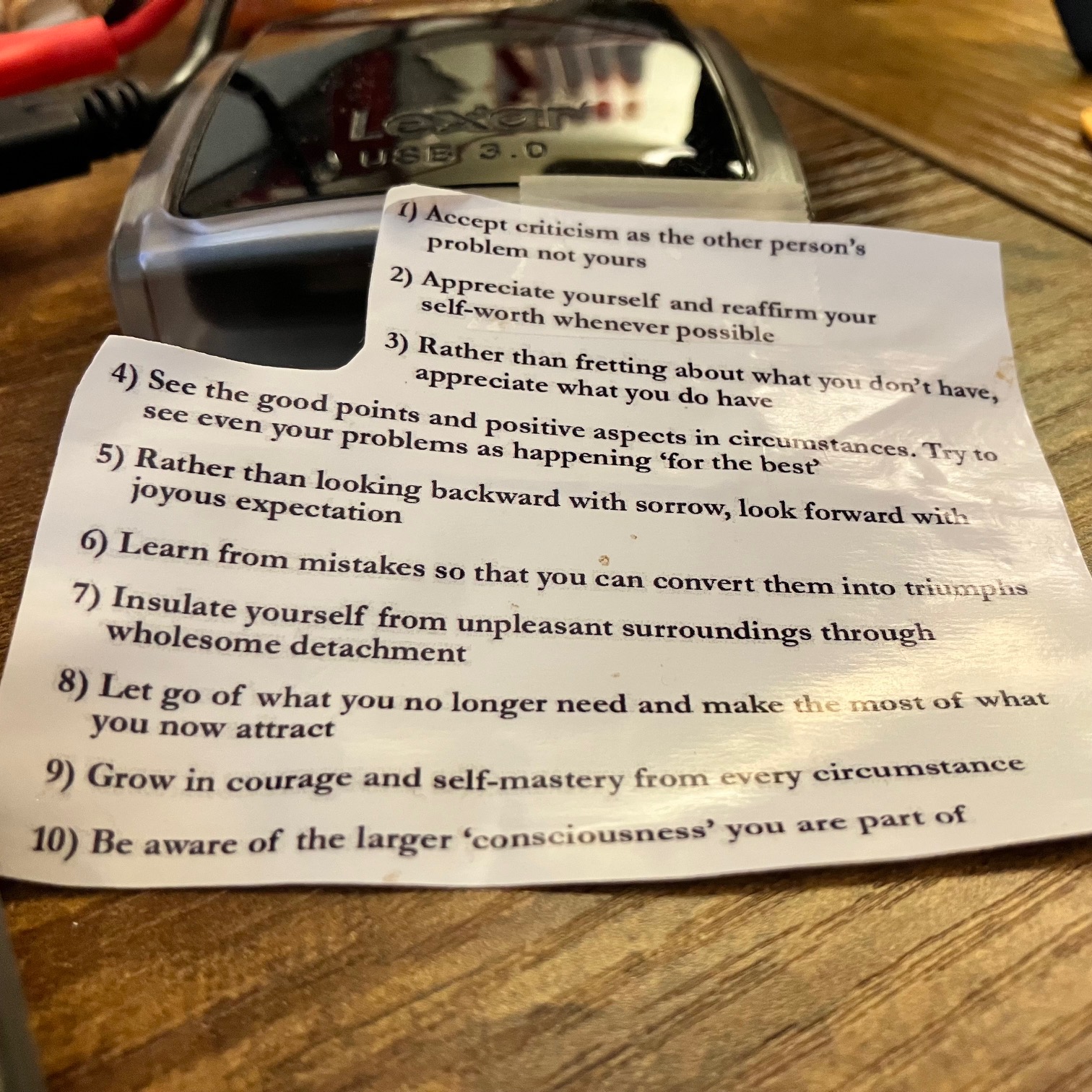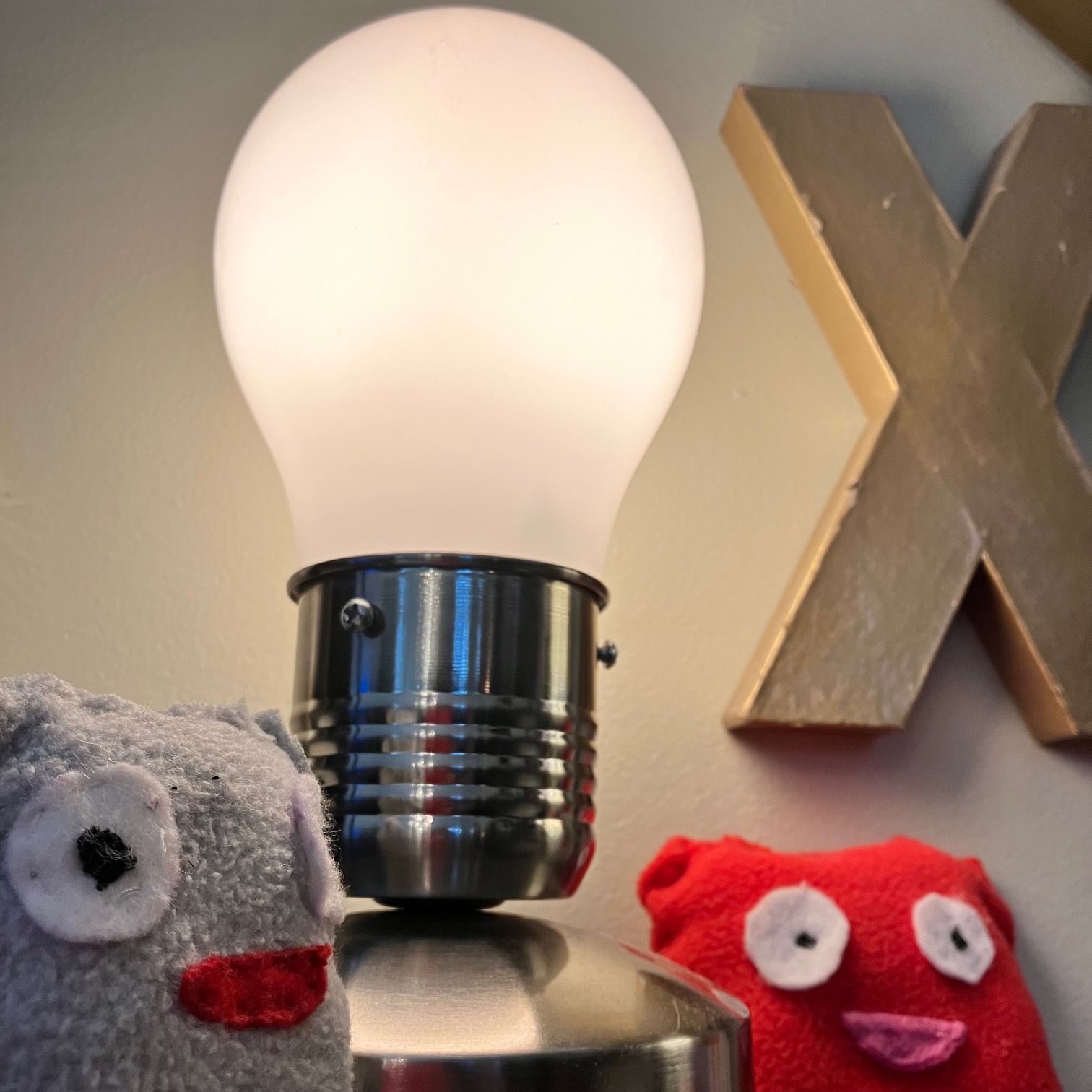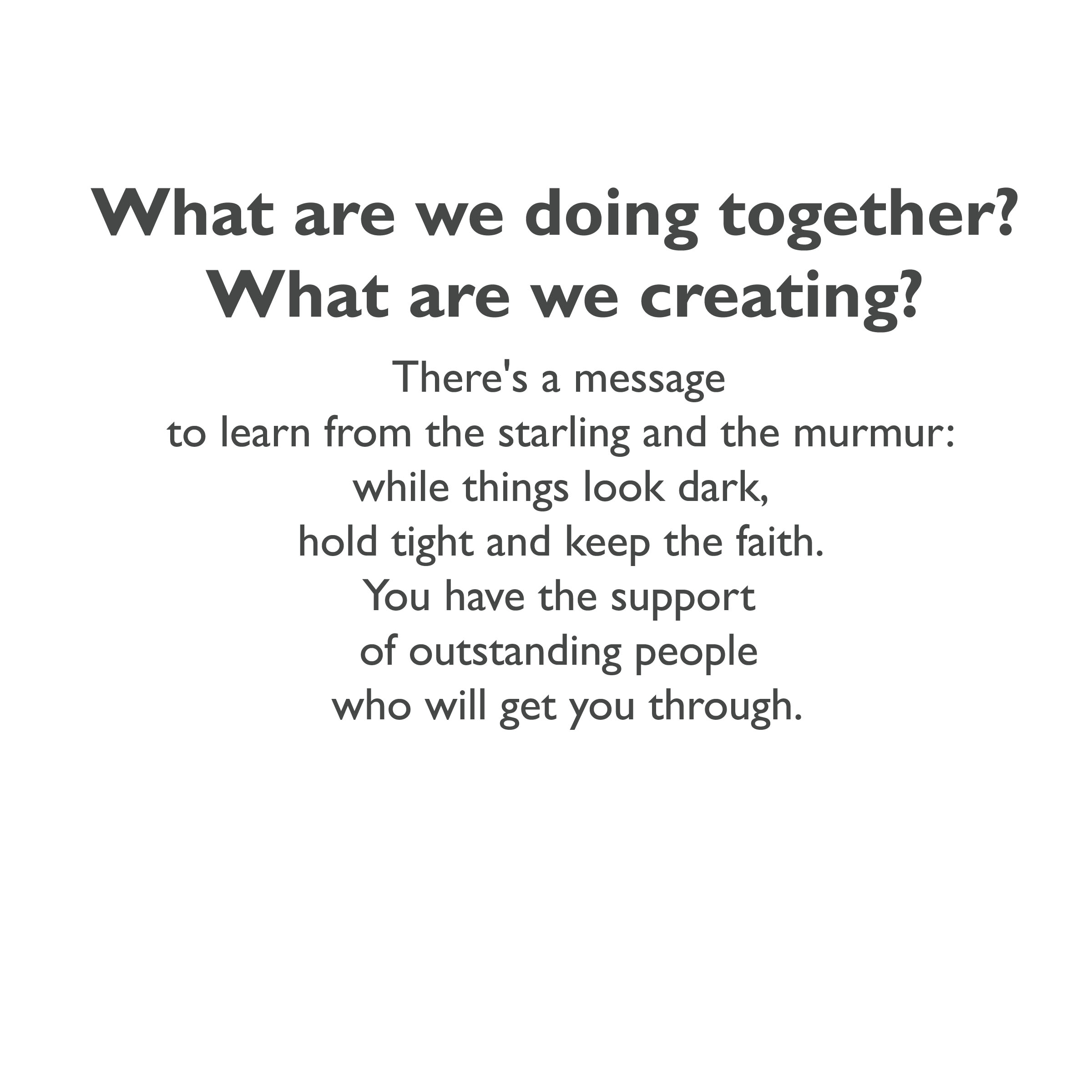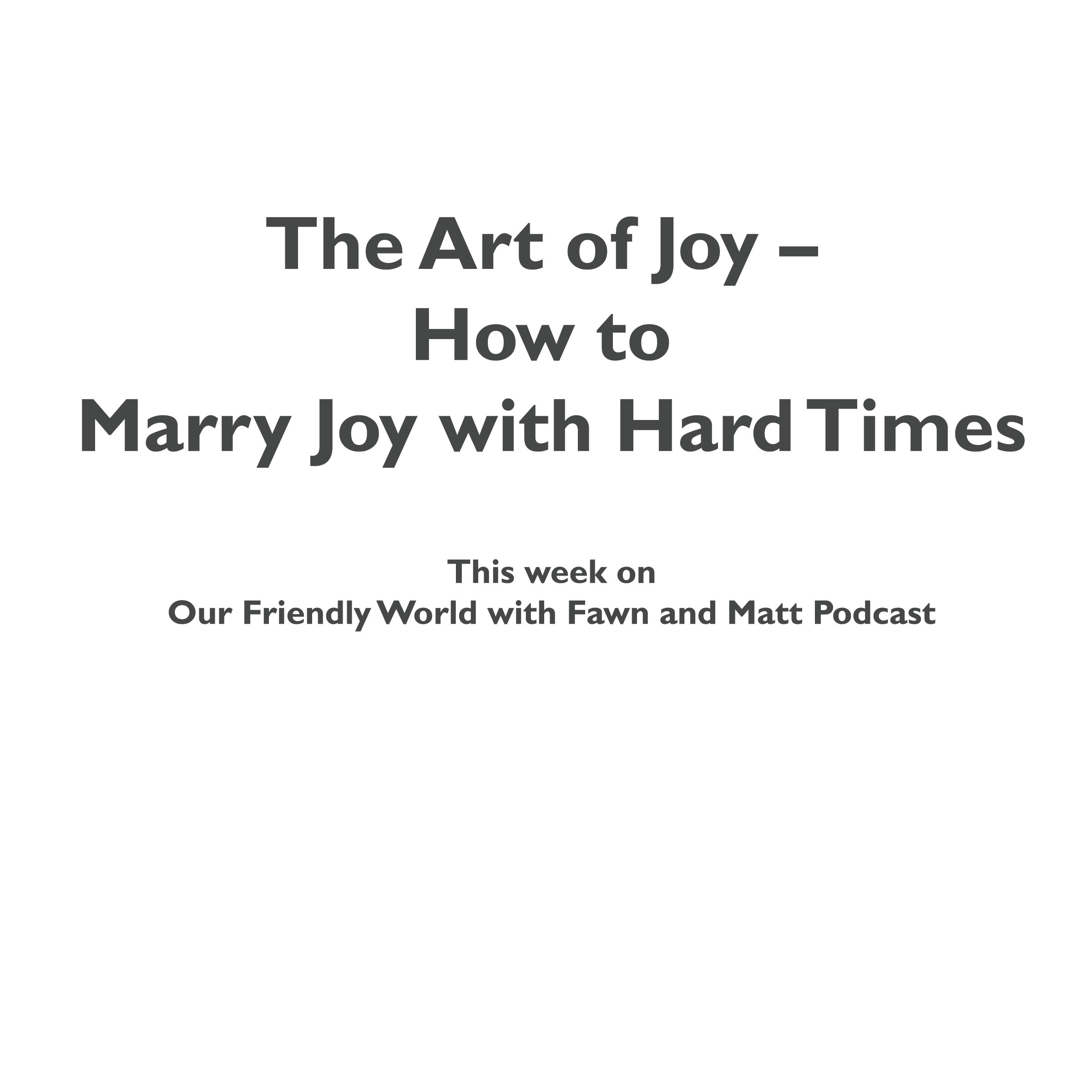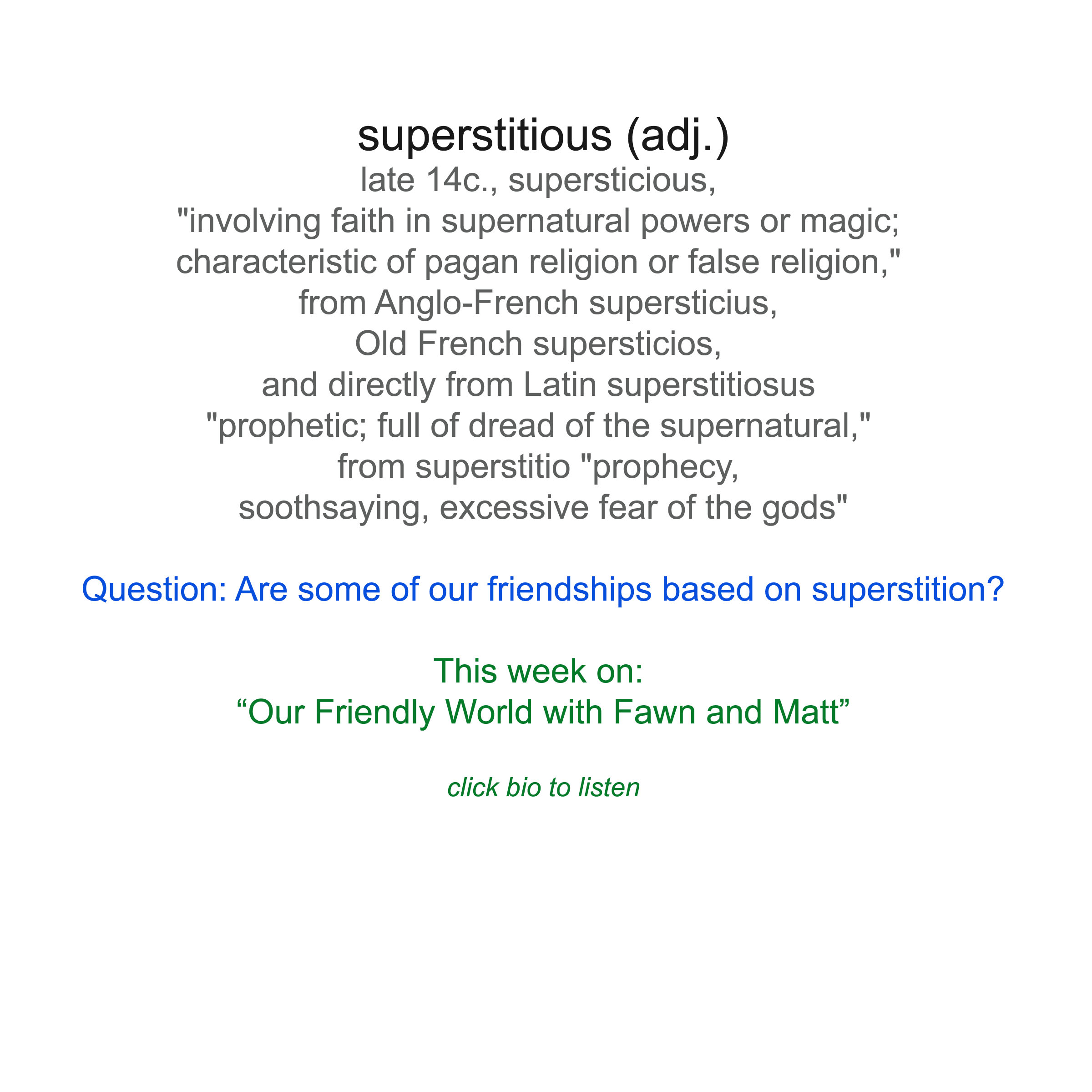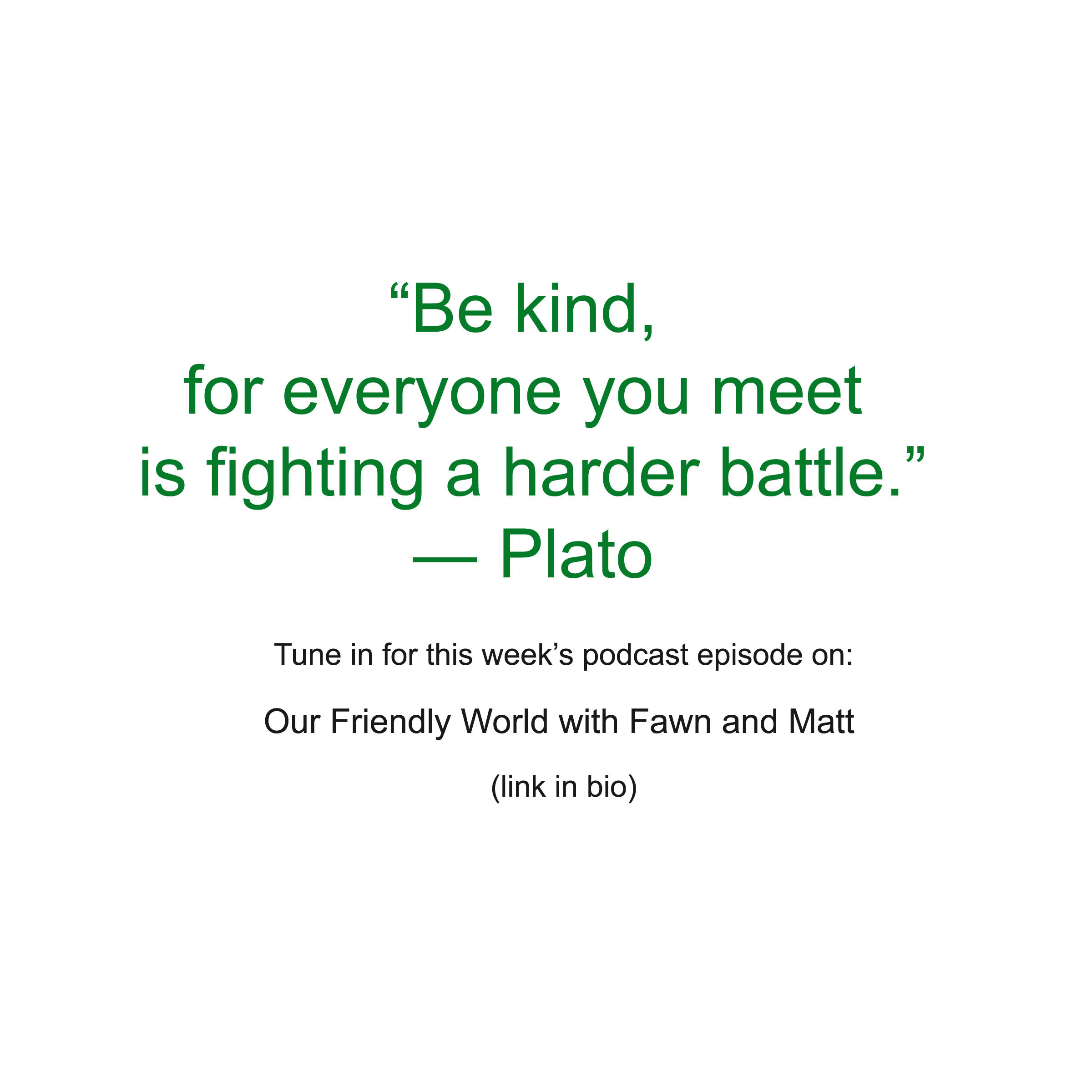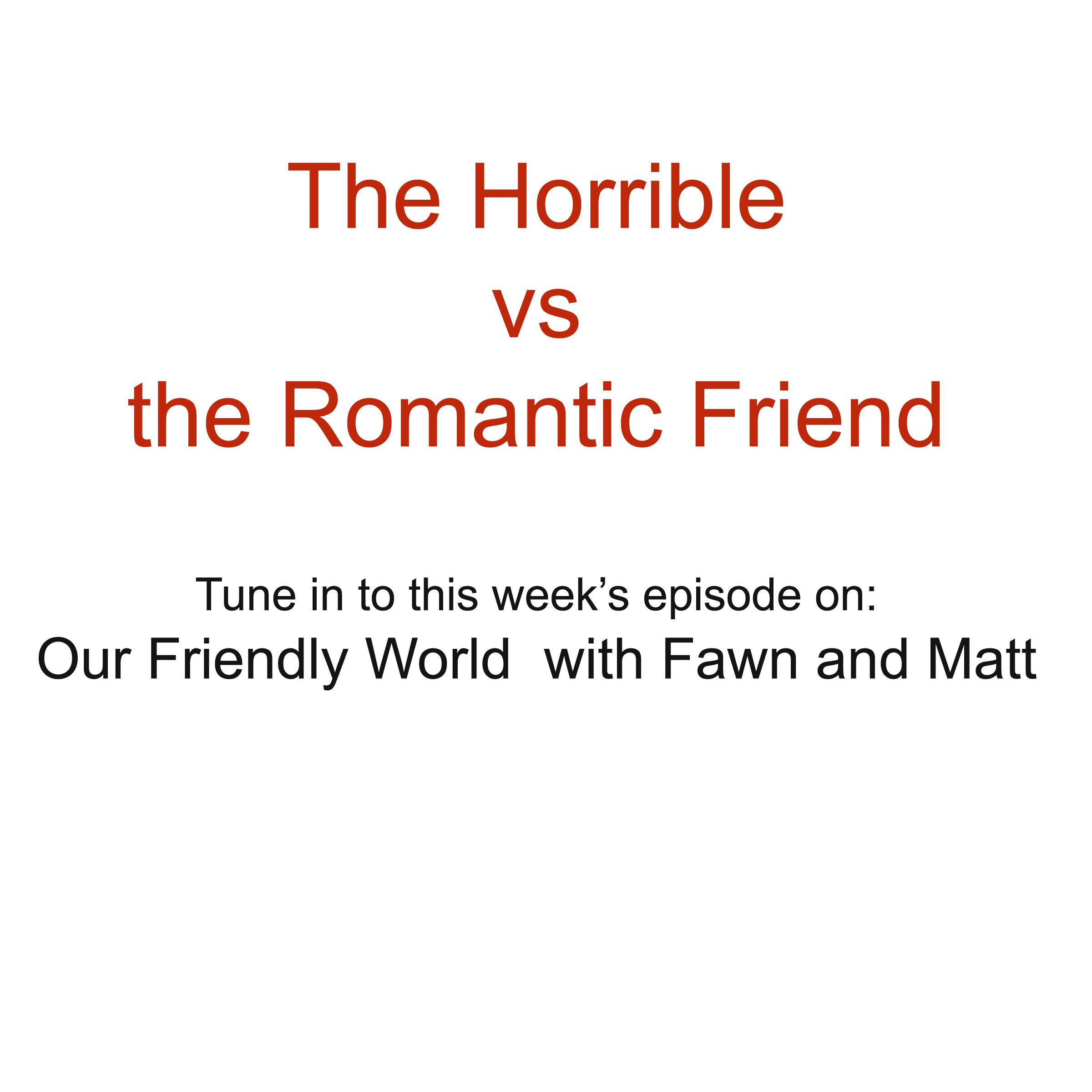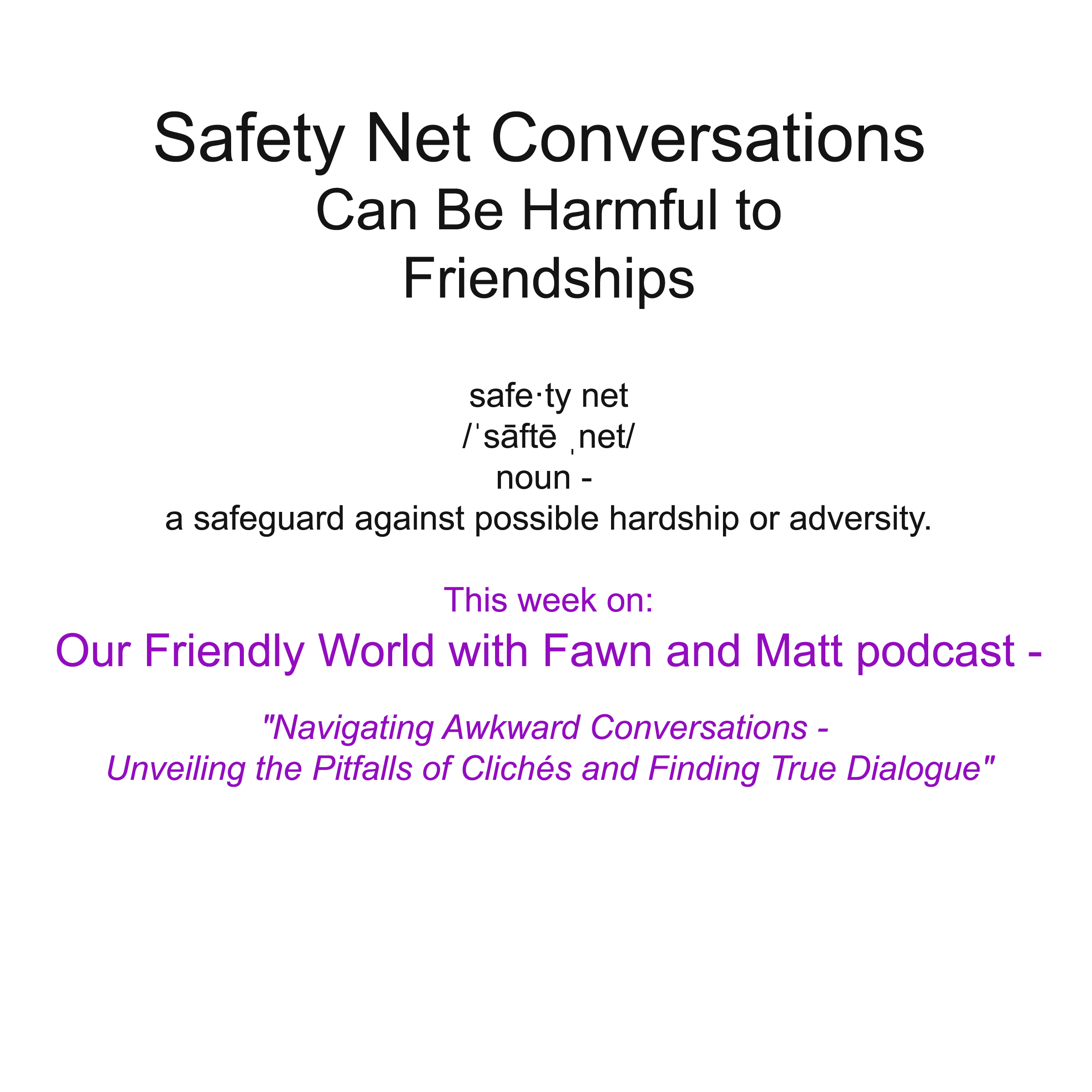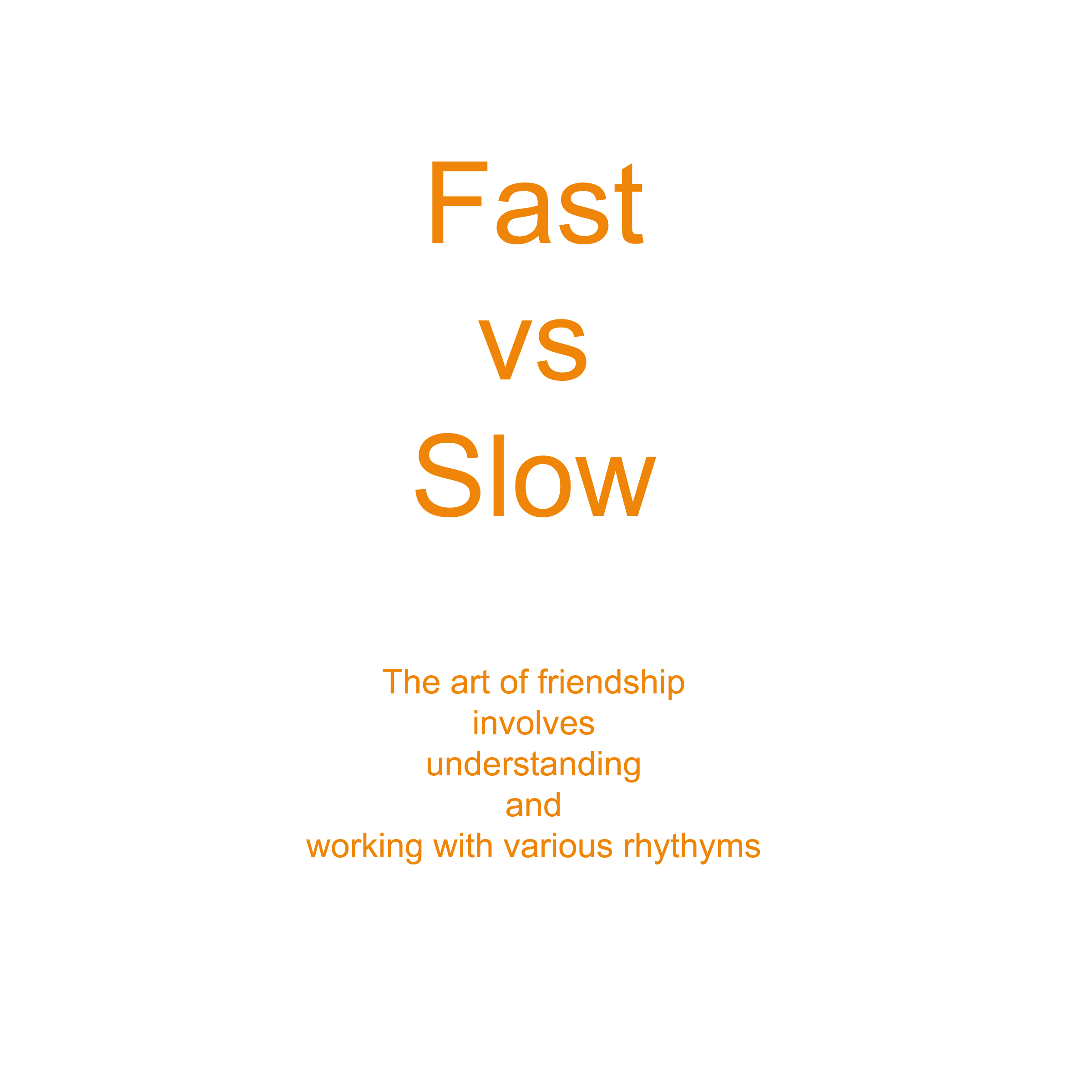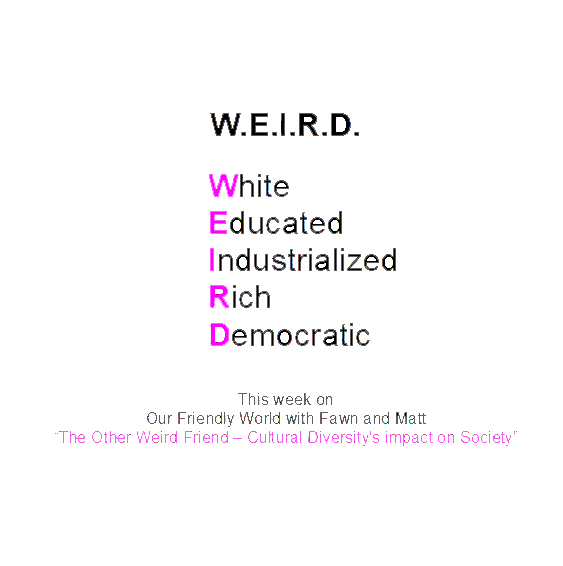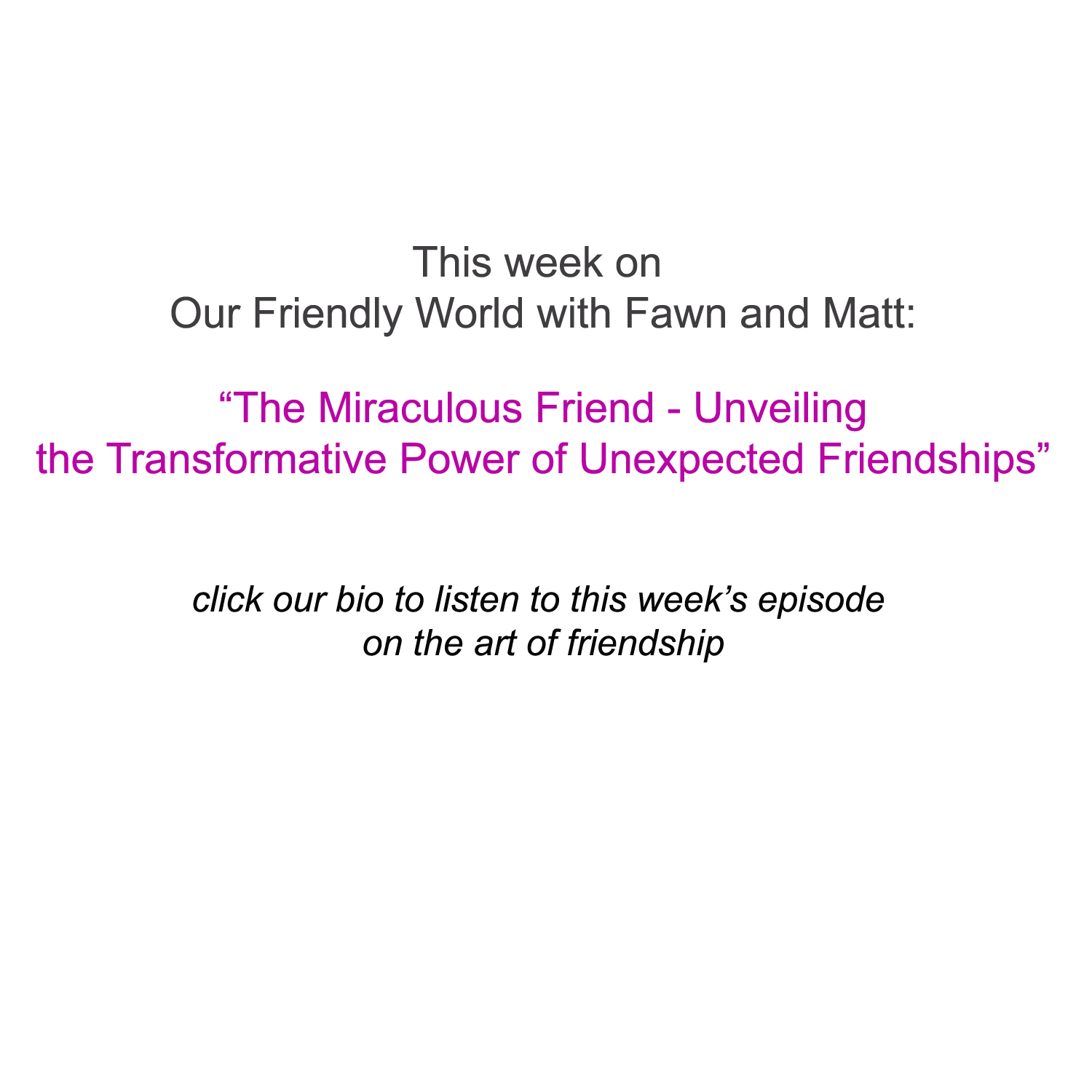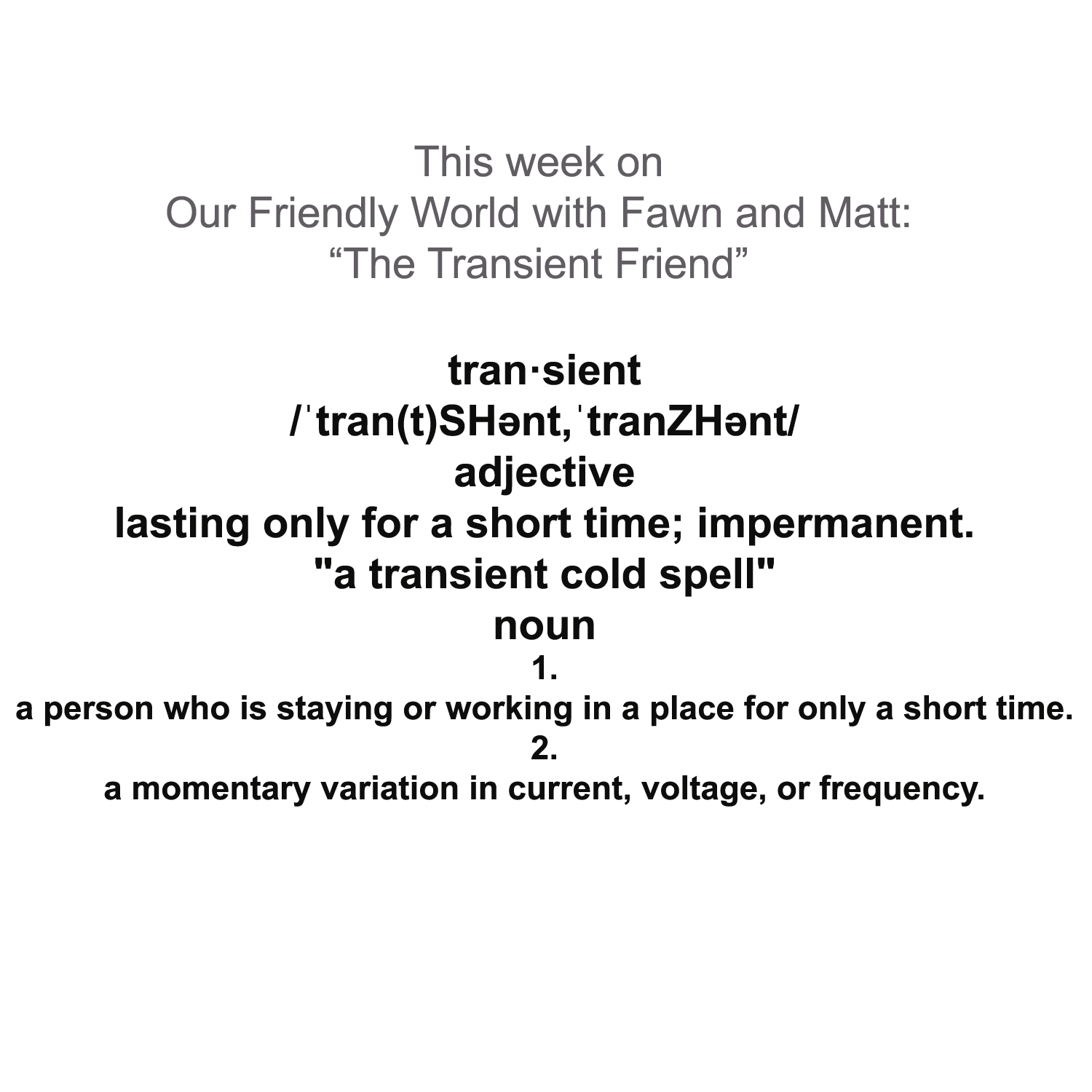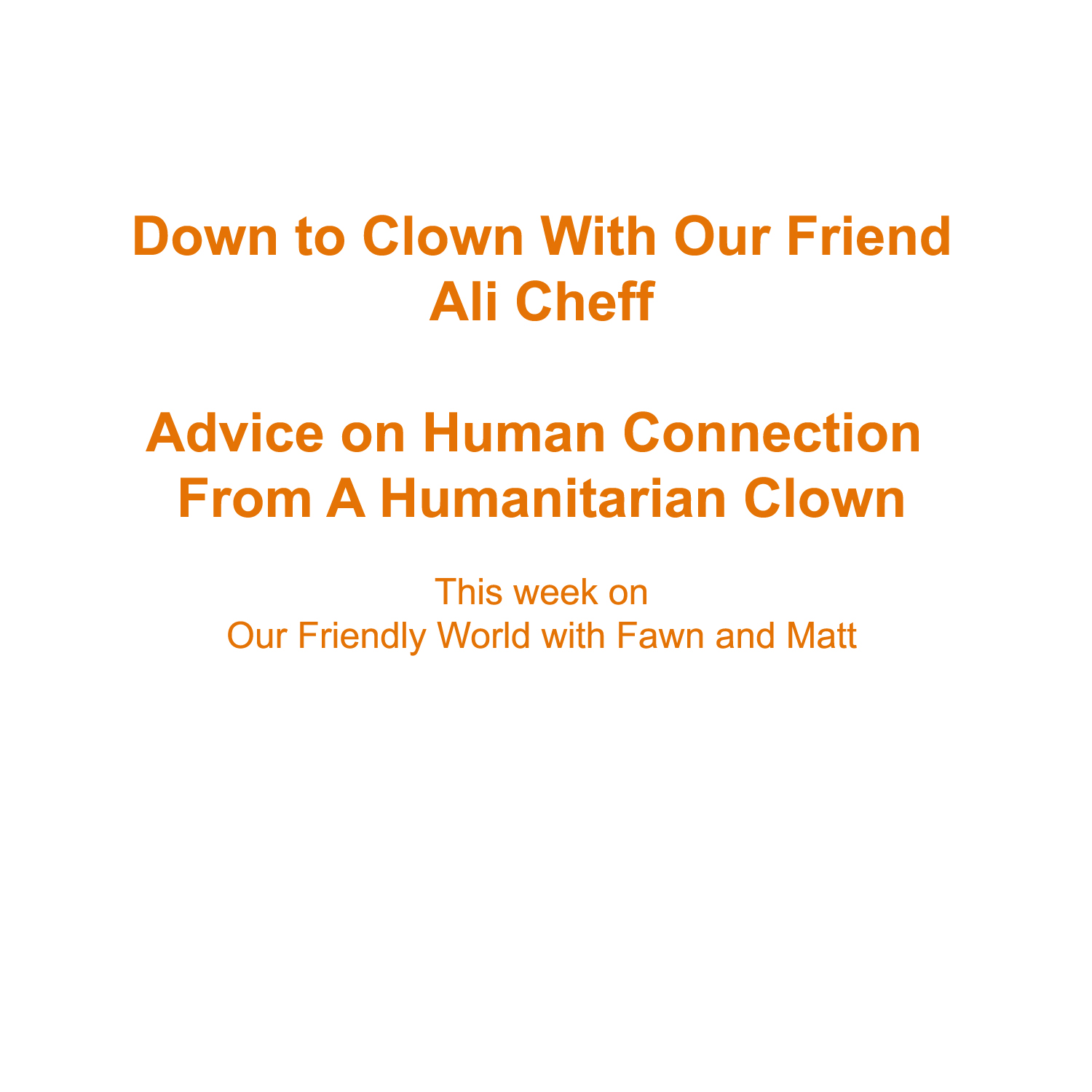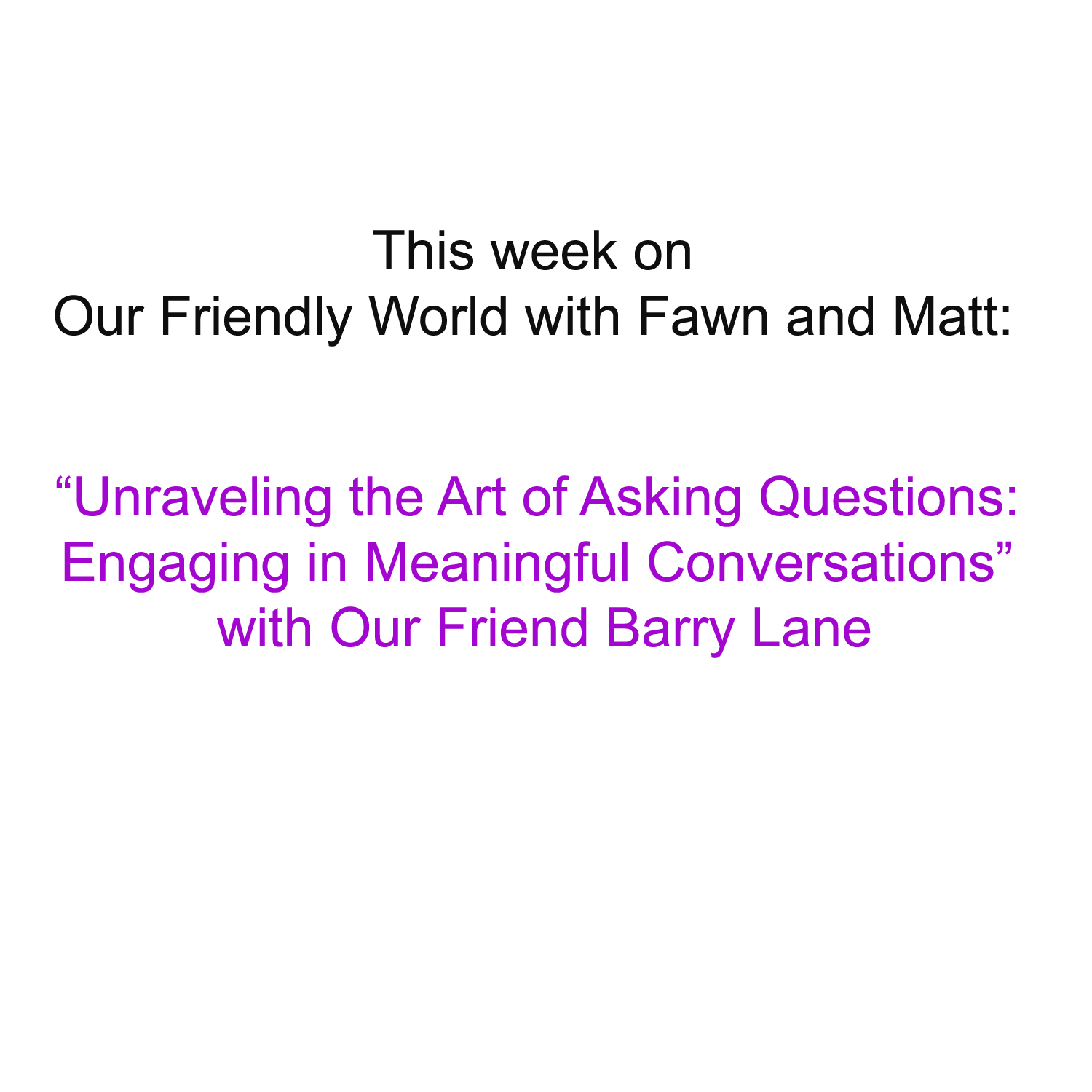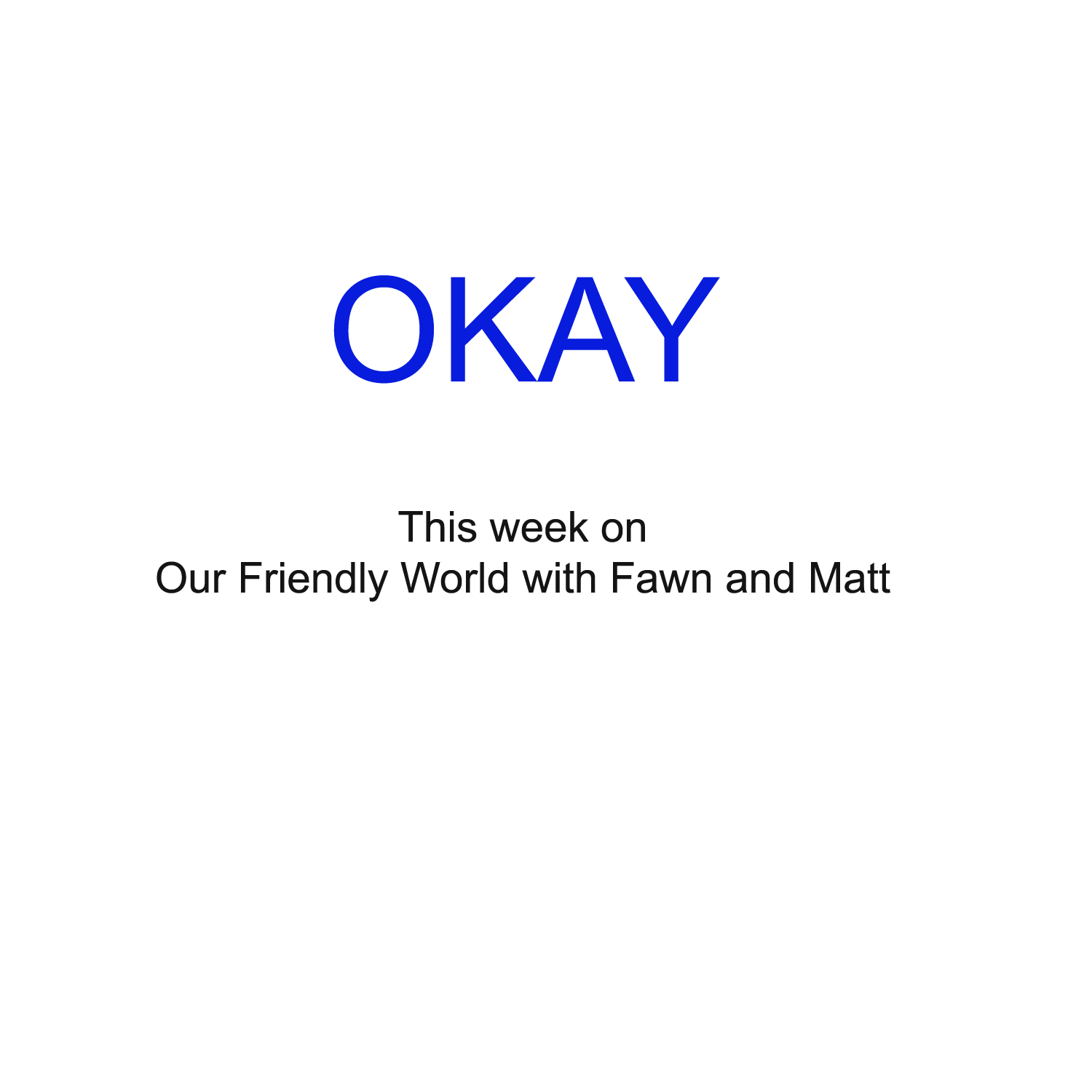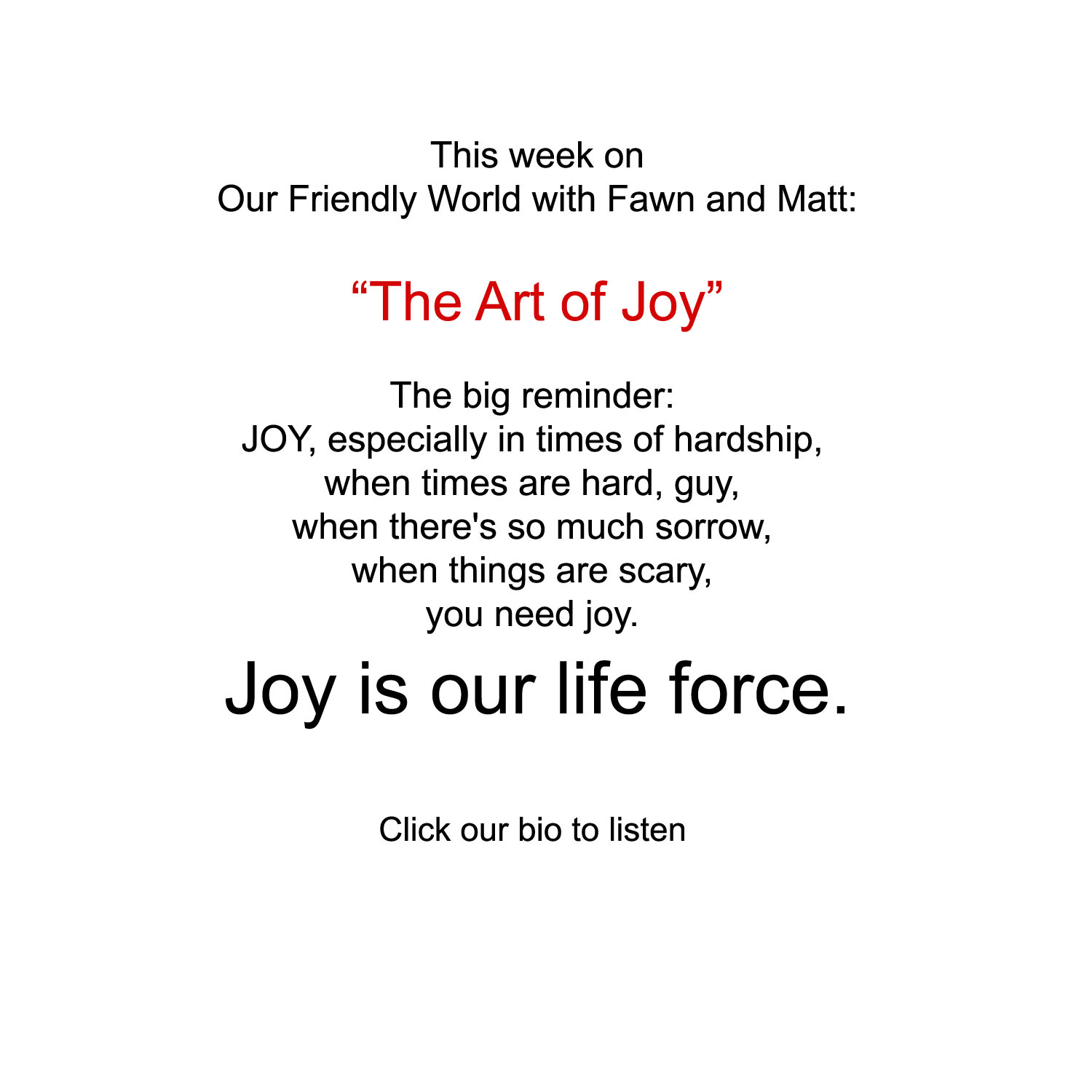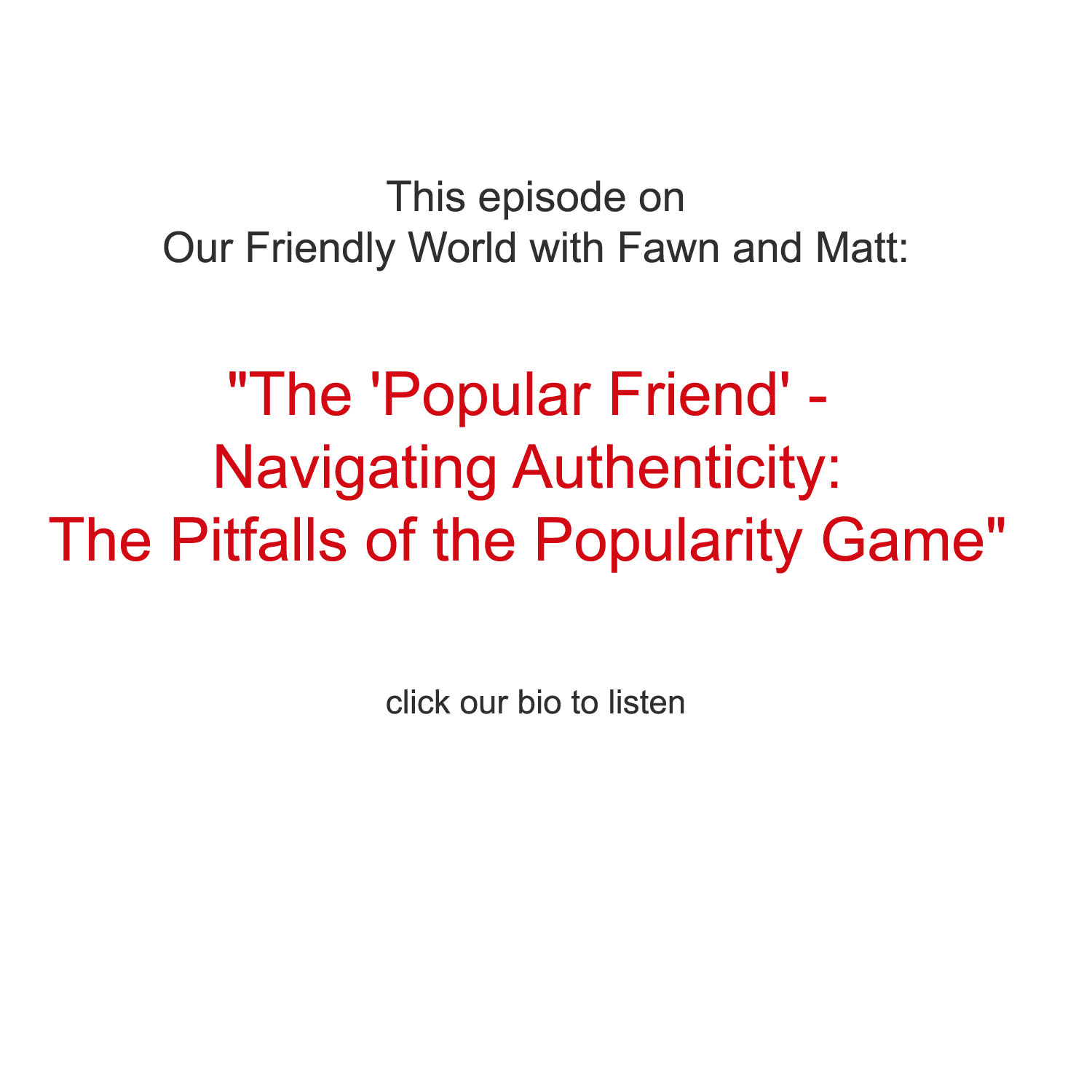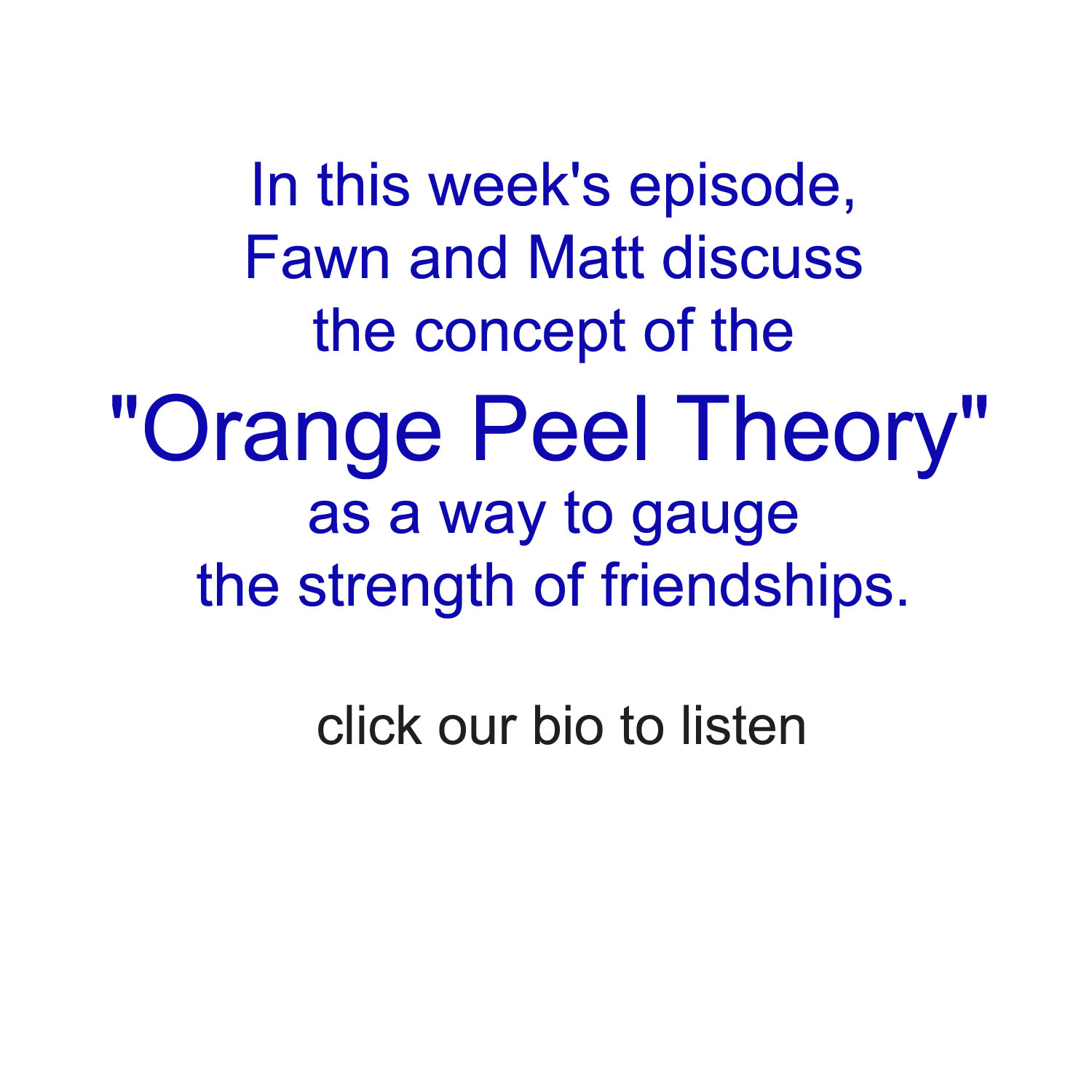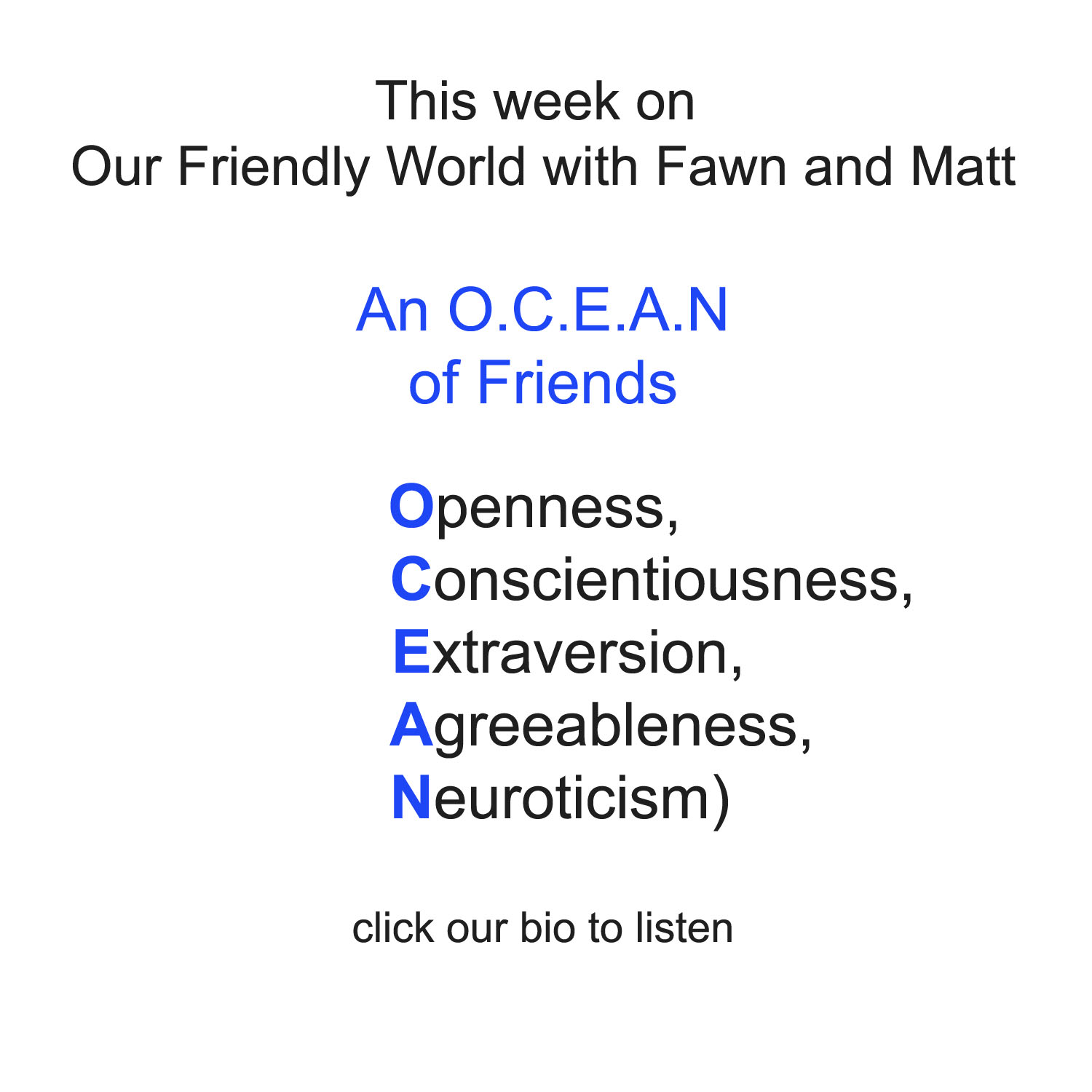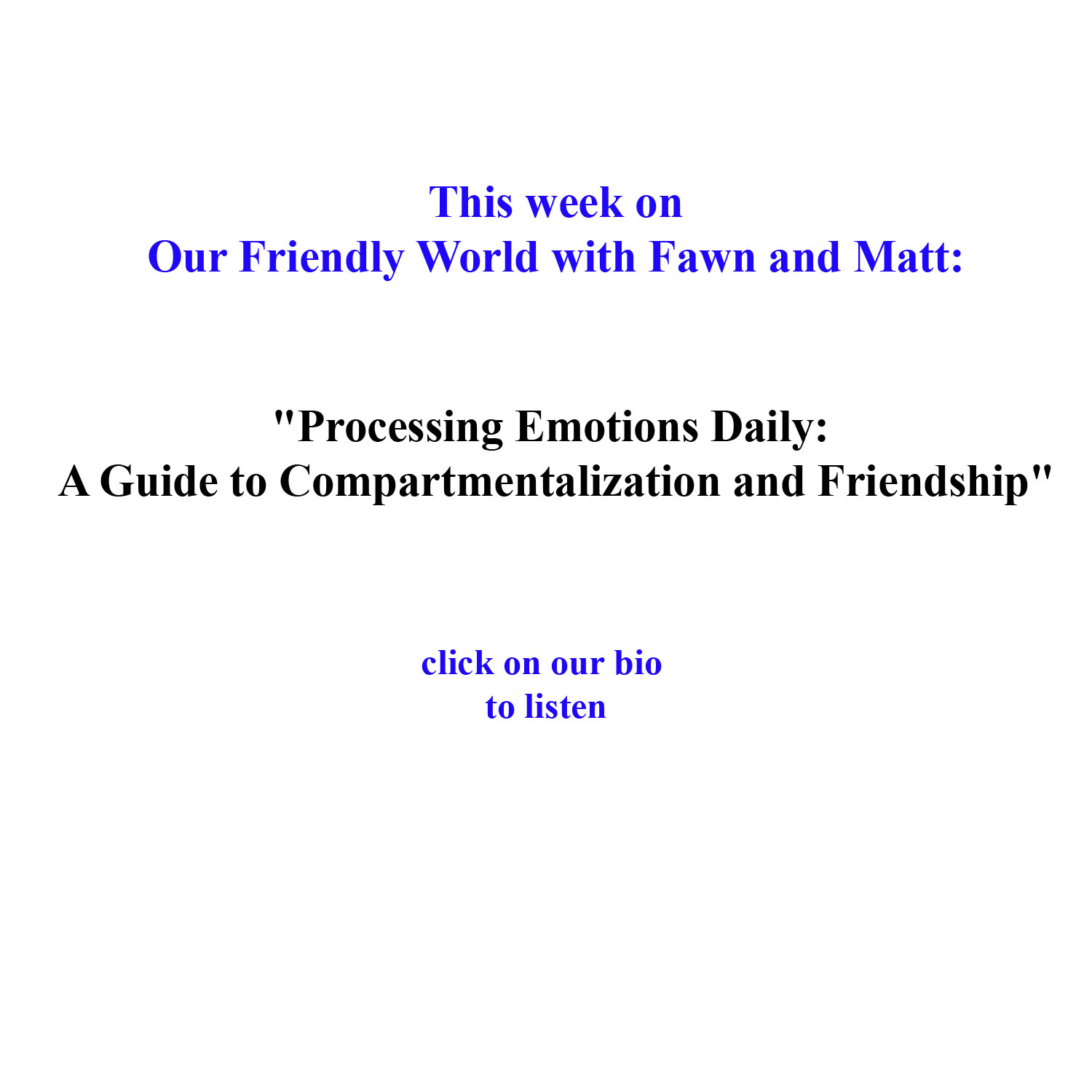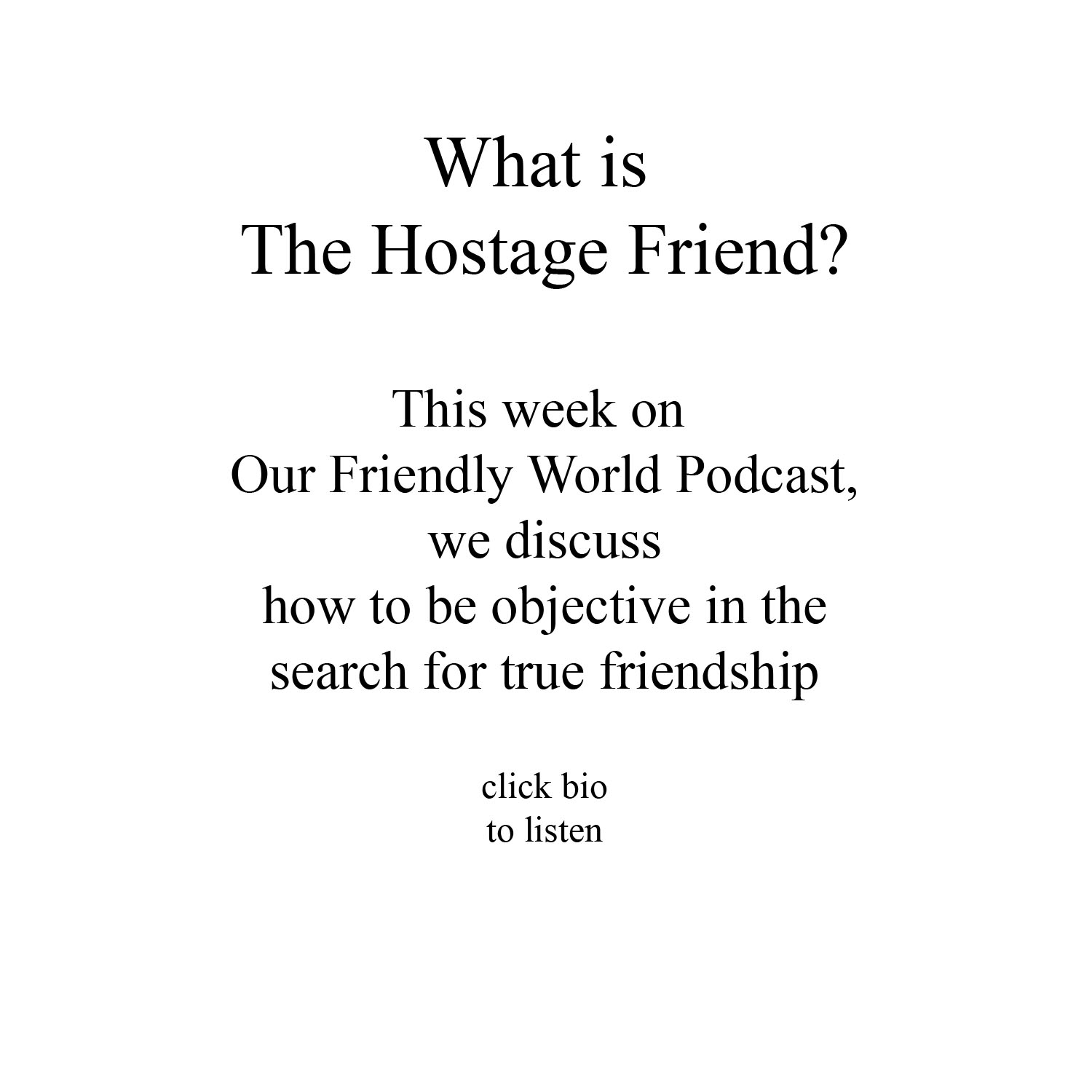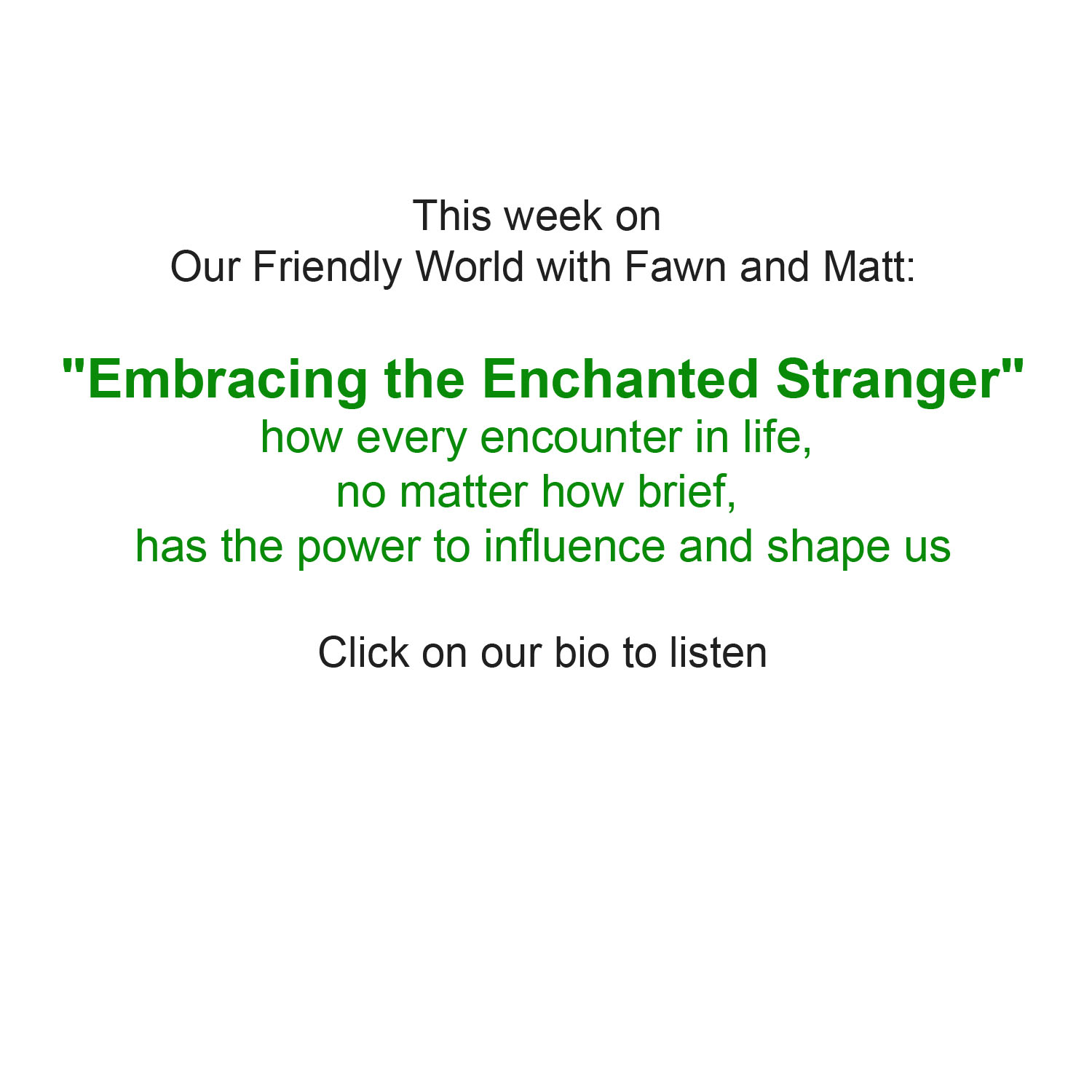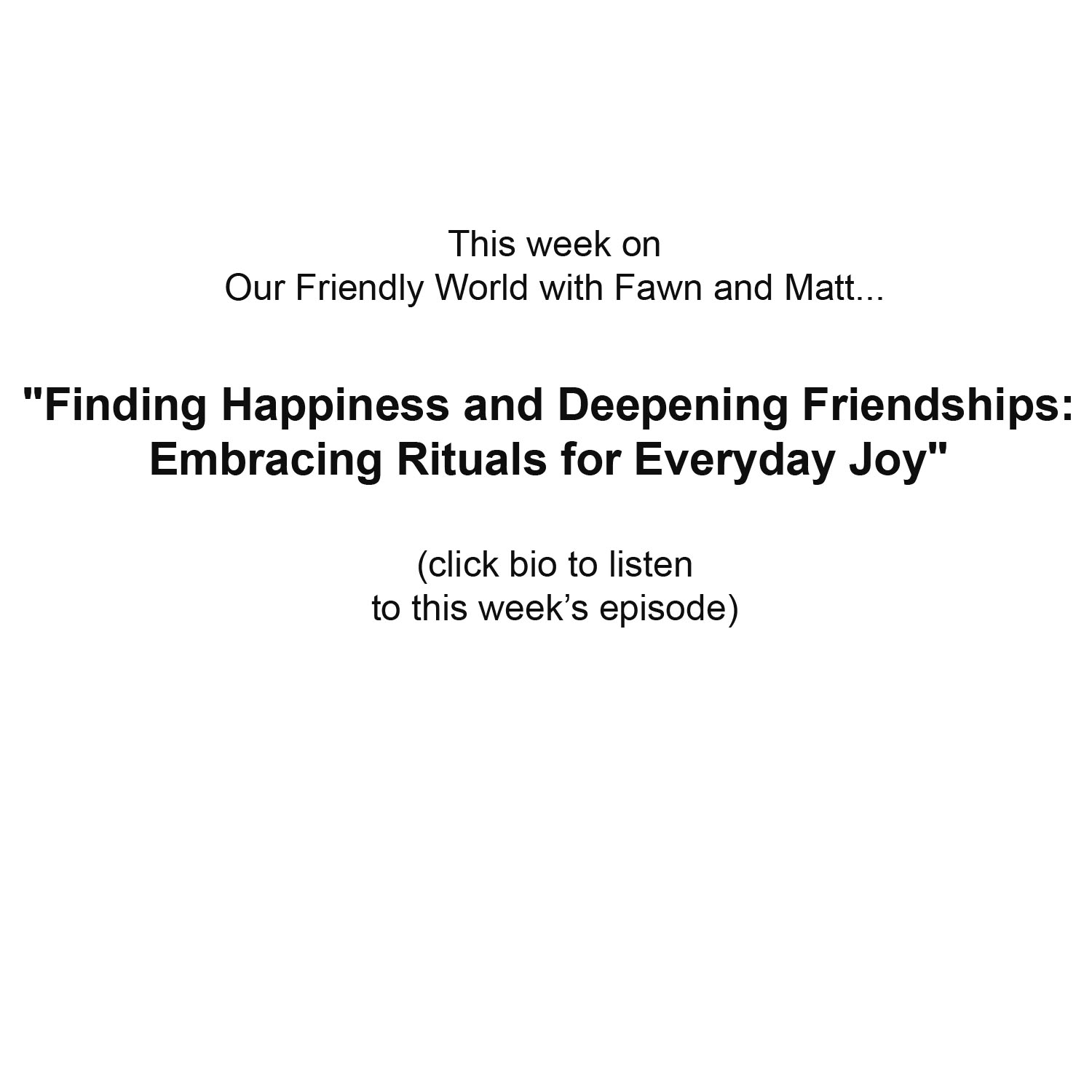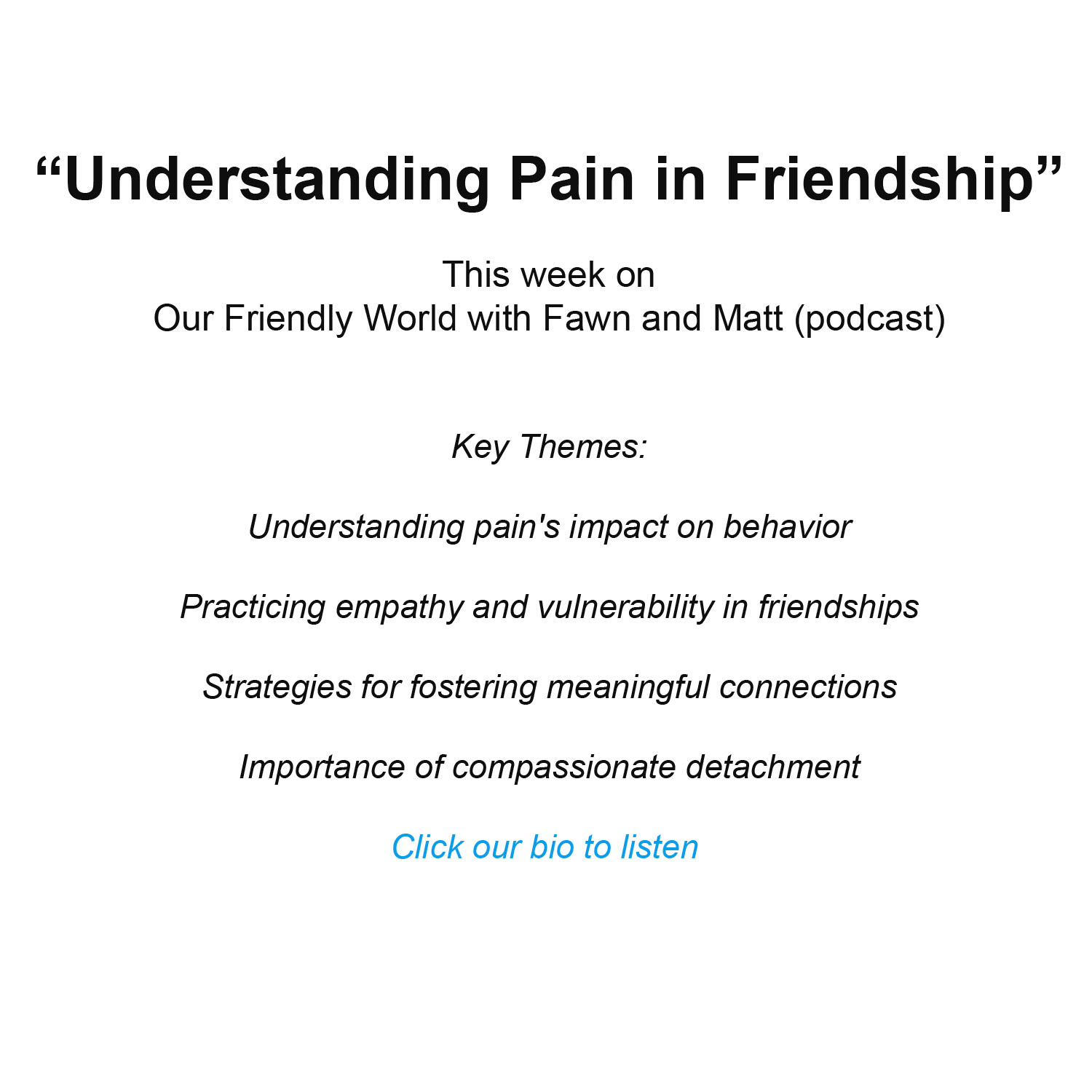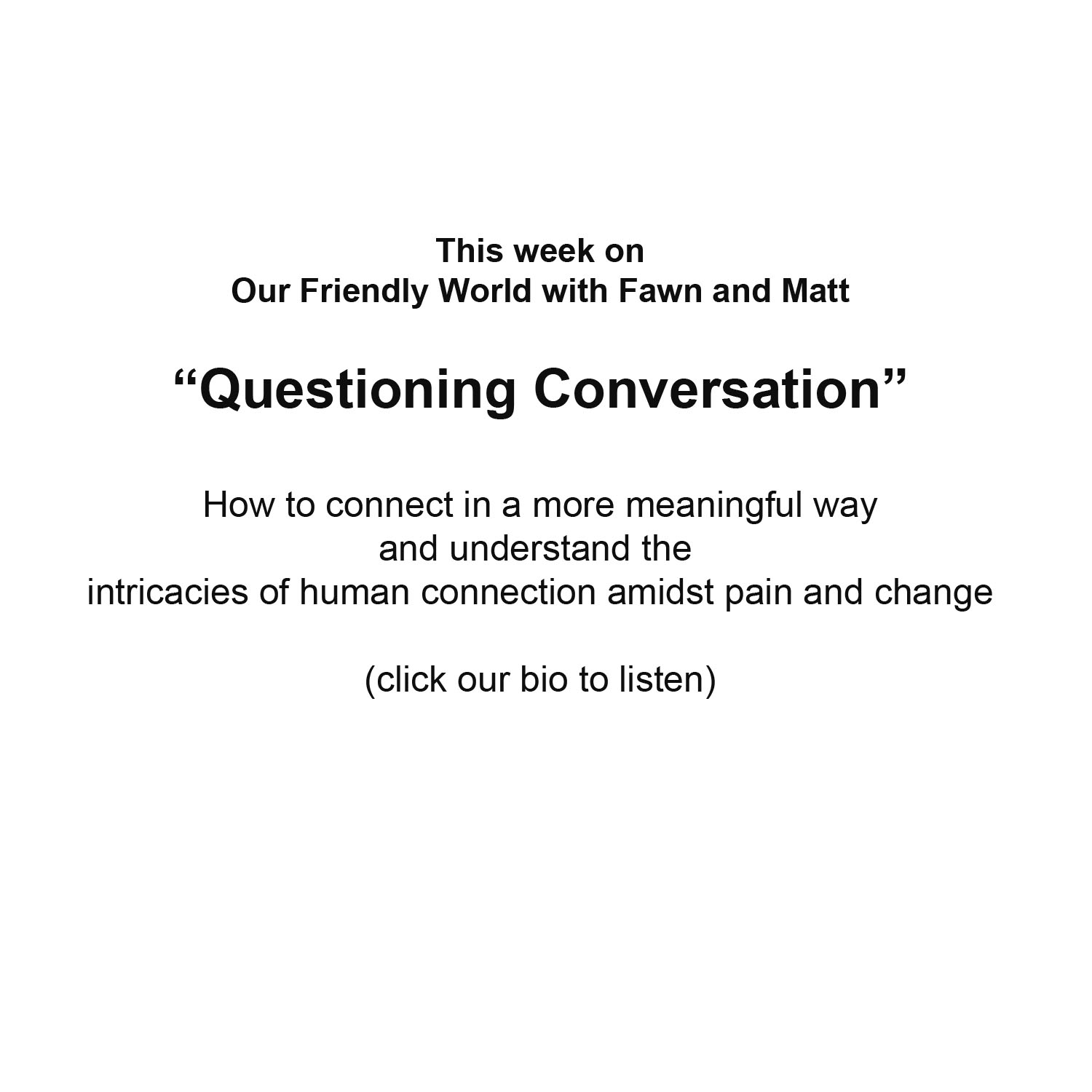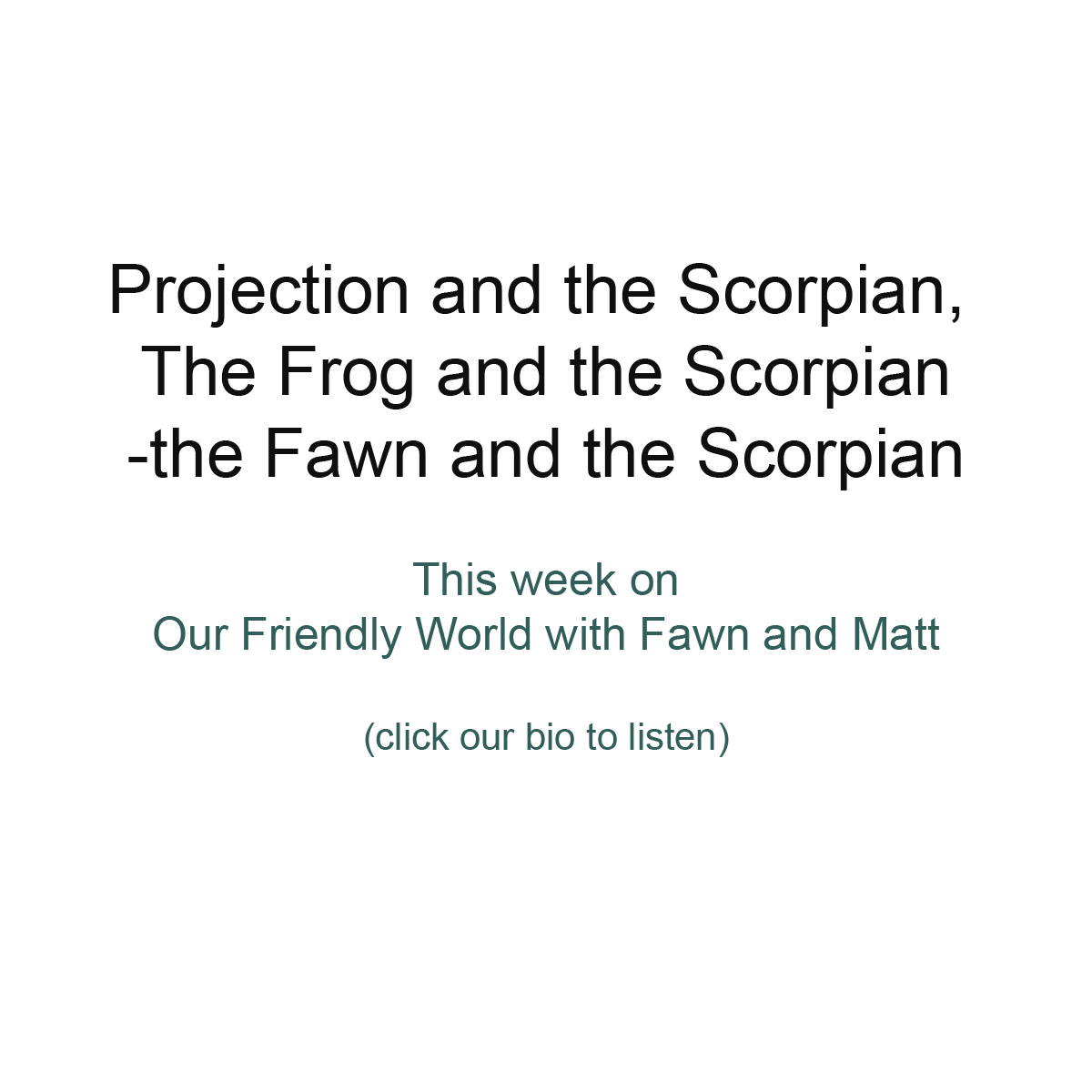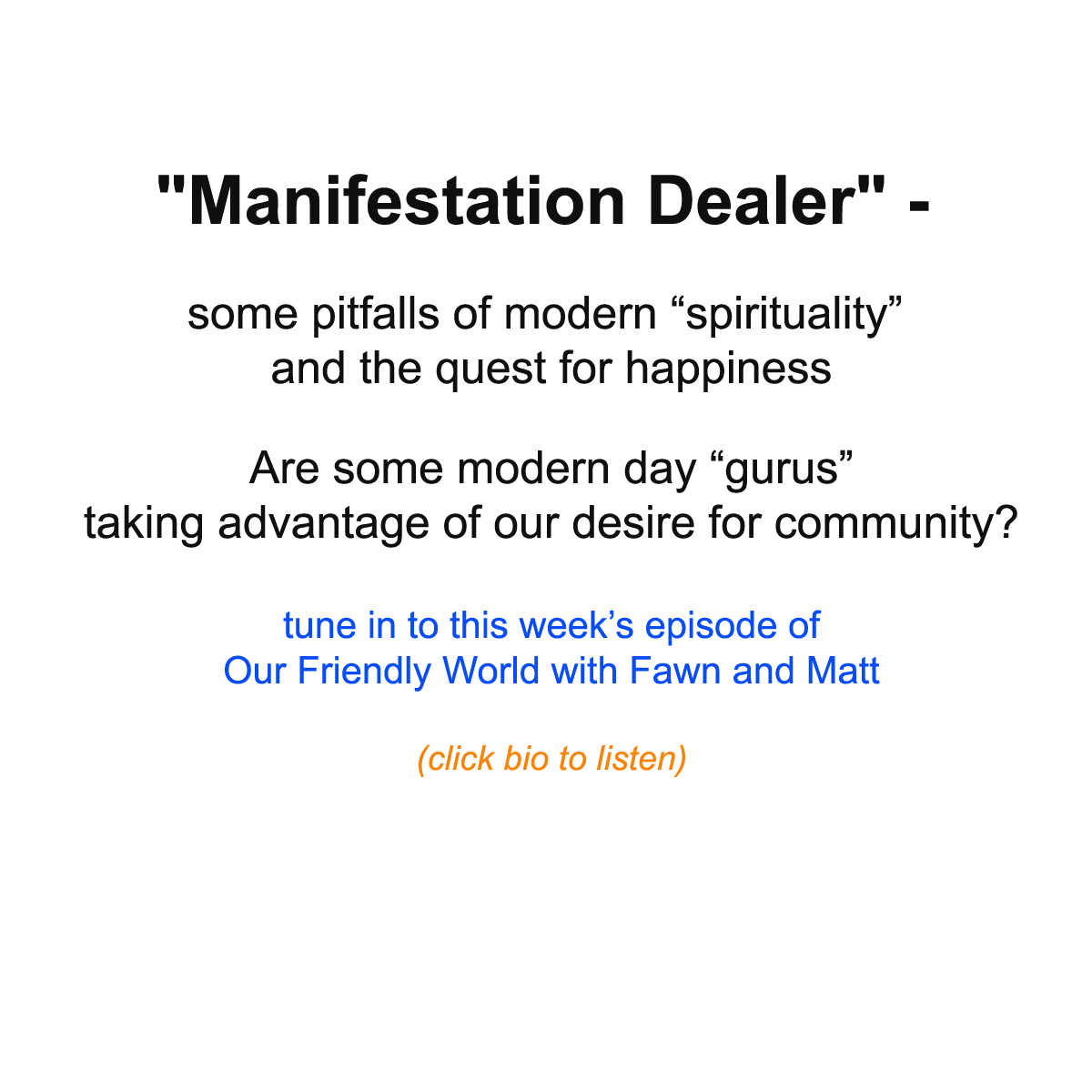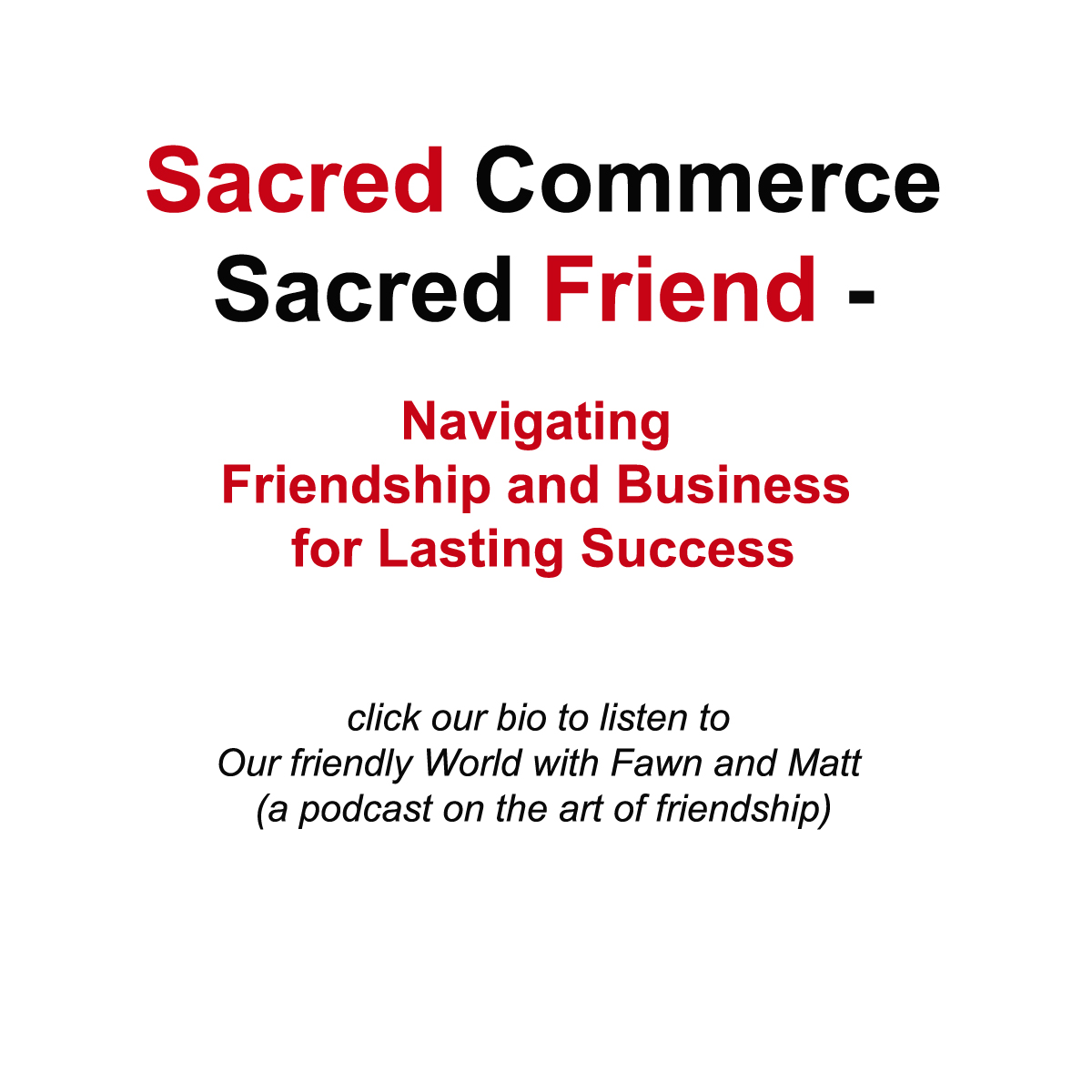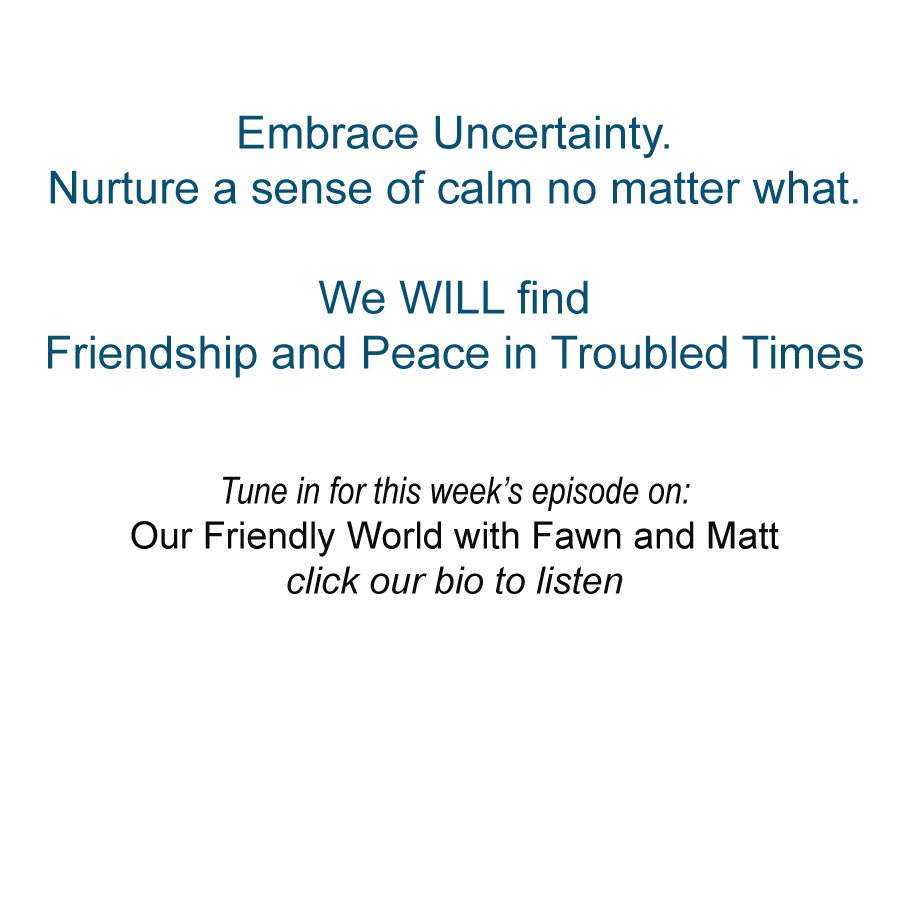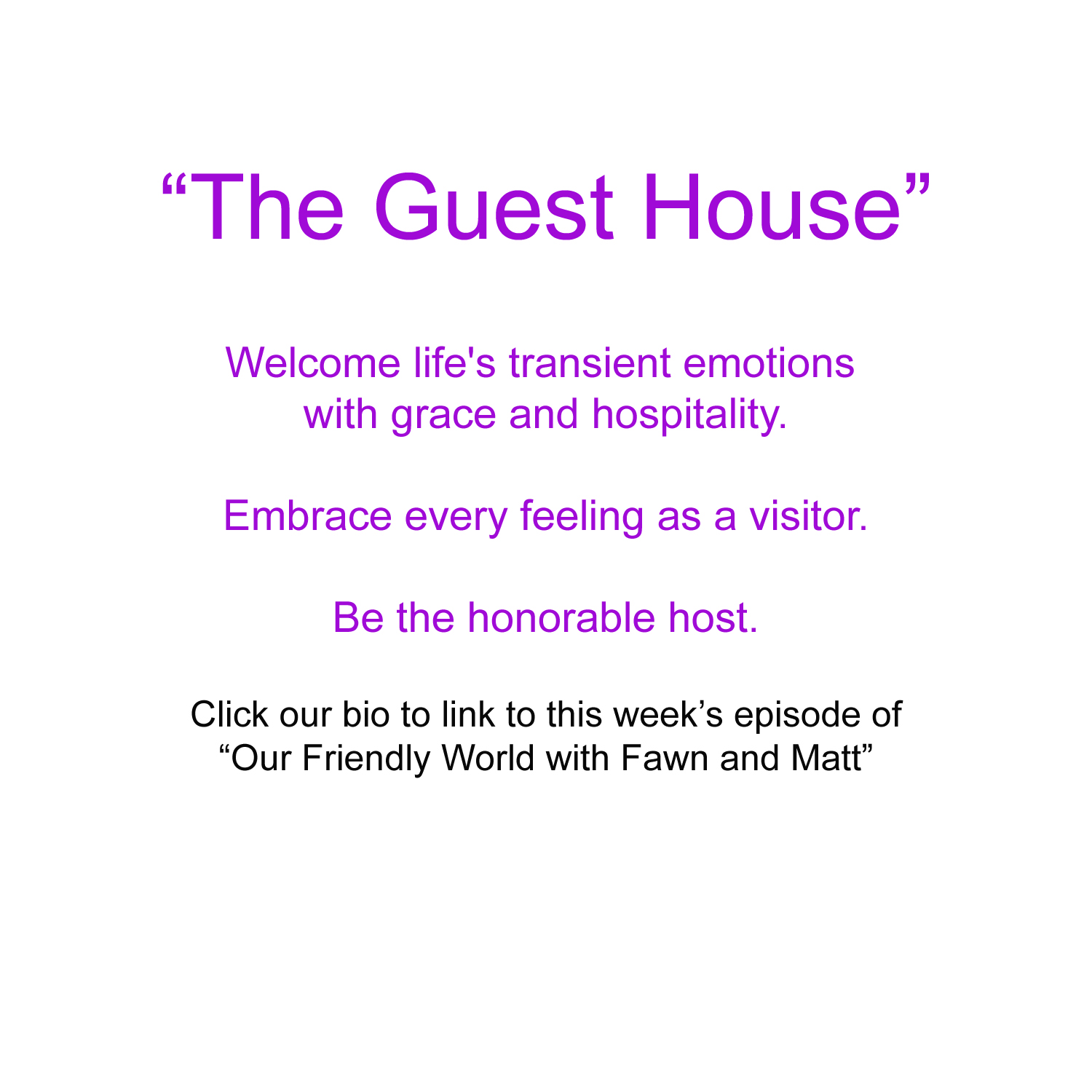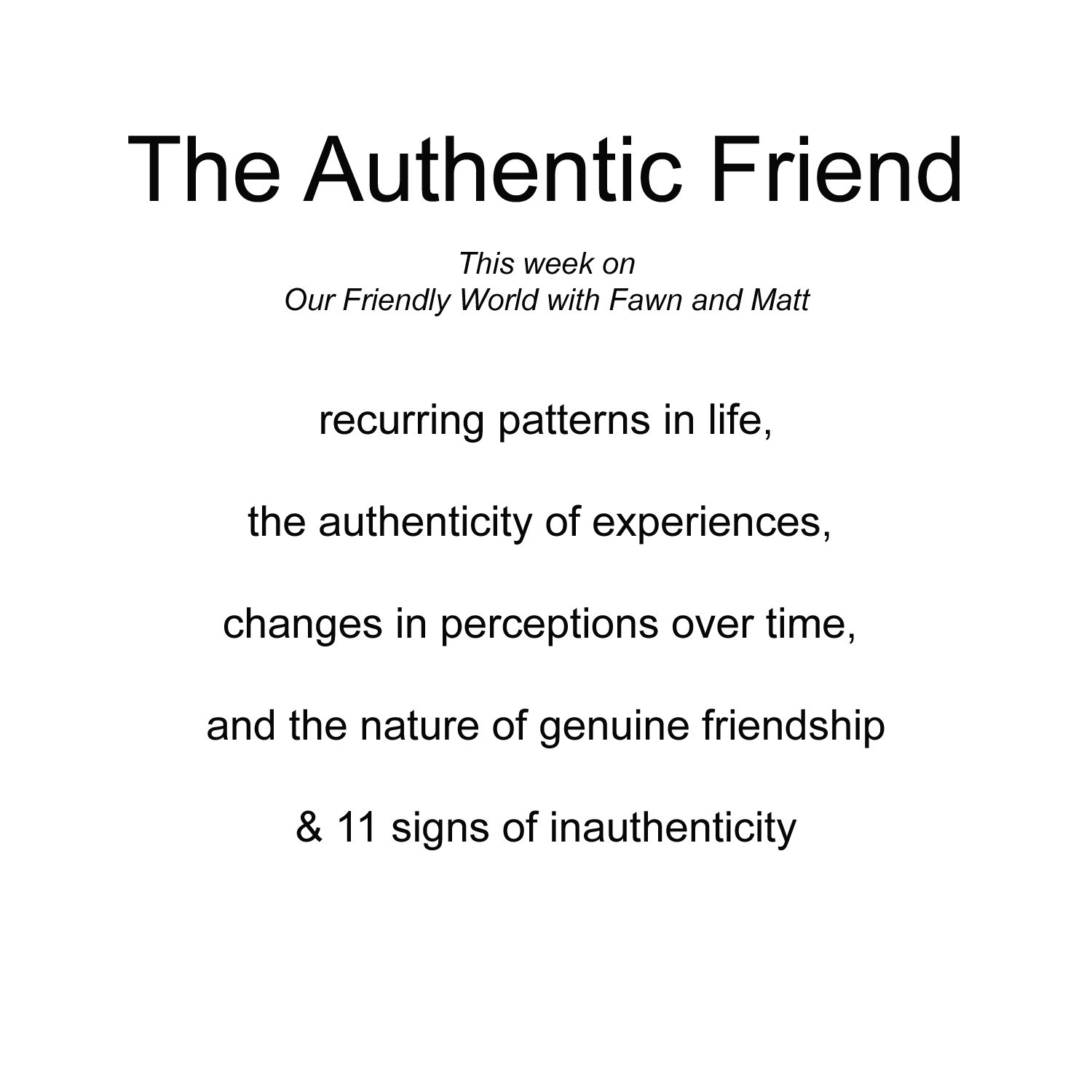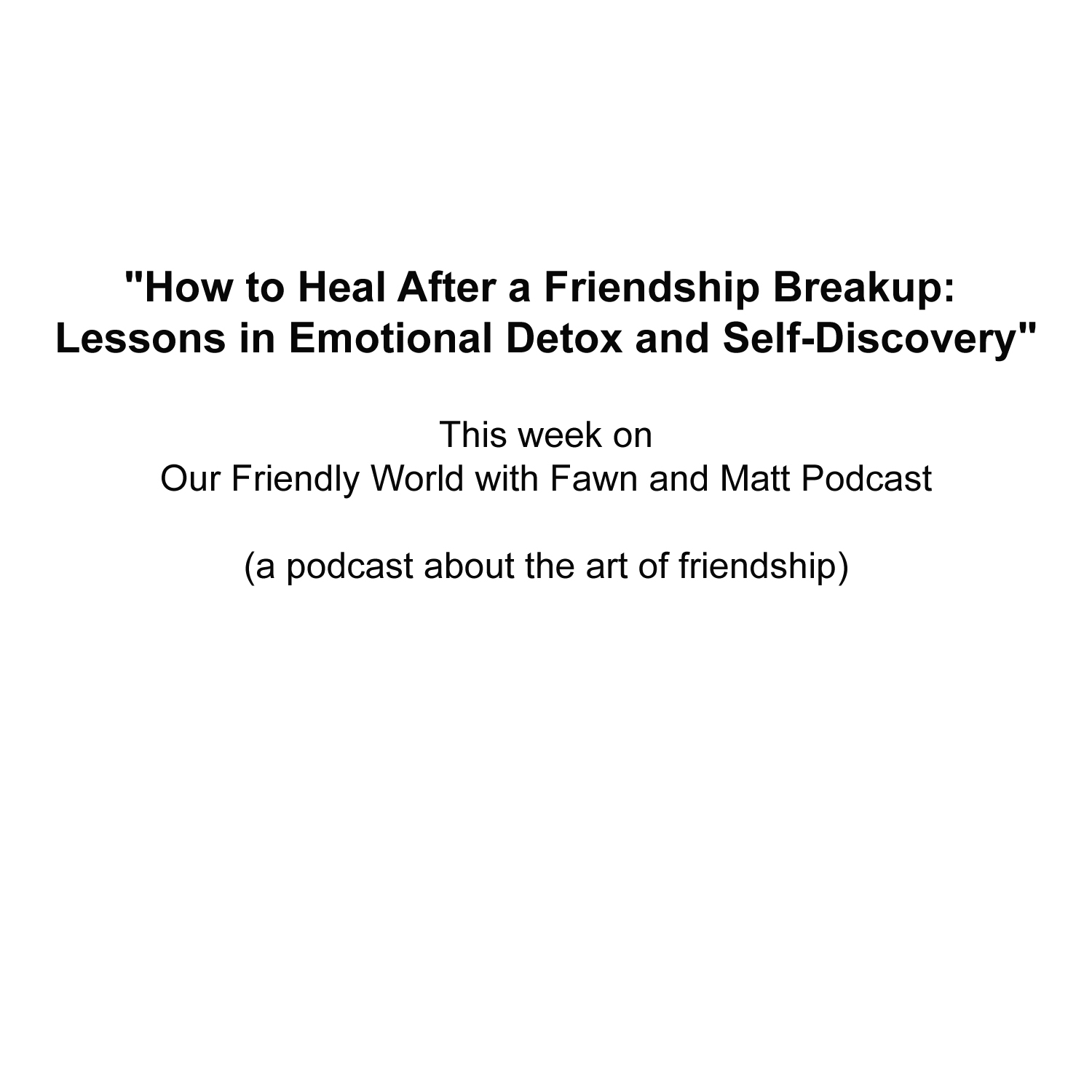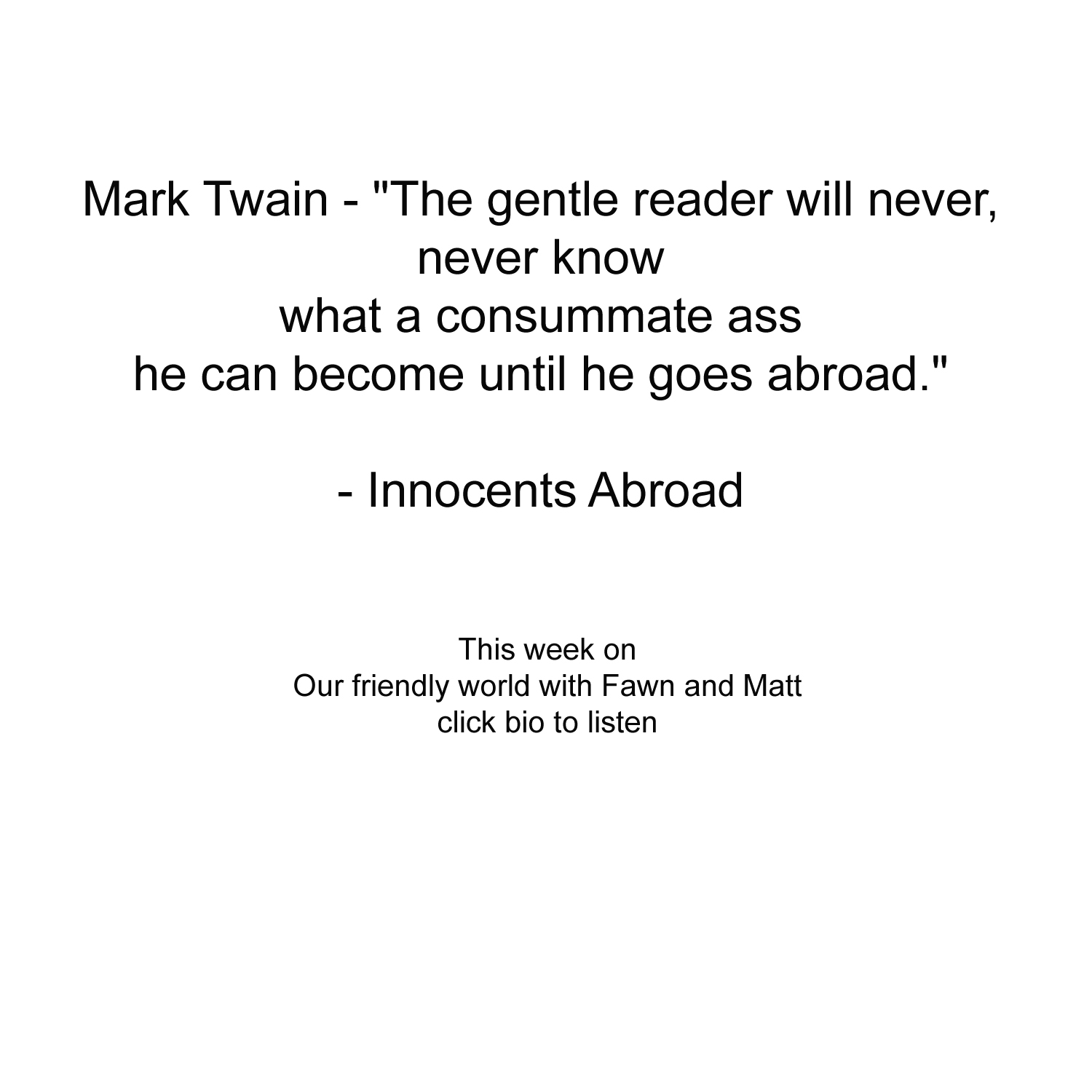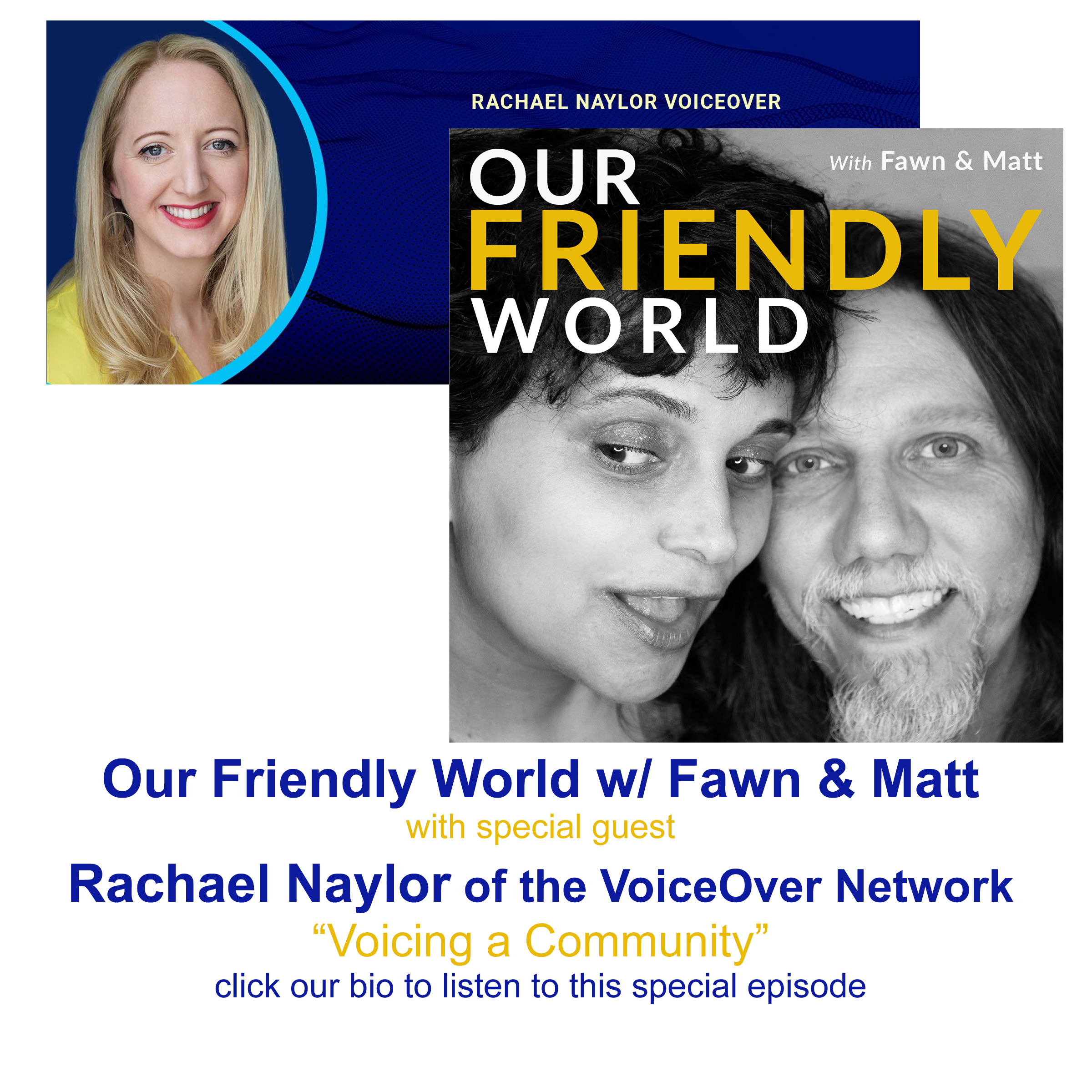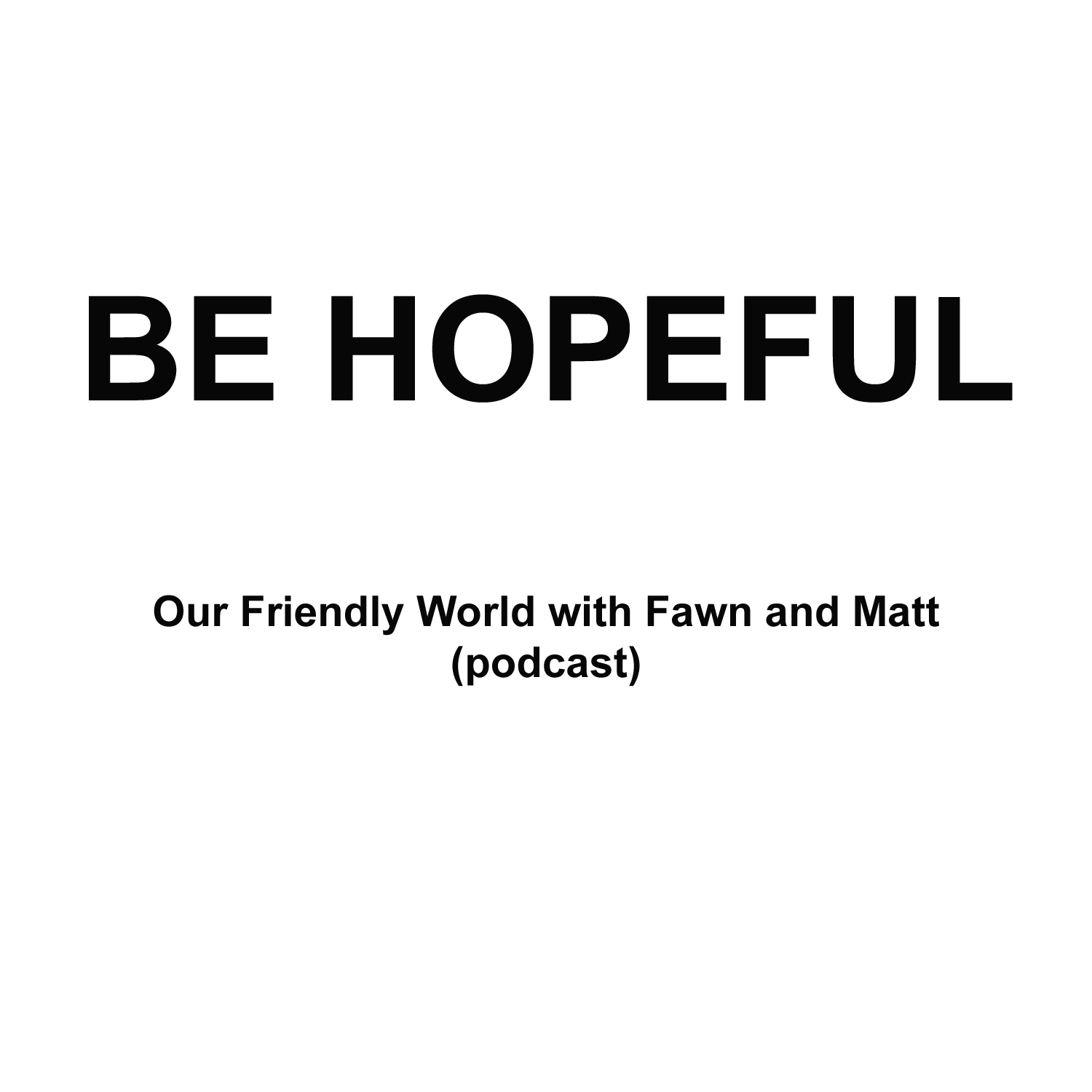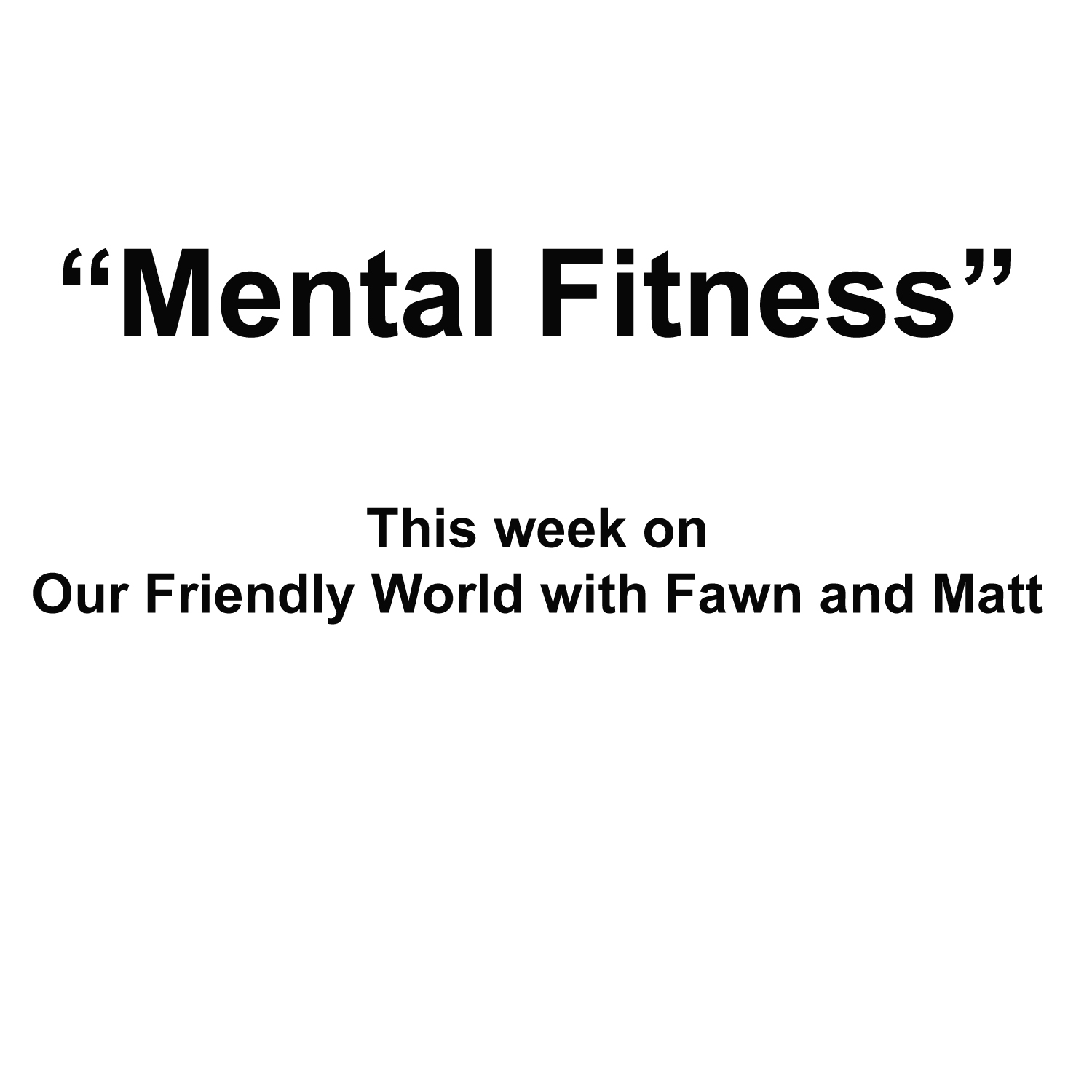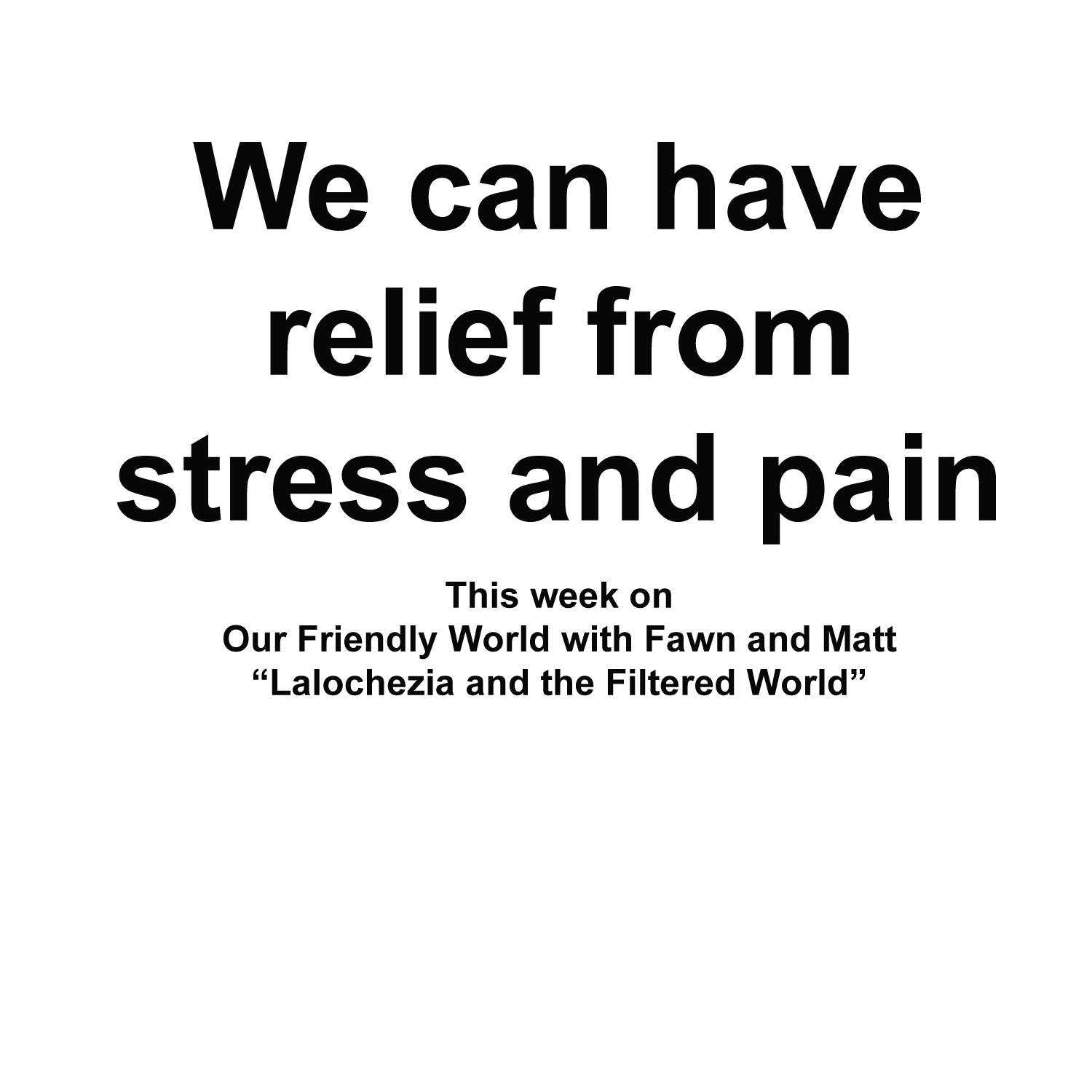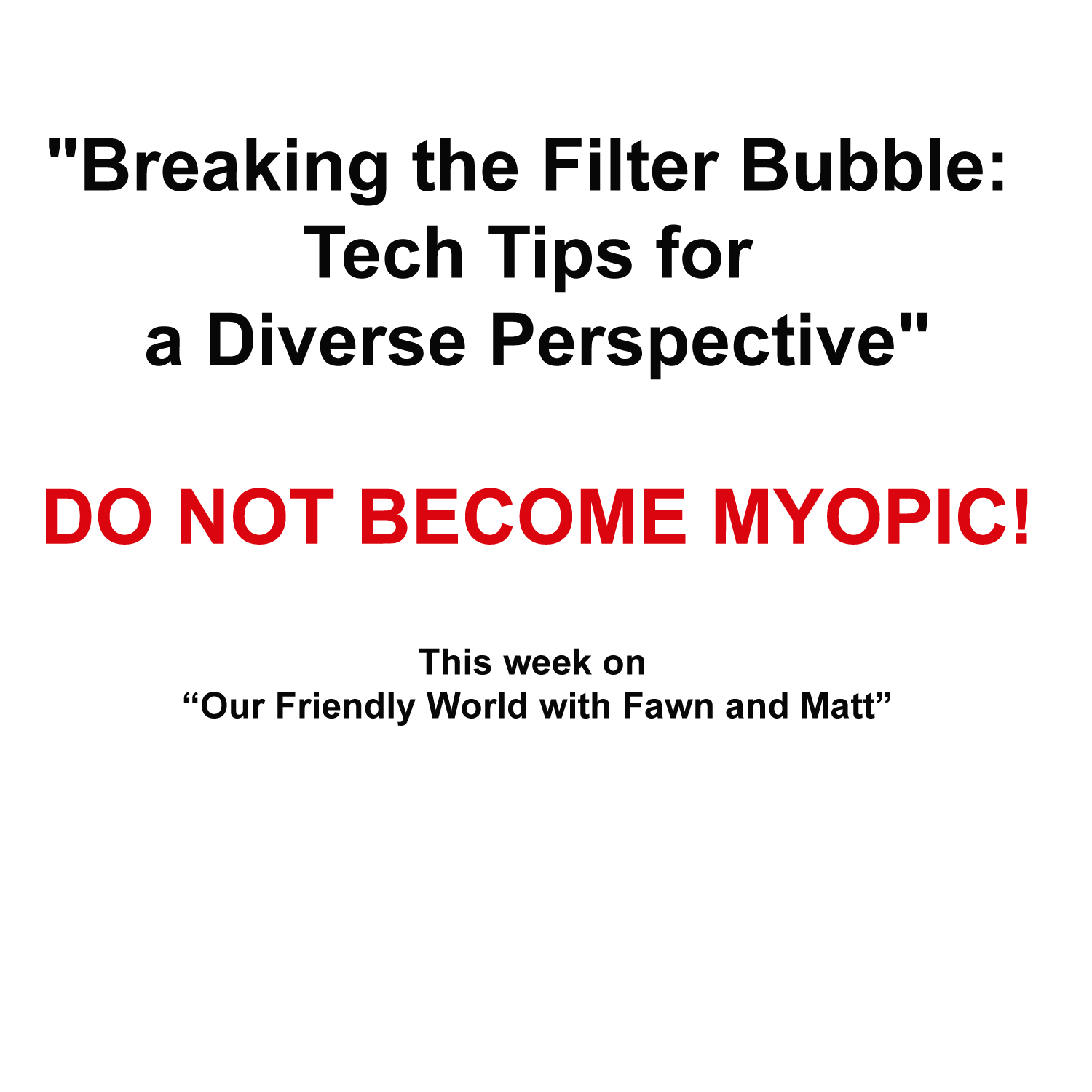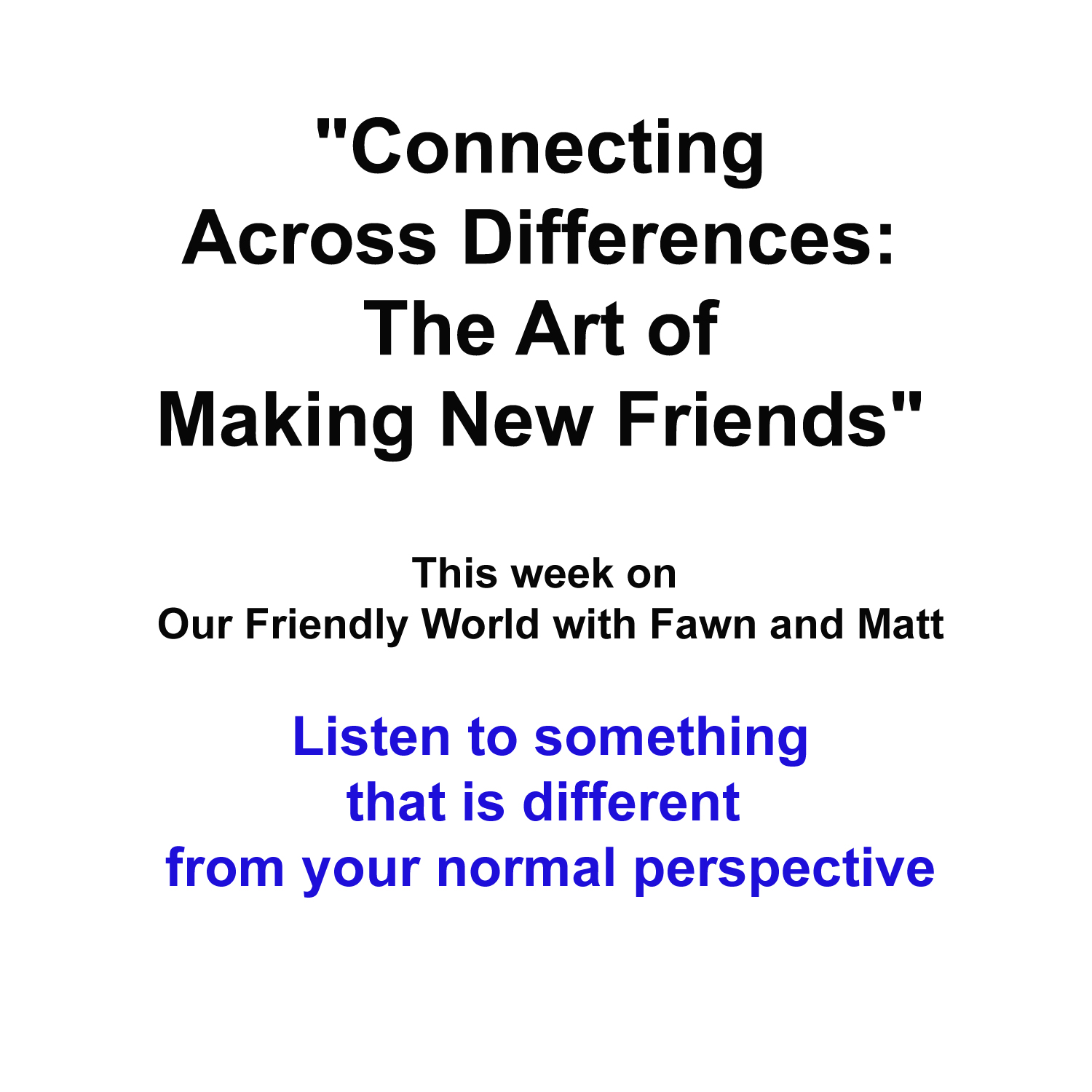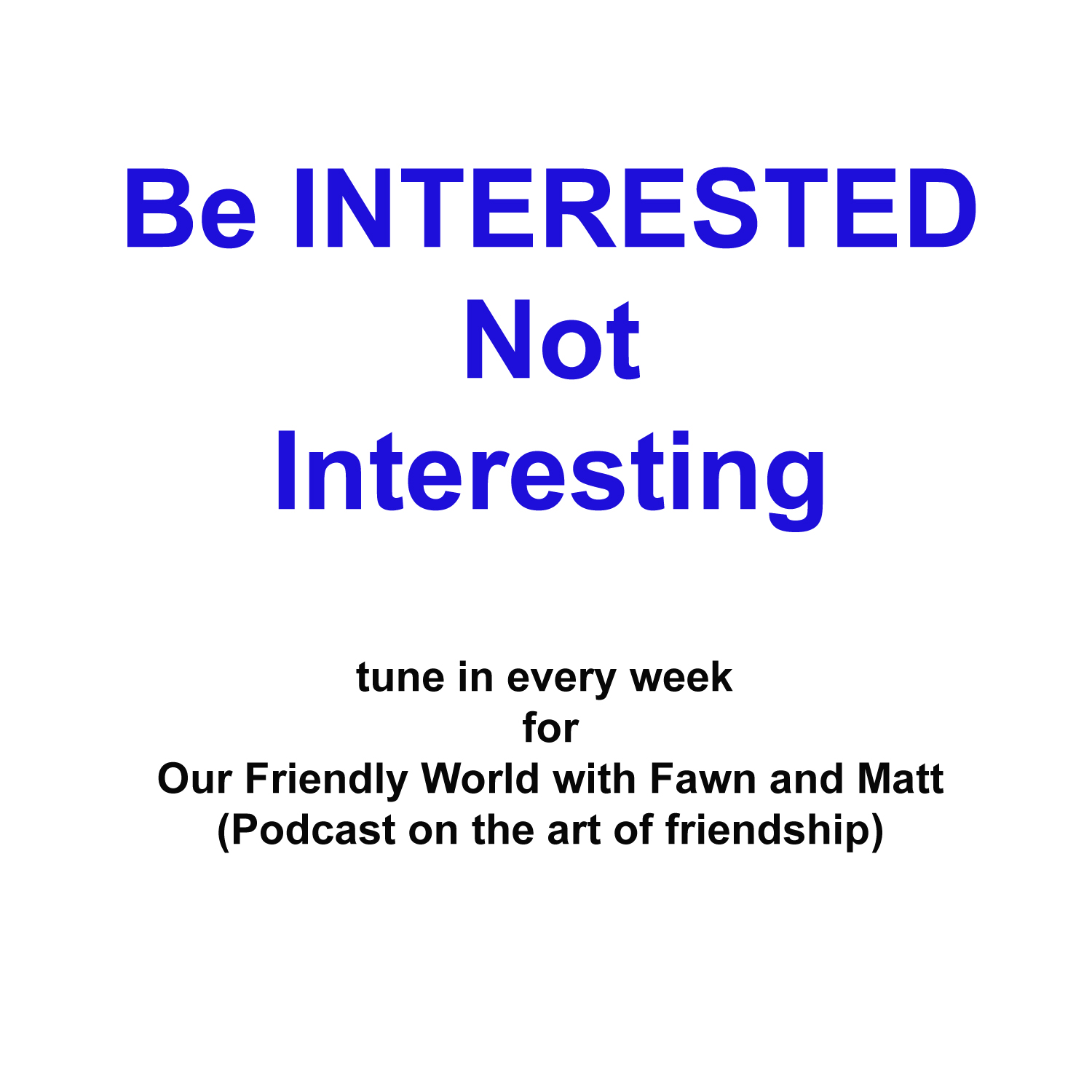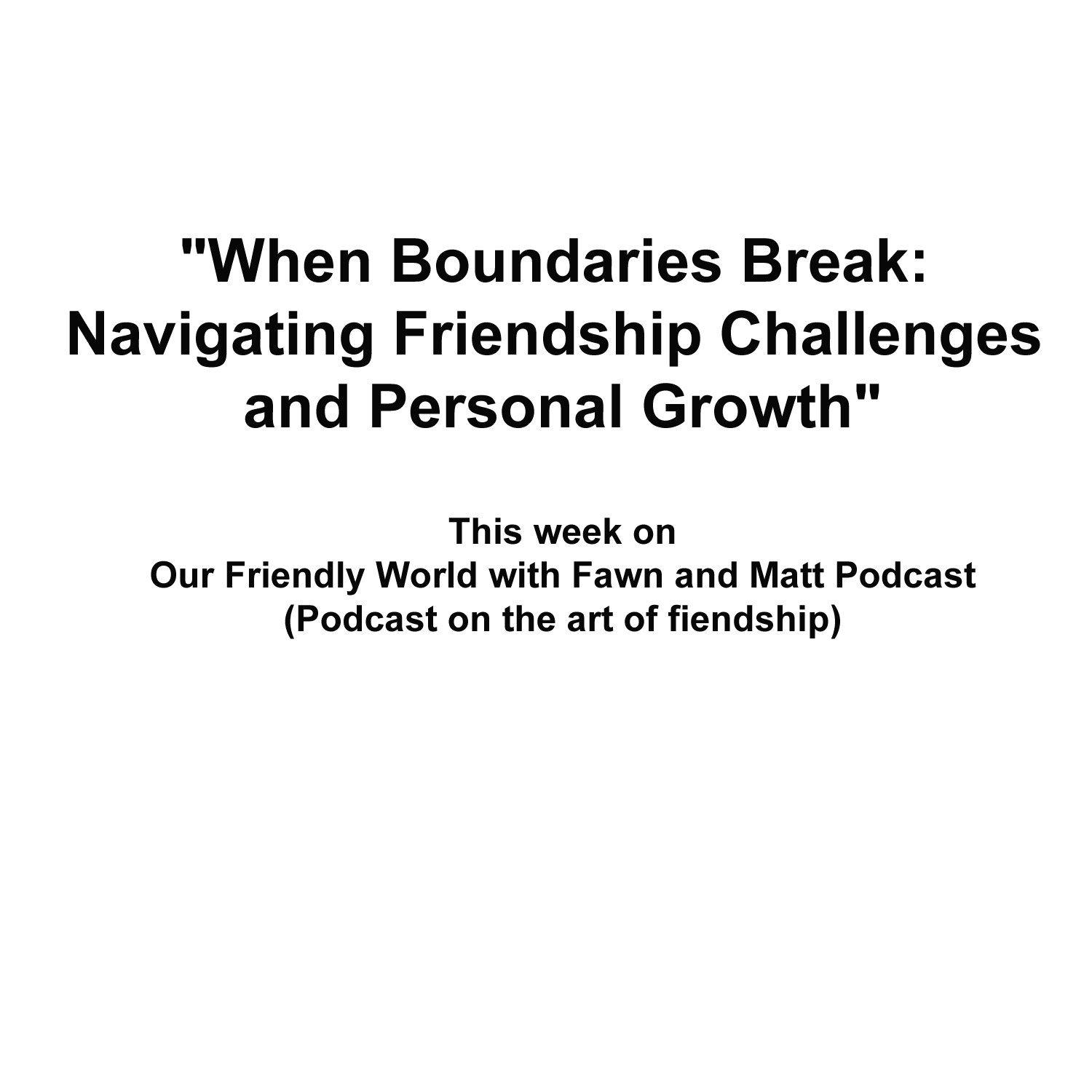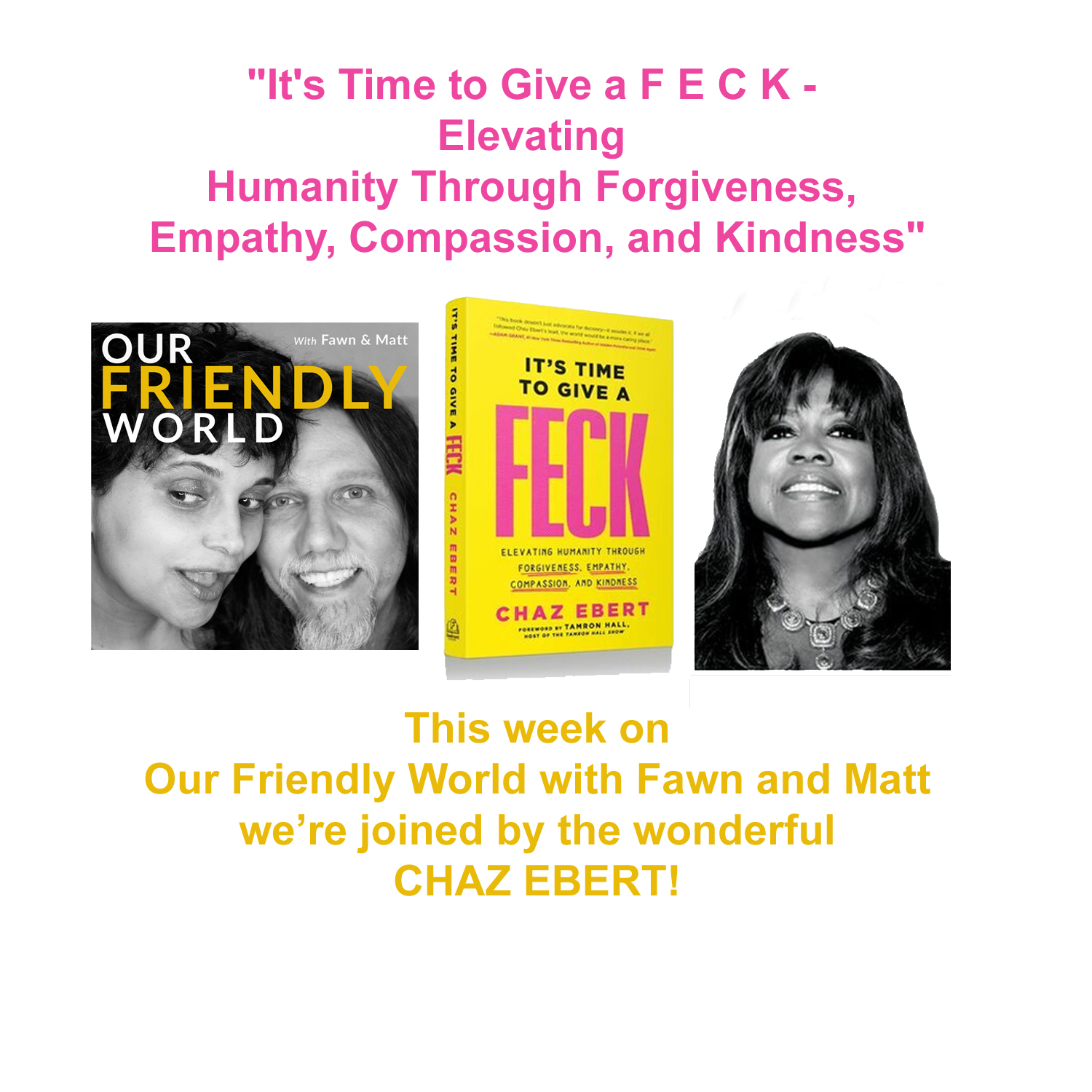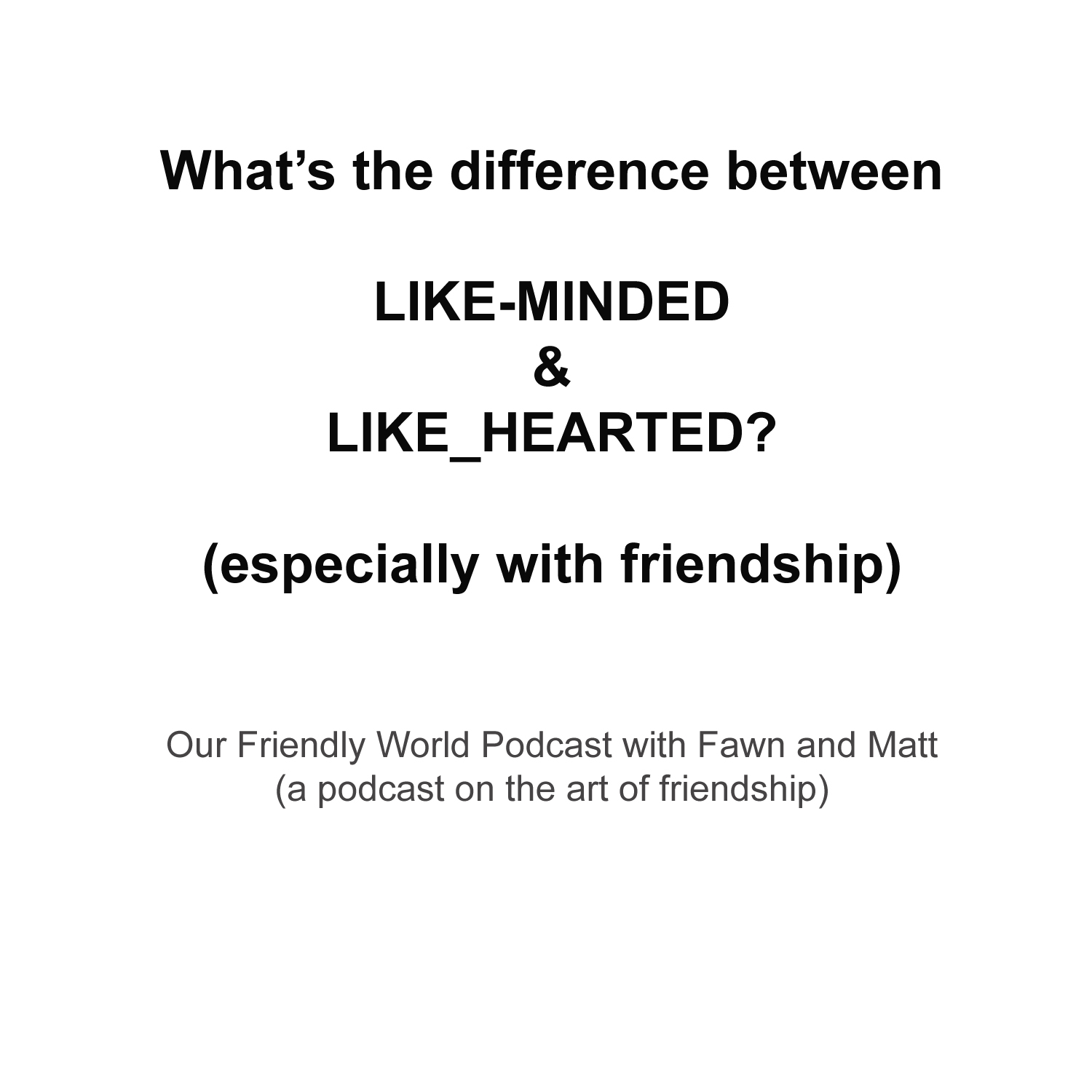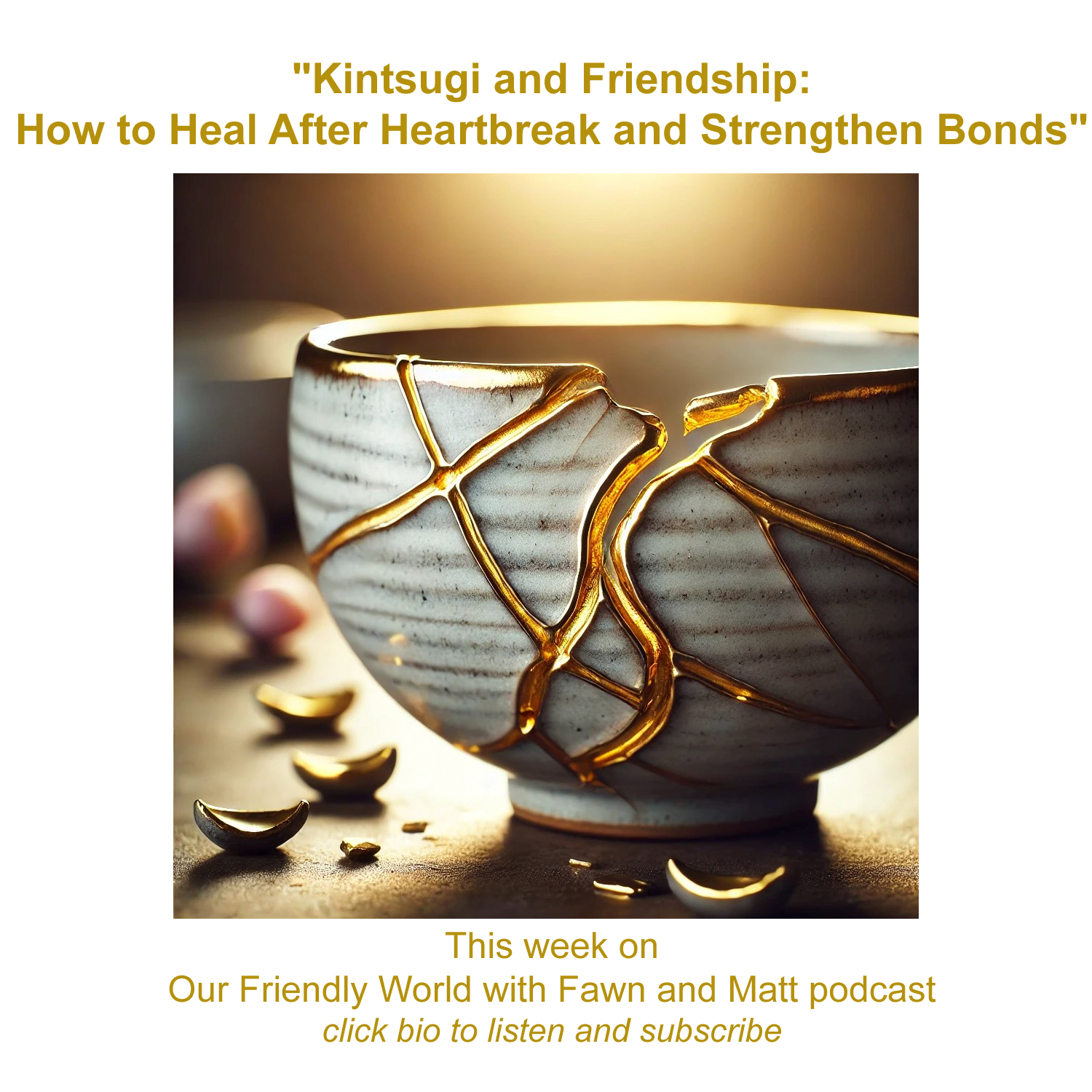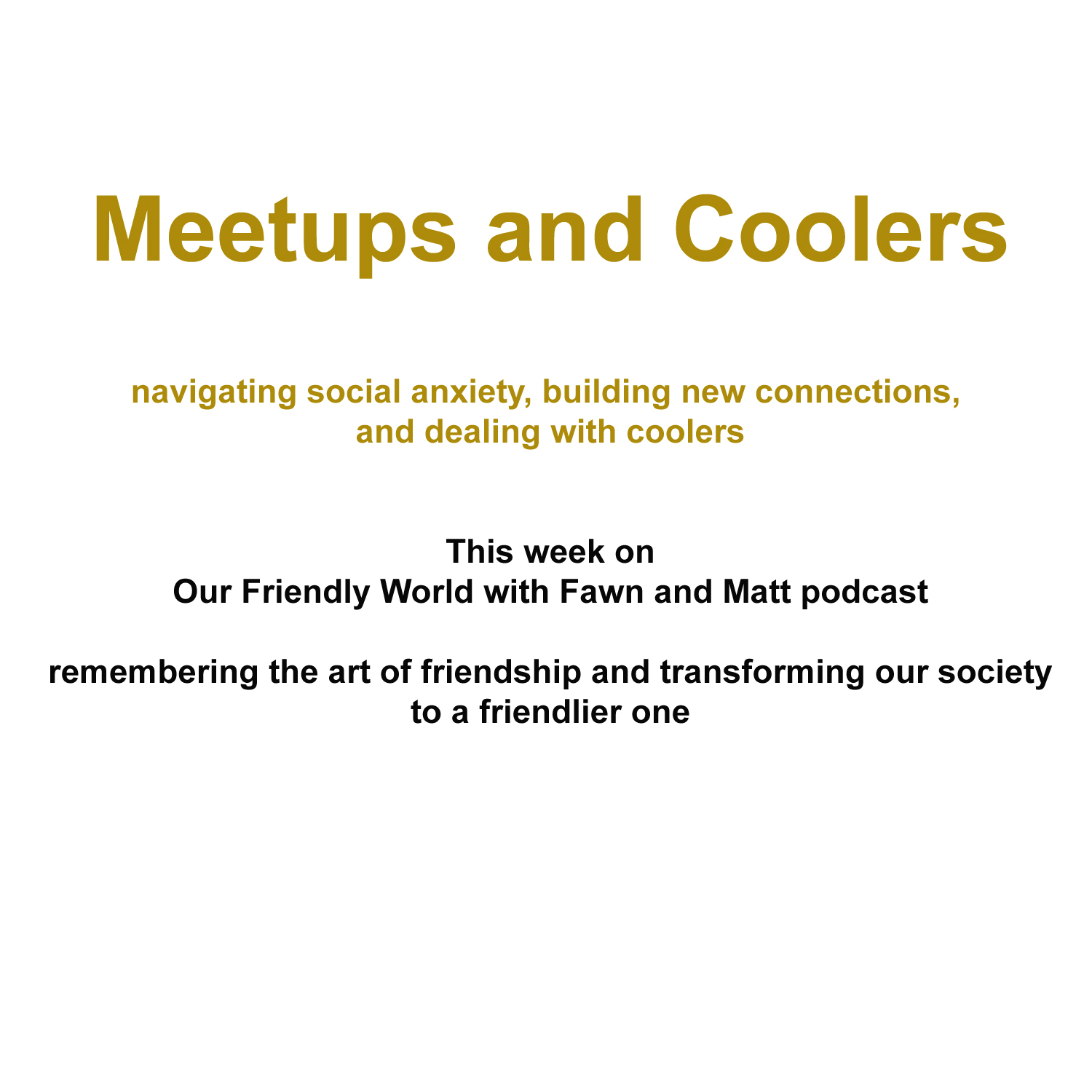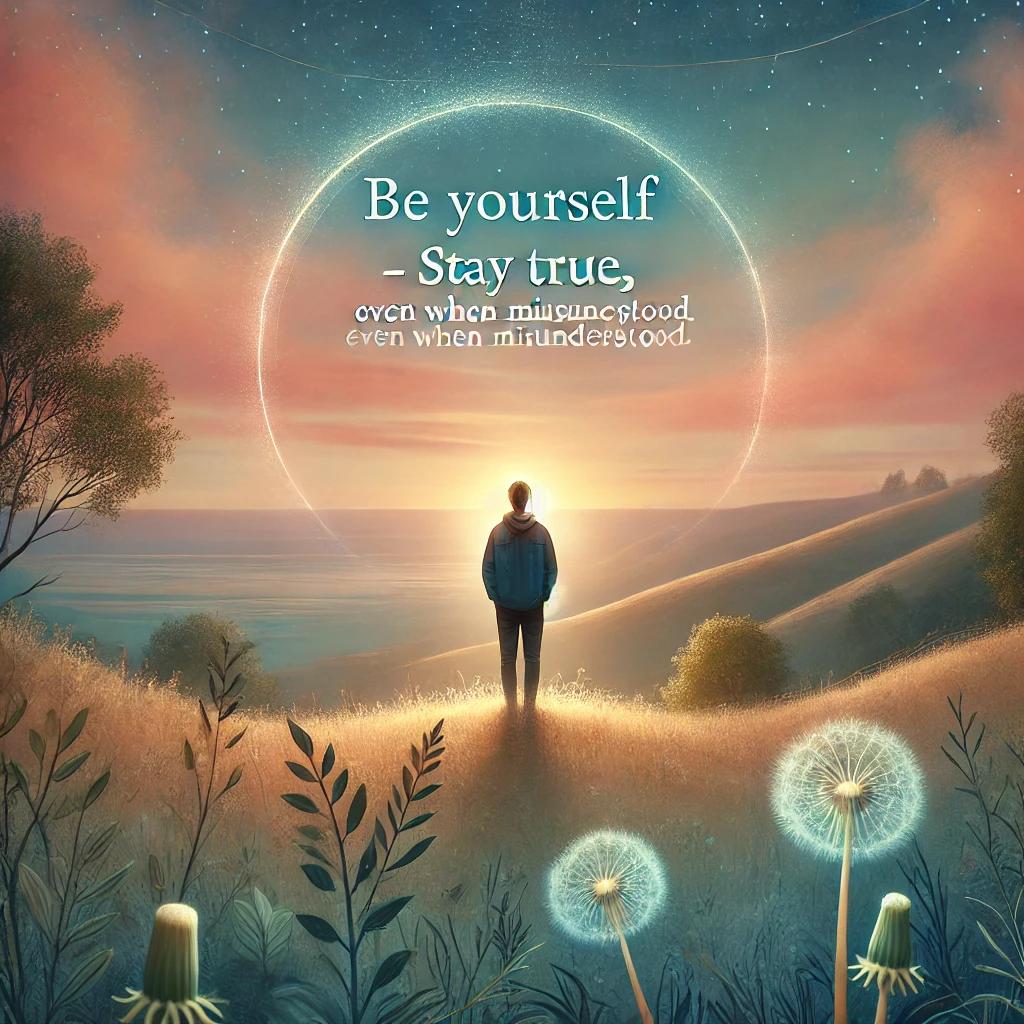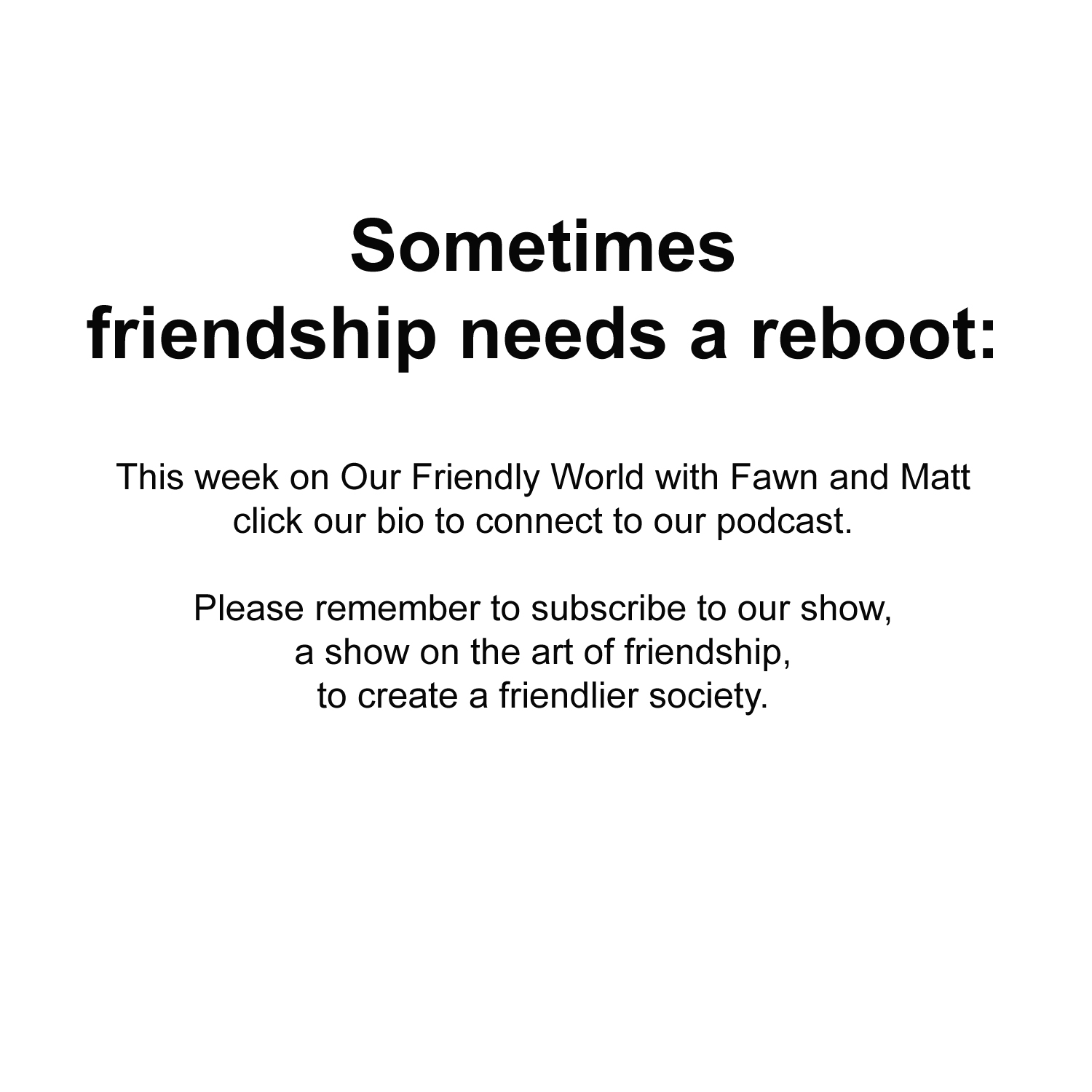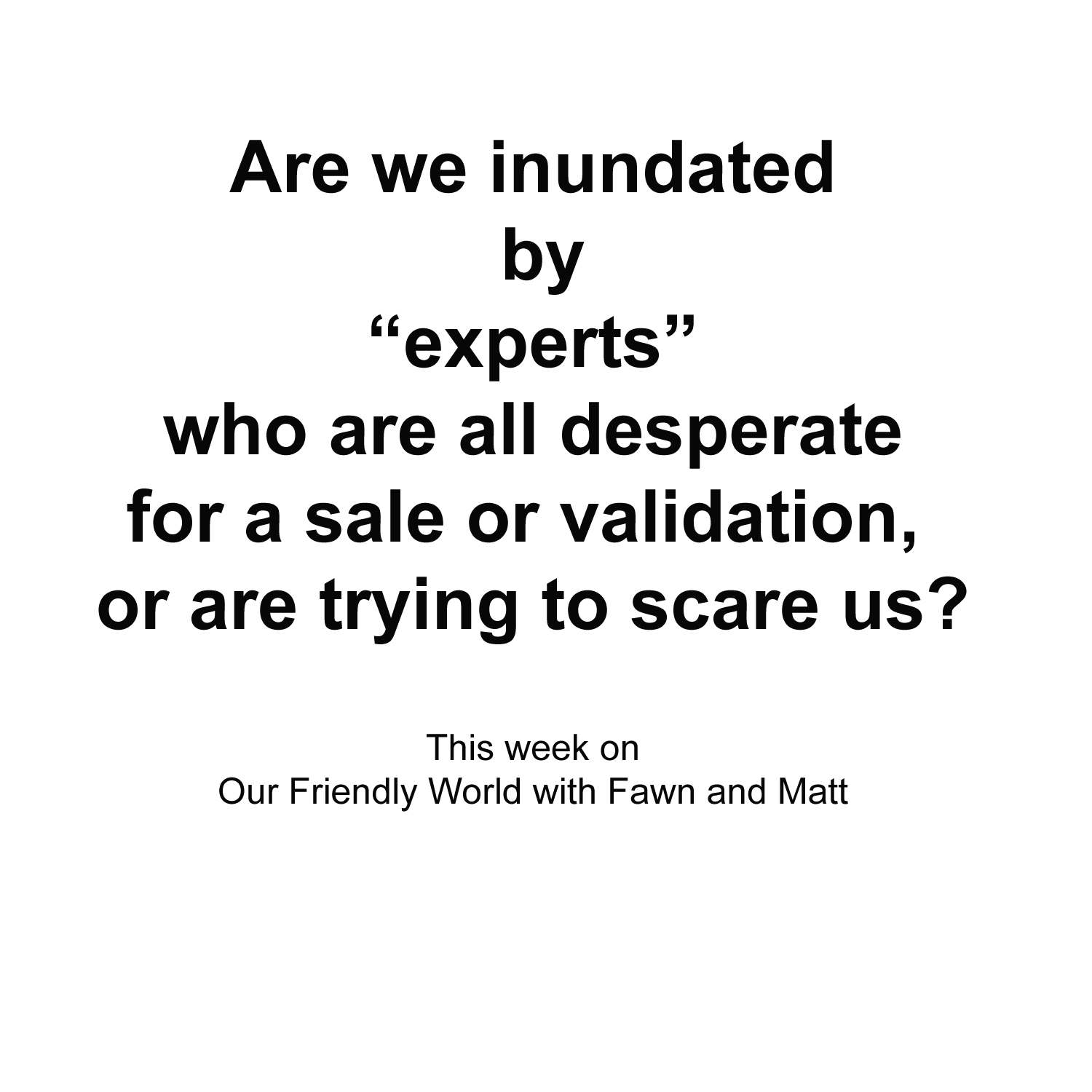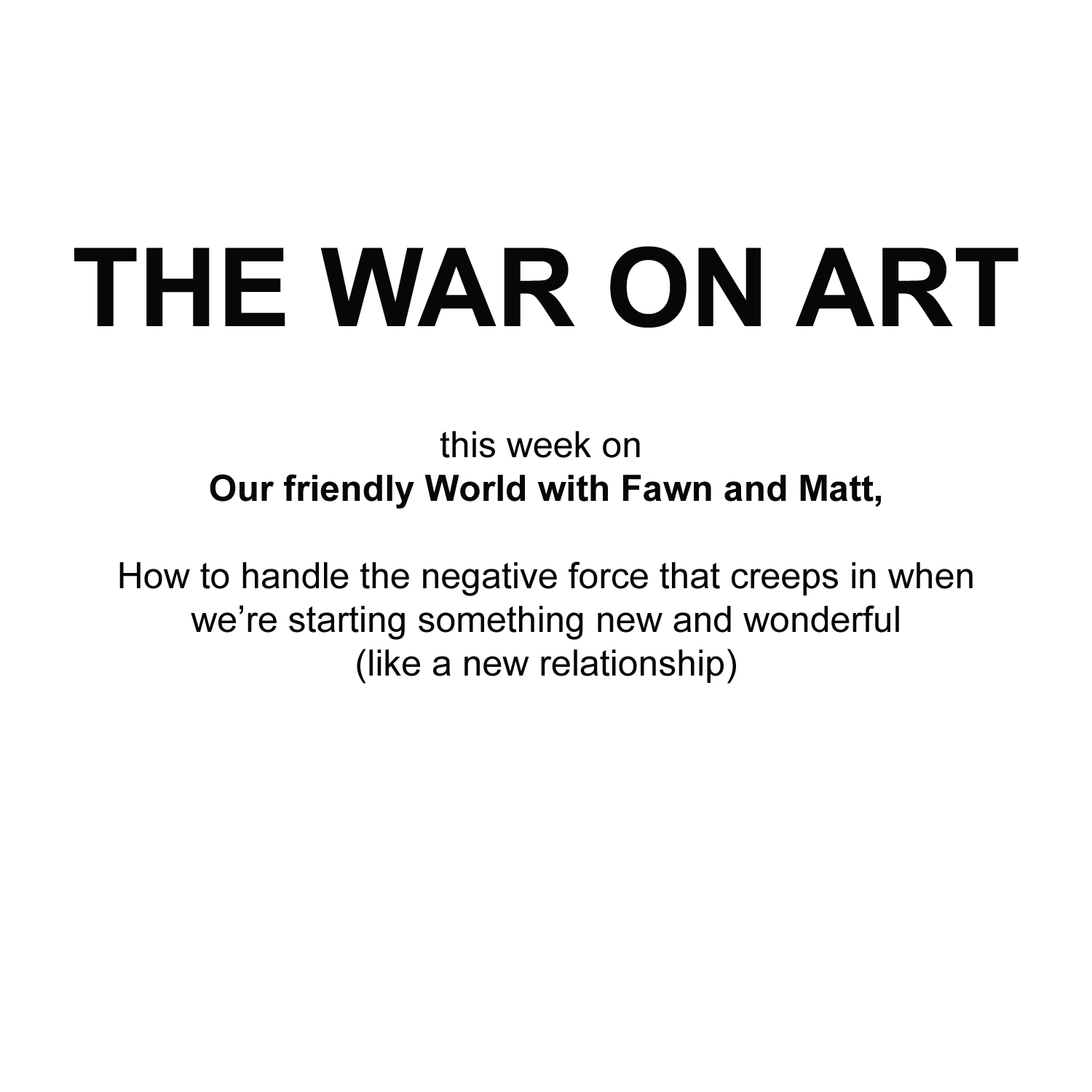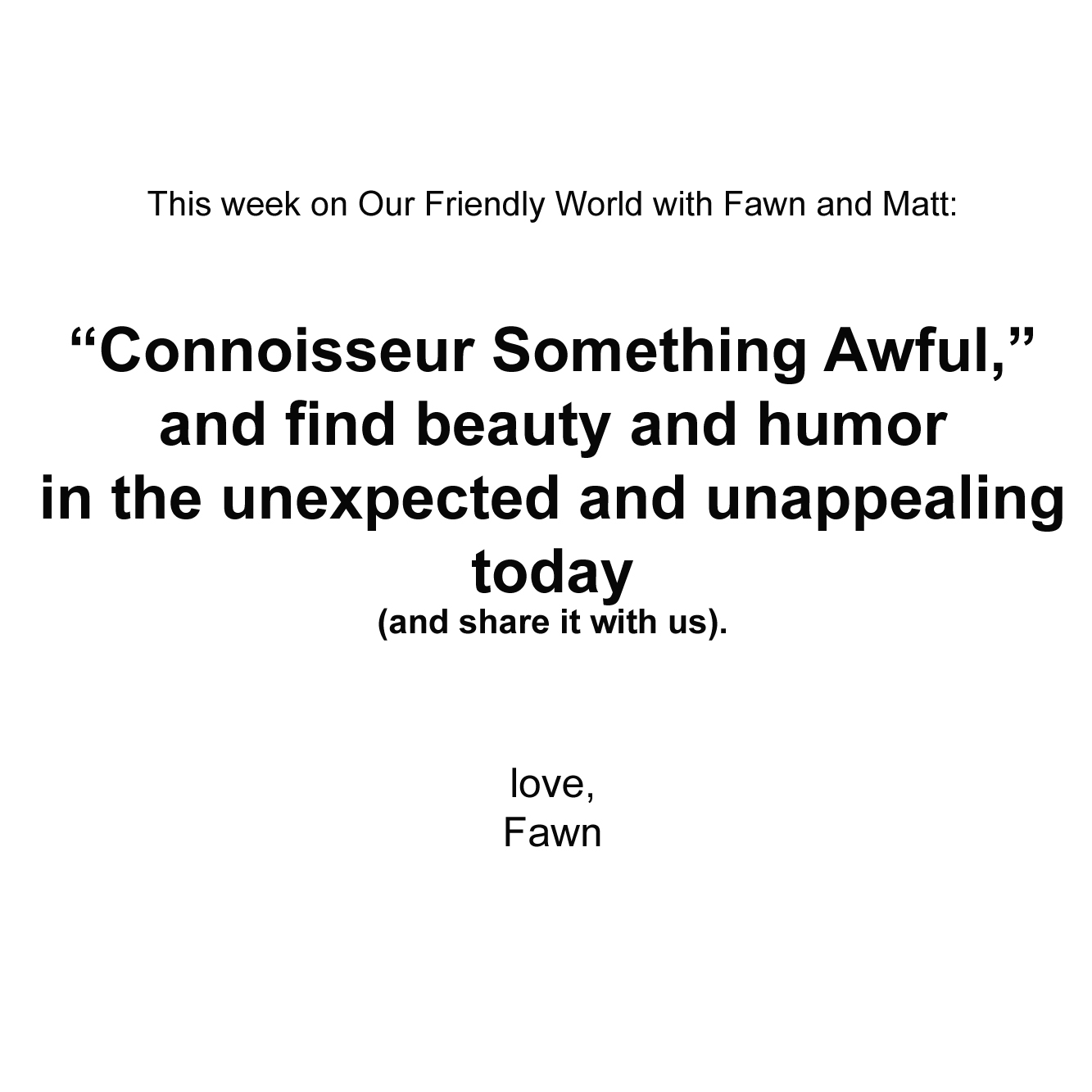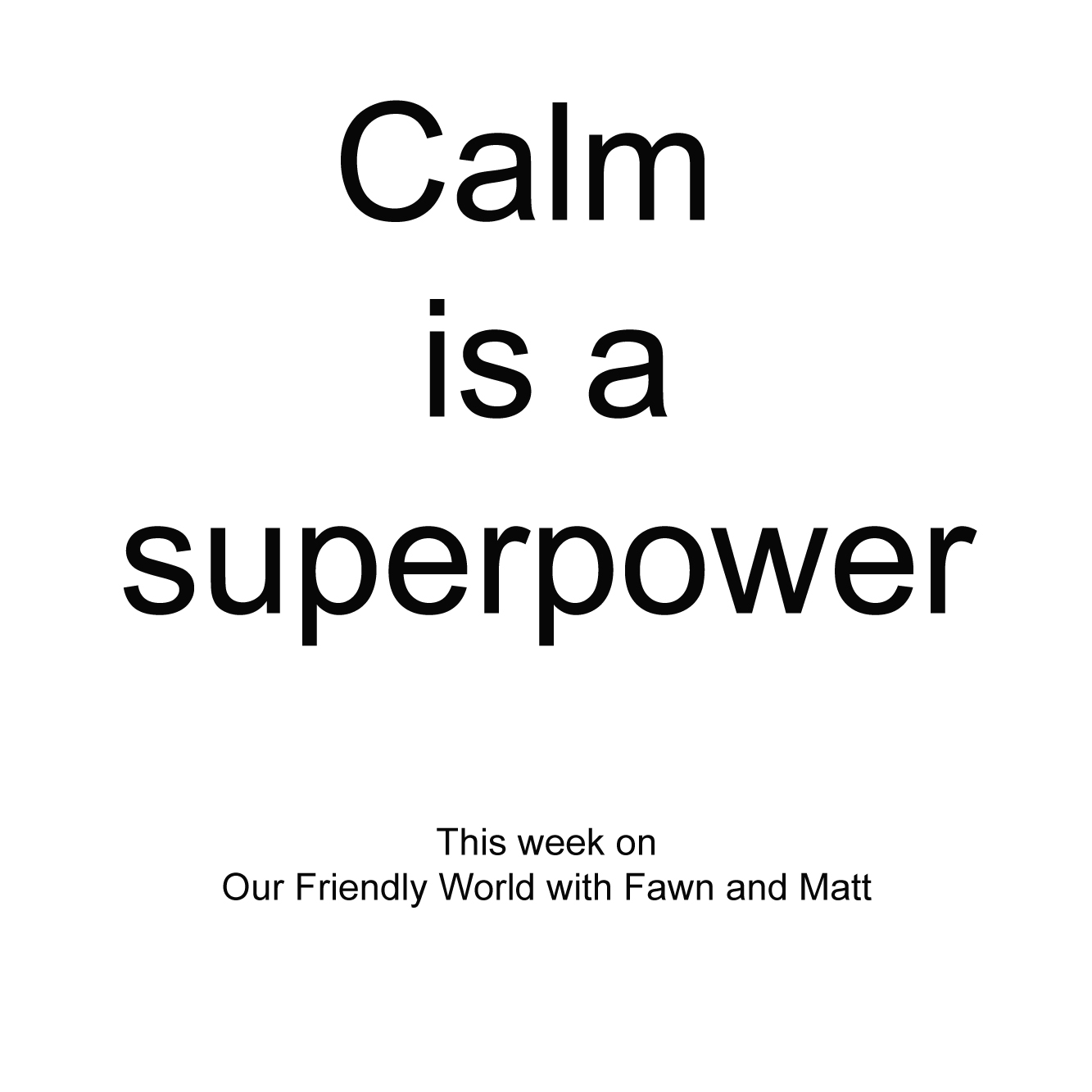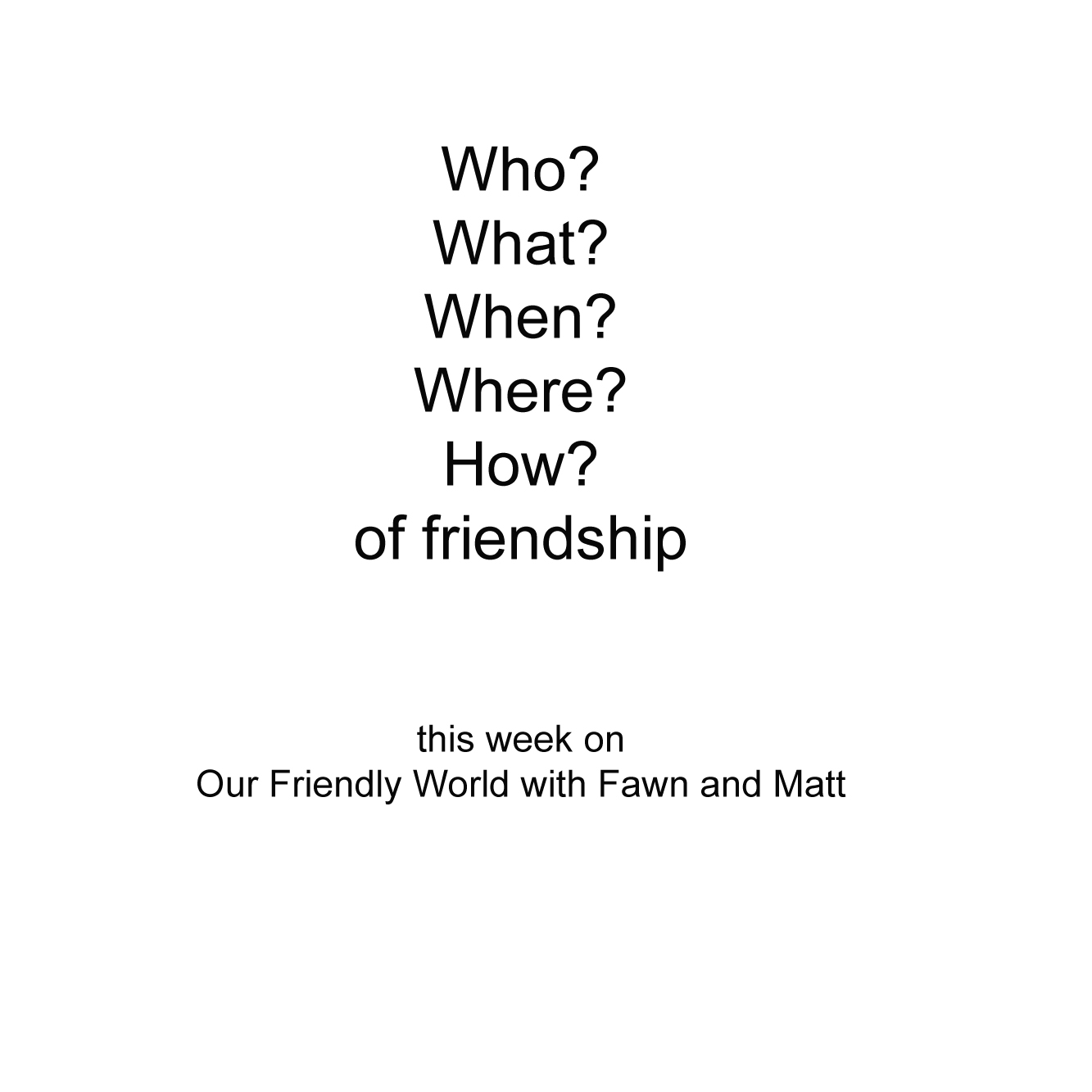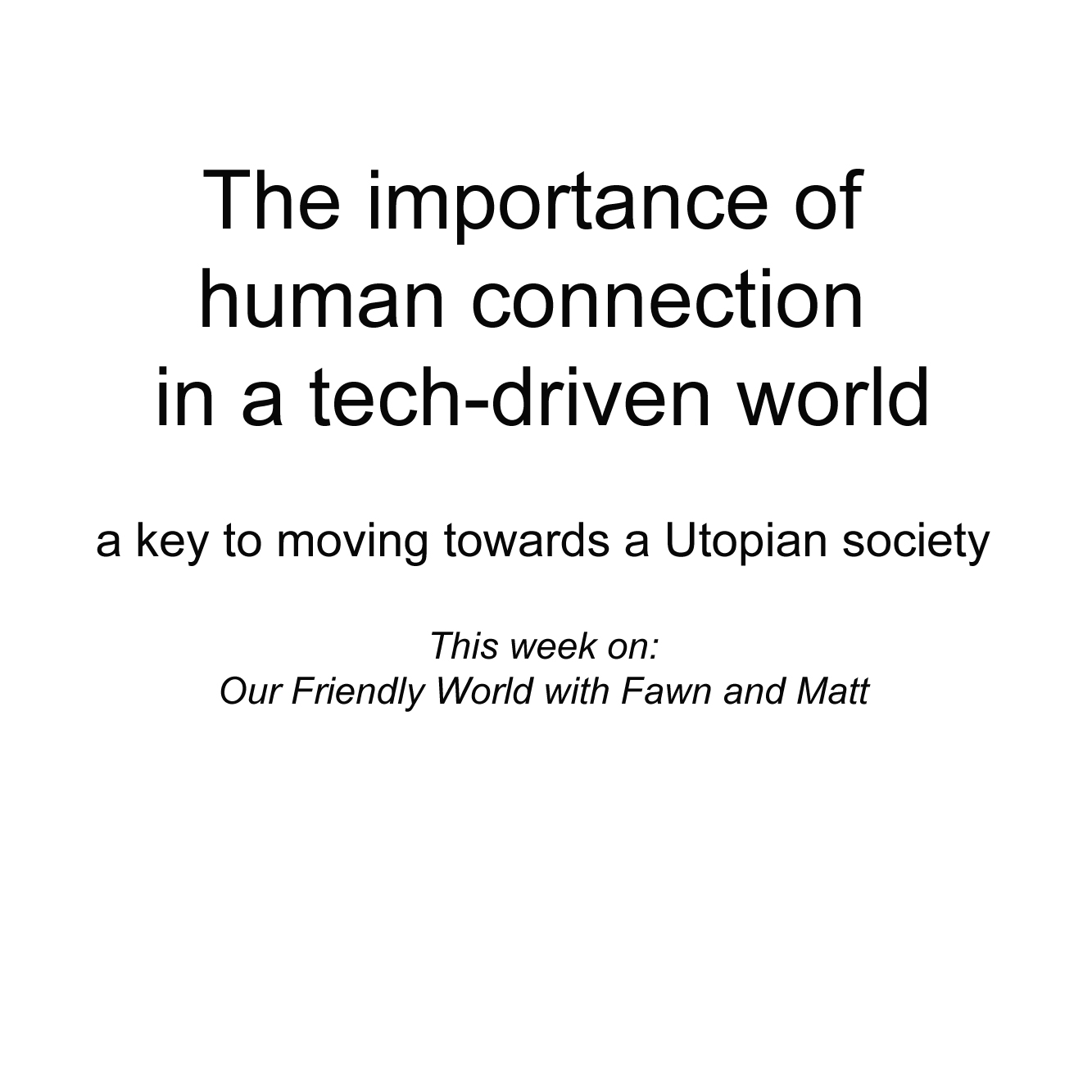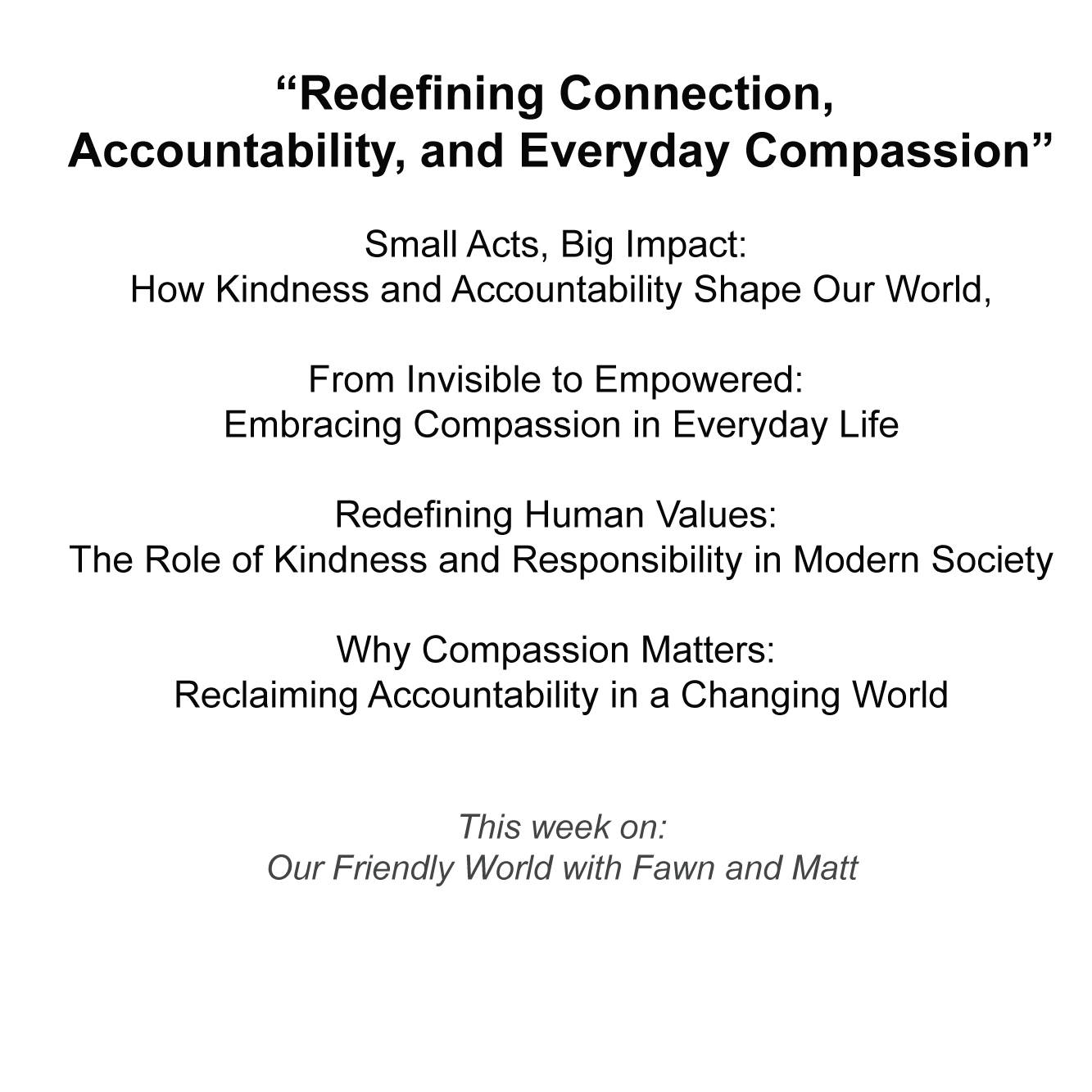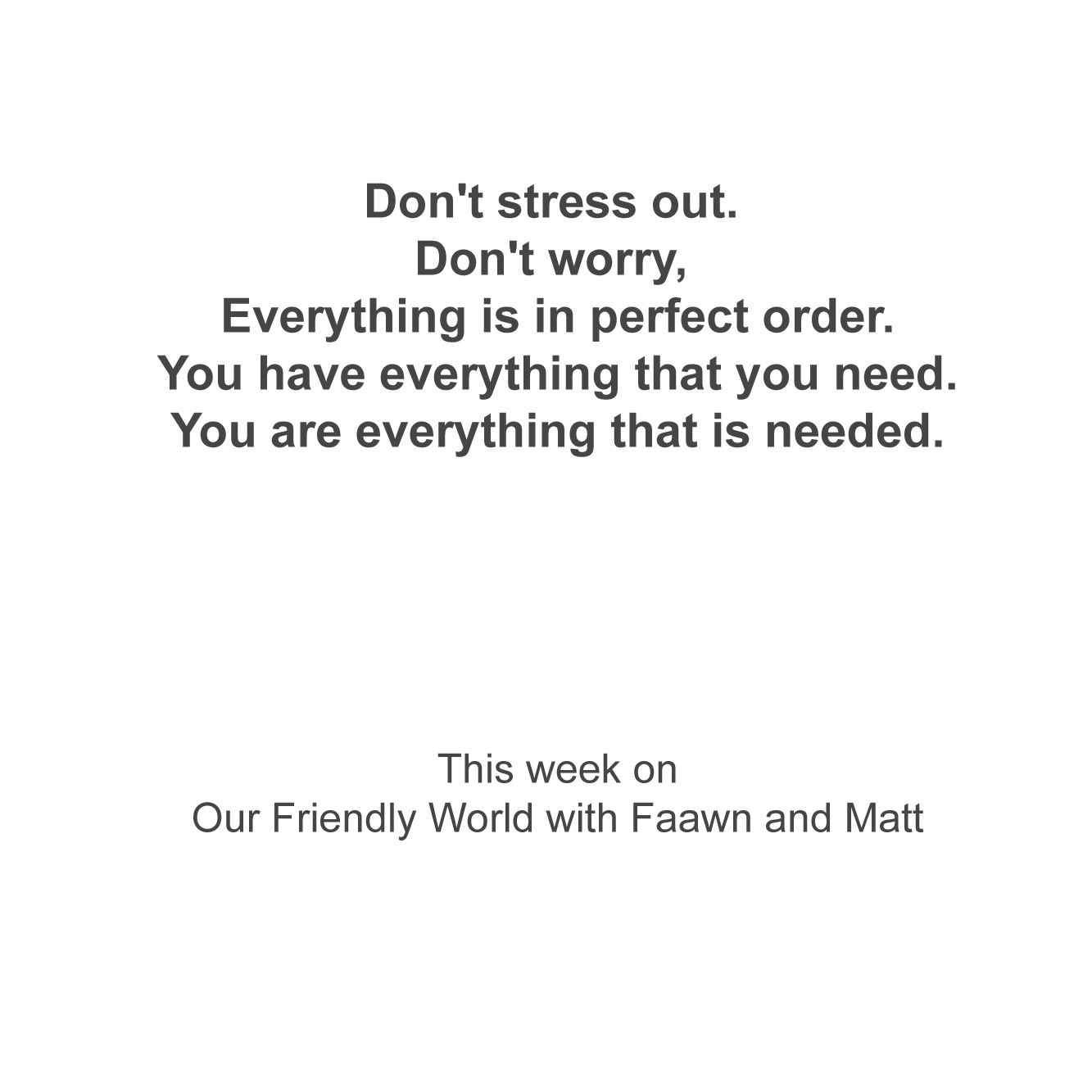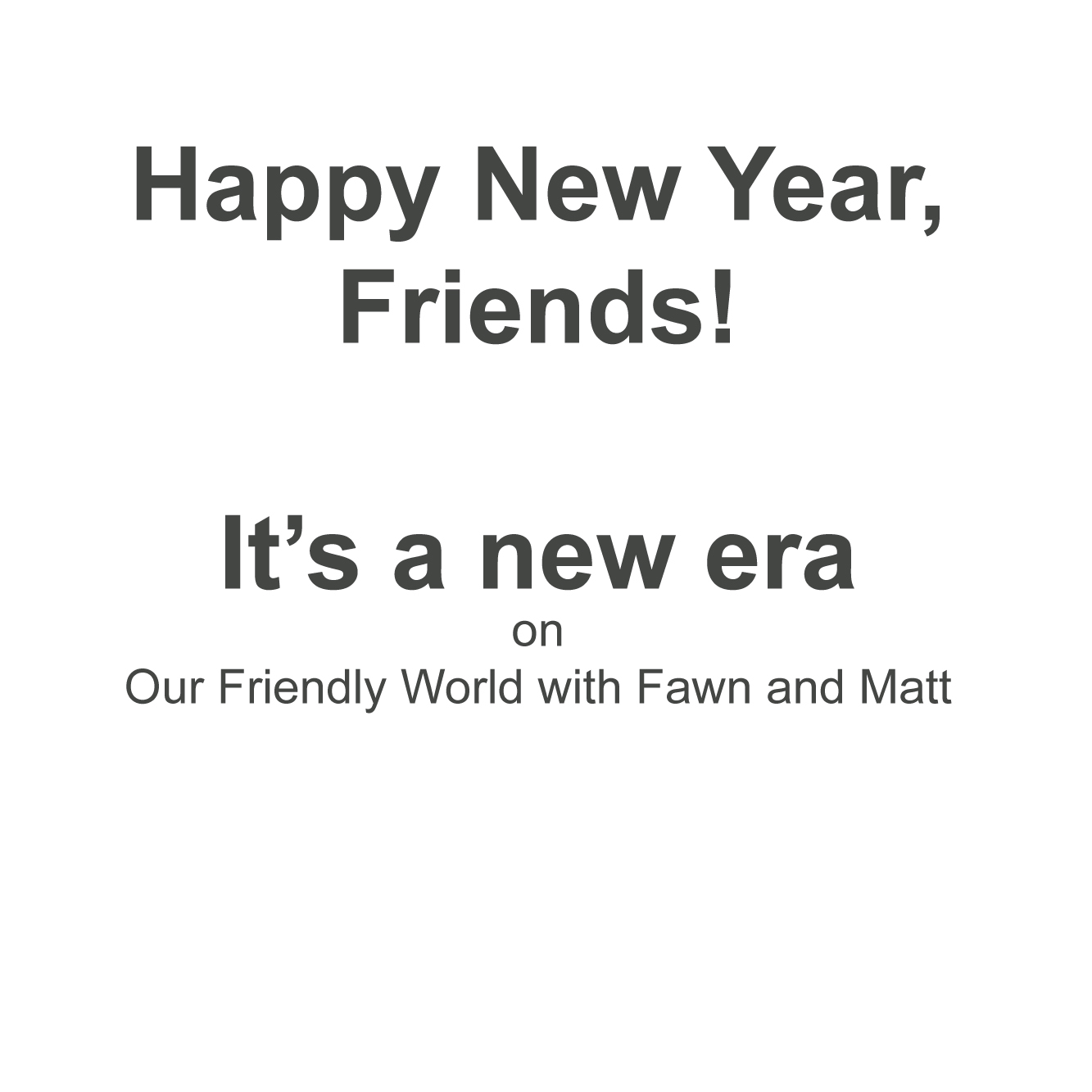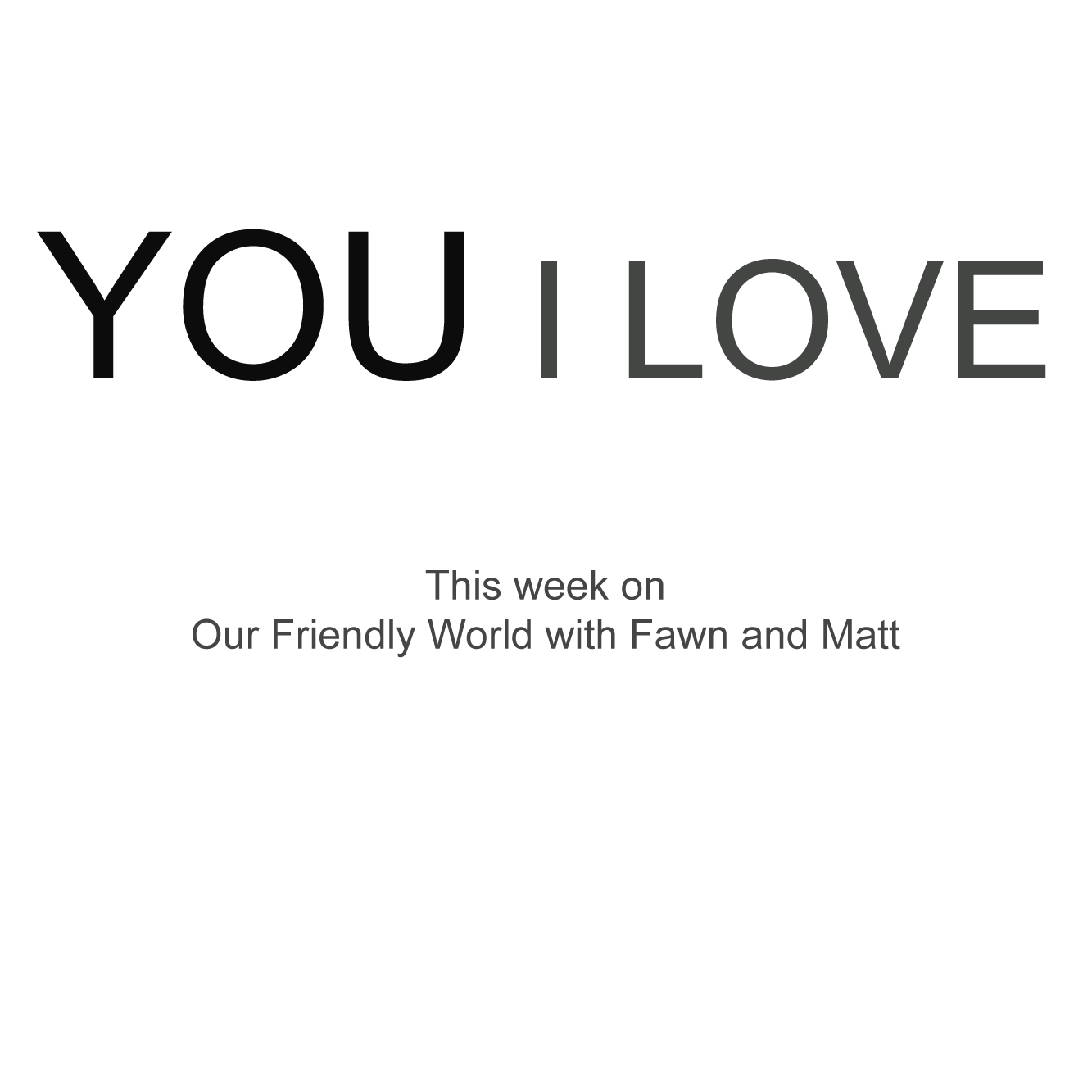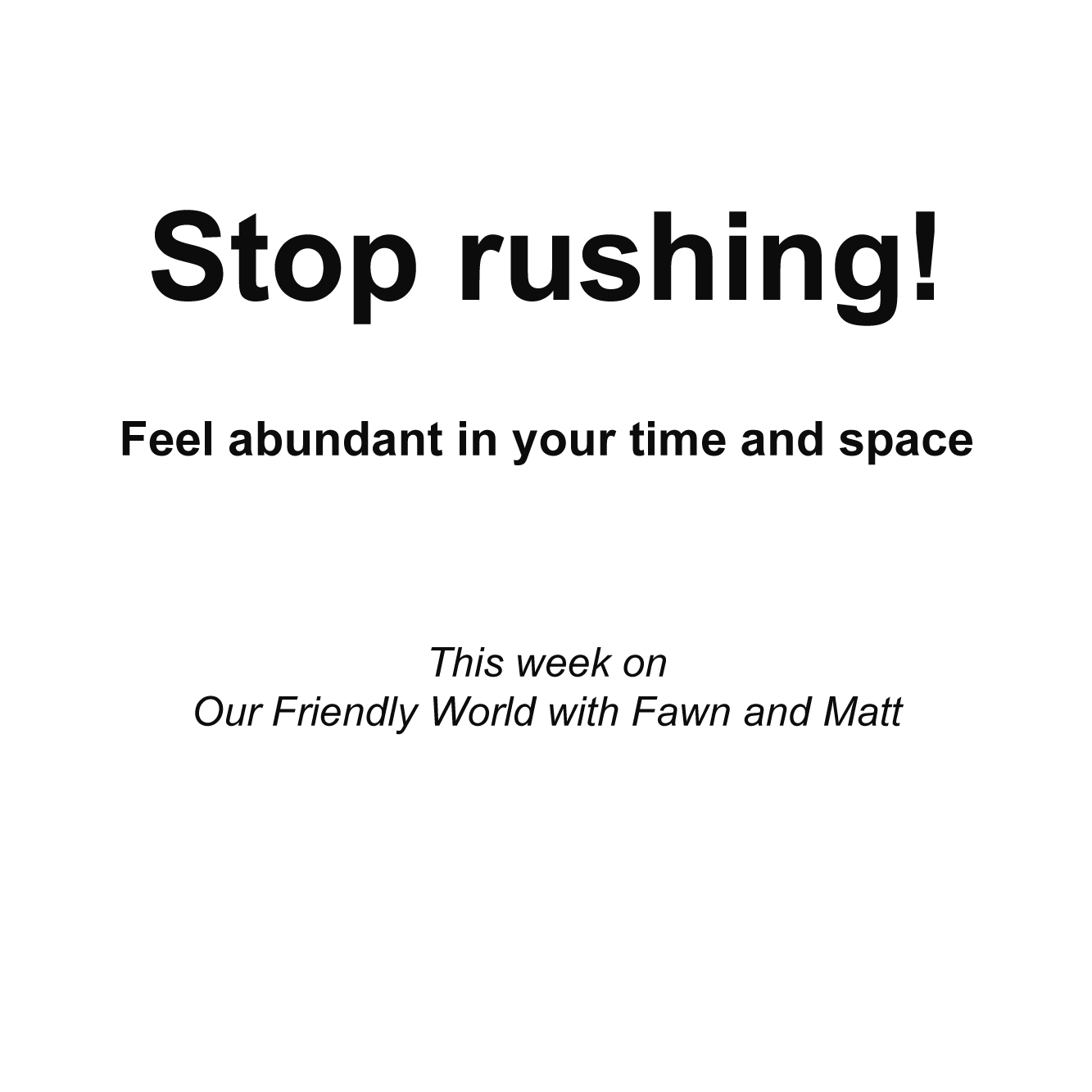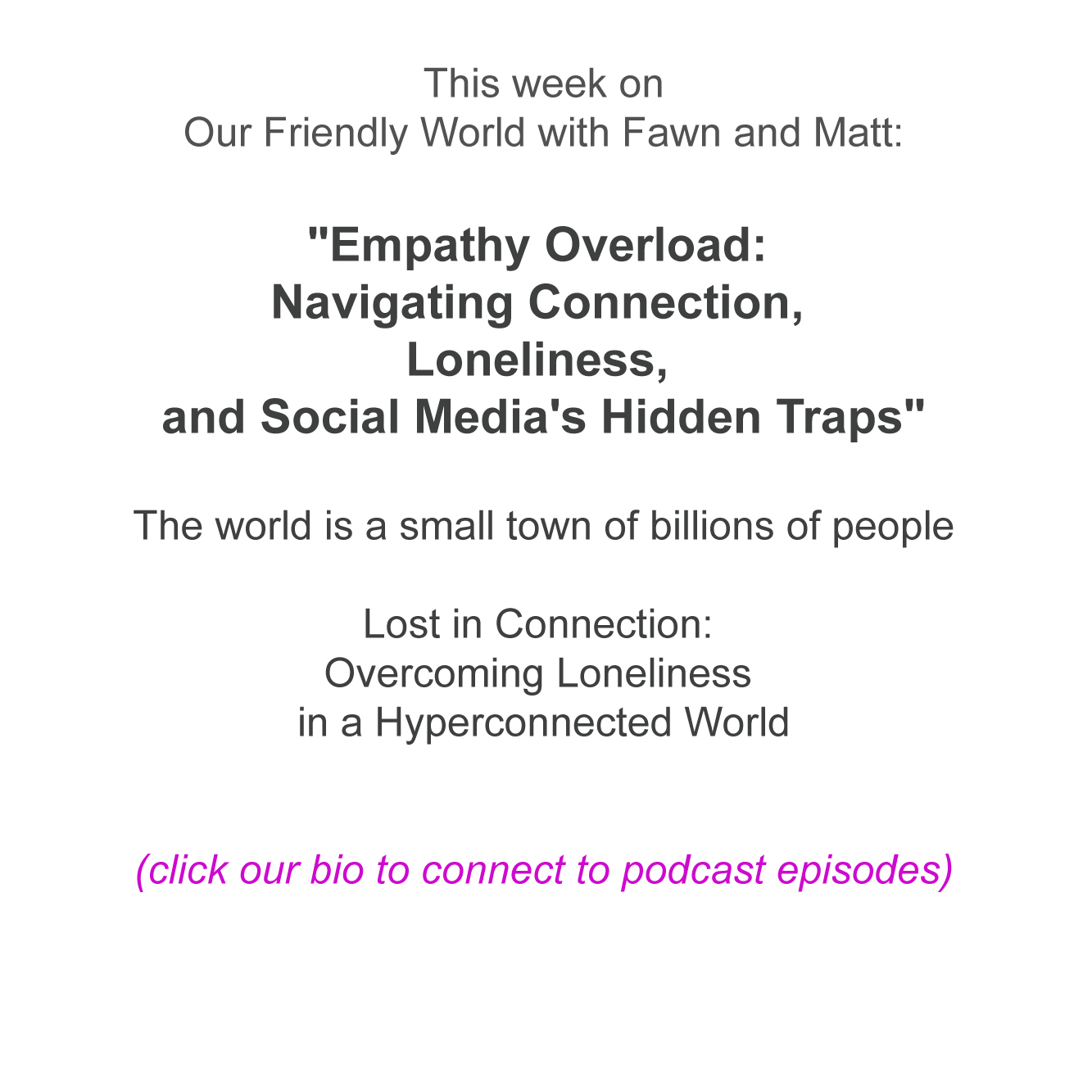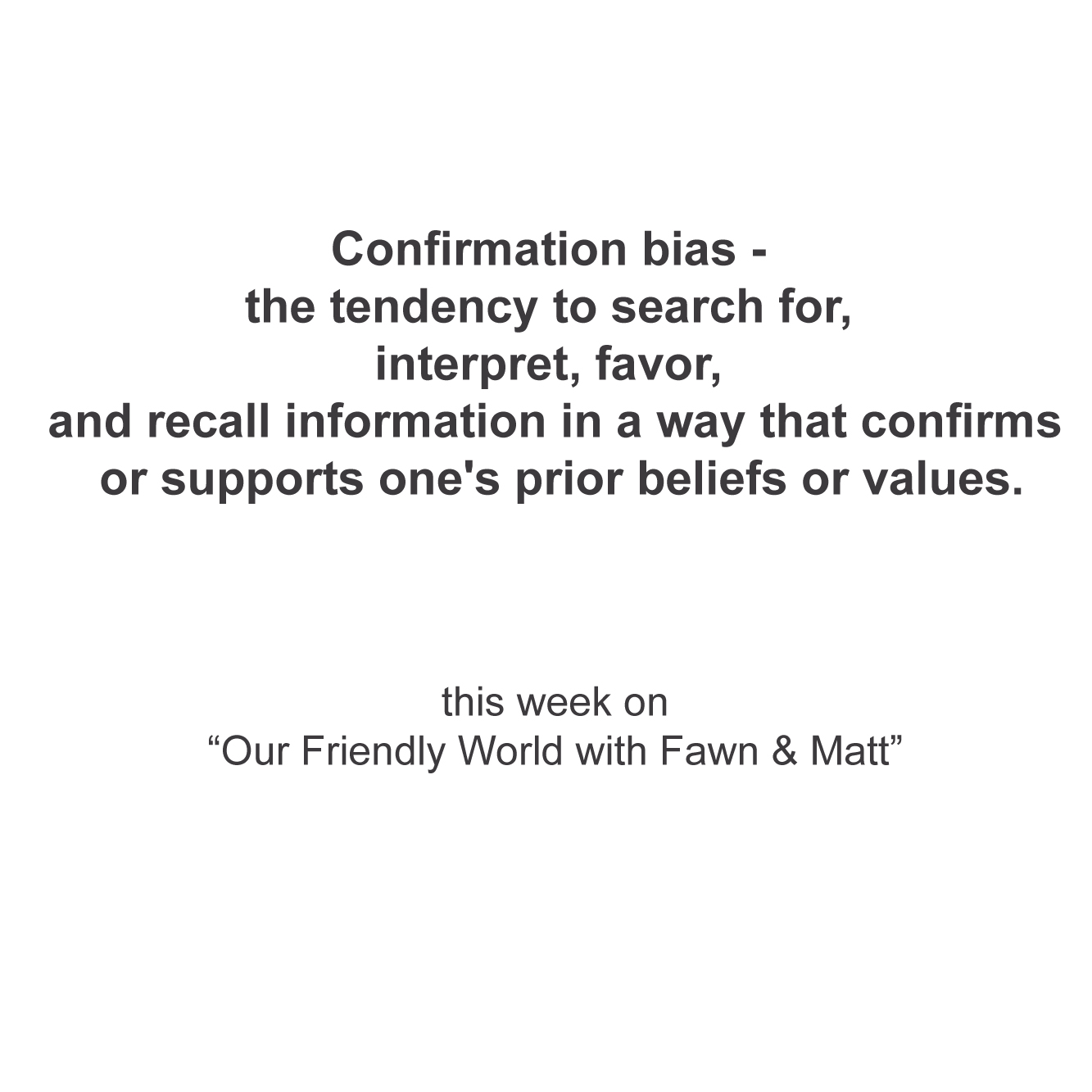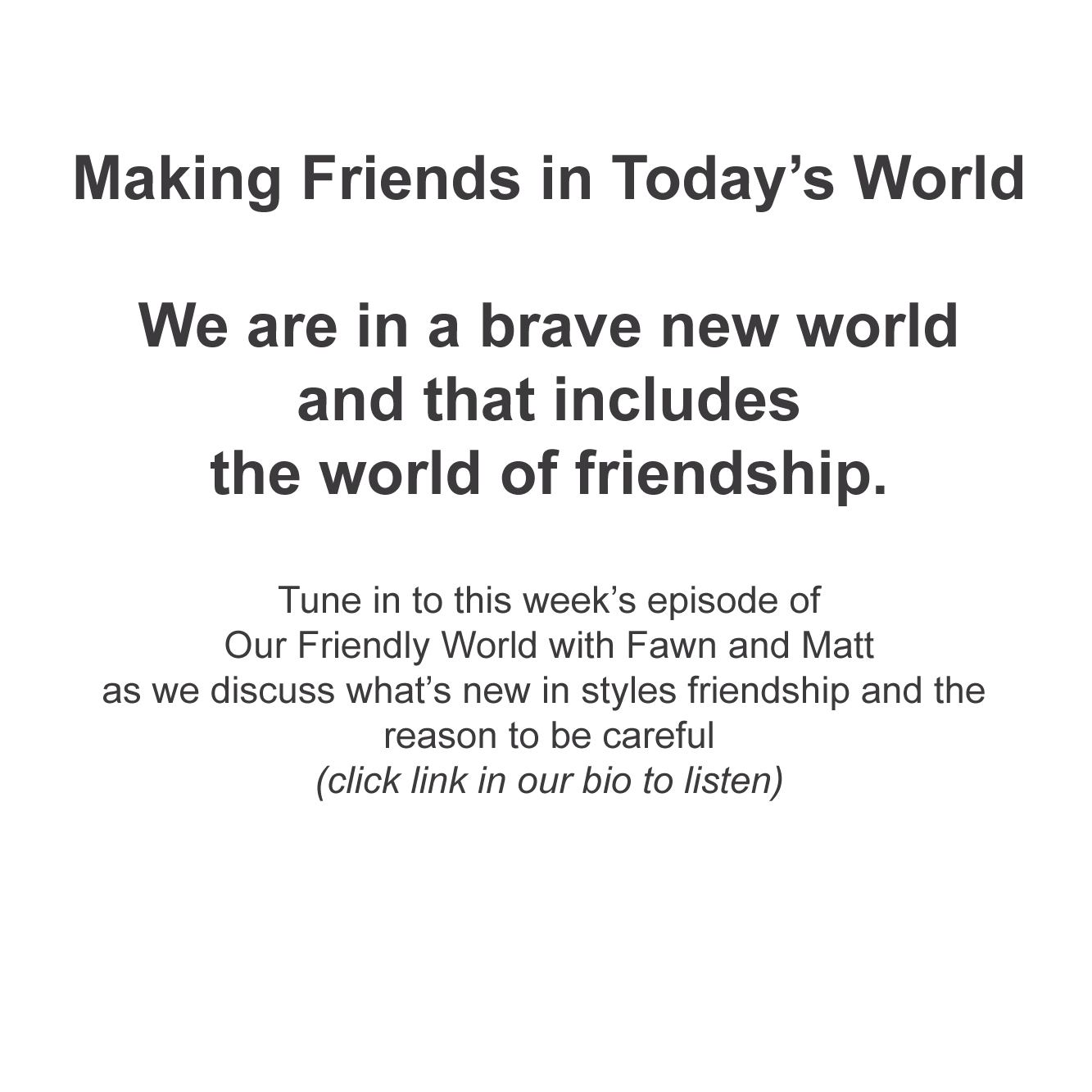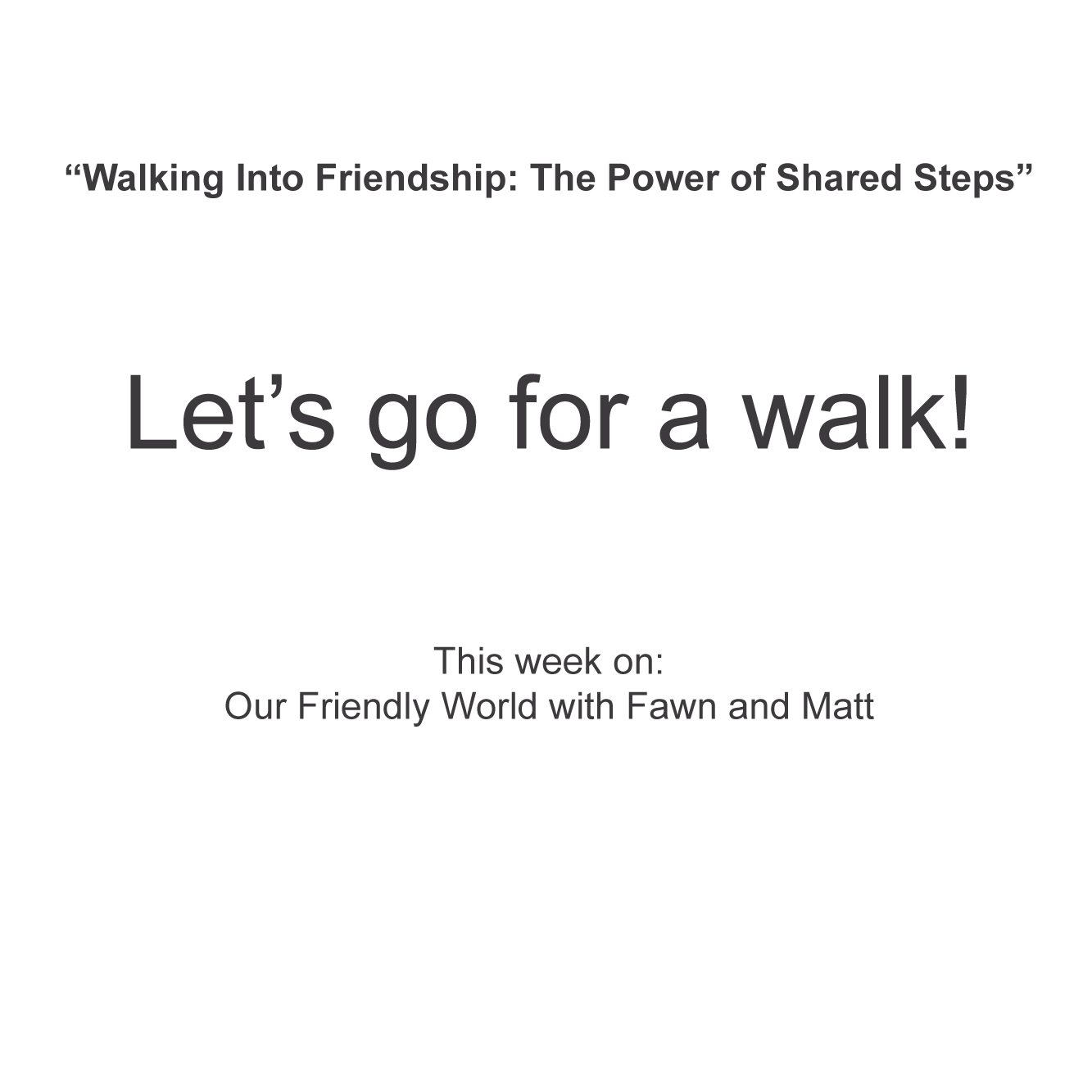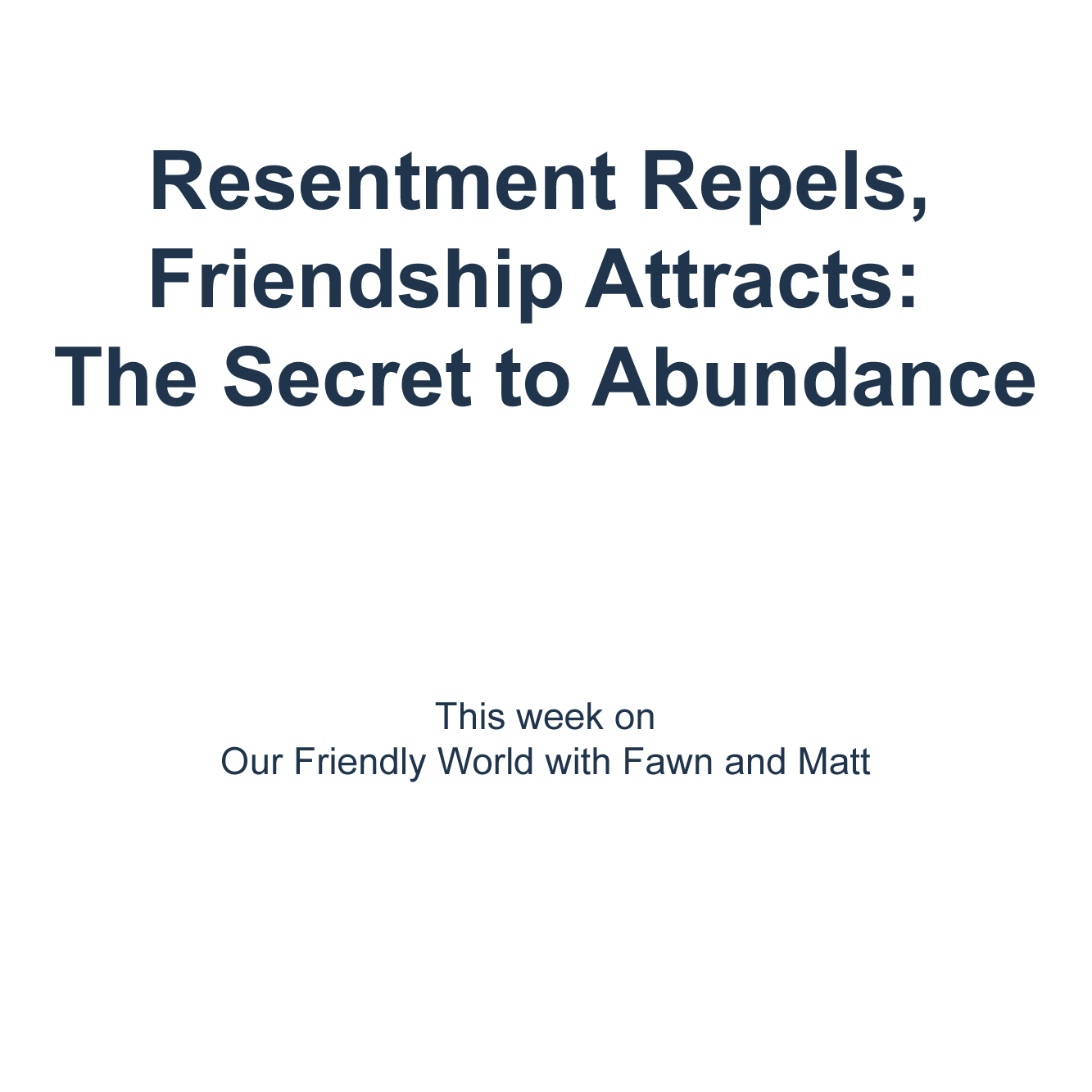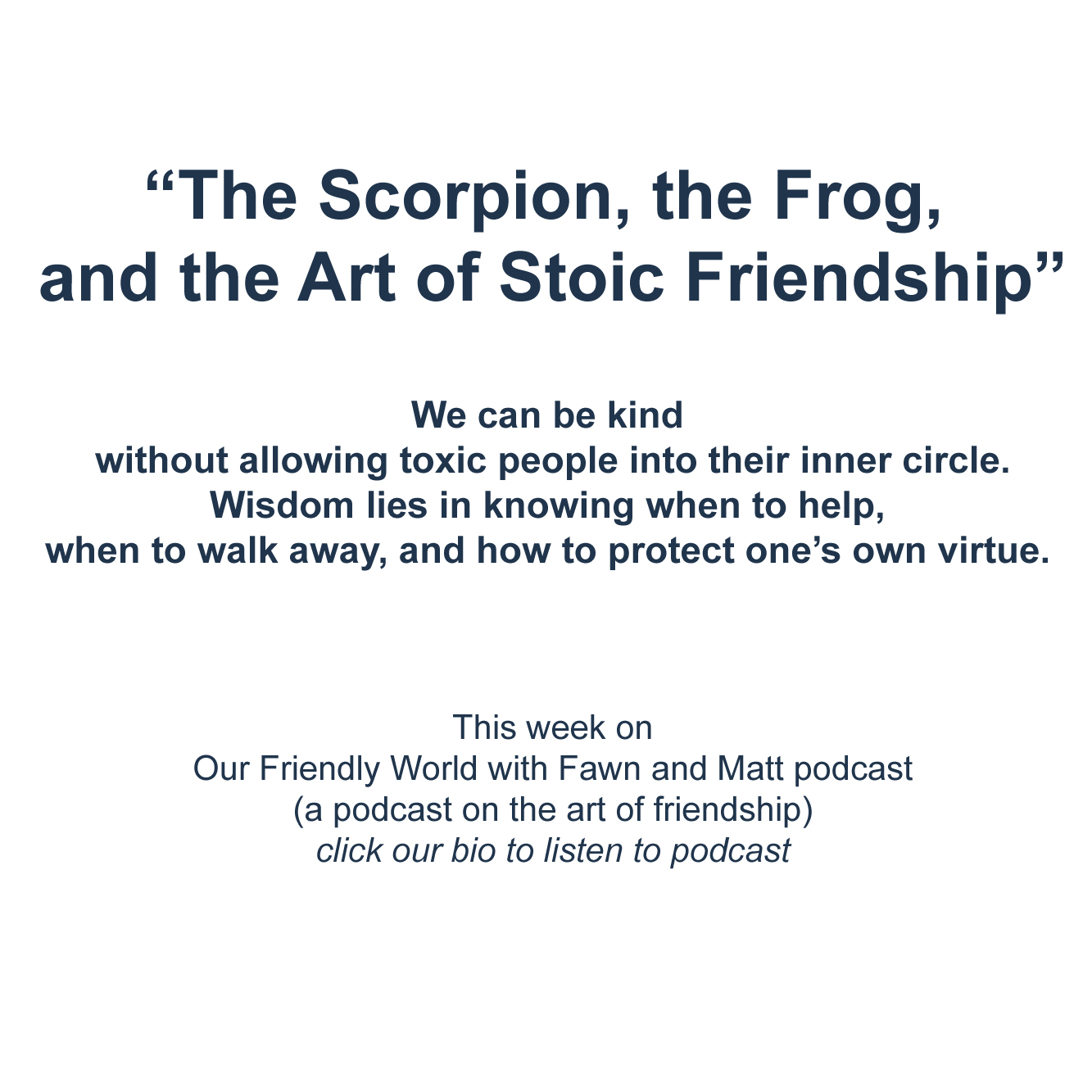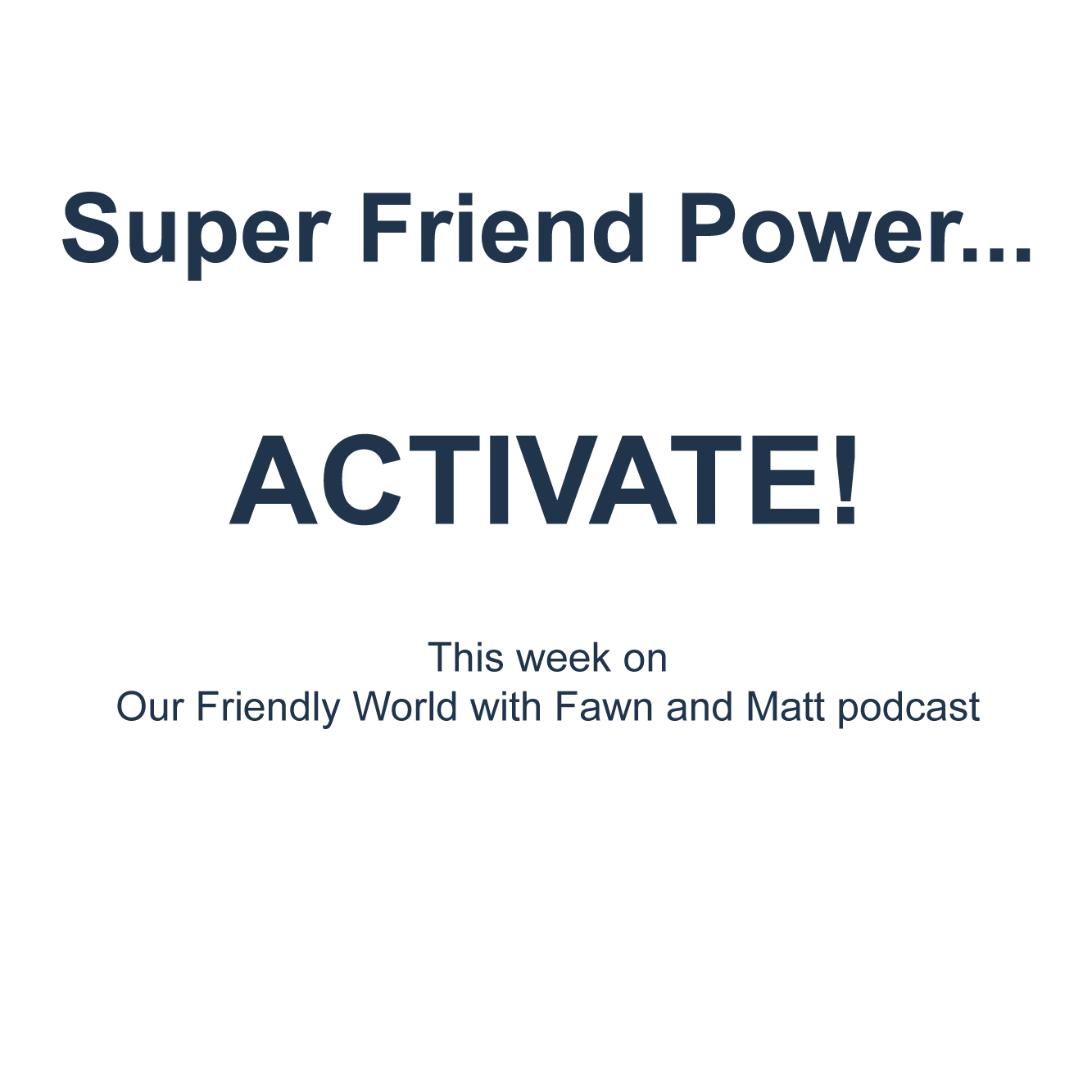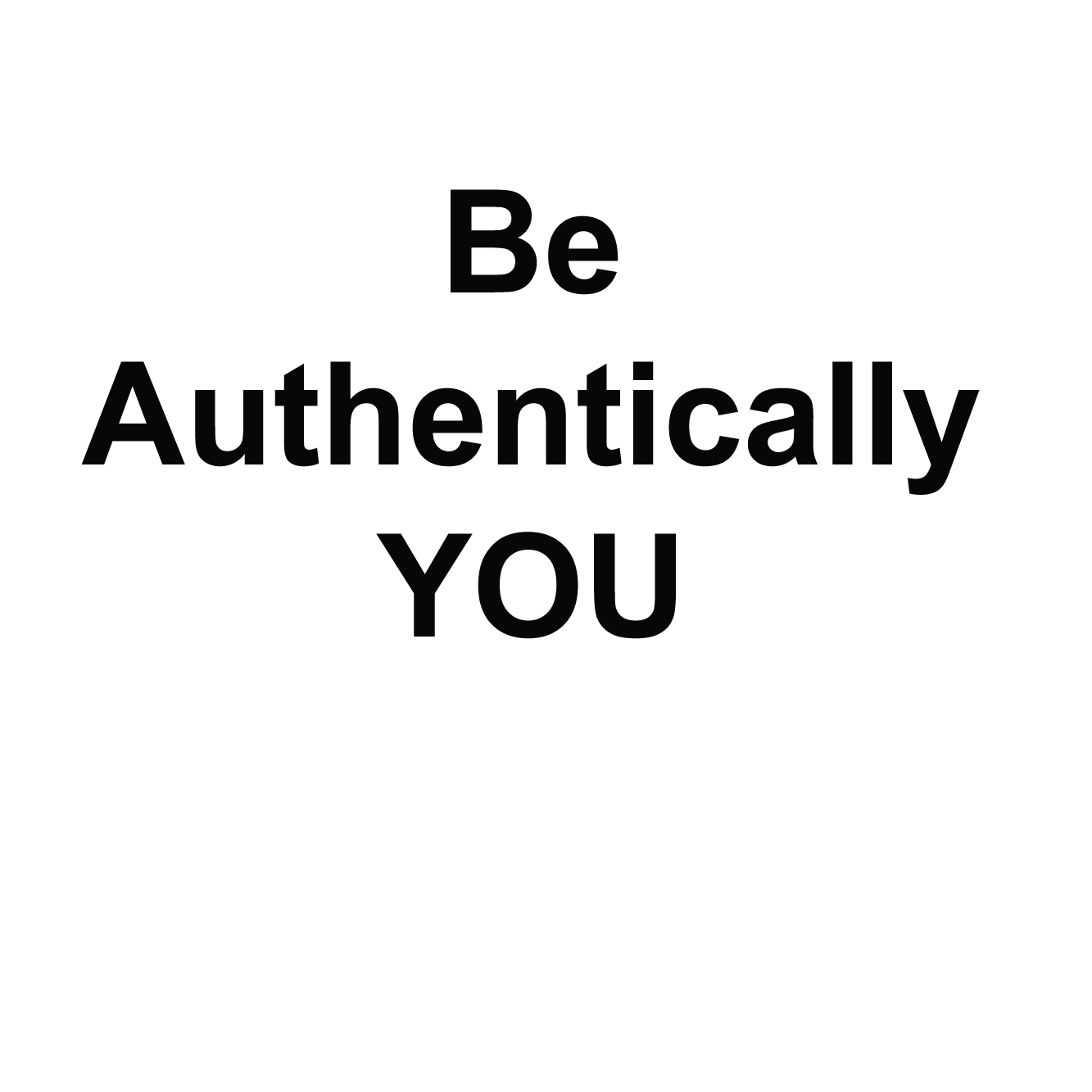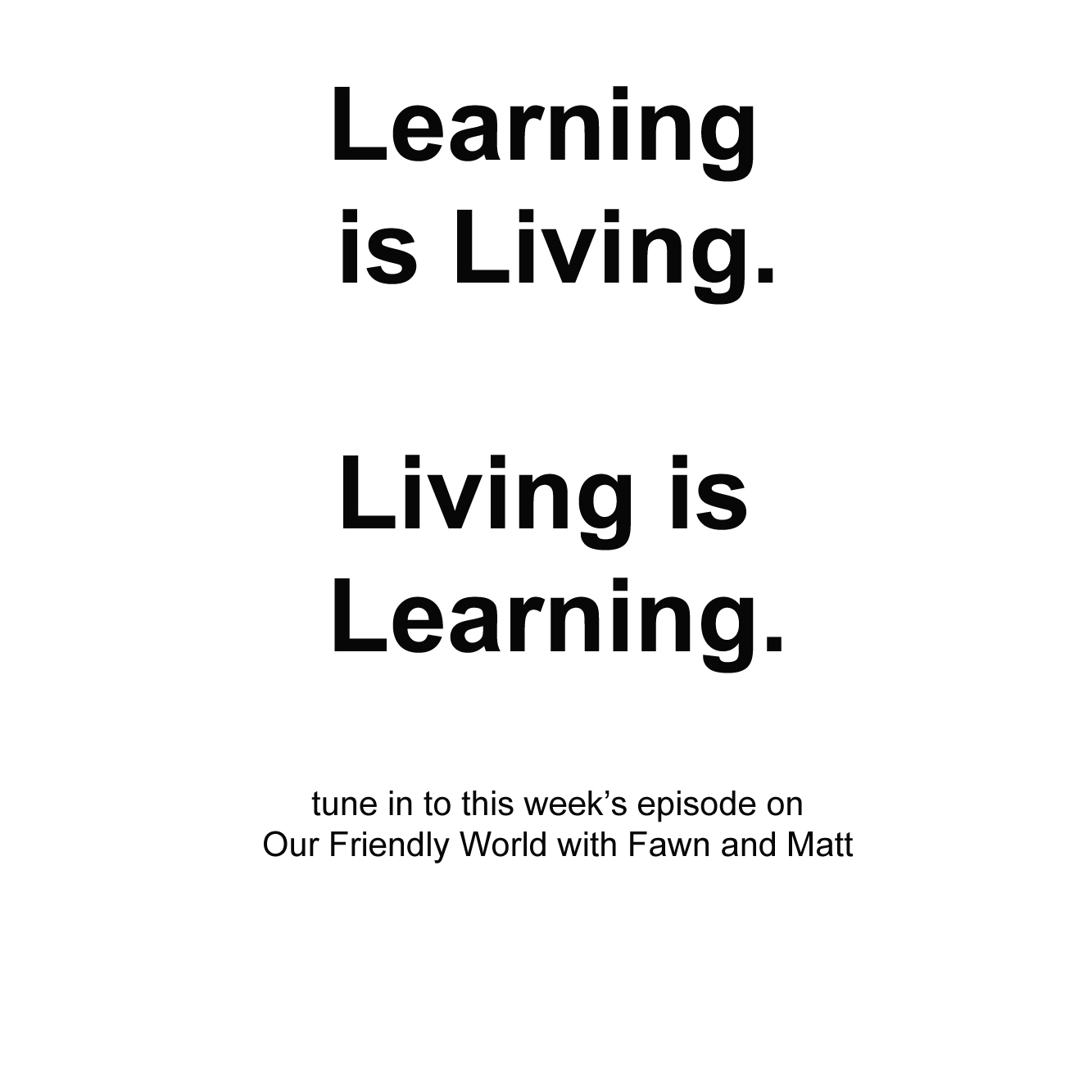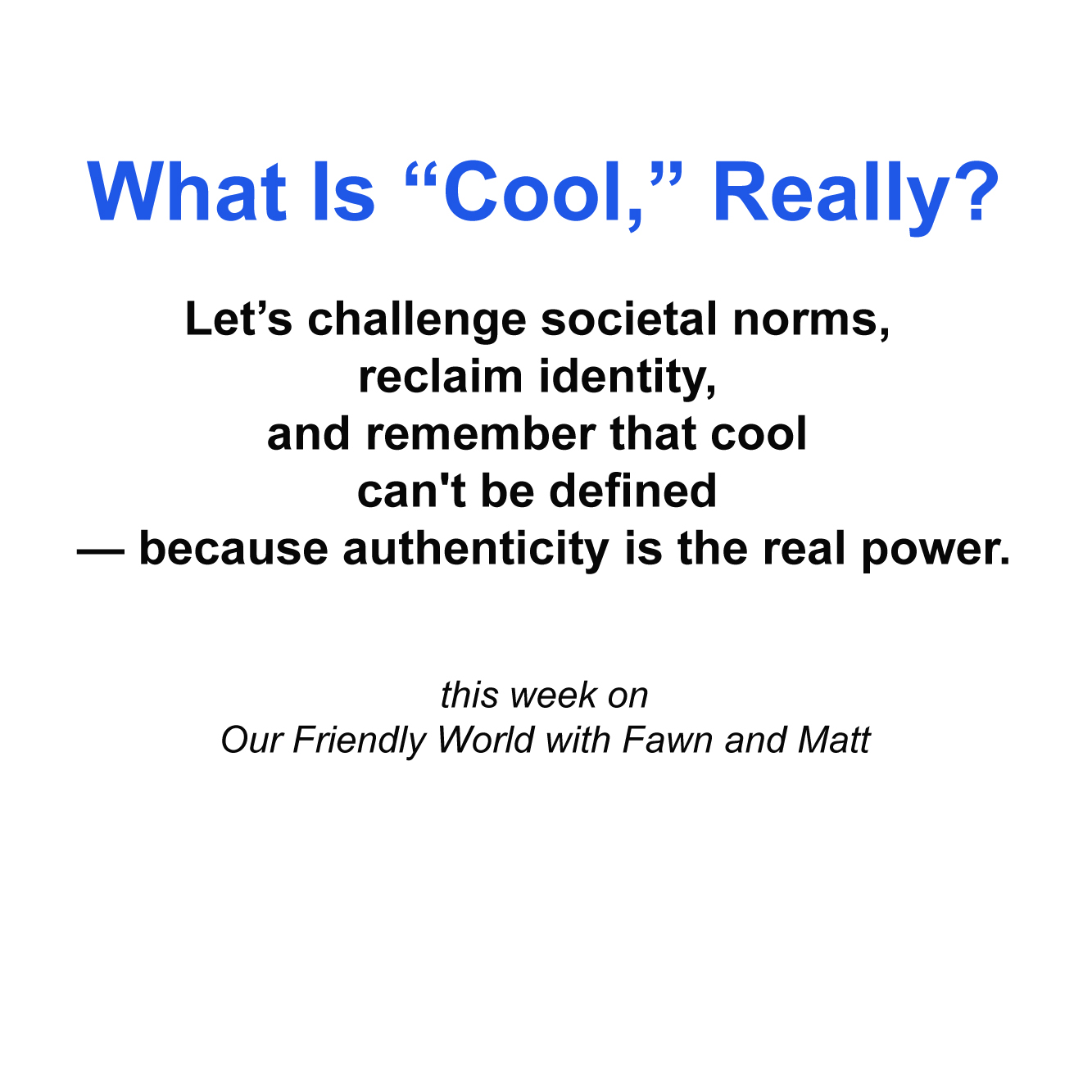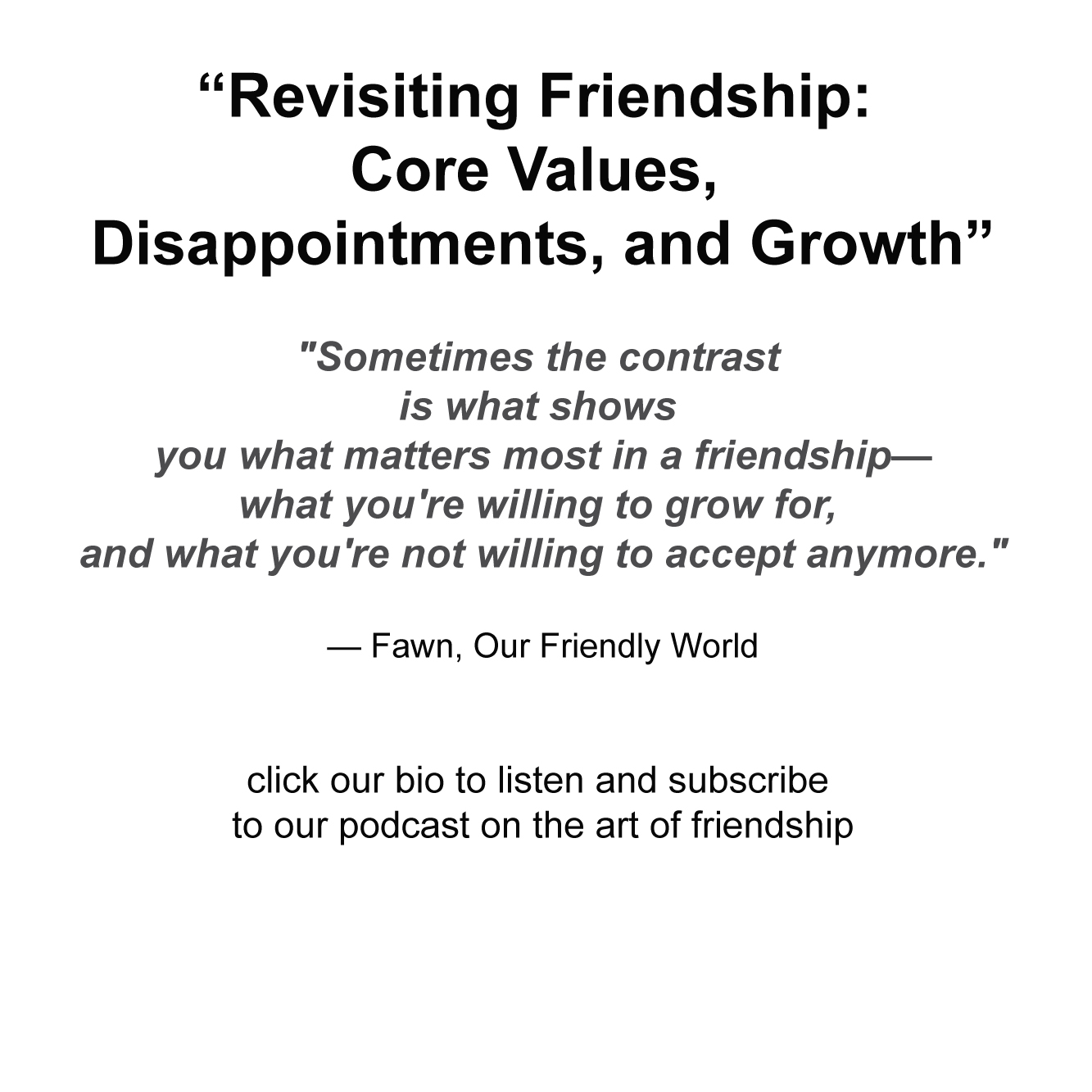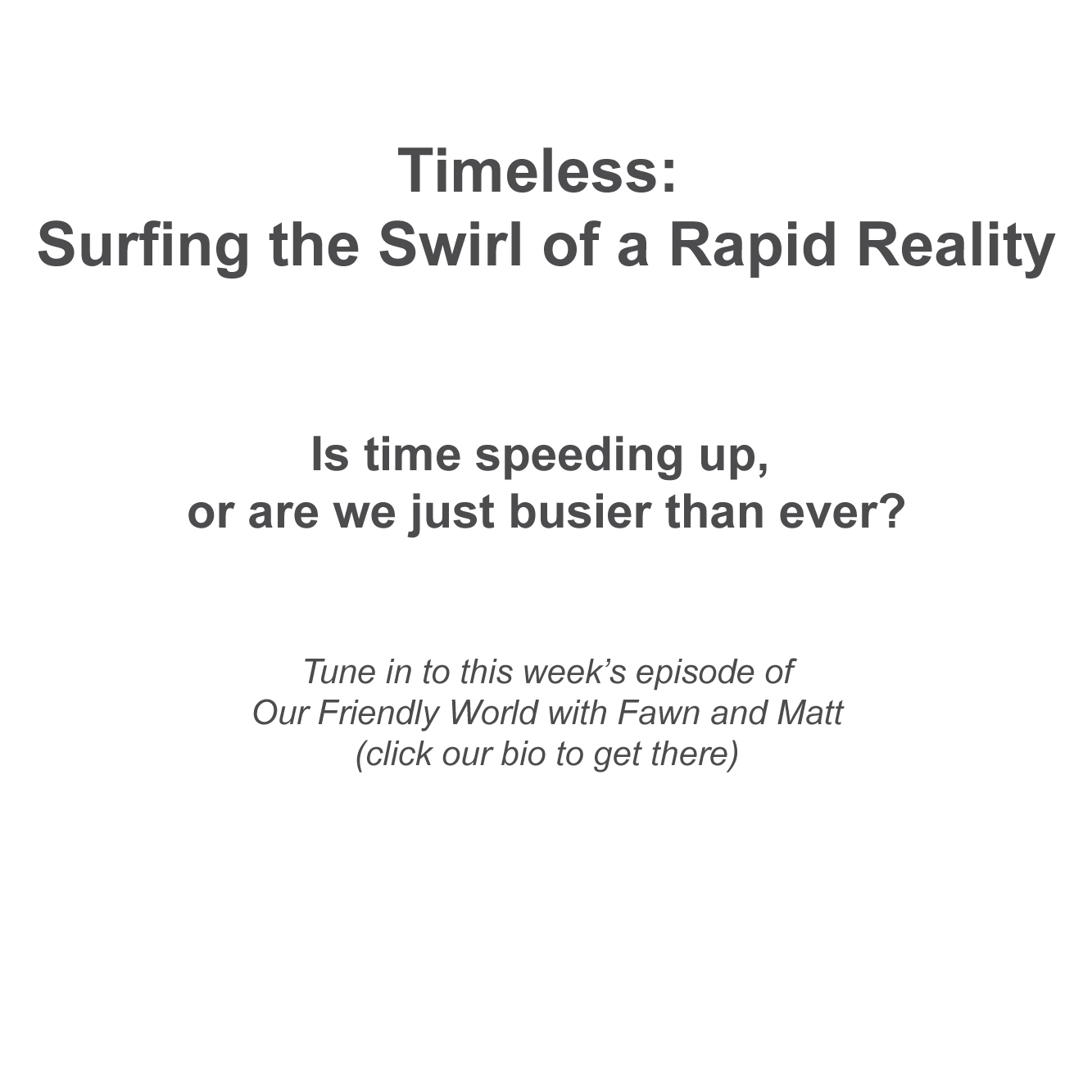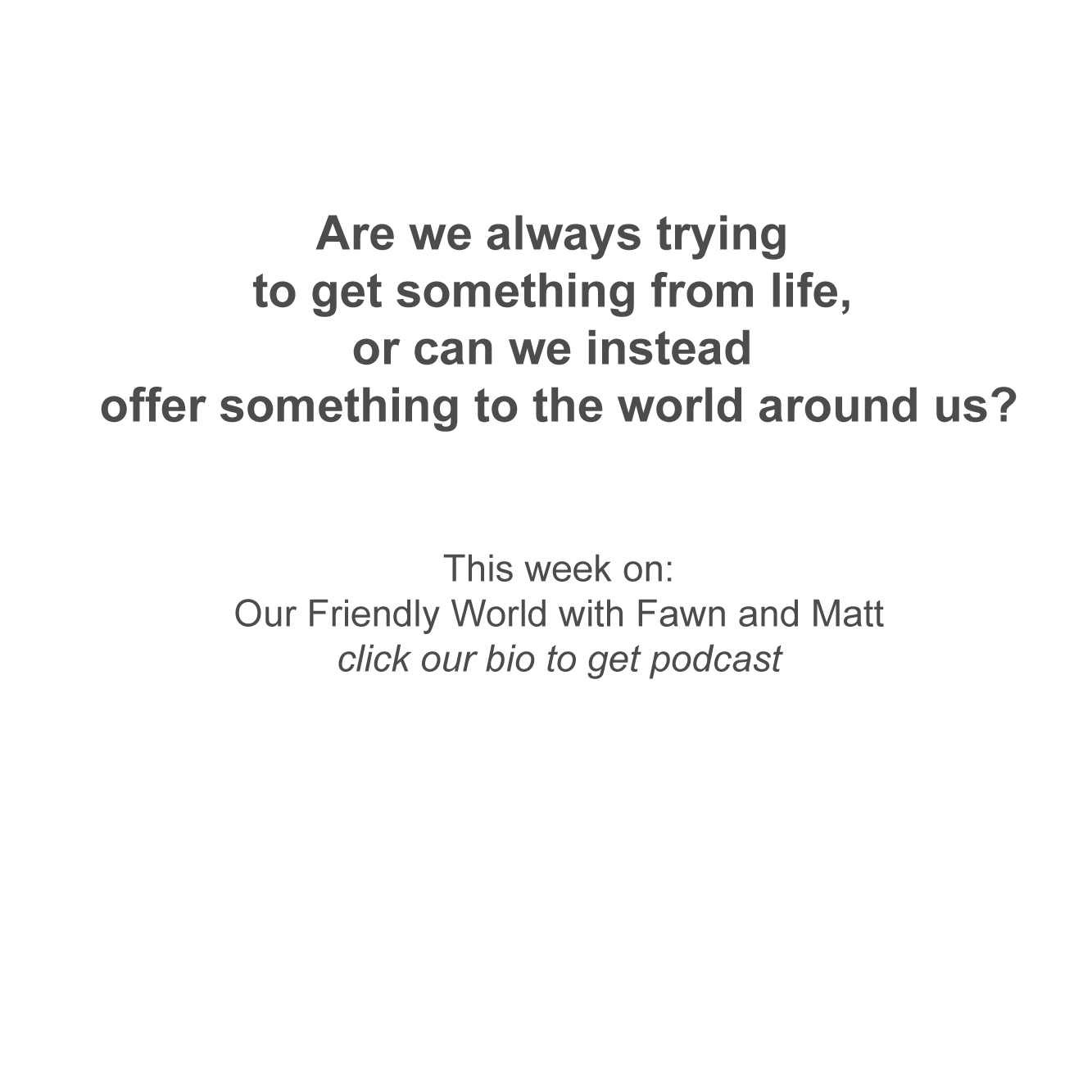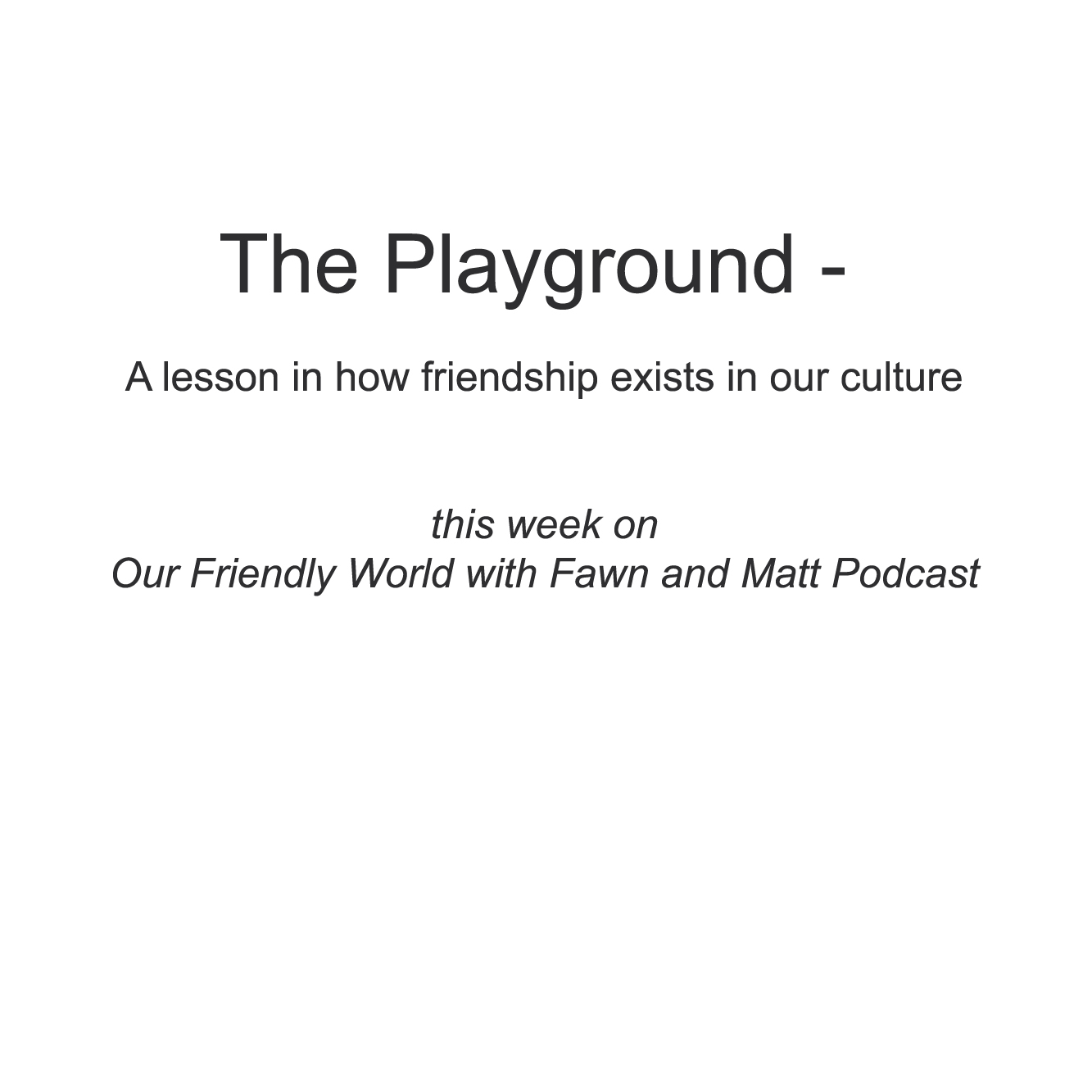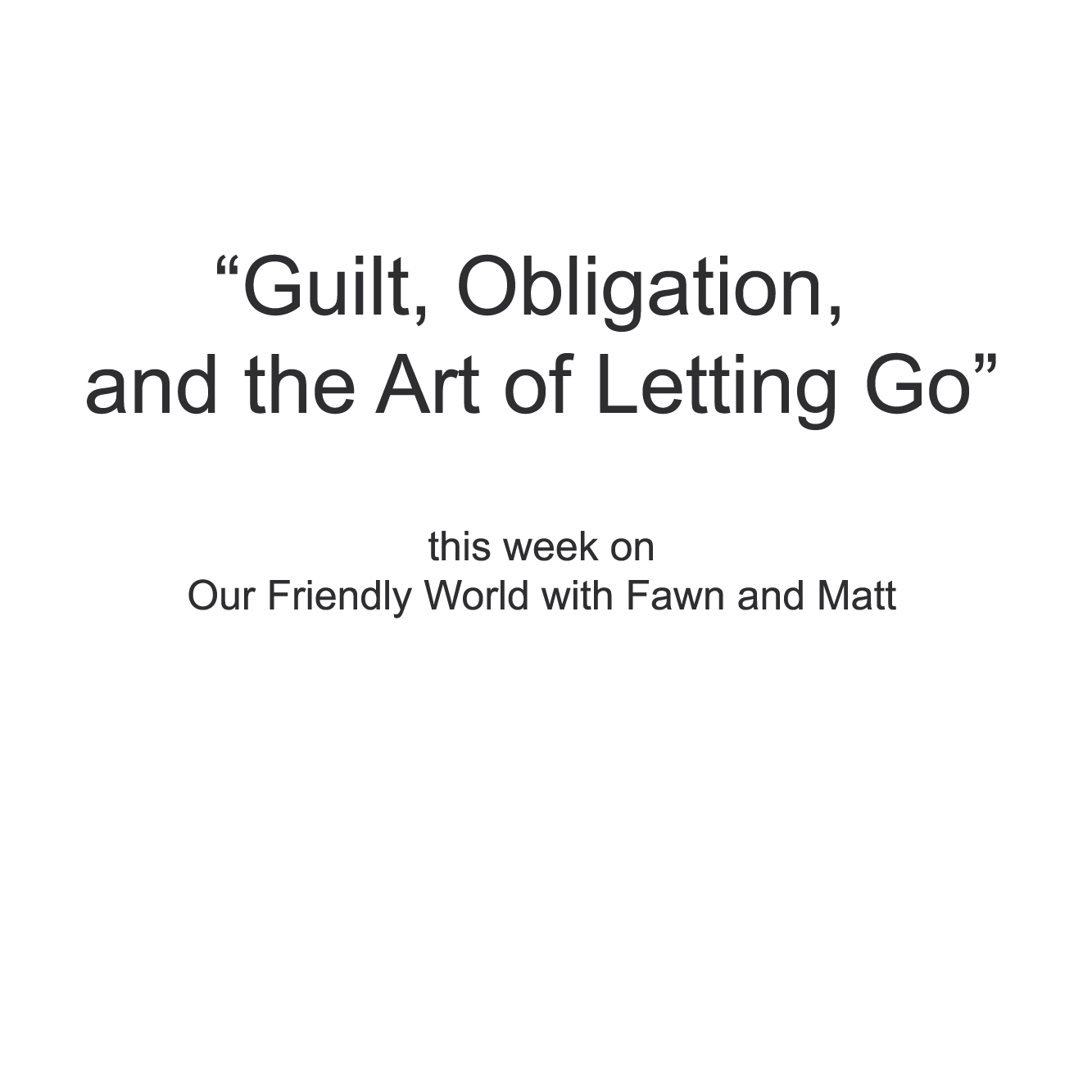The Art of Comfort
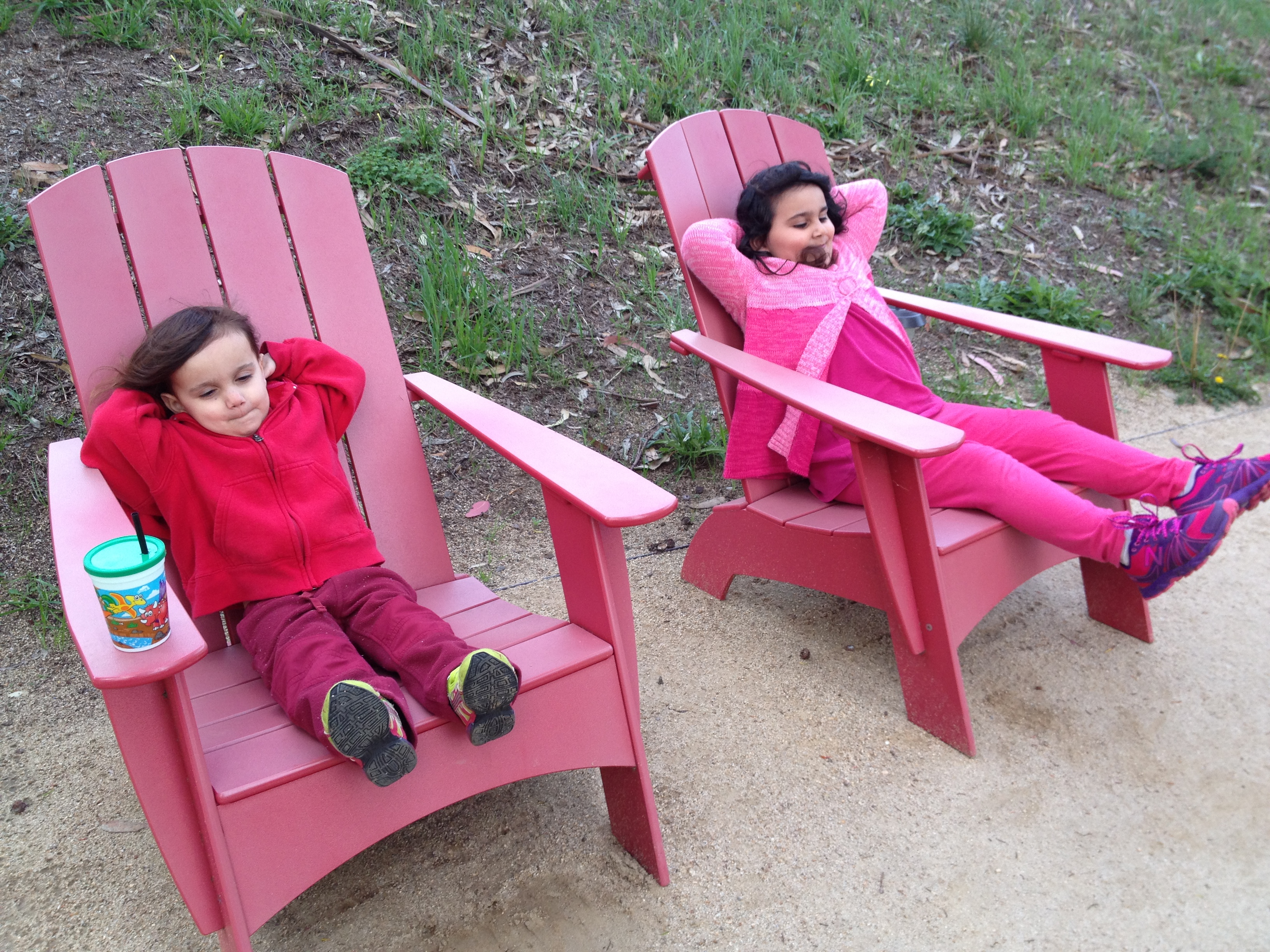
The whole sense of comfort and having a friend who is your witness in life is that there is a treasure in when you and a friend are not on equal footing when they are not in the thick of things that you're in the midst of. There's a balance. This is a balancing gift. This is one of the many ways the action of comfort can really be felt.
The whole sense of comfort and having a friend who is your witness in life is that there is a treasure in when you and a friend are not on equal footing when they are not in the thick of things that you're in the midst of. There's a balance. This is a balancing gift. This is one of the many ways the action of comfort can really be felt. Sometimes when friends are not equal, one tends to assume, especially in the beginning when one friend may assume that you're weak or you don't know how to do something because you may not be in that exact state of mind to be showing your expertise. So then they take the role of “I know better” and they assume the role of mentor. And so these roles get established. As time goes on, you develop ways in which you can unfold in front of one another, and you can see your gifts and you can see as time goes on, that one person is strong one moment, the other person is weak and then it flips. It's the turning of the world. It's the rising and setting of the sun. It's the same way with our lives and our experiences and our friendships. Our relationships are like that.
Oftentimes you get put in a situation where you're emotionally connected and you're not thinking through things clearly and logically and the other person, your friend can see more clearly, and while they're emotionally connected to you personally, they're not emotionally connected to your problem at the moment. So they can see things more objectively and you're more apt to listen to them because you do have the emotional connection to them so they can help dig you out of your hole. It's one of the few cases where logic can't get you out of a place that emotion has gotten you into.
Sometimes it's enough to hit the pause button on your life for 15 minutes. And then jump back into it with a renewed sense and an understanding that the earth is still spinning around the sun. It's still spinning around the universe and everything. It's good to actually get back to that sense of perspective because sometimes it is just that the dishwasher broke where that seems like such an enormous ginormous unsolvable problem, but really, it's good to have somebody remind you that everything has a solution. This is where comfort comes in; how our friendships are a source of comfort.
So let's get into the definition of comfort: from the 13th century, the meaning is to cheer up, console, soothe, to soothe when in grief or trouble; to help, to strengthen. The noun, which originated if you look at the etymology of it, circa 1200 is the feeling of relief in affliction or sorrow, solace, pleasure, and enjoyment. To solace is to help; to strengthen. And isn't that what we do for each other?
From old English word in the same sense was frofor, meaning the state of enjoyment resulting from the satisfaction of bodily wants and freedom from anxiety. And then there's the middle English meaning, which means strength, support encouragement.
Dictionary.com defines comfort as a verb to soothe, console, reassure, and bring cheer to. And then the noun is the relief in affliction consolation solace.
So what is comfort? Psychologist, Kolcaba, talked about three elements of comfort that revolves around relief, ease, and transcendence.
Tune in to this episode on how we can find comfort on our own and within our relationships.
https://www.ourfriendlyworldpodcast.com/
https://www.facebook.com/FriendlyWorldPodcast
https://www.instagram.com/befriendlyworld/
https://twitter.com/FriendleeBe
https://www.linkedin.com/in/fawn-anderson-5139431a6/
Comfort
[00:00:00] Fawn: Hi babies. Hello? Hi. Welcome back. Hello. Welcome back everyone.
[00:00:07] Matt: Babies?
[00:00:08] Fawn: Babies. When I love someone, I call them babies. When I see cute cuteness babies. When I love someone babies, everyone's a baby. We're all babies, right?
[00:00:20] Matt: Okay?
[00:00:21] Fawn: Everybody walking around. Everyone's a child. Everyone's a baby. Everyone is a gift.
Anyway, it's been a challenge. It's been a challenge. It has been a challenge staying positive and not angry these days. But anyway, we're talking about comfort today, guys, comfort, comfort in friendship, especially of course, that's what we're talking about, the art of friendship and how examples of how we are truly
better and stronger together. So in the sense of comfort, there is a great sense of comfort in having a friend who is your witness in life. So you don't seem crazy for going through something. Your friend is your witness, your barometer for everything. When you feel like you're gonna lose everything, including your marbles, your mind, your temper, all of that.
When someone is there by your side to say, yeah, yeah. I saw that. Yeah. You know?
[00:01:27] Matt: Right, right. As it's variation on the theme of I see you, for sure.
[00:01:31] Fawn: Well,
yes, I see what variation. Yes. But I'm also with you. I've got you. I've got your back. The whole sense of comfort and having a friend who is your witness in life is that there is a treasure in when you and a friend are not on equal footing, when they are not in the thick of things that you're in the midst of. There's a balance.
This is a balancing gift. Bear with me. This is one of the many ways the action of comfort can really be felt. You know, we always talk about, when friends are not equal, one tends to assume, especially in the beginning once one friend can assume that you're weak or you're, you don't know how to do something because you may not be in that
exact state of mind to be showing your expertise. So then they take the role of like, I know better, you know what I'm saying? And
[00:02:33] Matt: yeah, the role of the mentor, for sure. Mm-hmm
[00:02:35] Fawn: and so these roles get established, but I think as time goes on, you develop ways in which you can unfold in front of one another, and you can see your gifts and you can see as time goes on,
that one person is strong and then the other person needs strength. One person is strong one moment, the other person is weak and then it, it flips. It's the turning of the world. It's the rising and setting of the sun. It's the same way with our lives and our experiences and our friendships,
our relationships are like that, case in point, Holly, thank you. We've been going through it and she went through what we're going through about a year and a half ago. And so she's able to be there like a beast, a good beast. You know what I mean? She's a beast right now in just being kind of my, my north star, my
my guiding light in an area of time where I feel darkness. Like, I don't know which way to turn, you know what I'm saying, Matt?
[00:03:46] Matt: Yeah. I think that what we see in friendships and I noticed this very early on, I noticed this in high school, it's like, Oftentimes you get put in a situation where you're emotionally connected and you're not thinking through things through clearly and logically and, and the other person, your friend who can see the entire, uh, everything that's going on.
And while they're emotionally connected to you personally, they're not emotionally connected to your problem at the moment. So they can see things more objectively and you're more apt to listen to them because you do have the emotional connection to them so they can help dig you out of your hole. It's one of the few cases where, I always say that, logic, can't get you out of a place that emotion has gotten you into.
[00:04:29] Fawn: Right
[00:04:30] Matt: friendship, a friend, somebody who you are emotionally connected to can help bring you out of these places.
[00:04:37] Fawn: When you know, everyone I think goes through this. You may not, people may not admit it, but you lose your sense of true north. Like if you take the analogy of flying a plane, which I don't know how to do, but I can imagine that you have a sense of where your true north is, or you have a sense of where the sky is, but there are times when you get in trouble and there's fog where like, Like, you know, we heard stories of the plane crashes because the pilot couldn't decipher which way the sky was if it was underneath or above.
And I feel like we go through that in life sometimes.
[00:05:20] Matt: We do.
[00:05:20] Fawn: And that's when it's good to not be on equal footing with your friend because when they are balanced, in a way they are centered in a way where they have comfort in true north. They can say, this is true north right here. It's not that you don't know true north.
It's not that you don't know how, or you don't know when or where, and it's not that you don't have that in you, but at that moment in time, it's so nice to have that comfort from a friend, that comforting feeling of where you stand and where you're headed or where you should be headed or just showing you like being your guide for a second, being your true north for a second, being your compass for a second.
And you know, by second it's it's it's relative .
[00:06:19] Matt: Yeah. AB absolutely. And sometimes it's, it's just helpful when you're so deeply involved in a given situation. To speak with a, a kind voice, cuz typically when you're involved in a situation it skews negative
[00:06:34] Fawn: mm-hmm
[00:06:35] Matt: so it's good sometimes just to have a friend who maybe doesn't, isn't even aware of what's happening in your life just to go through their trivialities and just hear that, you know, there is a world that's spinning and it's not just all about this problem that I'm facing.
That seems so big and overwhelming.
[00:06:51] Fawn: Yeah, but what I'm talking about is when you really need someone to pay attention to your thing, right. You know what I mean? And you doing the same for them when you are feeling in that center of that, of being able to provide comfort or be of comfort. You can't always be comforting when you're going through stuff, but when you've gone through stuff, you can, you know, and you can be of comfort.
I don't like, I don't like people ignoring what they're going through and just focusing on someone else's life, Matt. And I think that's what you guys do, like in your friendships, like I'm talking about you and steamy, like sometimes, when there's stuff going on and I'm like, Ooh, did you guys talk about this or did you ask him about his wife or did you ask about the kids when you know, stuff is happening?
And you're like, "NOPE", You just talked about didn't come up, we talked about football. Um, see, that's ignoring the situation. That's ignoring what's going on. I don't like completely just ignoring what's going on with you and just putting everything, your attention on someone else's life. That's not what I'm talking about, but if that gives you comfort, that's great.
That's what we're talking about today is what gives you comfort, but I don't think that's healthy. What you just said
[00:08:11] Matt: it, the answer is, it depends. I mean, if you look to your friends as always being a sense of escape, you're absolutely right. If you look at your friends as sometimes being an escape, it's a whole other thing.
You're right. And we do talk about the serious stuff when it is overwhelming, but you know, sometimes it's enough to hit the pause button, on your life for 15 minutes. And then jump back into it with a renewed sense and an understanding that the earth is still spinning around the sun.
That's still spinning around the universe and everything. It's good to, it's good to actually get back to that sense of perspective, because sometimes it is just a, the dishwasher broke. You know, mm-hmm, where that seems like such a enormous ginormous unsolvable problem, but really, it's good to have somebody bonk you and remind you that, you know, there are some really big unsolvable problems out there and your dishwasher just isn't one of them.
[00:09:09] Fawn: So let's get into the definition of comfort and you have a whole bunch of notes I noticed on this. Okay.
[00:09:16] Matt: Maybe one or two.
[00:09:17] Fawn: Let me, let me just get into what comfort actually means. We have the verb. and it started from the 13th century the meaning is to cheer up, console, sooth, to soothe when in grief or trouble; to help, to strengthen.
And then we look at the noun, which originated if you look at the etymology of it, circa 1200 feeling of relief in affliction or sorrow, Solace.
[00:09:47] Matt: Yeah. That's one of those epitome words. I don't know.
[00:09:50] Fawn: epitome consolation,
so pleasure, enjoyment and
solace to, to solace. I hope I'm pronouncing that right. Is to help to strengthen. And isn't that what we do for each other? Right. Right. As from old English word in the same sense was frofor, meaning state of enjoyment resulting from the satisfaction of bodily wants and freedom from anxiety. And then there's the middle English meaning, which means strength,
support encouragement. And then I went to dictionary.com and this is what they said, verb to sooth, consol, or reassure bring cheer to. And then the noun is relief in affliction consolation solace. So what is comfort? What gives you comfort? Comfort for me revolves around food and, being in the kitchen.
Like for me, it's a meditation. The kitchen is my place of alchemy to conjure things up, to put things together. And as I'm baking or putting a meal together, mm-hmm, , I'm conjuring up life. What I want life to be that gives me great comfort. It gives me great comfort to be in a blanket and to listen to the television.
The television is my friend. Um, yeah, I mean, I'm always looking for comfort. I'm always like running for something to, to provide relief because I feel so much stress and anxiety all the time. Right.
[00:11:37] Matt: I think a lot of us do for
sure.
[00:11:38] Fawn: And that, so, you know, a lot of the times I don't wanna turn to friends because, sometimes I'm like, oh my gosh, like this is happening way too much where I need comfort.
And I don't wanna be the friend that always needs help. So a lot of the times I try not to turn to friends and remember how I can turn to my own personal compass; my own personal, true north, if you will, of like, how can I get myself centered here? Right,
[00:12:12] Matt: right. Yeah. I totally understand. Now, do you suppose that, uh, food and comfort, I mean, they do say that's one of the, the many different ways of comfort
if you will
[00:12:26] Fawn: well, food is medicine.
[00:12:27] Matt: Well, food is
absolutely medicine. What they, and they is this wonderful esoteric, like random term, right? But like, who are they? What they have said is that comfort foods tend to take us back to our childhood real or imagined, I suppose, where those comfort foods that we tend to gravitate to are
juvenile or things from our childhood or things maybe we wanted from our childhood as far as nourishment
[00:12:54] Fawn: goes, well, it goes back to the basic need. Like as soon as you come out, you need milk, you know, you need nourishment because you're not, you're not hooked up to the umbilical cord that feeds you all the time.
Right. Right. So I think, I think maybe that's why it's interesting. So many Americans crave, dairy. it's like, did we, are aren't we one of the first countries to really develop the whole formula situation. And we went around to other countries and said, you know, Ooh, breast milk is no good. You need to have formula.
You know, I'm sure the, the companies, well, certainly the companies pretty much tried to switch that around course for profit. Right. Of course. But it's really interesting, but I, I also know that when you're going through stuff that your brain actually needs sugar. Like if you're experiencing a panic attack, mm-hmm which I have personal experience with.
I remember at the height of one of my panic attacks, it was so bad. I called up a friend and she told me to go get some sugar. I'm like sugar. Are you crazy? That's poison. Oh, dear. But she's like, no, I'm telling you go get some sugar right now. And then later I read about it and it said, um, that your brain, when you're experiencing trauma, when you're experiencing panic attacks, your brain, isn't producing sugar.
So whatever way you can get sugar at that time, it does help you anyway. That's interesting, but food is medicine and that why that is why it's, it's a great source of comfort because if you treat it properly, I'm not talking about junk food. I'm talking about when you have food, it changes the chemistry in your entire body.
So it will be of comfort. And yet
[00:14:55] Matt: us as, as Americans, the comfort foods that we by and large gravitate to our potato chips, ice cream.
Chocolate.
[00:15:05] Fawn: It's interesting because a lot of it is fat. Right, right. And it, I'm sure there's something in that fat, in that dairy, whatever that is the closest thing, probably to what we initially need as we come out as we're born.
[00:15:19] Matt: I can definitely see that aspect of it. I also know men, especially are especially gravitated. Our sense of smell is absurd and we retain smells forever. And the smell of something can take us back to a place.
[00:15:38] Fawn: Not just men.
Are you saying men have more I'm
[00:15:40] Matt: I'm saying men or more susceptible to this?
[00:15:44] Fawn: Who said?
[00:15:44] Matt: That it's been said.
[00:15:45] Fawn: Who?
[00:15:45] Matt: I don't know. See, see, I need a computer and then that's all I would do is you would hear I'm uh,
[00:15:50] Fawn: hello at this moment in time, Matt, I am tired of hearing about men. I'm tired of men's experiences and men's thoughts. All right. So like right now, the word man, men, penis, whatever. It's a trigger for me.
[00:16:06] Matt: Oh dear.
[00:16:07] Fawn: All right. I I've had it. I'm tired of it. So let's just say human beings. Can we just say human beings? We don't even know where that fact came from to say men experience better sense of scent or smell, whatever. No, thank let's just say human beings. Okay. Because for me, scent is very, very strong. No,
[00:16:25] Matt: no, no, absolutely.
It is. It is period. Yes, because I don't wanna start a fight. I don't want to start a ruckus
well,
[00:16:34] Fawn: yeah. Okay. Moving on. What else do you have to say about, I'm looking at your notes over there and good Lord. I want this to be a shorter episode. Hurry up. What else do you have to say?
[00:16:46] Matt: Oh my goodness.
[00:16:47] Fawn: What else do you have to say about about comfort?
[00:16:50] Matt: The, the other aspects of comfort that you kind of got into just a little bit is there's thermal comfort, which is studies have shown that an ambient temperature or the temperature around you, the room temperature being 30 degrees Celsius or 86 degrees Fahrenheit for us yanks. is kind of the sweet spot and that's for the majority of people.
I know it's not
for you.
[00:17:12] Fawn: Oh my God. That's so not me. If things were normally 86, I would experience rage. Well, I'm,
[00:17:18] Matt: I, I can't, but yet you snuggle under blankets.
[00:17:22] Fawn: Um, but I'm, it needs to be a blanket that's not warm. 86 degrees is below your body temperature. I need heaviness on me. Right. And by the way, my temperature always runs like a degree or two
lower than normal human beings. I don't know why
but yeah, no. If, if the room is 86, I'm I'm enraged.
[00:17:55] Matt: any who, and then there's also as now you're, uh, again, sort of alluding to, but there's, there's actually the aesthetics and the clothing. And I'm very much susceptible to this because I like to wear really big shirts guys. And I'm a big guy. So I wear huge shirts.
[00:18:11] Fawn: Matt has it's
ridiculous. Matt has a uniform and it has not changed.
Yes, I do. Since the day we met
[00:18:16] Matt: it, it was the same probably five years before we met.
[00:18:21] Fawn: Okay.
[00:18:22] Matt: All right. Okay. And the uniform consists of, I wear, I wear jeans every day and that wasn't always the case, but it is now. And I wear a t-shirt and my t-shirts are plain. I don't have logos or advertising
[00:18:34] Fawn: on them.
They're very
[00:18:34] Matt: colorful. You have like, they're just different colors. Think of every color of the rainbow. Okay. I don't have a purple shirt right now. I'm a little annoyed by that. But anyways, uh, and then I wear, typically I wear what's called an Oxford shirt over it. Uh, Kind of a bulky, chunky weave. Um, and an Oxford shirt is basically just your basic button down shirt that has a button down collar, yawn yawn um, but this is what I always wear.
Okay. Like
[00:18:59] Fawn: every day. Why does that give you comfort?
[00:19:01] Matt: Well, it's the big shirt, to be honest. It's what I pull the over shirt because it's big.
[00:19:06] Fawn: Why?
[00:19:06] Matt: It makes me feel comfortable. And when I really thought about this some years ago, what I came to was, I'm the youngest of three, and I would get hand me down clothing.
Right. Okay. When I got something just for me, which wasn't very often, it was always bought way too big for me. and so that sense of this is mine. Mm-hmm and this is new and this is mine. Ironically, I actually had a purple suit when I was growing up and I supposedly I loved the Dickens out of
the thing,
[00:19:36] Fawn: Remember El had a purple shirt. Oh my God.
[00:19:39] Matt: Eggplant purple had to wear it
[00:19:40] Fawn: every day. And we had to make sure if we washed, when we washed it, we washed it every day. We washed it while it was asleep. Right. So she could wear it again. And if she didn't
[00:19:49] Matt: have it,
[00:19:50] Fawn: yeah, it was weird. Yeah. It's the purple held purple is still their favorite color.
Both of them. It's one of their favorites. It's definitely Elle's
[00:19:58] Matt: but clothing, comfort, or just, being under like, it's nice having flannel sheets for instance, or, in the summertime, it's nice having these, flowy cotton
sheets.
[00:20:08] Fawn: All right. So texture it's it's about texture gives you comfort.
What's next
[00:20:13] Matt: those are kind of the biggies, cuz I, I don't really wanna start getting into the last aspect of when we talk about comfort, which is hospice care, which is typically that's another area, which is of course when, um, they're trying to ease someone's transition.
[00:20:26] Fawn: Well, I've heard like being in the hospital and everything.
You always hear. Especially in America, they want people to be comfortable. So anything to make the person comfortable because no one likes to. I think one of the things that is most torturous for human beings is to experience another human being or another living, being, um, being tortured in any way, being in pain.
And I think we try as much as we can to muffle that. Right. And so. Always drugging someone to make sure that they don't experience pain. Like I think, especially, I don't know about other places in the world, but I know that emergency rooms and doctors, just want the pain to go away.
That's their number one thing. Well, I mean, aside from saving the person's
[00:21:15] Matt: life, the, the body experiences pain because it's telling us, gee, something's wrong. If you're in the emergency room or you're in a hospital, then obviously they know something is wrong and they're treating that something that's wrong.
So to have that accompanied by pain makes no sense. because we know something's wrong. We know something's been pain, so let's deaden that pain so we can heal whatever's going on because there's a risk that you may, due to pain, not get your rest or re-injure yourself or, or, you know, other things. Right. So deadening, the pain is not a terrible thing.
It's a really good thing,
[00:21:52] Fawn: right? In that case, maybe, you know, but you, you do need, we always talk about this experience, the 90 seconds fully of the pain you're going through so that it doesn't go inside different areas of you as a being in different areas of you as a body for it to be there for a later moment.
For another moment in time, when you're more able to handle it, then the pain comes back up. But if you go through the pain, and you experience it, then it will dissipate. It will go away eventually much like if you have a headache or if something hurts, if you deaden that pain, you don't know what is happening to further inflict harm on you because you're not feeling it anymore.
So you may make it worse by not being able to feel it.
[00:22:46] Matt: Well. Yeah.
[00:22:47] Fawn: But yeah, but when you're searching for comfort, Sometimes you just need comfort, right? It's it's what you need, right. To survive.
[00:22:55] Matt: Exactly. There was a psychologist, last name Kolcaba, who talked about three elements of comfort and that revolves around relief, ease and transcendence of stuff and as it turns out, it turns out to be when you start really looking at comfort, it turns into this very much like evading pain or evading your eventual mortality and a whole bunch of other things. I mean, it's all like this kind of avoidance of the negative, which is really kind of a shame as opposed to moving towards something more light filled.
, so I was talking to our kids and I asked them about what brings them comfort. I thought it was funny, cuz one that didn't make any sense to me initially was when our youngest says playing video games brings me comfort,
[00:23:37] Fawn: which is weird for you to say that because when we met I'm like, why are you playing these weird games at the end of the day?
And you explain to me that it gave you comfort. Well, it gives you a win when you've had a hard day and you needed a win, right? And
[00:23:50] Matt: there you go, because Kolcaba tells us relief, ease and transcendence, what playing video games does, is it brings me transcendence or it it allows me to rise above a given challenge, or it shows me in a very real way that I can do that.
And that's the element of comfort that it brings. So that's why it was interesting when she brought it up, cuz I was like, well, how exactly did that fit? Cause you think of it as it doesn't really fit, like, you know, uh, comfort food because sometimes you just get your butt spanked. But it's about having,
[00:24:25] Fawn: by the way, we don't spank our kids.
You've been using the word spank a lot lately. I have haven't I like some old lady spanked you on the road with her bicycle. Like cause she was faster than you.
[00:24:35] Matt: Okay. First of all, my, my, my, my burgeoning audience that would never happen ever, ever, ever happen.
[00:24:43] Fawn: You that's never have it. You got spanked by an Octa Tarian, octogenarian, Octa.
[00:24:48] Matt: Which infers that they're older than 80.
[00:24:53] Fawn: Oh, you
[00:24:54] Matt: anyways. Okay. But that's, that's beside the point, unless , let's avoid my own personal whatevers. I mean, you know, if you're fit and you can do it by all means, do it. . Um, but yeah, looking at, you know, the things that bring comfort are certainly one of the, one of the things I think that, people talk about is like retail therapy going shopping.
And why does that?
[00:25:18] Fawn: That's a very good question. I think for me, like if I were to think about it, when I get really upset and things don't look good, I so wanna buy something new because it makes me feel like I'm creating a new life. I'm changing the situation, I'm changing the surroundings. So the new is what I crave and the pretty right.
And this ideal sense of the way I want my life to be mm-hmm if something has a certain energy about it or a certain look. Yeah. I wanna buy it. but it only lasts for a little bit because,
[00:25:52] Matt: because you don't buy the right stuff.
[00:25:53] Fawn: Well, no, because sure enough eventually that thing, if you haven't changed everything else in your world, mm-hmm, that thing assumes the same energy as everything else and starts looking old, like everything else.
So then you go and end up buying something else that's new and shiny, you know, that's why it's so good. When we, us as a couple, like, we're like, we're not buying anything. Like we have to fix what's going on at the core of things instead of going towards buying something shiny, We gotta figure out how we can create comfort where we're standing right.
Without buying it. Right.
[00:26:29] Matt: Exactly. Yes. But by the same token, I think that when things are on whatever, even keel you have, you know, for me, God, I can even see two objects right now, but, uh, yeah. One is. Gee, here's a surprise folks. I'm drinking coffee, but I'm drinking coffee out of my Kauai mug.
Kauai is one of the islands of Hawaii. When I really look at this mug, I remember our honeymoon. And that was a good moment and it's good to do that. And the other thing I can clearly see, oh, two more. Um, I just, I just got a brand new, little, tiny little MP3 player, little $30 MP3 player, but it allows me to bring my music everywhere I go.
And when I look at it, it makes me happy. But it's being very deliberate about, those types of things and really taking myself and like sitting down and just reveling or enjoying these things. One of the things I do, that brings me a great deal of comfort is, um,
uh, Yeah. When I, when I, whenever I start a new job, I generally buy myself a tiny little present. And it's generally something that I'm going to be touching or feeling a lot
[00:27:46] Fawn: like a touchstone
[00:27:47] Matt: sometimes. Uh, I'm about to start a new job. I got myself a new pen.
[00:27:52] Fawn: Is that why you got it? That's
[00:27:53] Matt: one of the reasons why I got it.
Nice. And you know, it's, it's, it's, it's lovely. So lovely love. You know, I got myself a water bottle when I started a job, an expensive one, a whole $20, but these are certain things certainly for me, touchstones that bring me comfort.
[00:28:11] Fawn: Yeah. That makes sense. Like when you first start school, you have your yearly brand new school clothes.
And
[00:28:18] Matt: I suppose it does tie back to childhood experiences. Absolutely.
[00:28:21] Fawn: I love getting new books from the teacher for the year. Like even though I hated math, I was like, Ooh, it's new. And I loved the crackle sounded made when you open it for the first time. Cuz you're the first person to open it. you know what I mean?
It was perfect and nice. And then later the unhappy facing, you know, the unhappy face marks I would make. Mm-hmm I. Math books from childhood guys. And I laugh at it because like I have math books from first grade and I look at it and on every page I have these massive unhappy faces that I drew with, like eyebrows that are pointing in and down, like so angry.
I'm like, you see, I never liked math until I had to teach our kids math. I didn't appreciate it.
Nice. But anyway, that I think that sense of new again comes in, yes. Like that touchstone of when you're starting something stressful, you can turn to something that's a gift,
[00:29:28] Matt: right? As Kolcaba would say, this brings us ease or a removal of it helps us. It helps us with our anxieties, like subtracting our anxieties.
That's very much where, where they were focused.
[00:29:40] Fawn: So comfort. Are you done with your list? Mostly. All right. So it's funny that we talk about comfort in things, you know, I started off talking about comfort and friendship, right. And I guess it's really good to find how you can find the comfort within yourself and then around your surrounding. and then, you know, then the people, yes.
Is it wrong for me to like, have that the third option? Like the third level be that's when you turn to people for comfort and isn't it lovely when you don't even seek comfort, but a friend sniffs it out and is right there to help you?
Right.
I love that. And I love you, Holly for.
for being such a beast, a beautiful beast. I mean, seriously, like I did not expect anything and she like. Like my knight and shining armor. Right. How do you say that knight, knight and shining armor? Yes. In shining or, and yes, in shining armor knight in shining armor, my friend Holly, who comes in like do do, do like, like galloping towards me with stuff I needed that I didn't know, you know, like I was right when you were about to give up and the cavalry comes in, that's your friend.
And says, look at this right. And you're like, oh, like right when I had given up on everything, mm-hmm the cavalry of friendship comes in to, to pull you up and have you galloping away in the right direction. Right? Absolutely. And sometimes it comes from strangers.
I call them angels. You may not even know the person, but guaranteed you're not alone in something. Someone will come in and remind you of your direction, give you comfort because we're all one family, we're all connected and we're here to support each other, even if it doesn't seem that way, especially these days in the United States, it doesn't seem that way, but guaranteed,
there's so many of us out there and we are truly there as one heartbeat helping one another. Now there are at the same time, those that are despicable
I think Matt probably knows the people that I'm thinking of at the moment despicable, but you know, it, I think that's the night and day of nature. That's the sun and the moon and winter and spring and summer of all the seasons of people. There are people that are just no good. And they're definitely not comforting for you.
They're actually the opposite. But just as the sun comes up, there are people surrounding you that will be there for you to offer comfort. And if you aren't able to catch that because you're not able to see it. I am your comfort. Turn to me. Or if you like Matt better, you can turn to him. But guaranteed.
We're here for you. Absolutely. Thank you for listening , and I'm so I'm so in awe of you, thank you for being in our circle. We'll talk to you in a few days.
[00:33:00] Matt: Indeed. Be well,
[00:33:02] Fawn: love you. Talk to you soon.

















